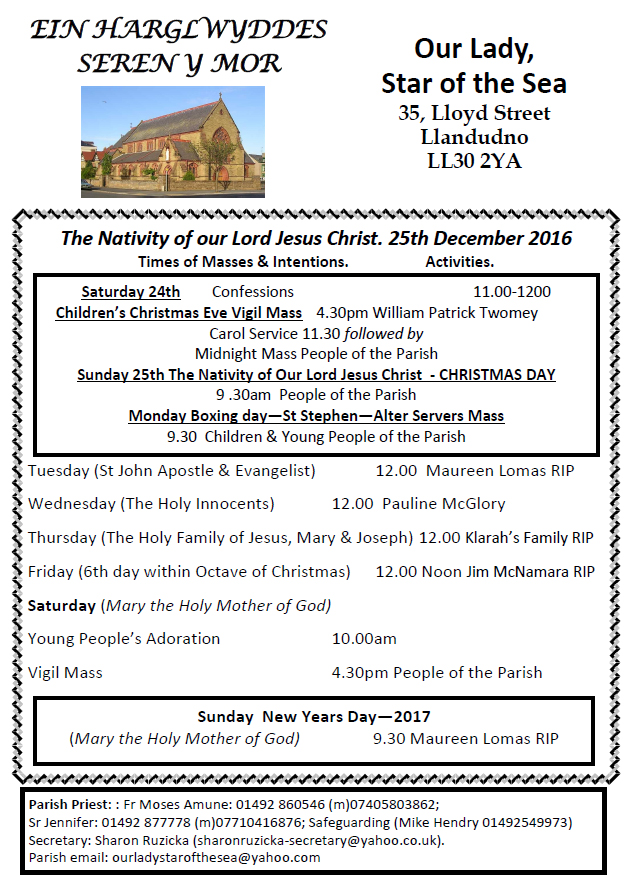SCROLL DOWN FOR EARLIER NEWSLETTERS
The latest Newsletter can be found on the front page.
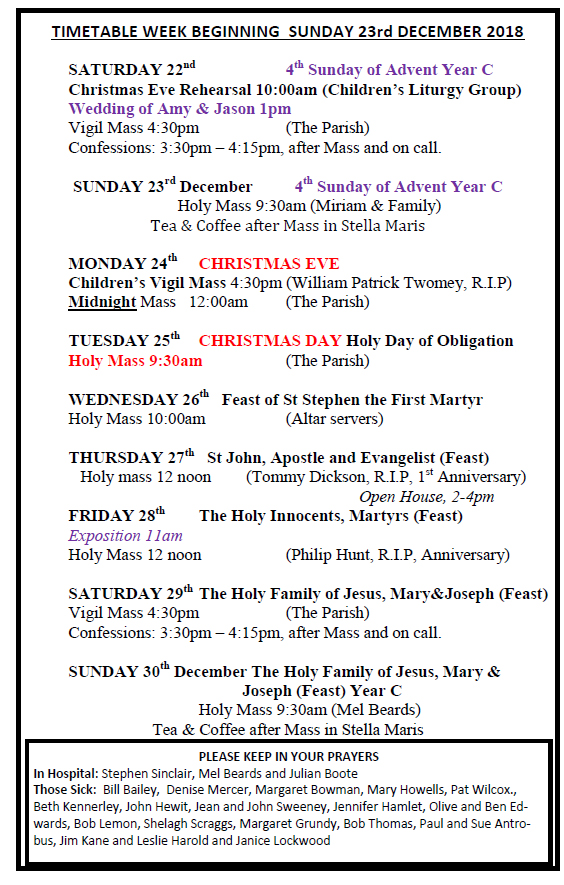
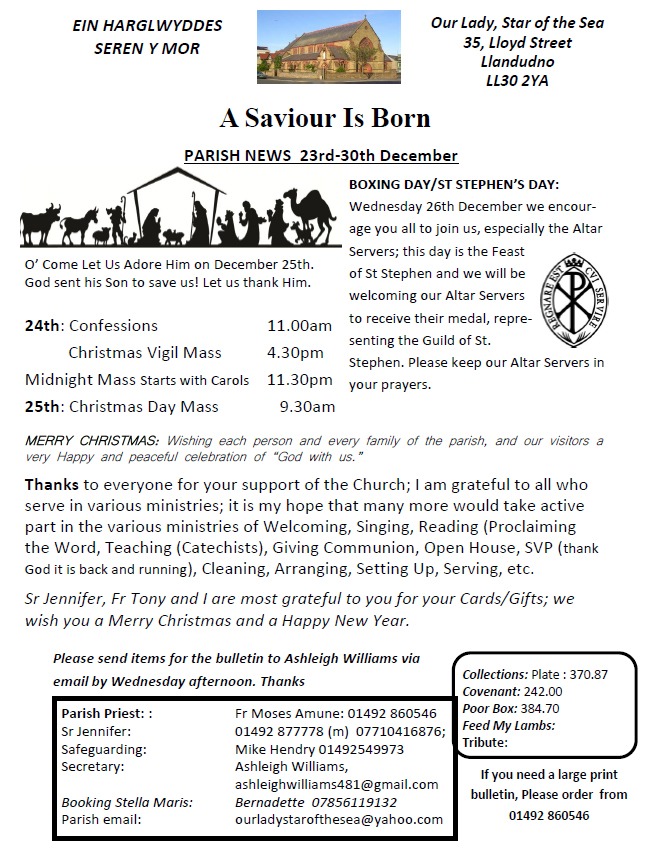
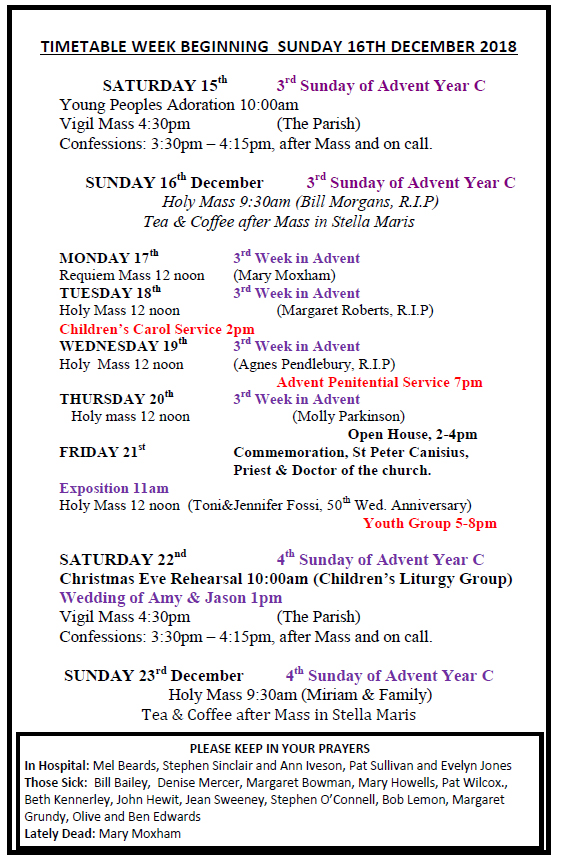
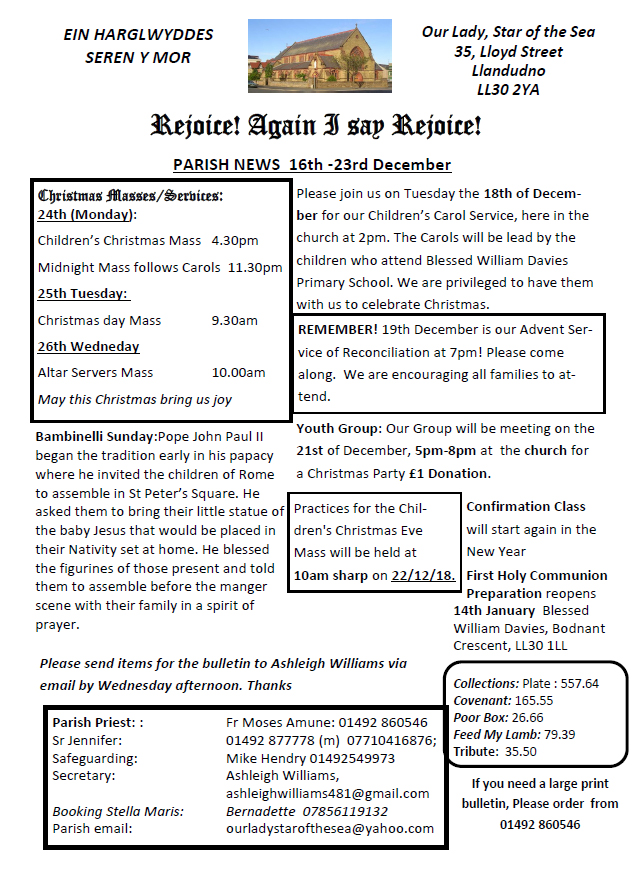
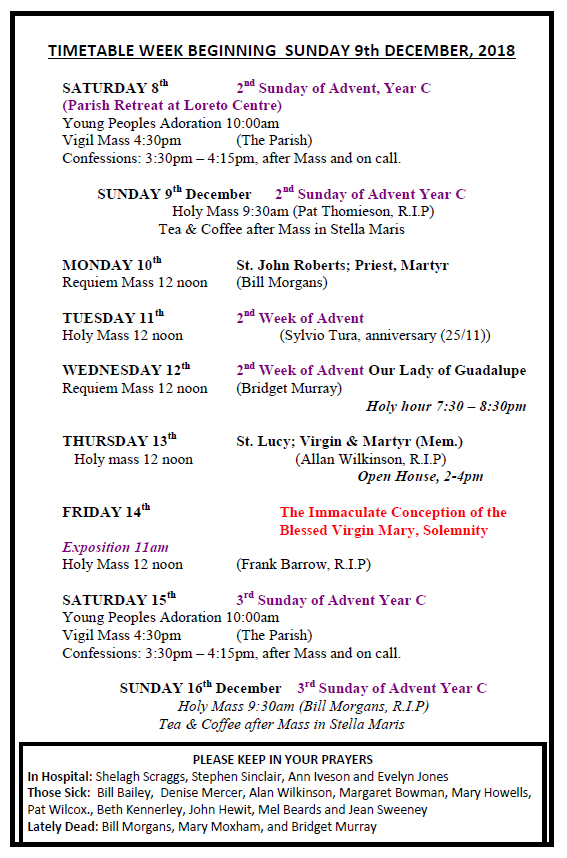
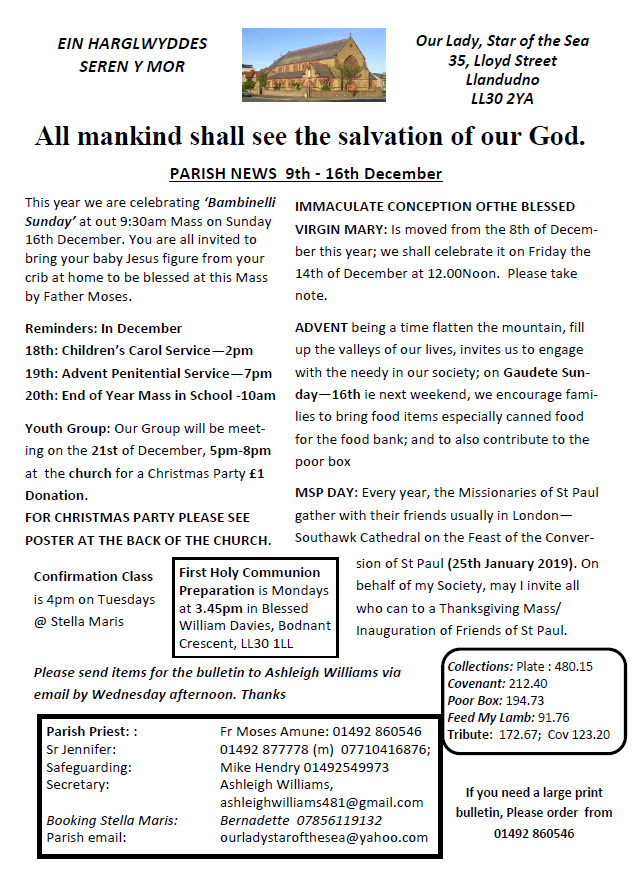
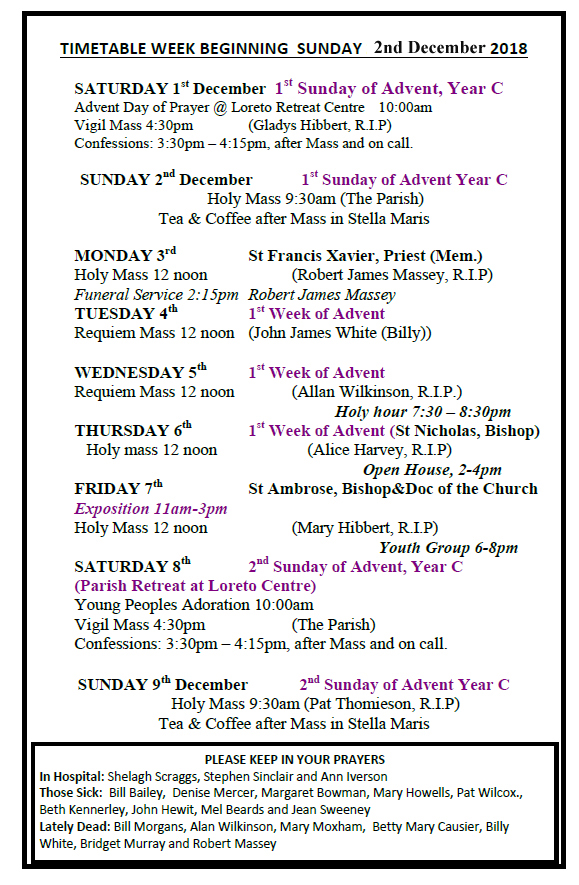
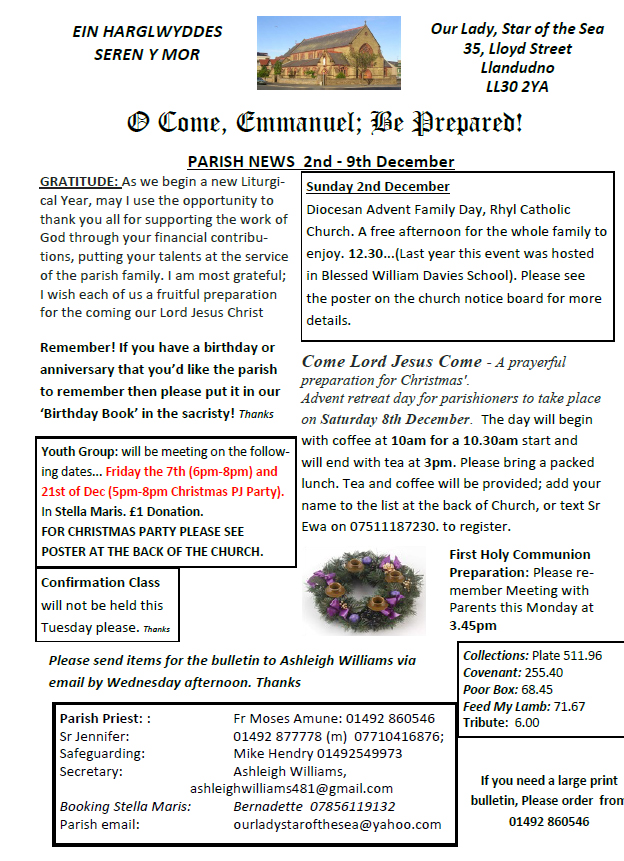
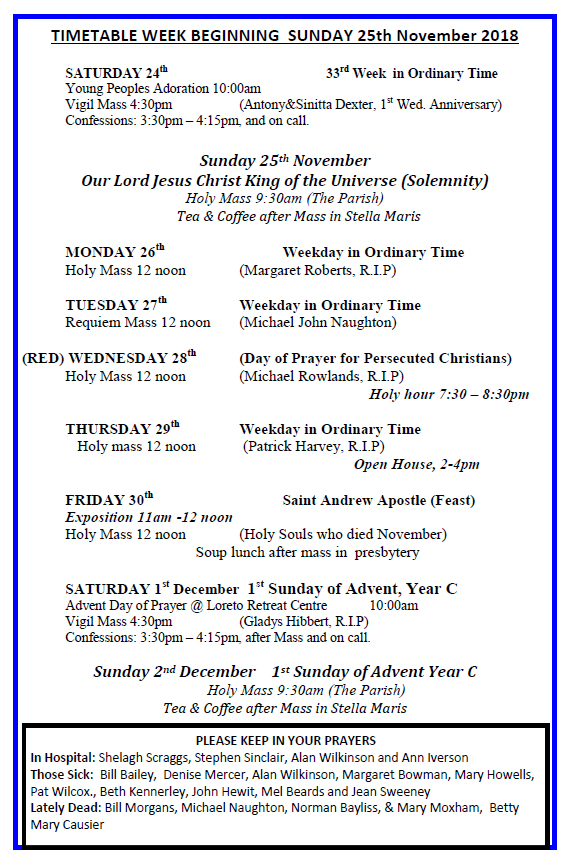
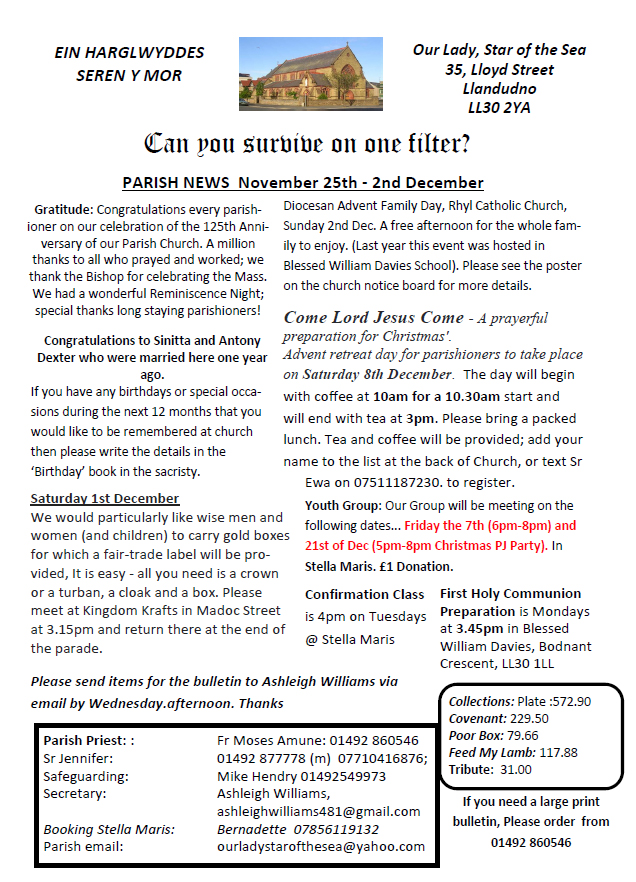
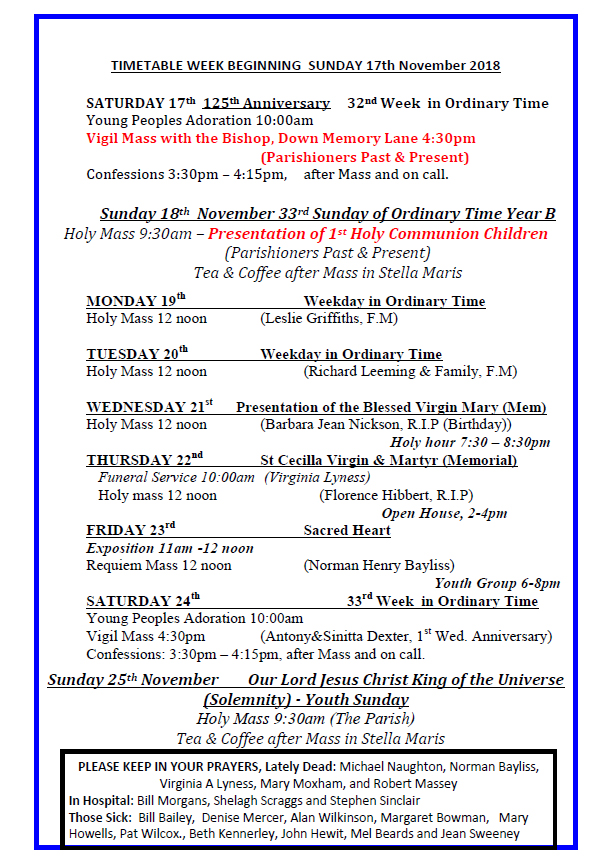
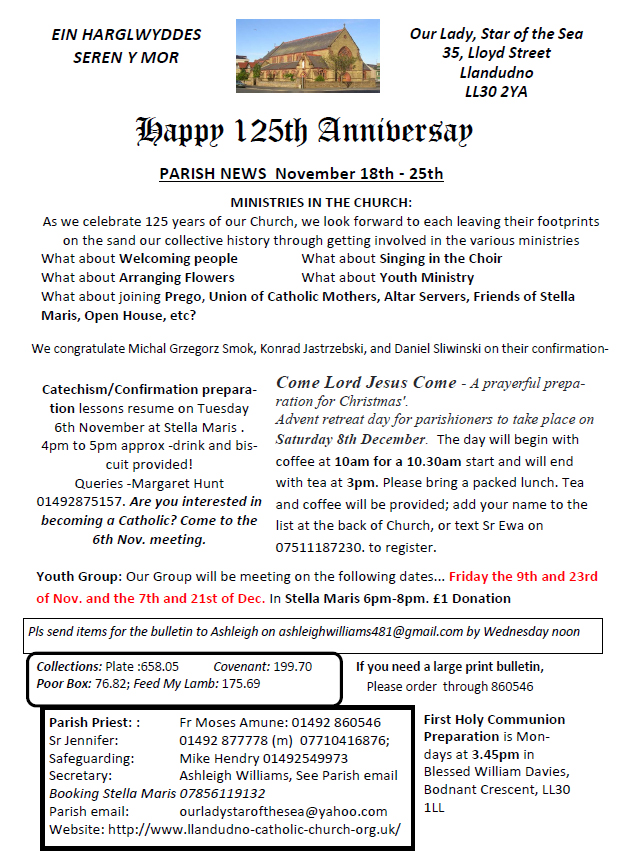
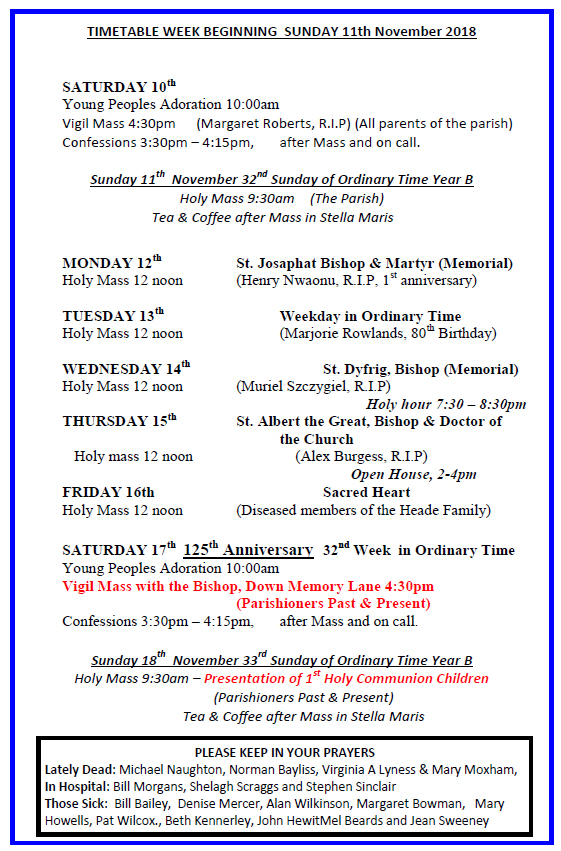
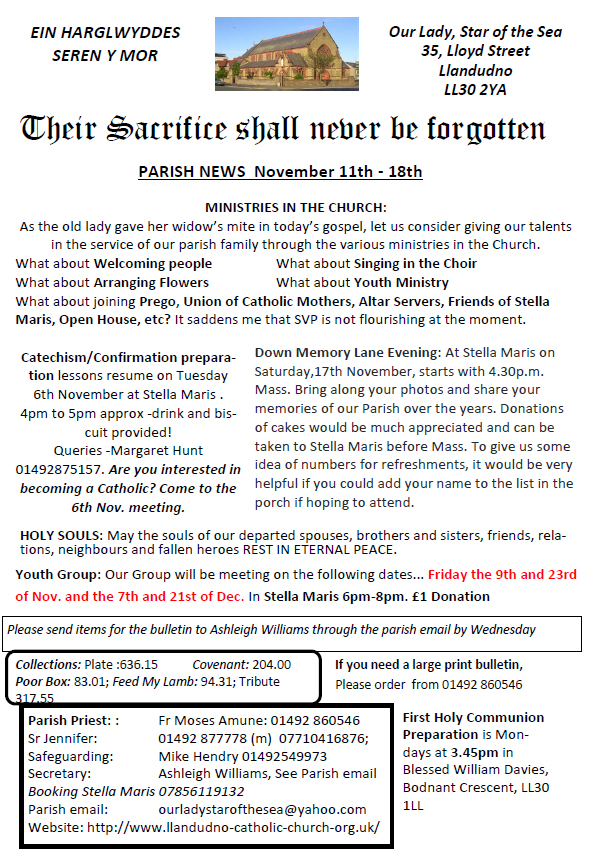
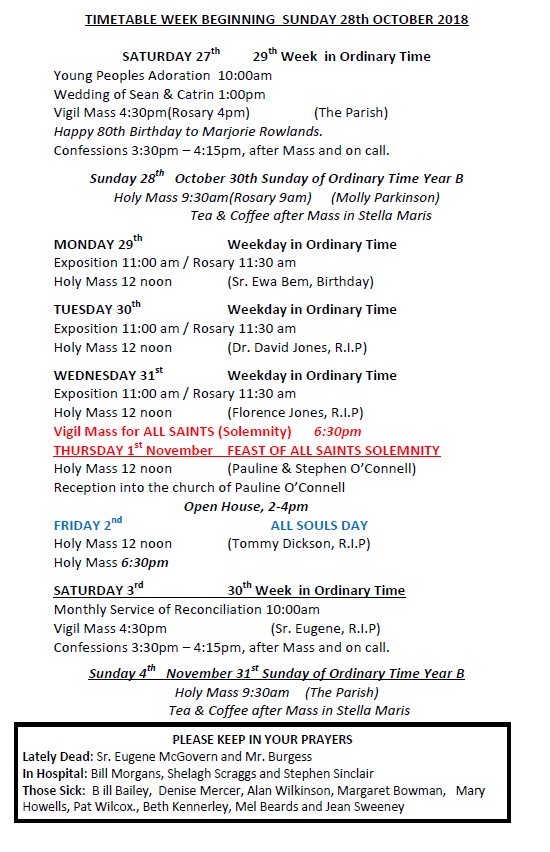
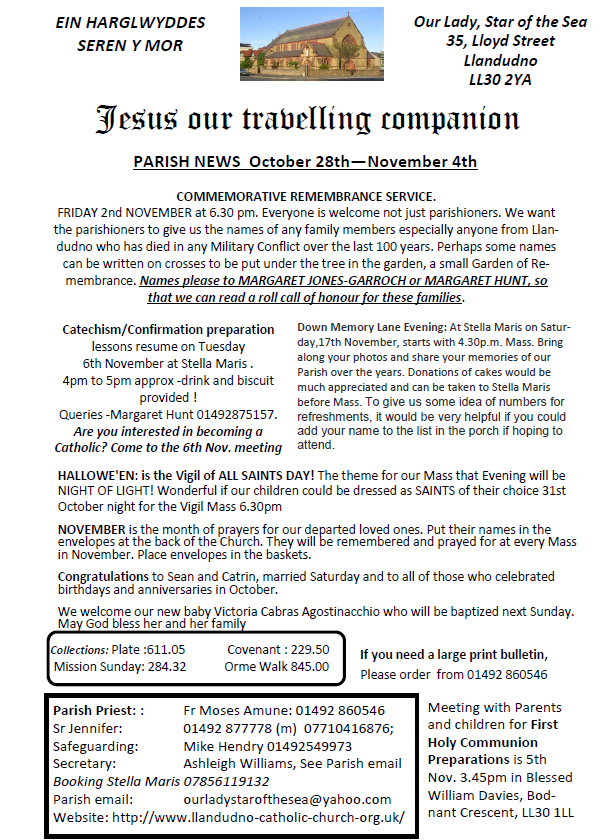
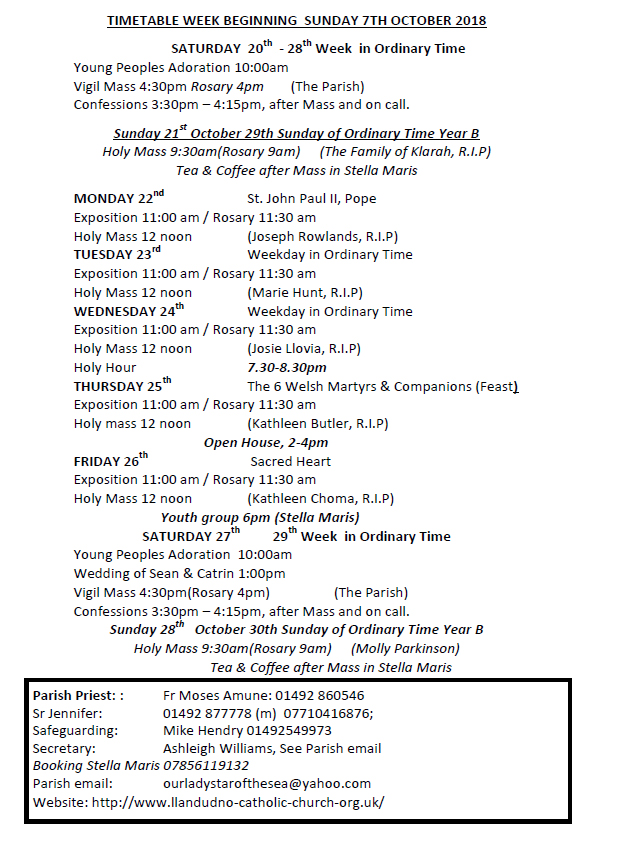
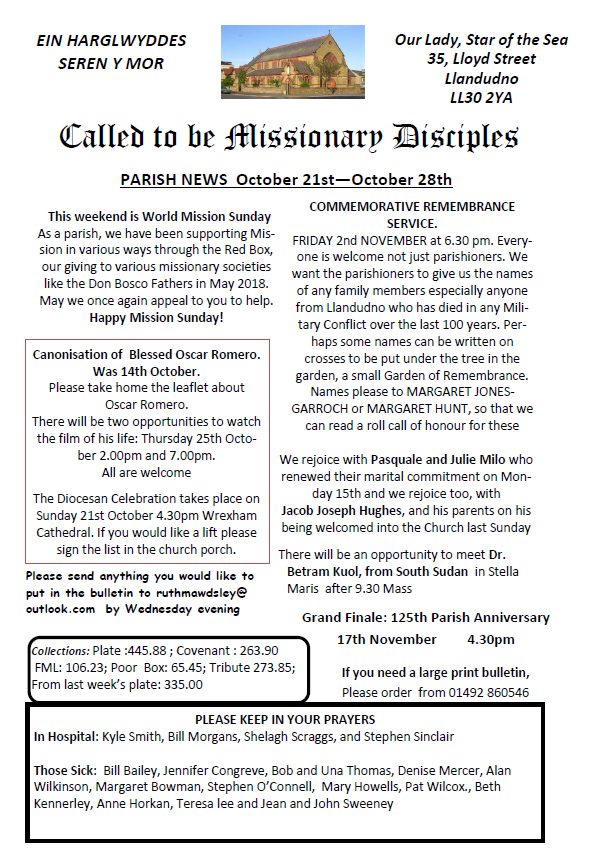
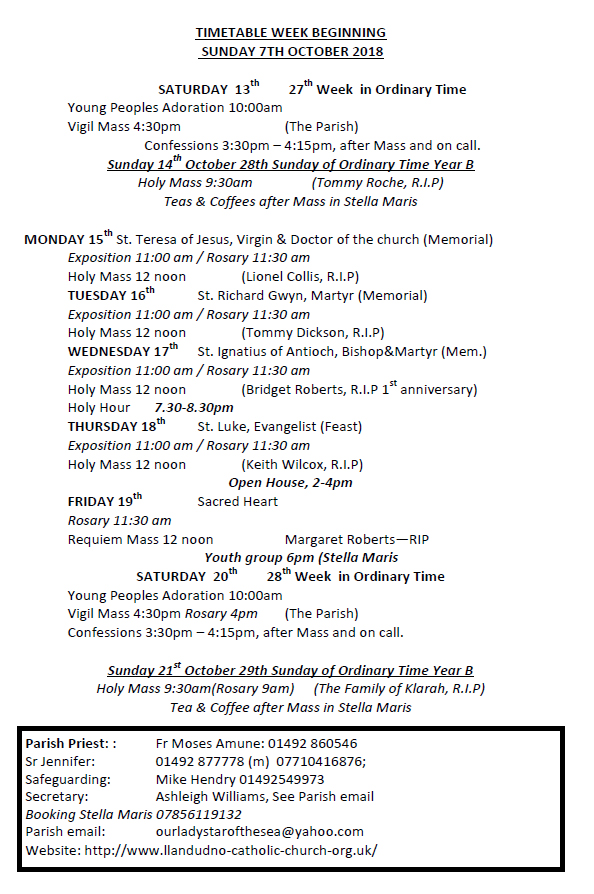
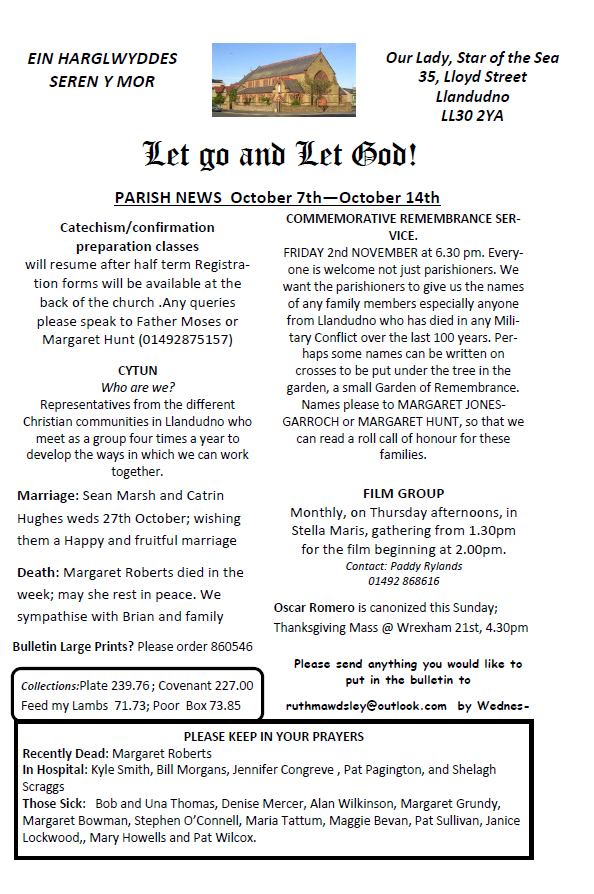
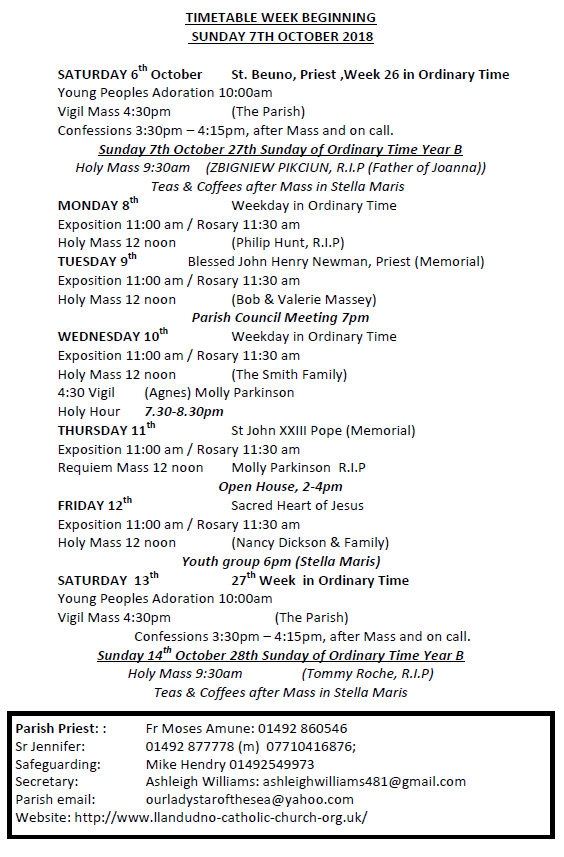
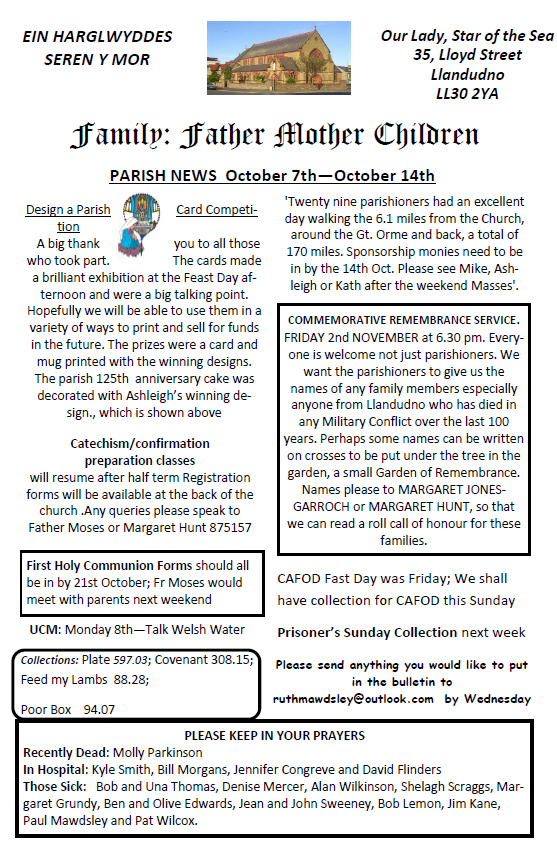
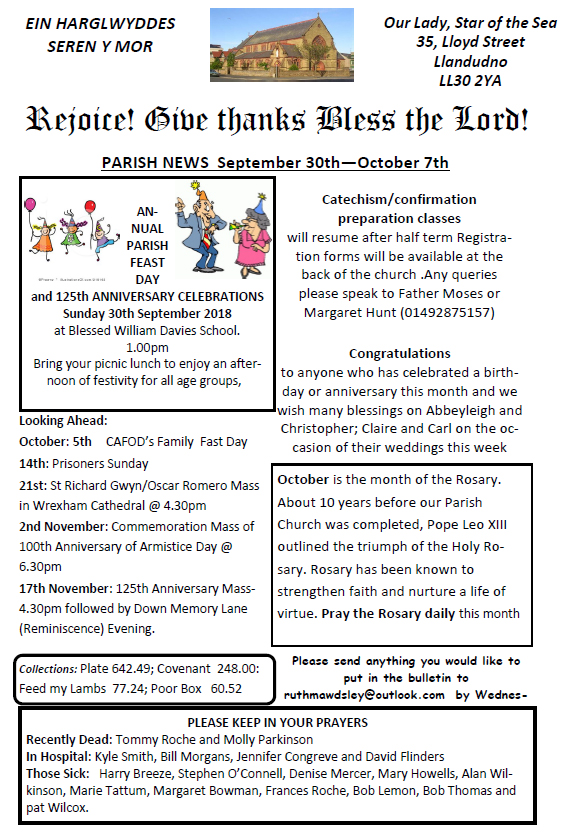
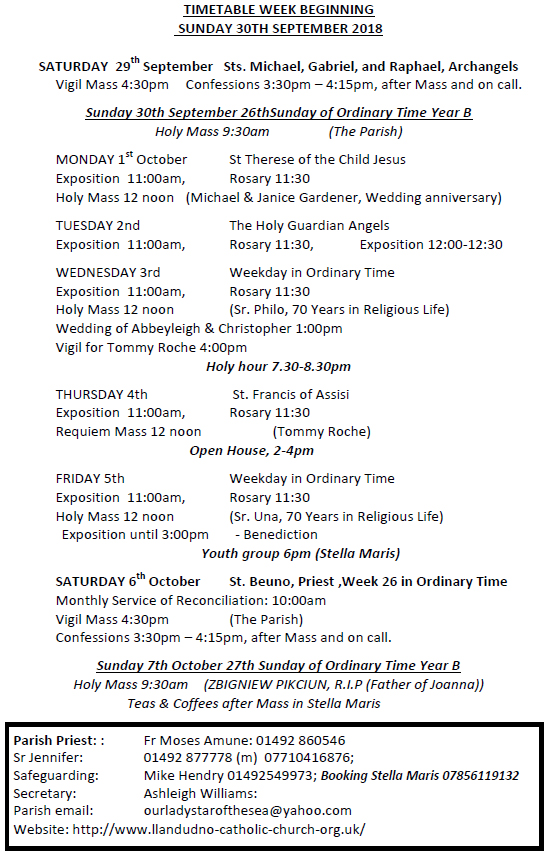
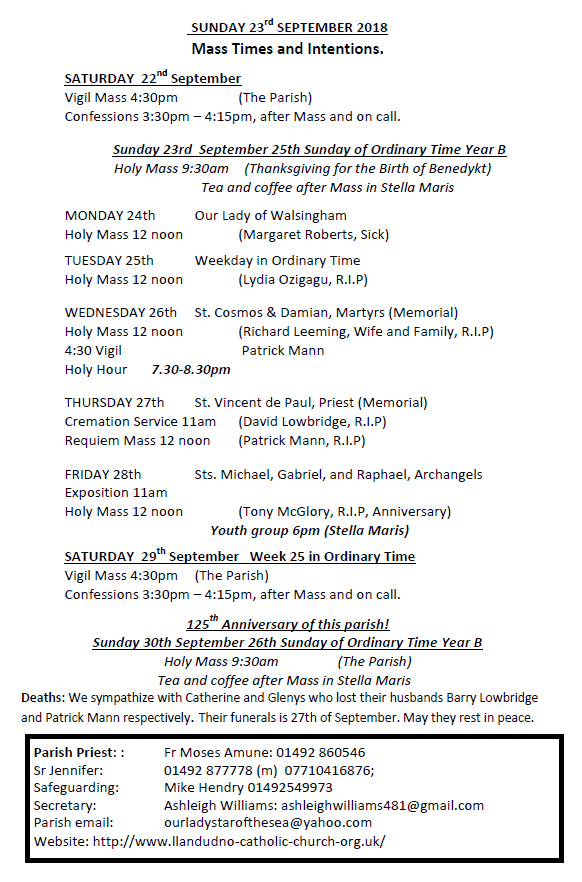
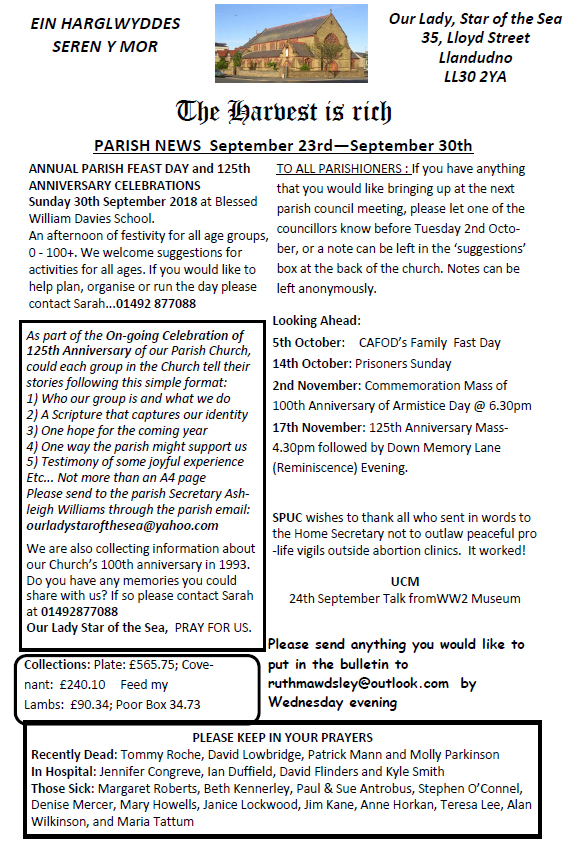
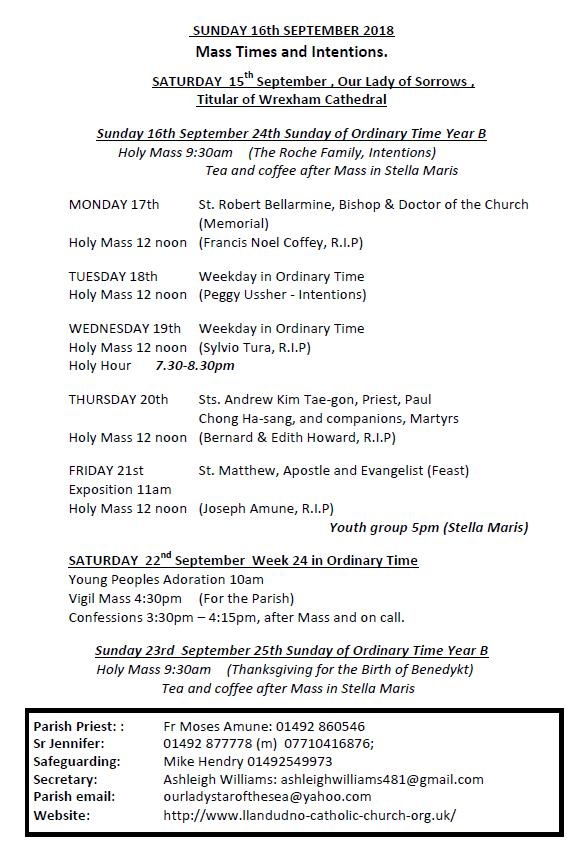
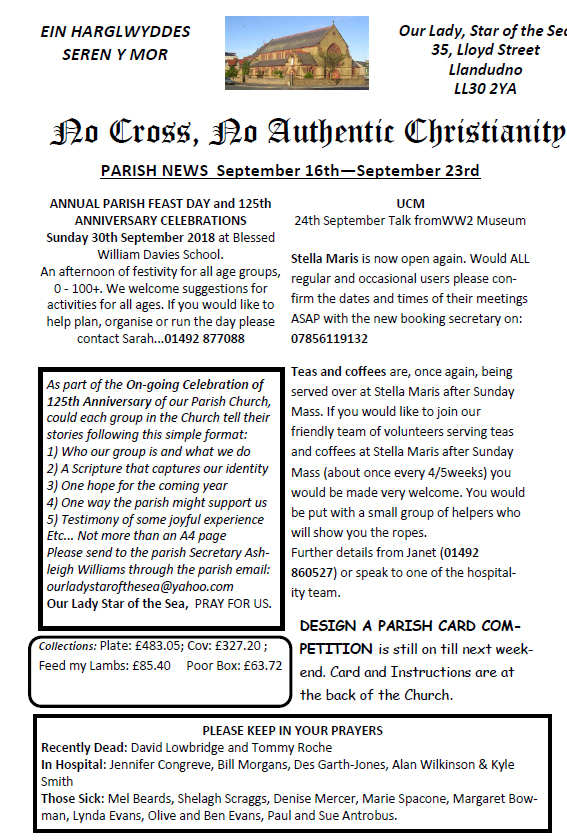
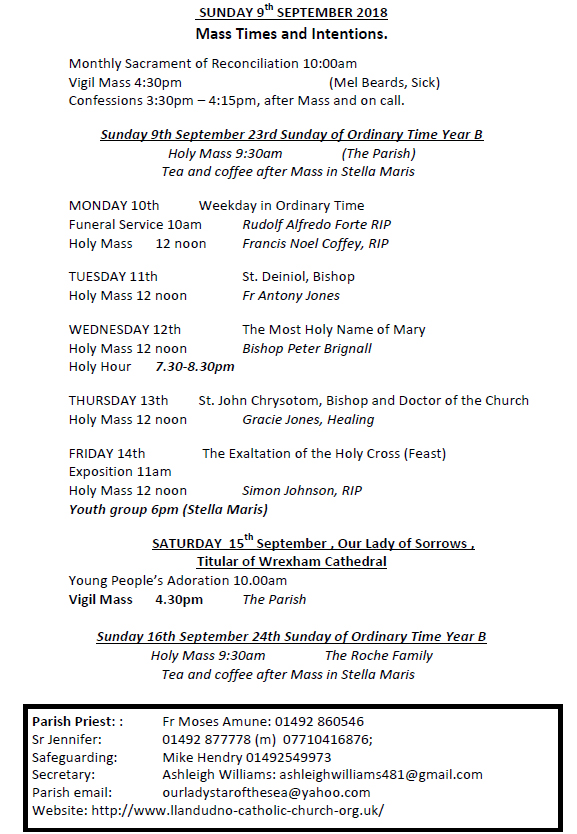
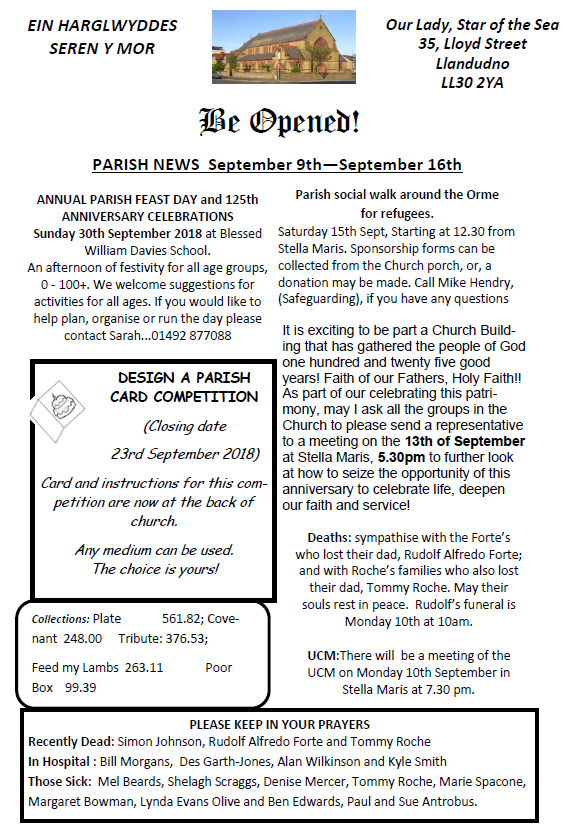
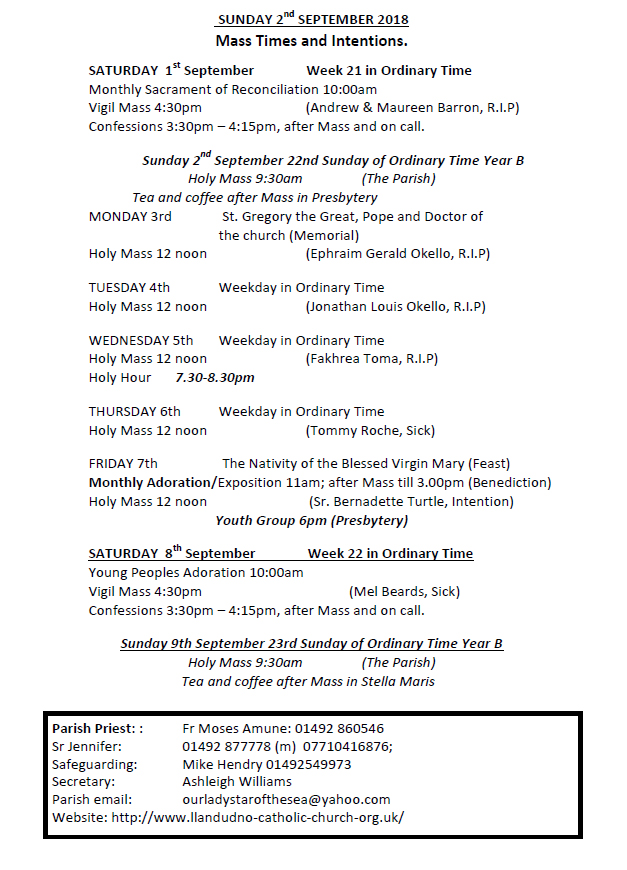
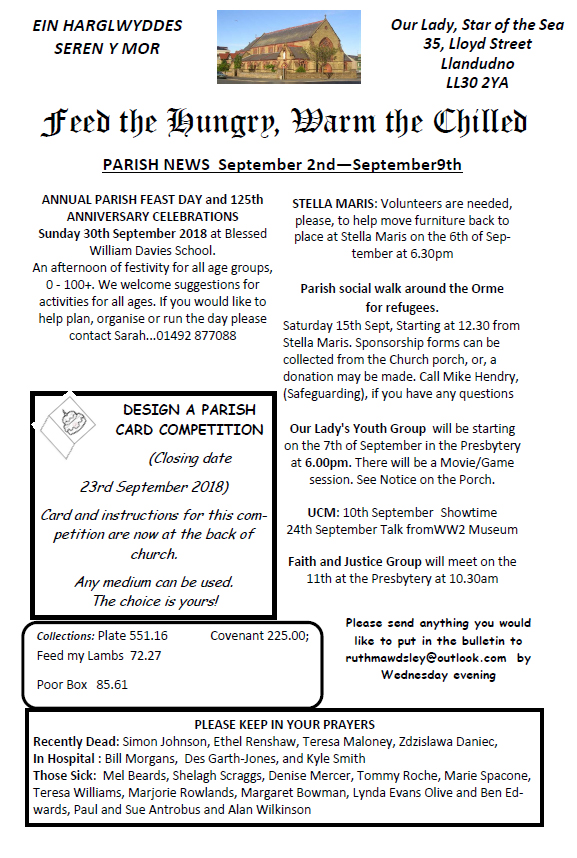
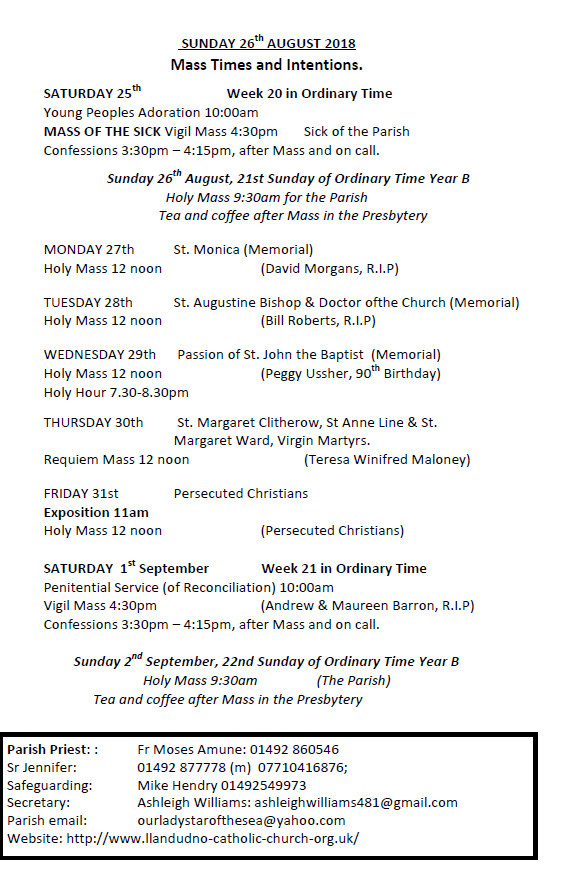
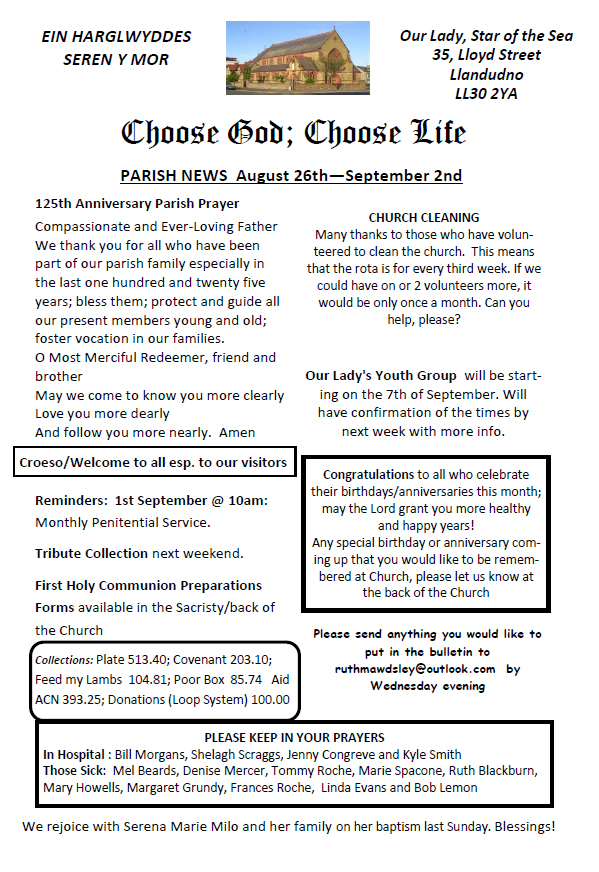
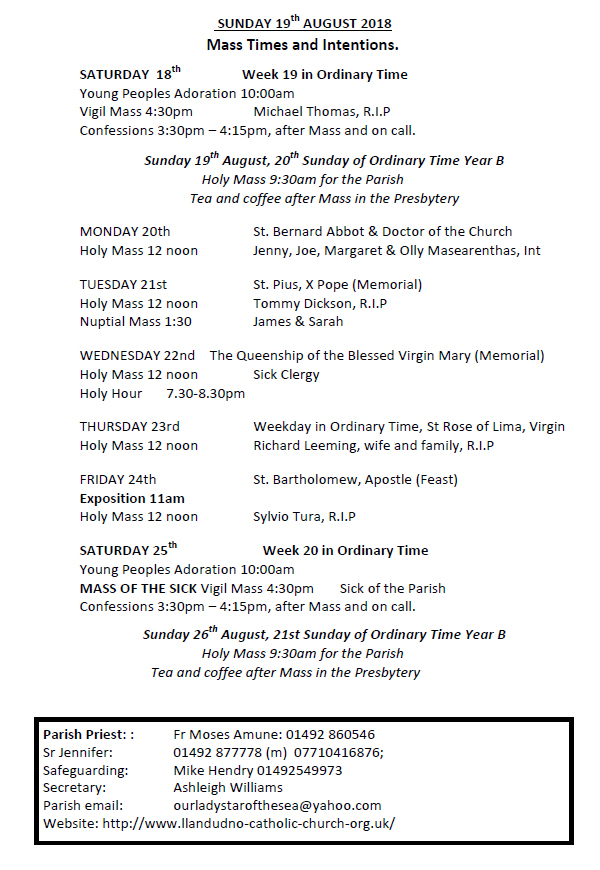
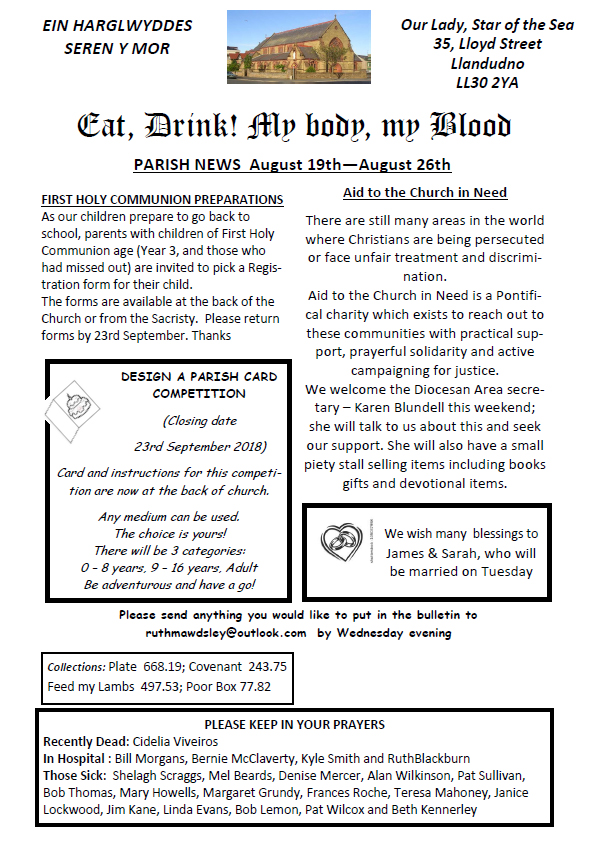
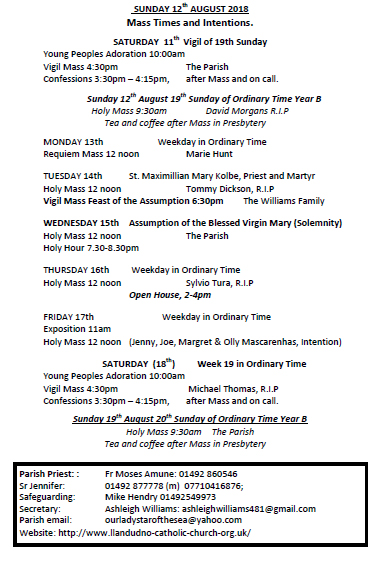
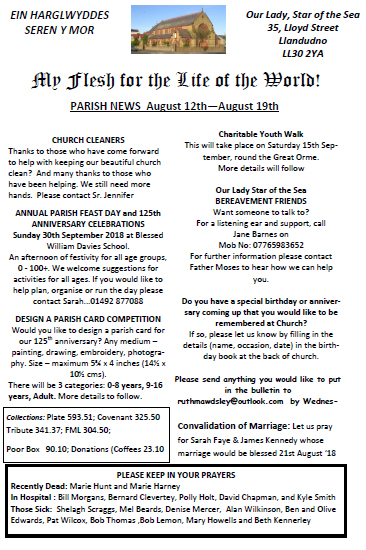
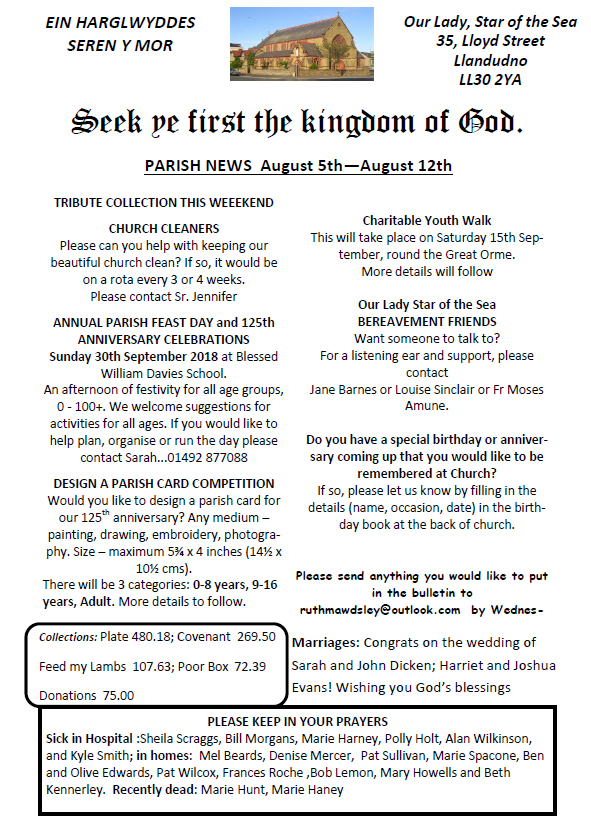
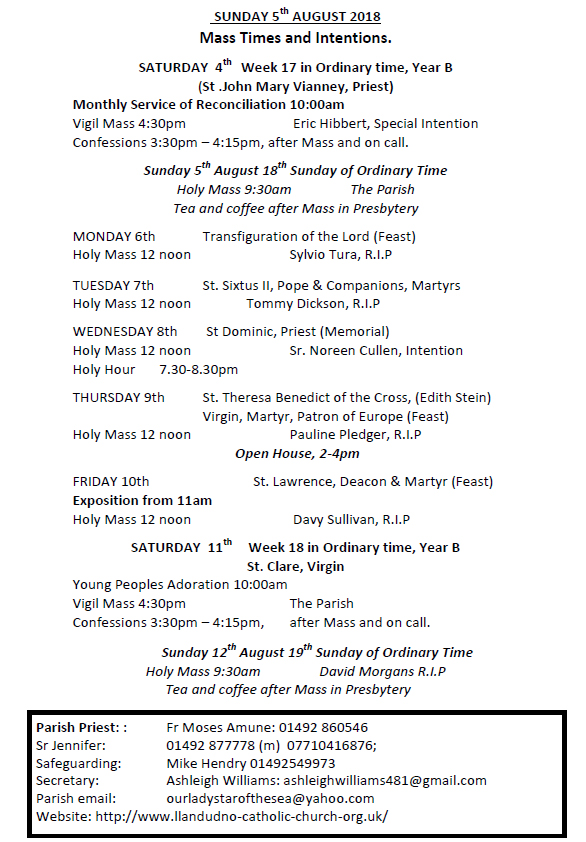
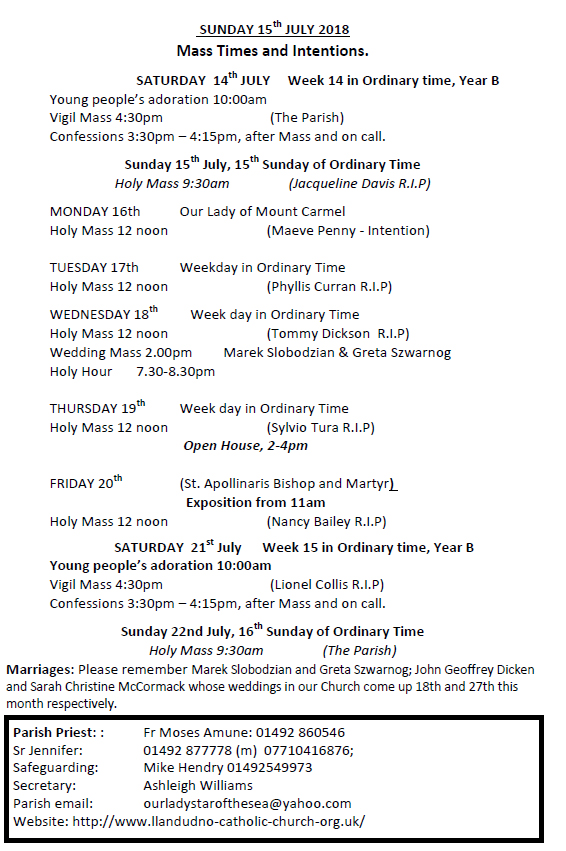
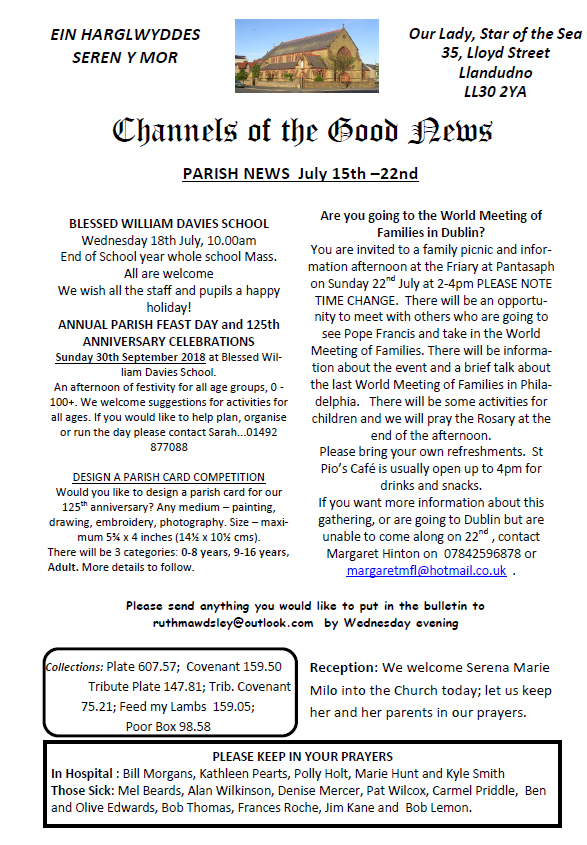
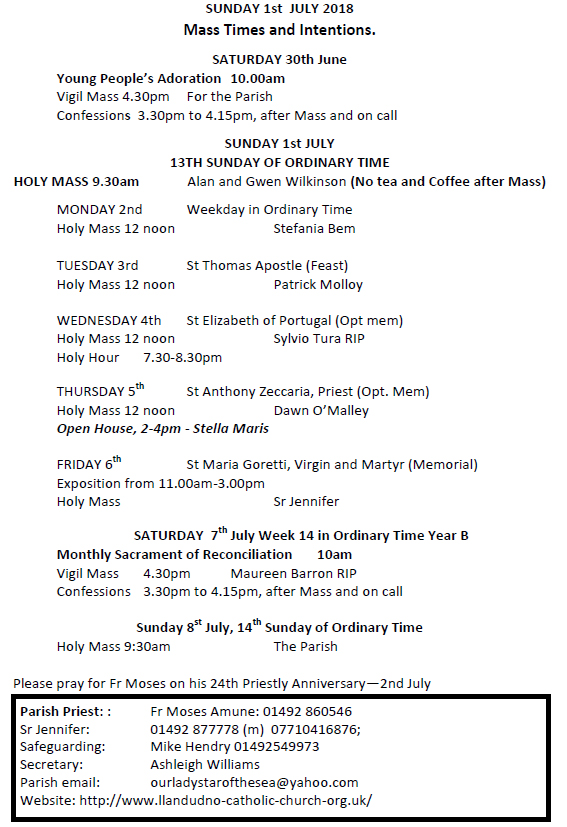
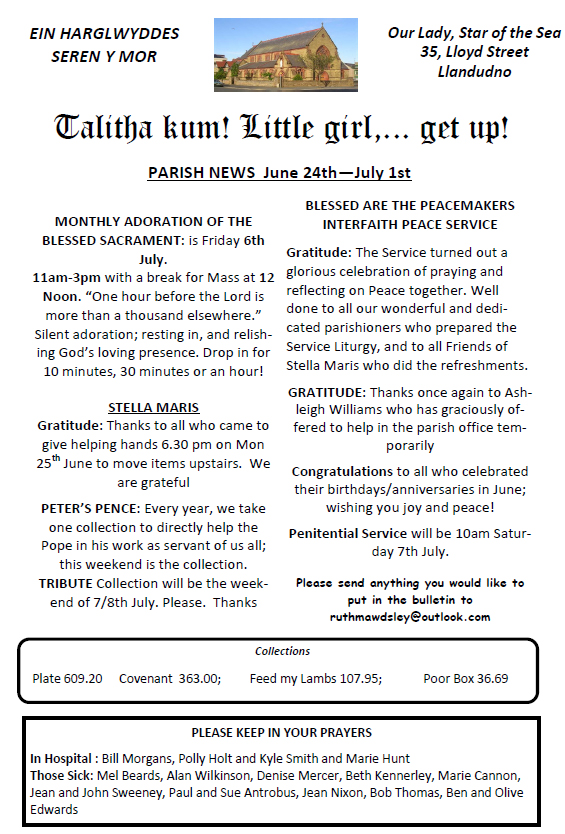
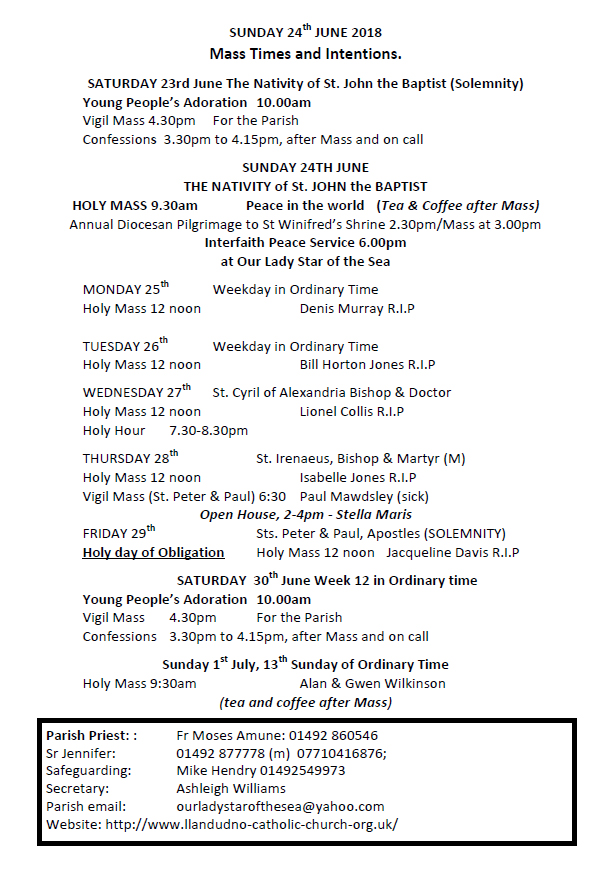
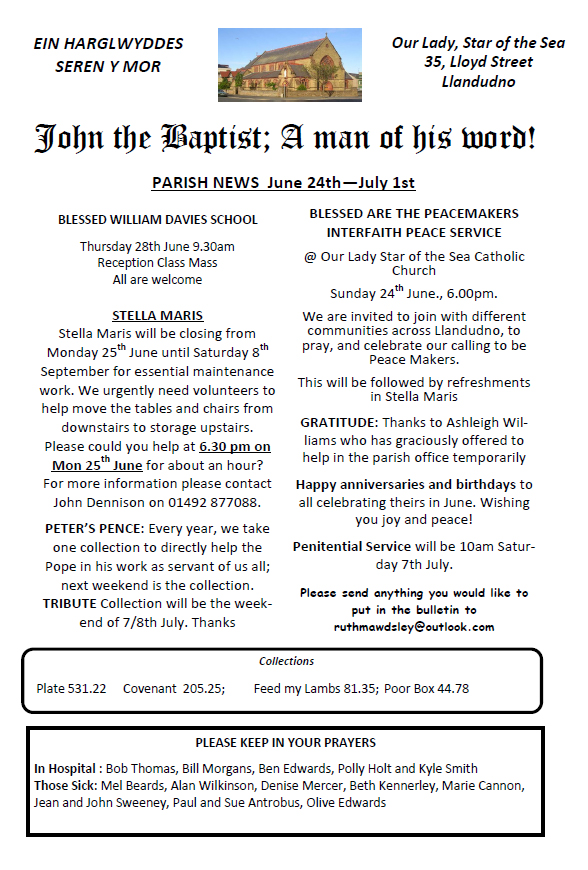
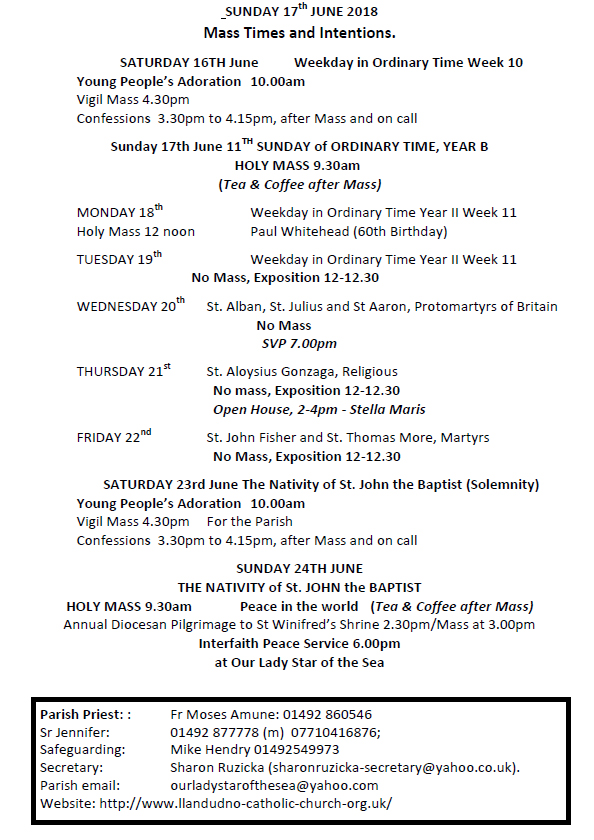
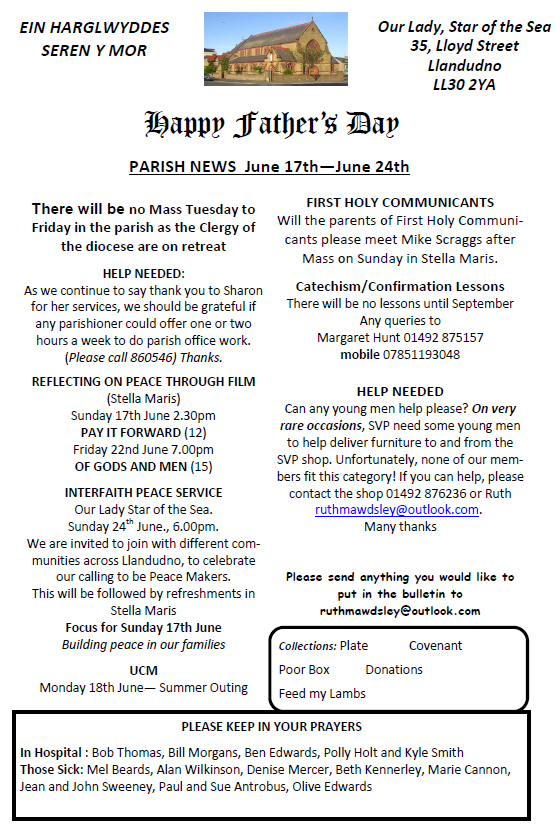
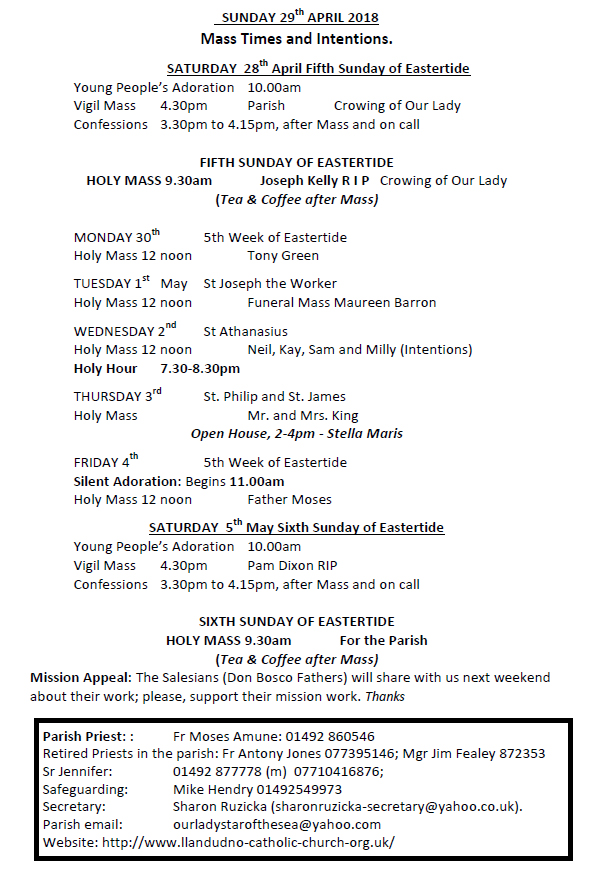
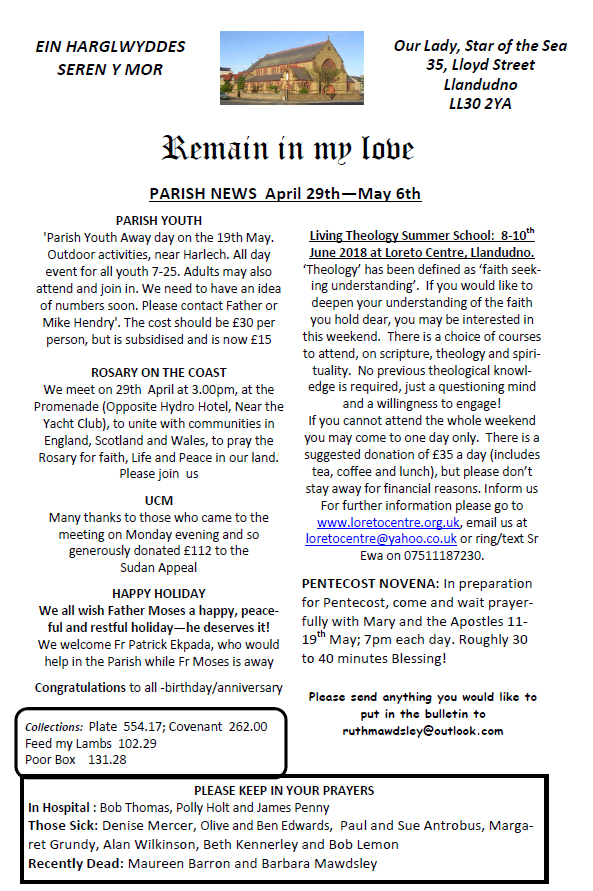
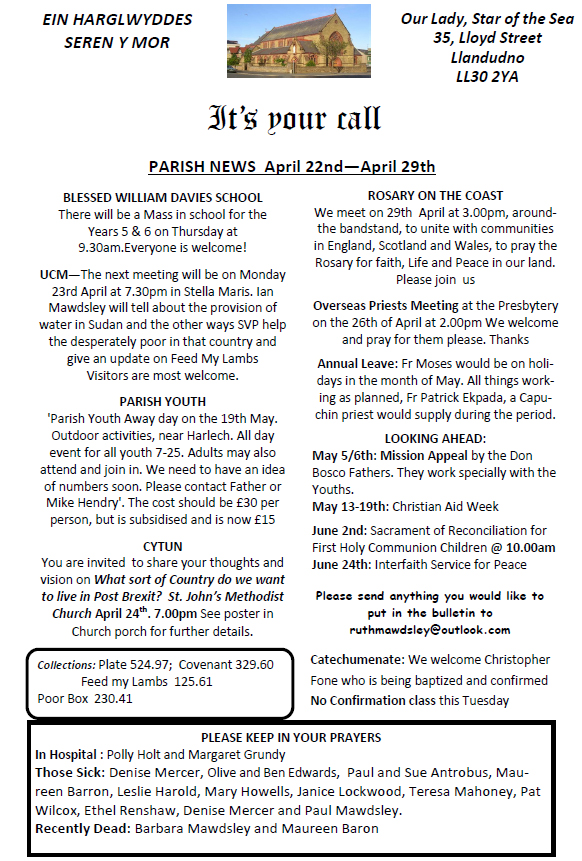
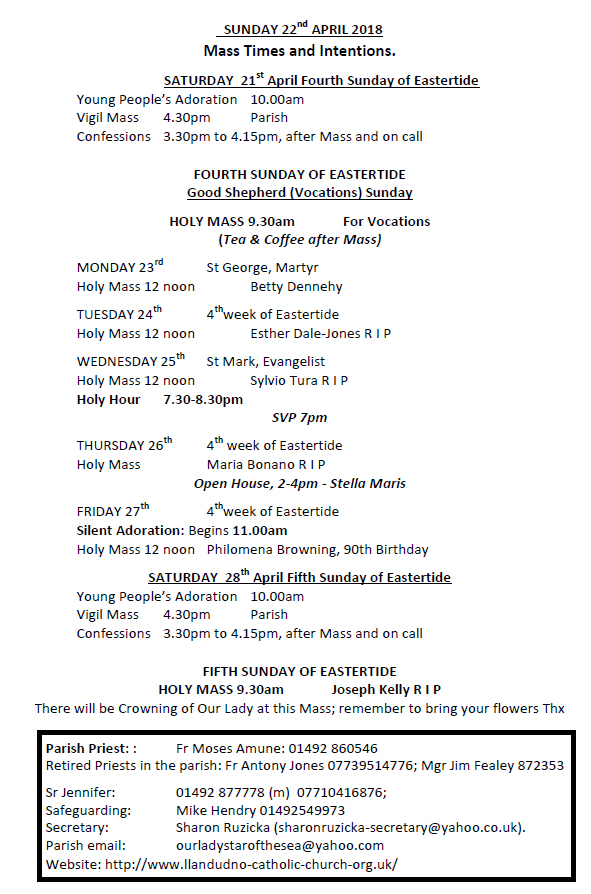
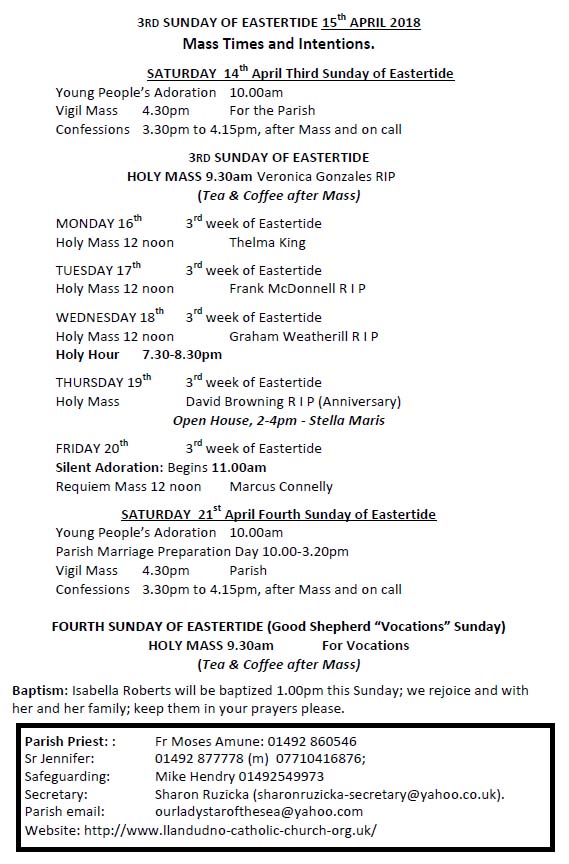
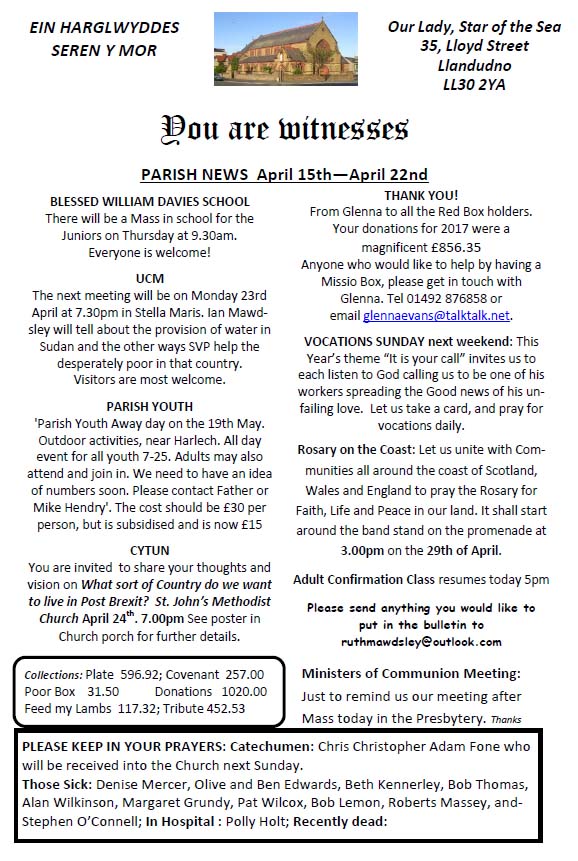
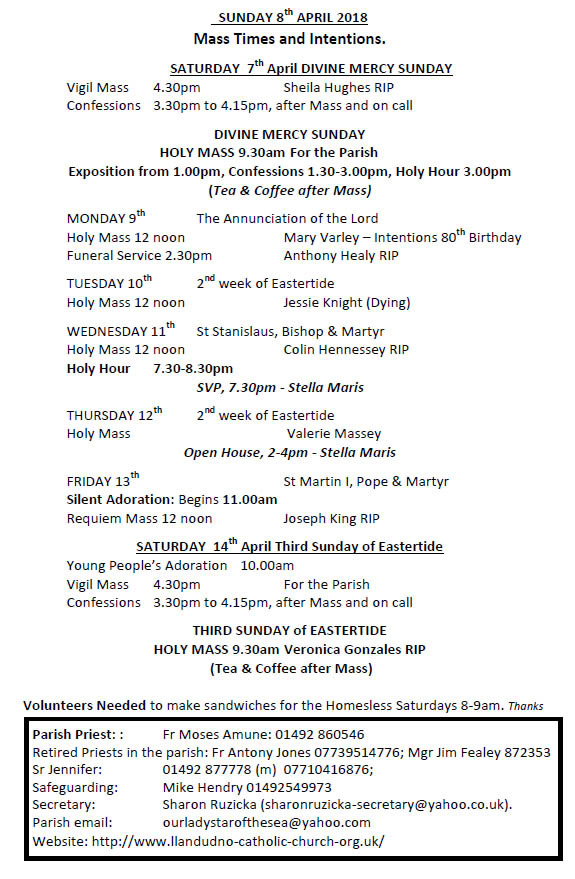
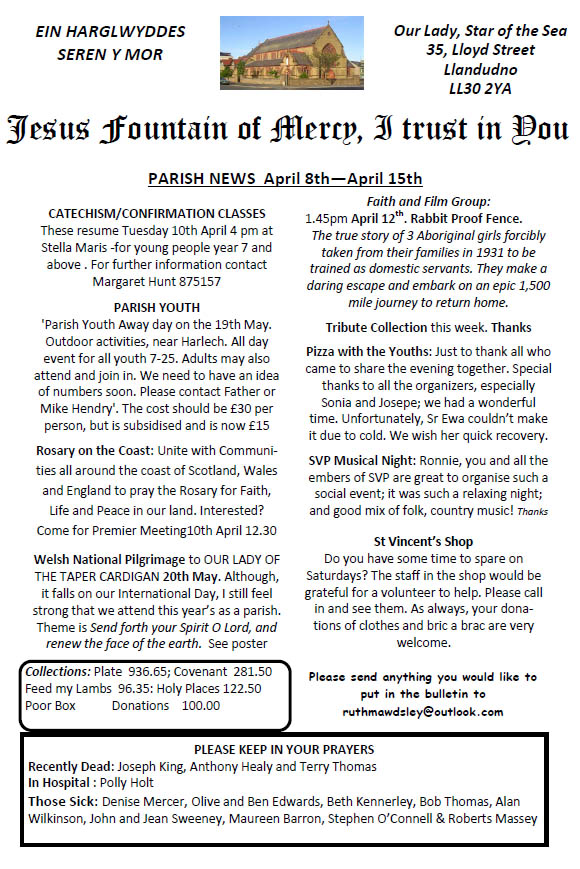
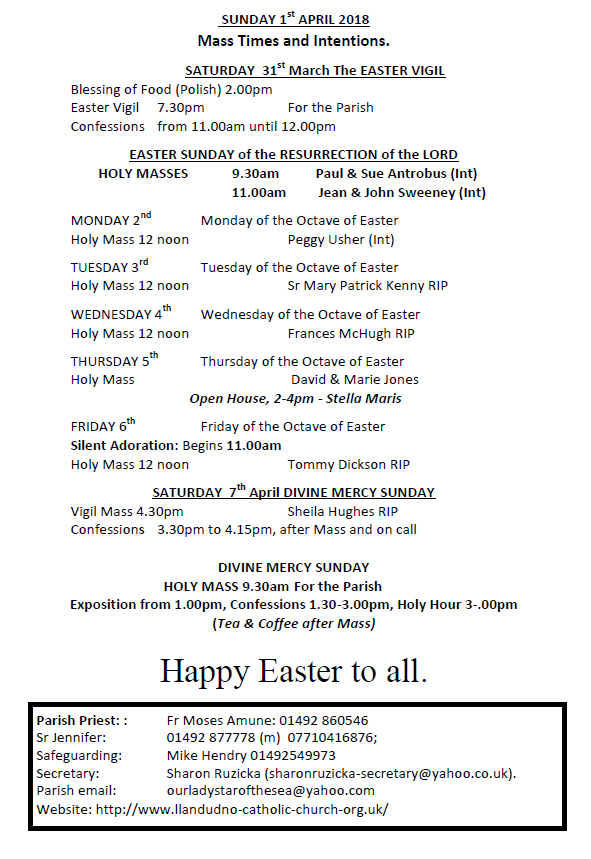
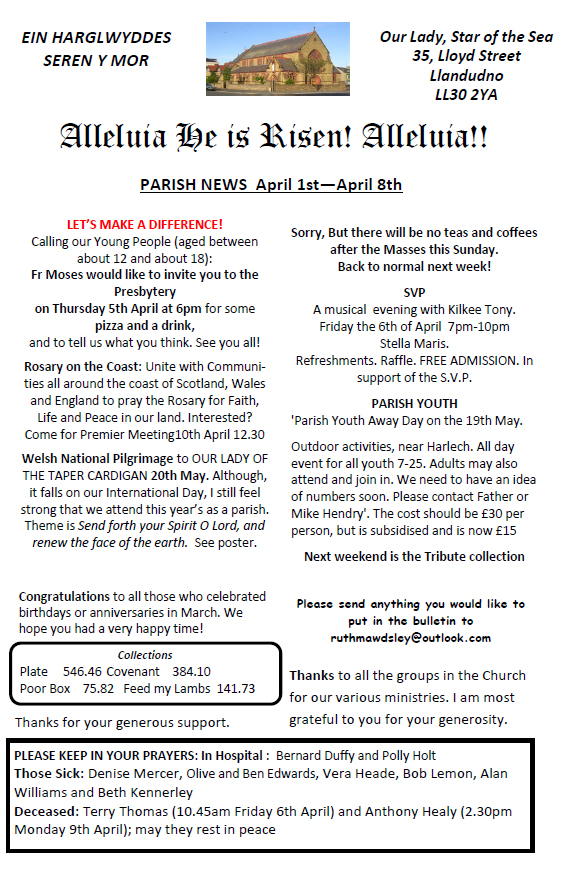
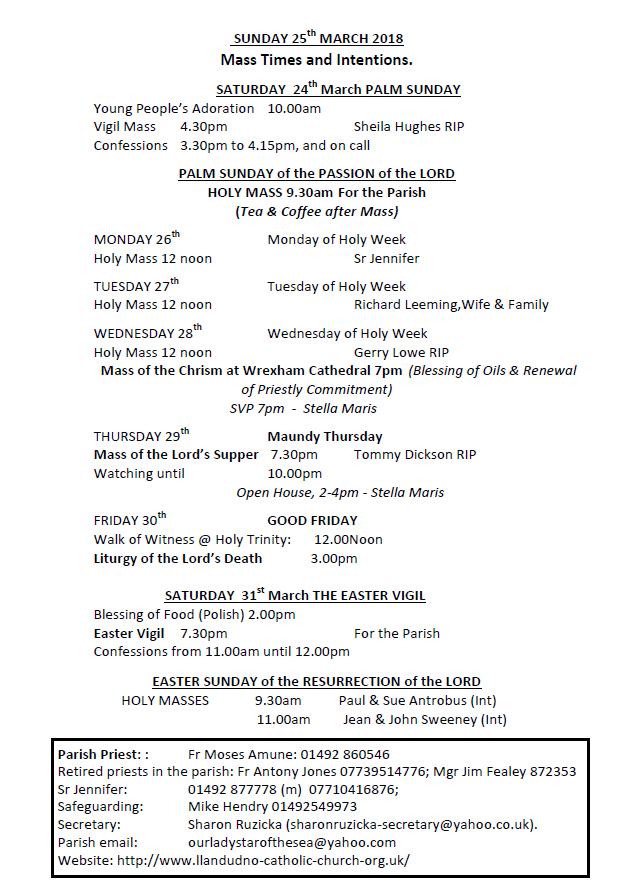
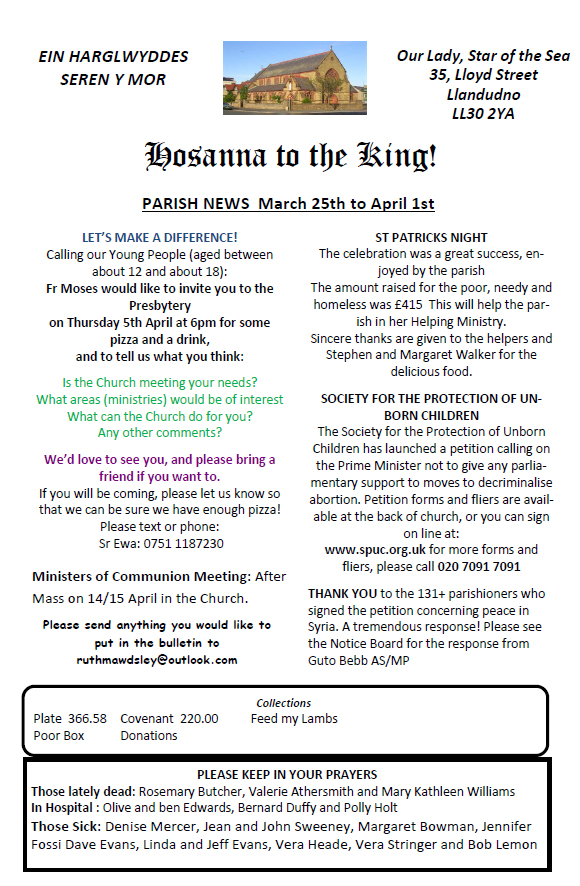
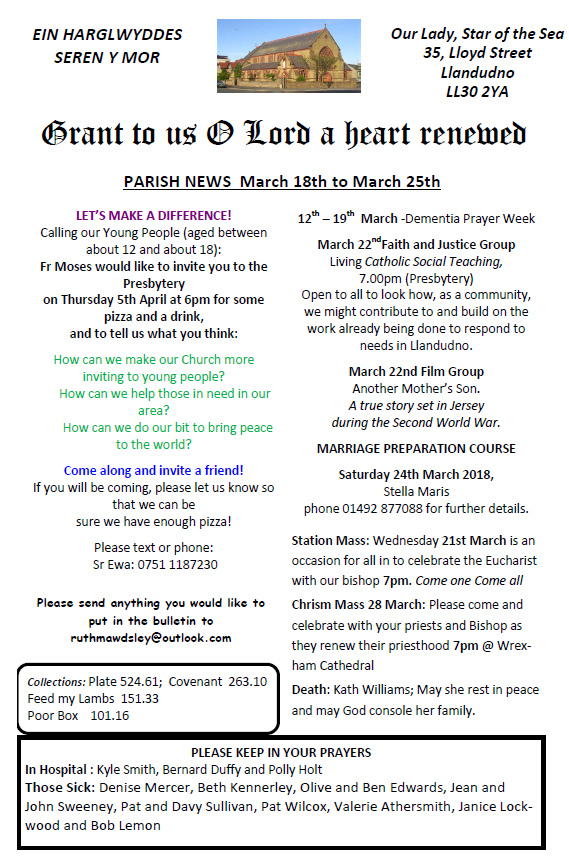
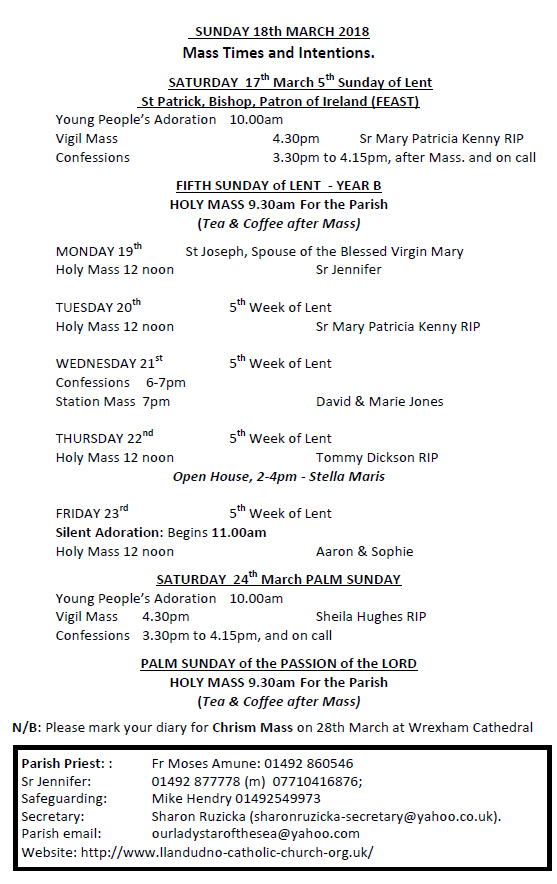
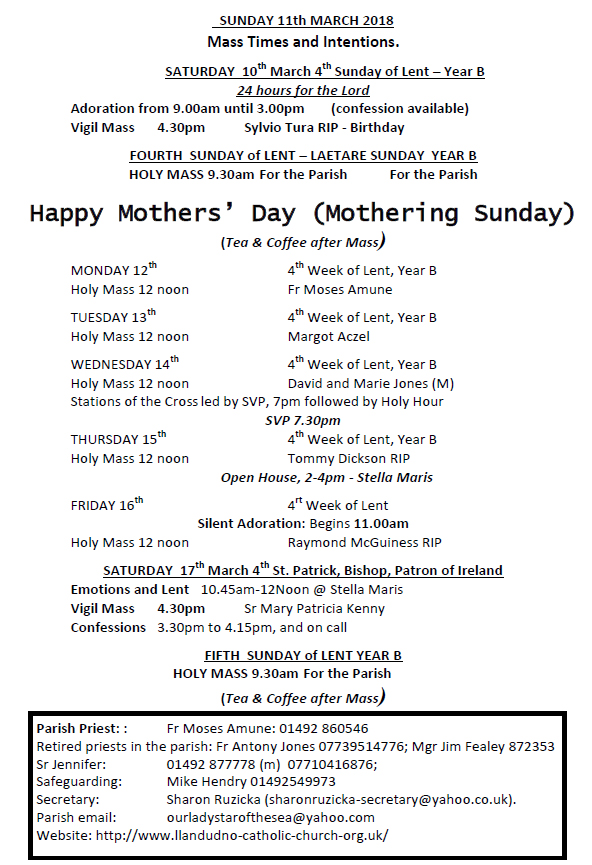
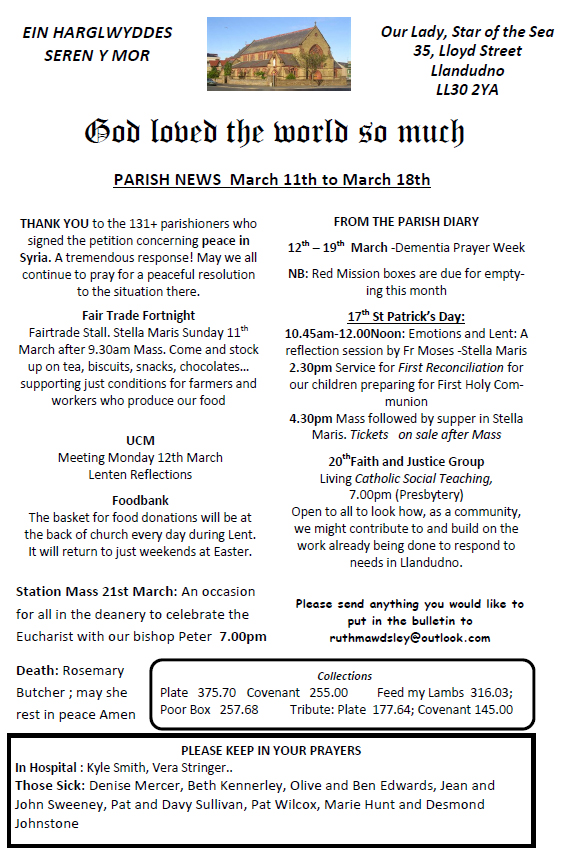
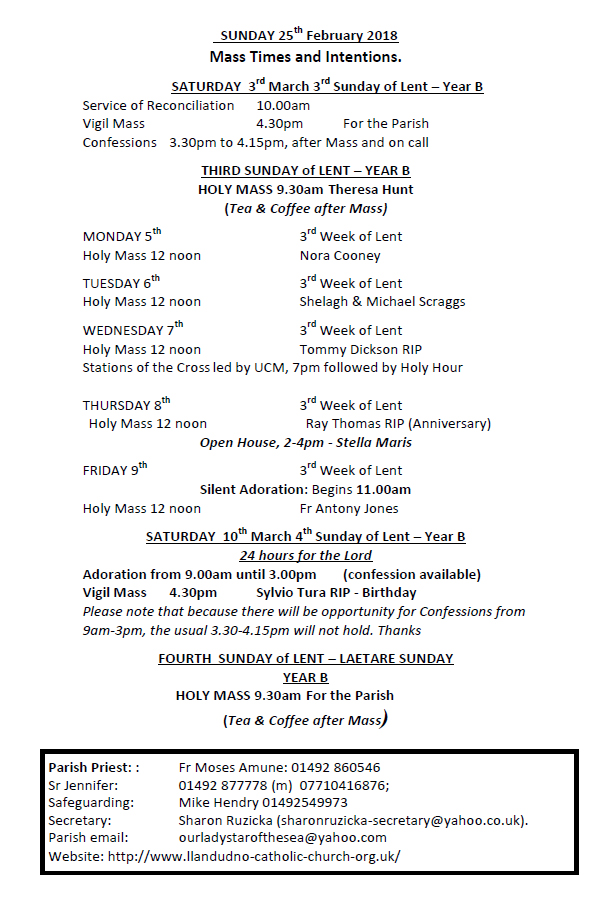
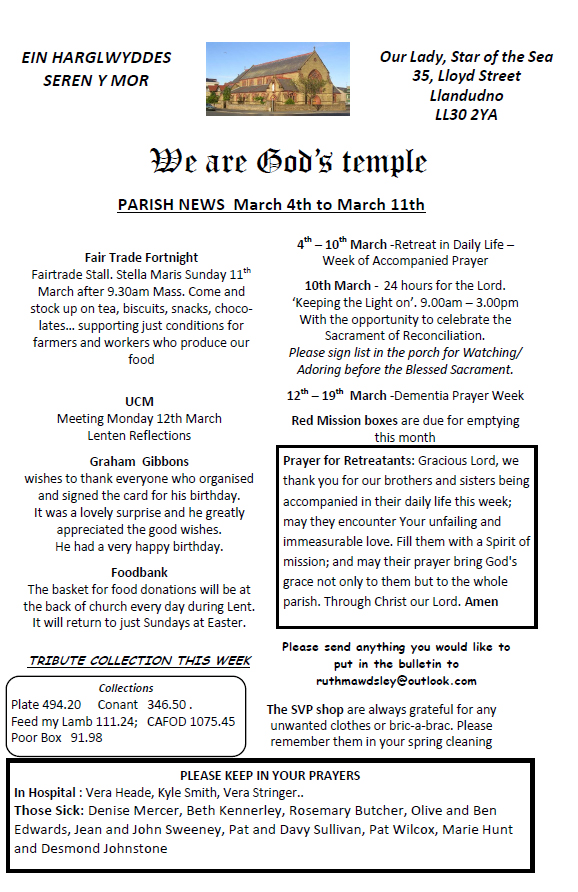
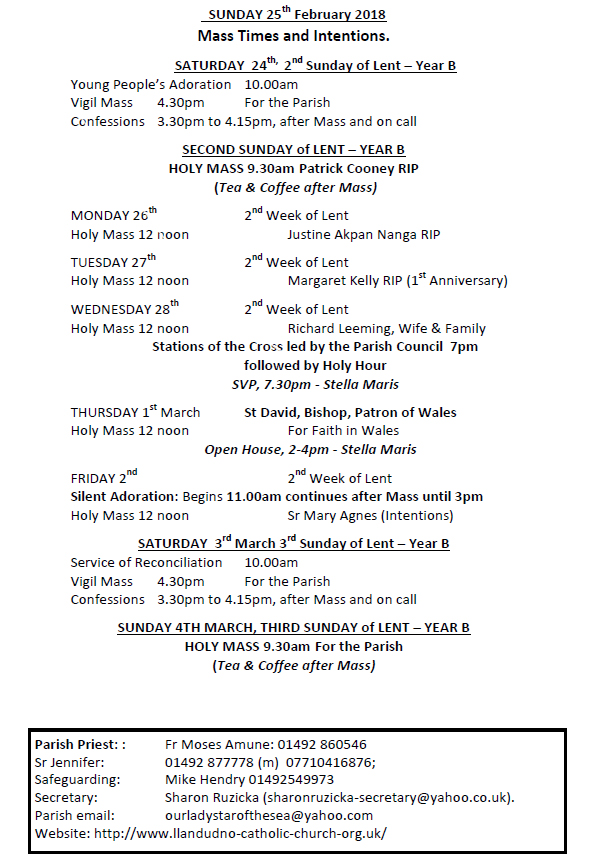
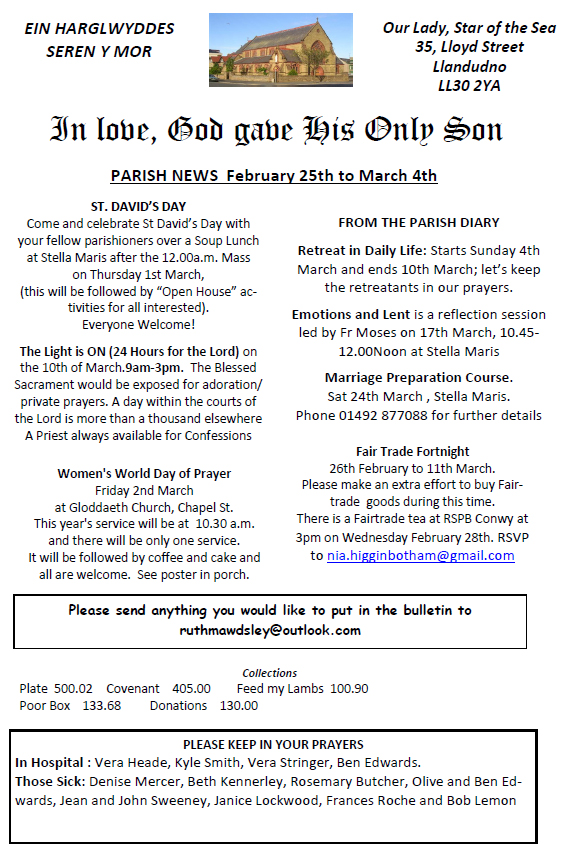
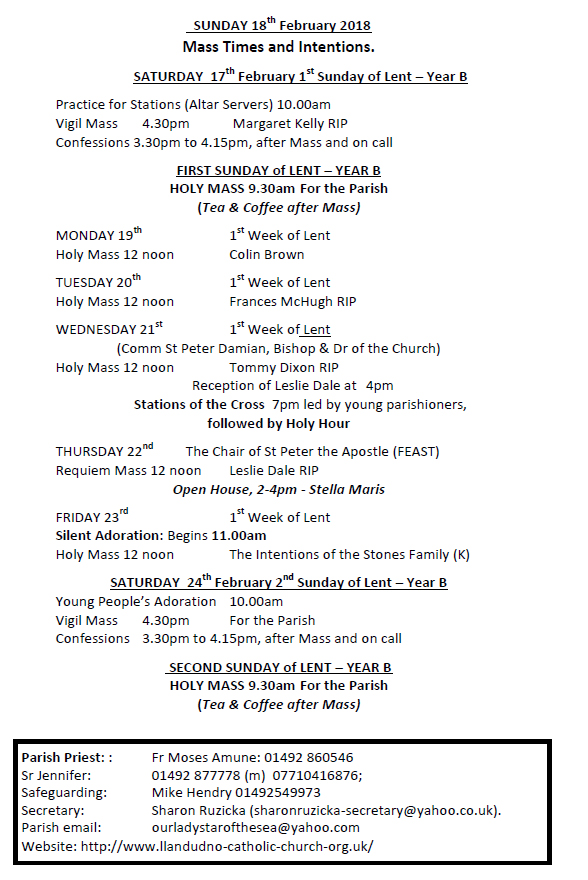
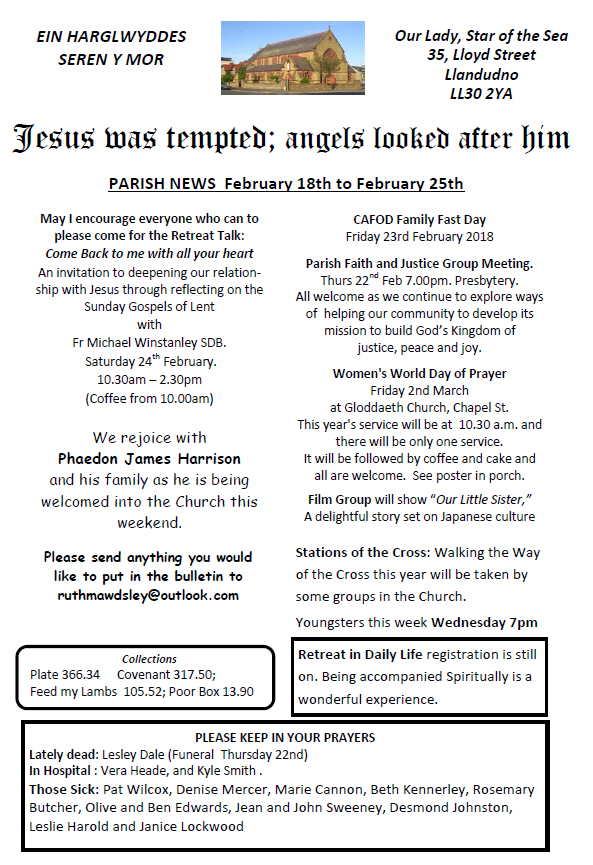
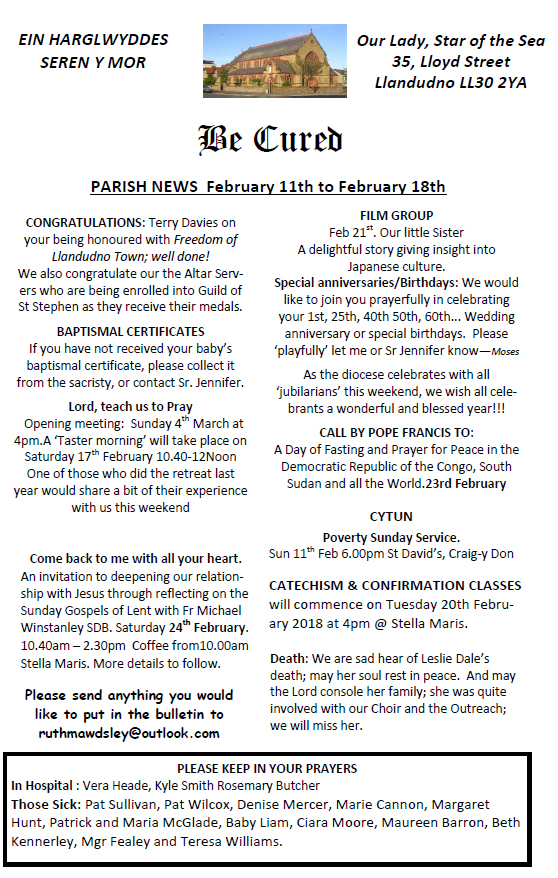
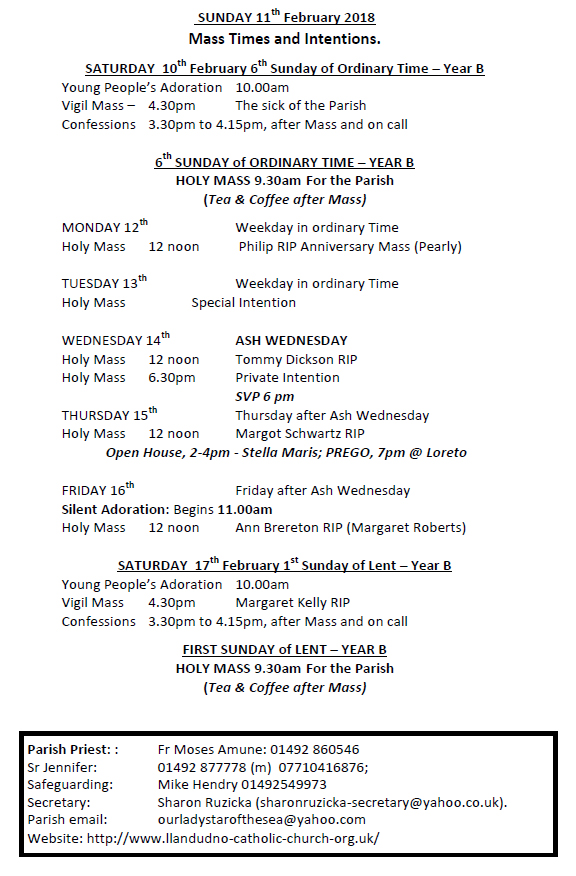
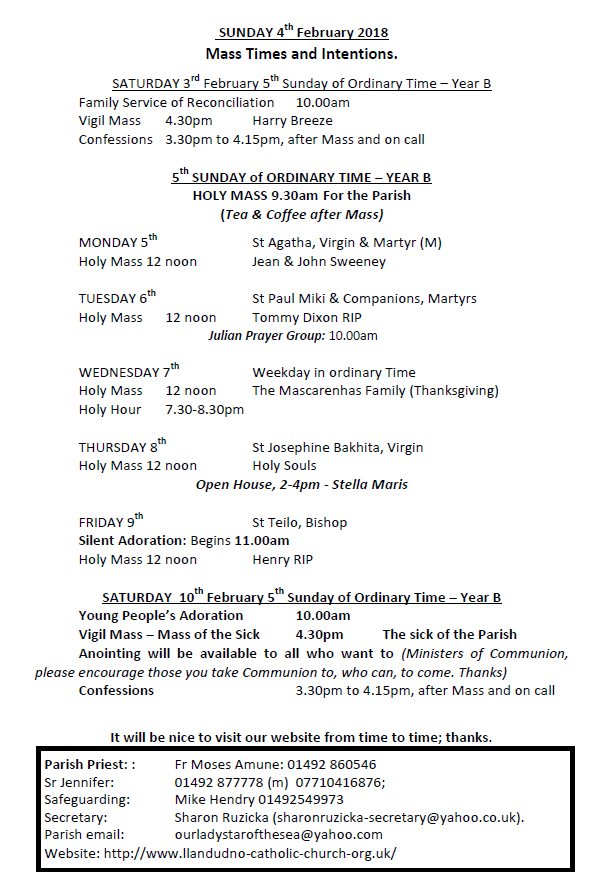
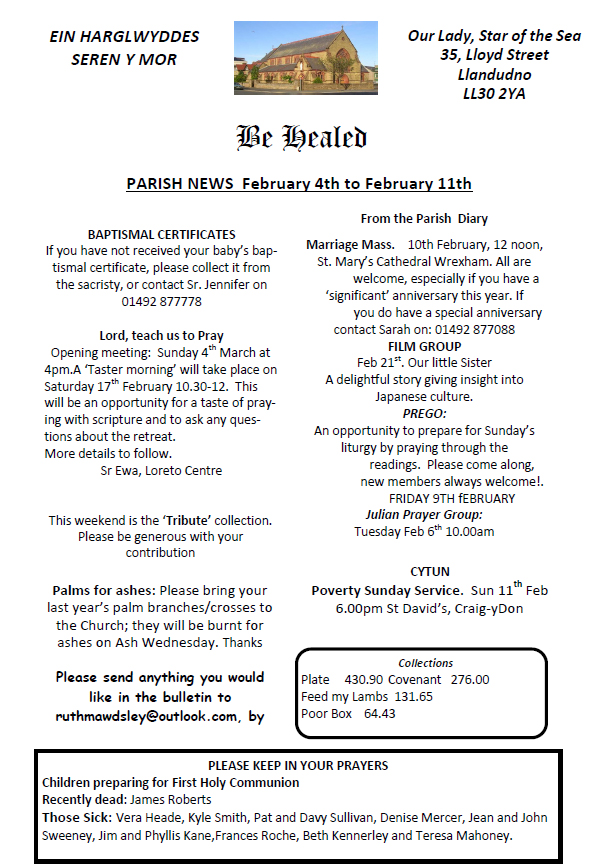
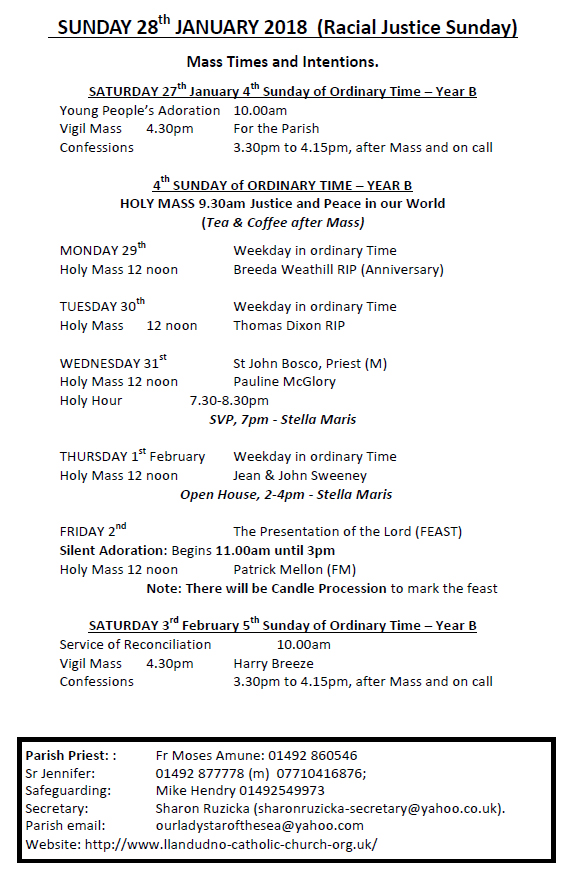
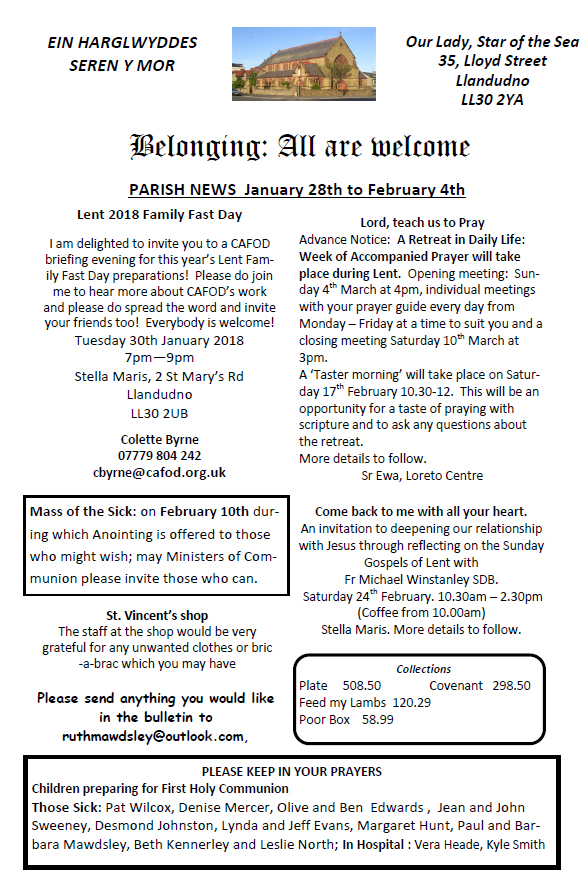
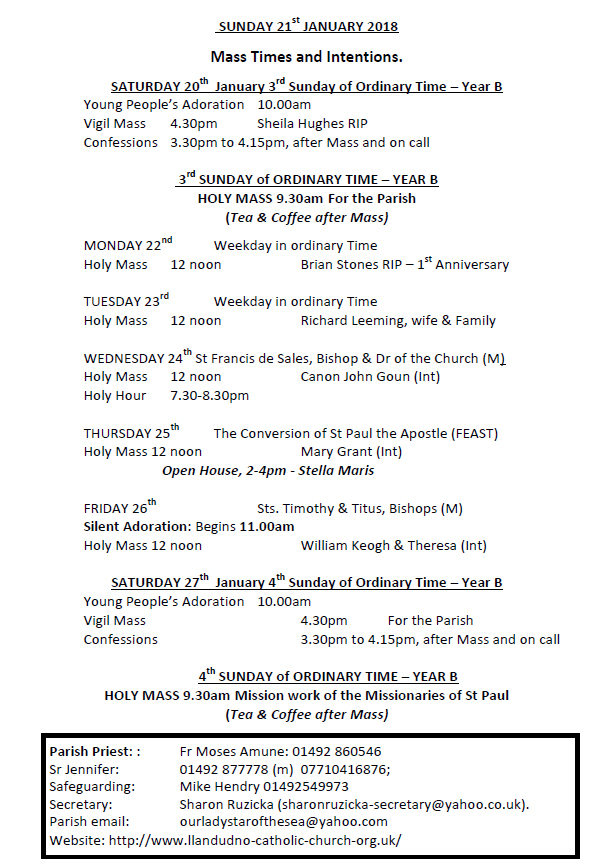
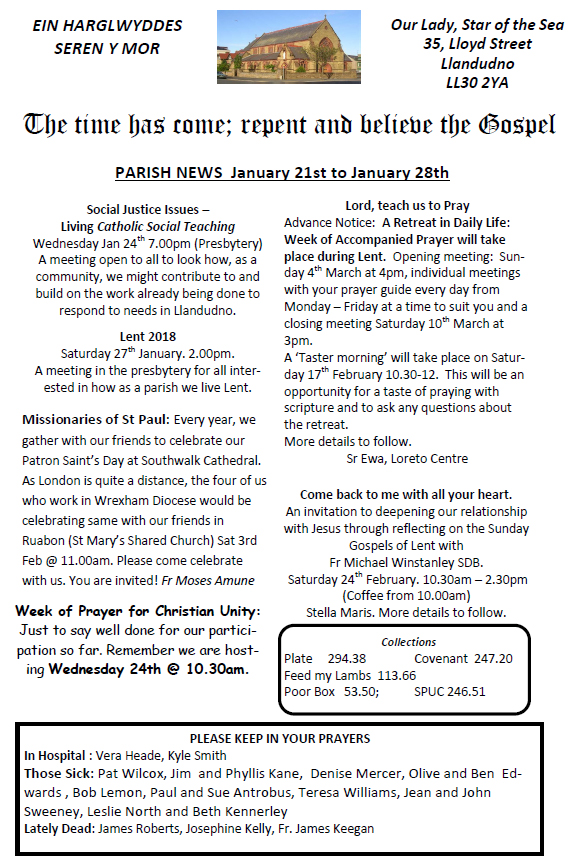
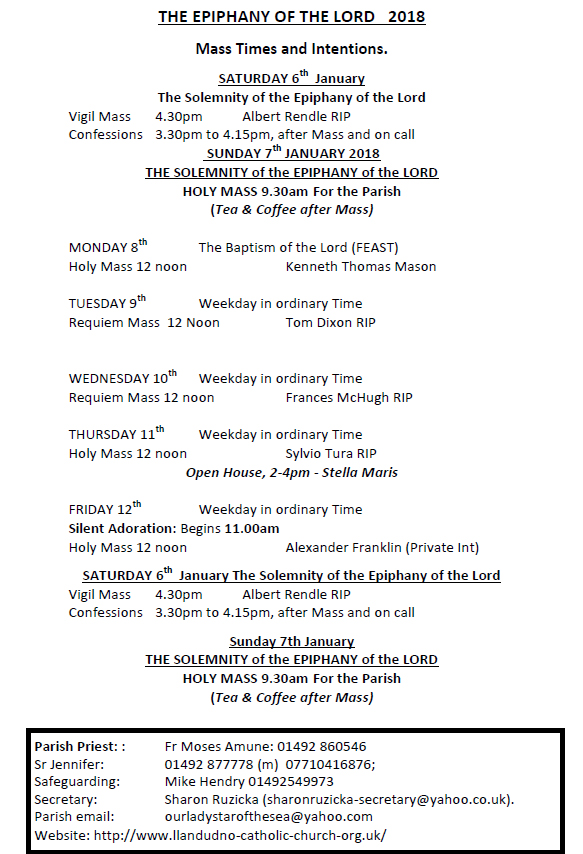
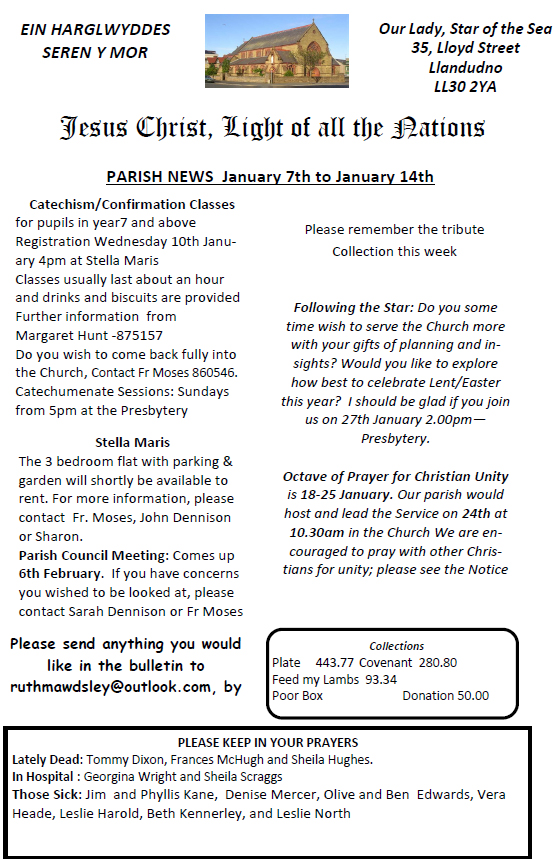
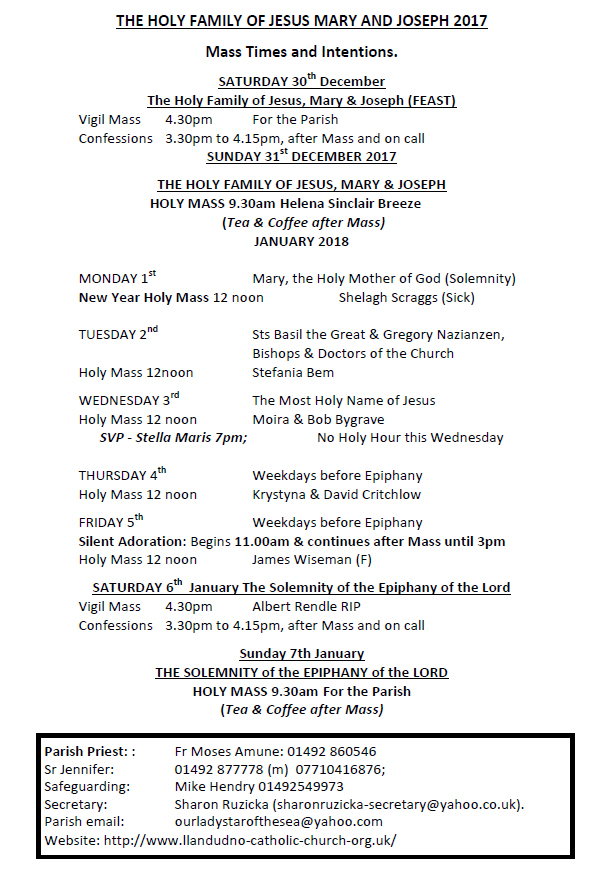
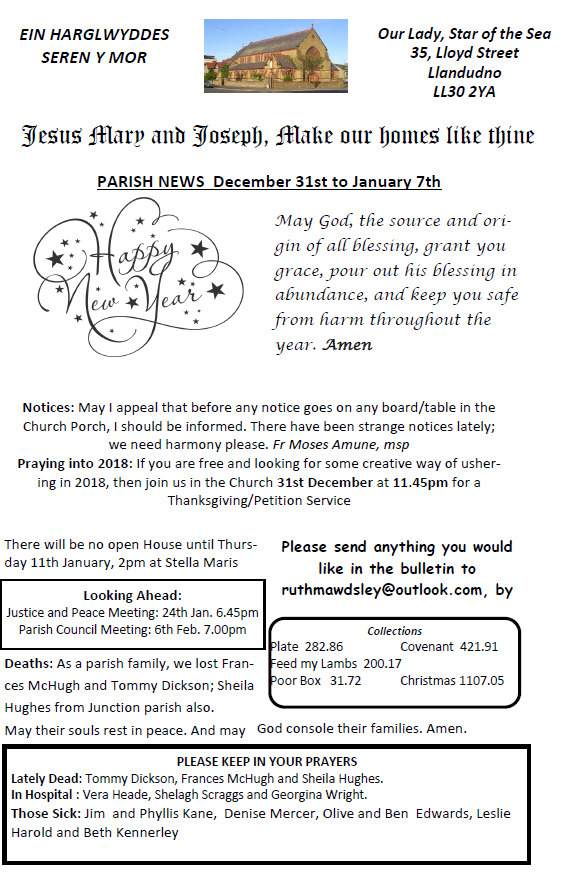
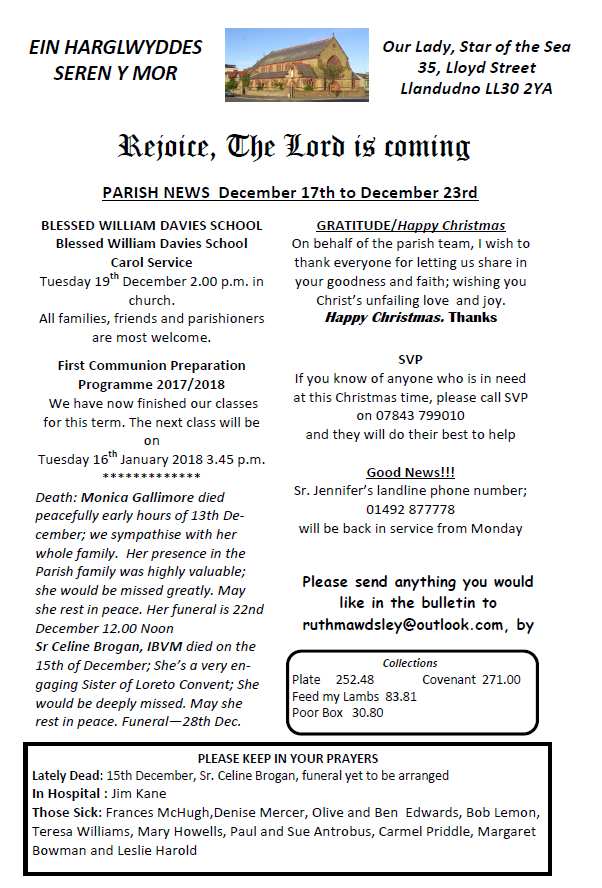

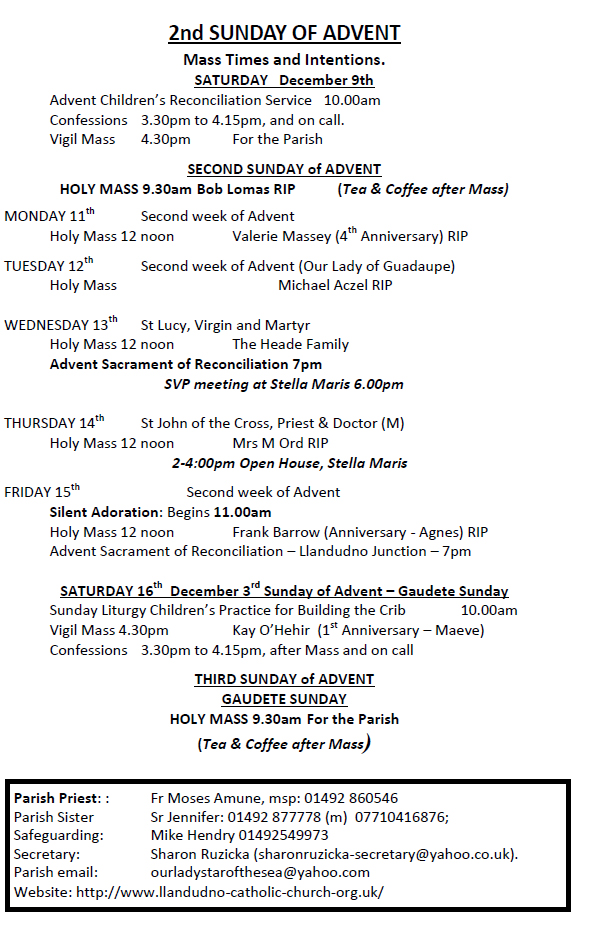
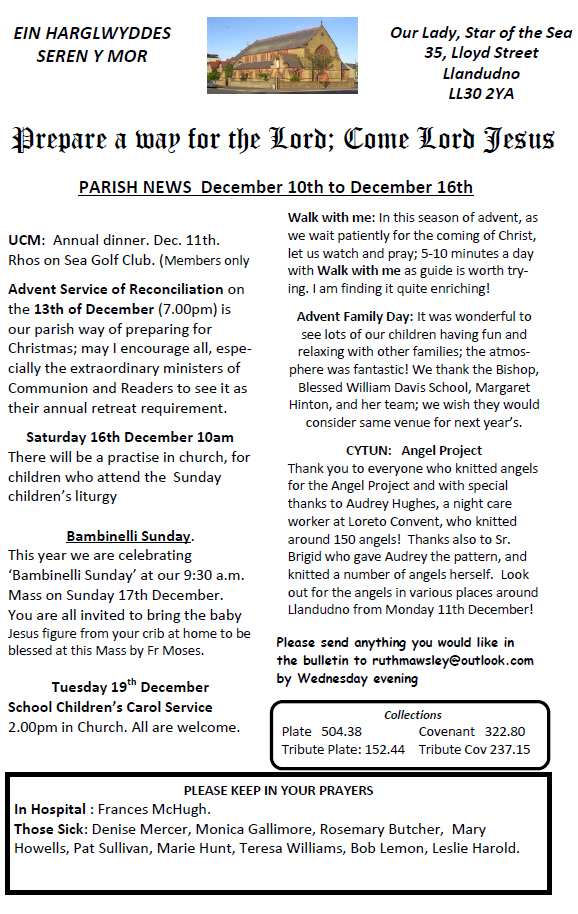
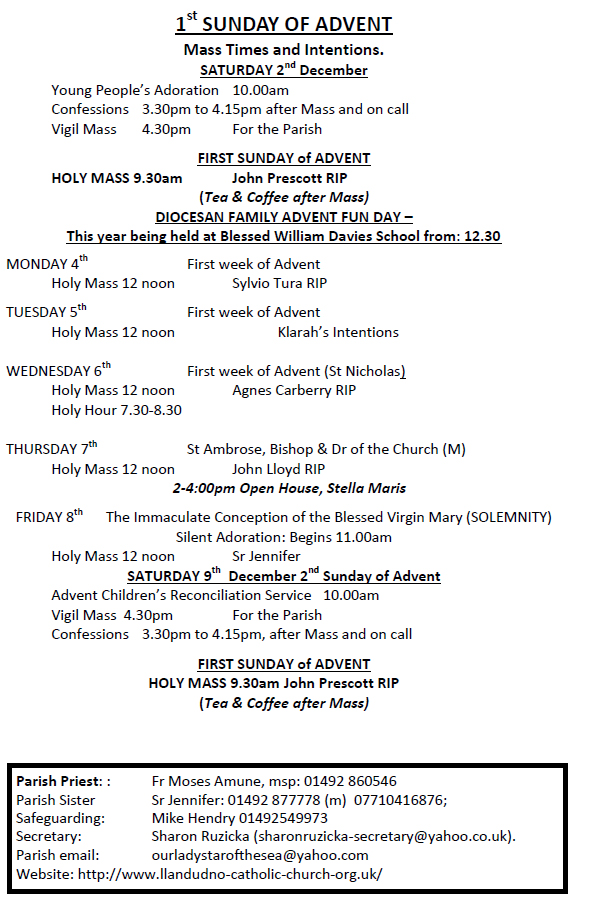
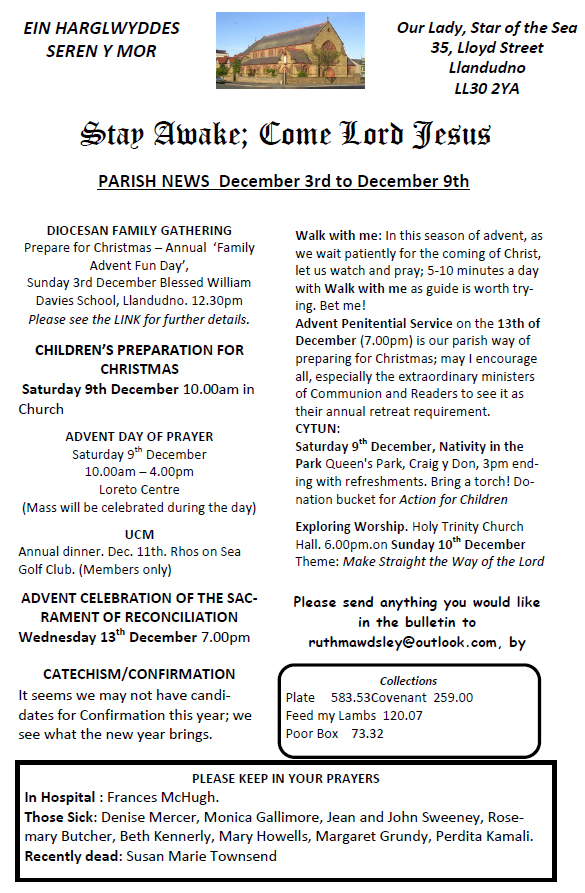
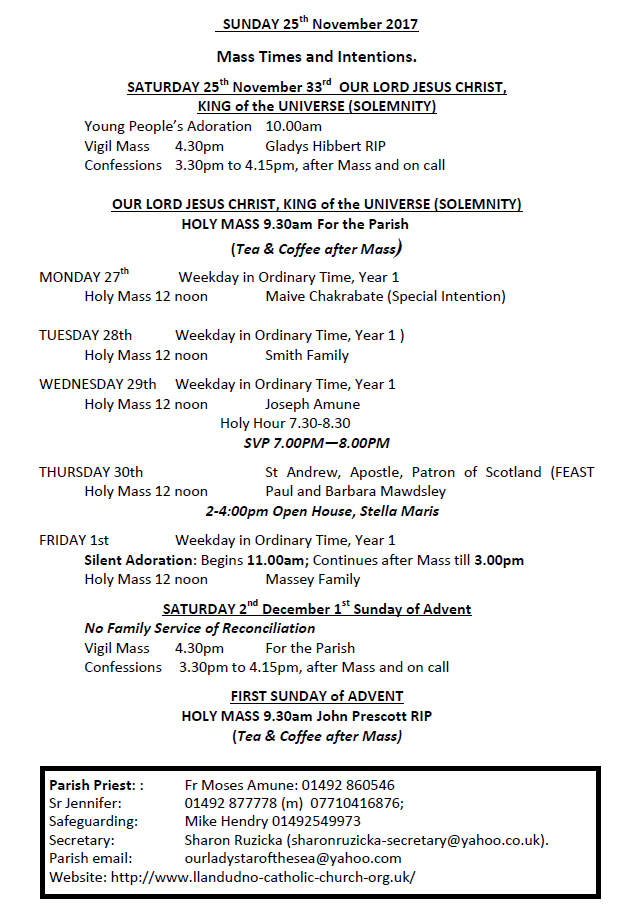
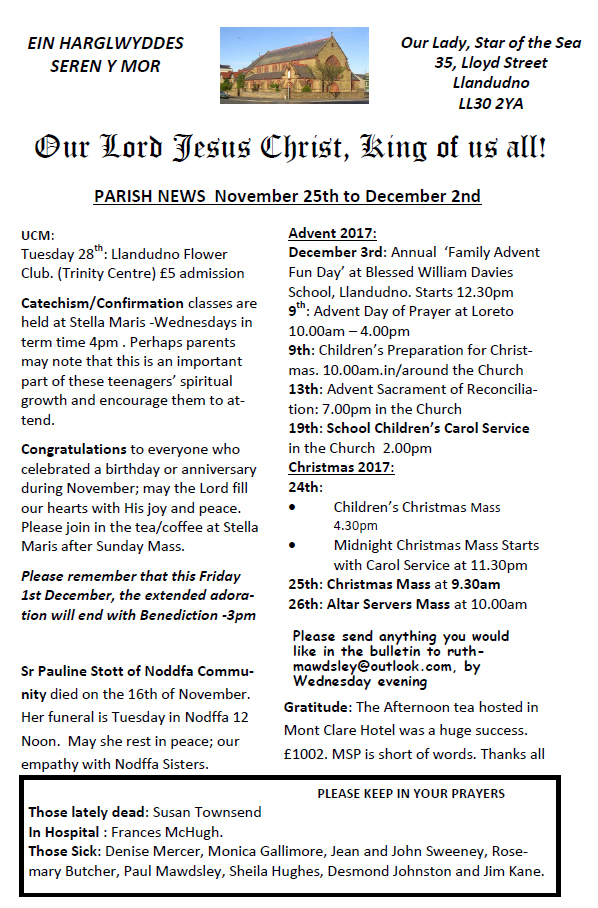
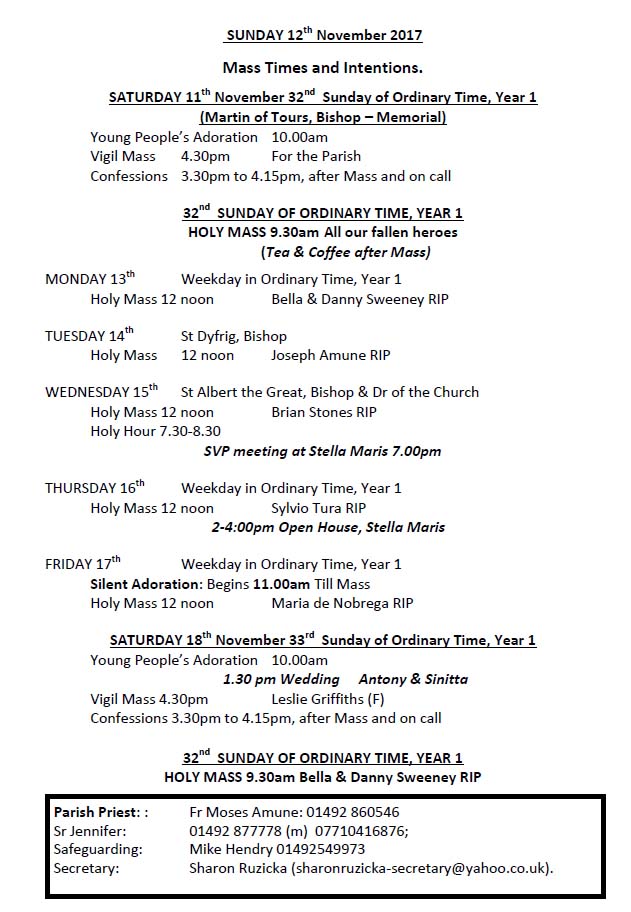
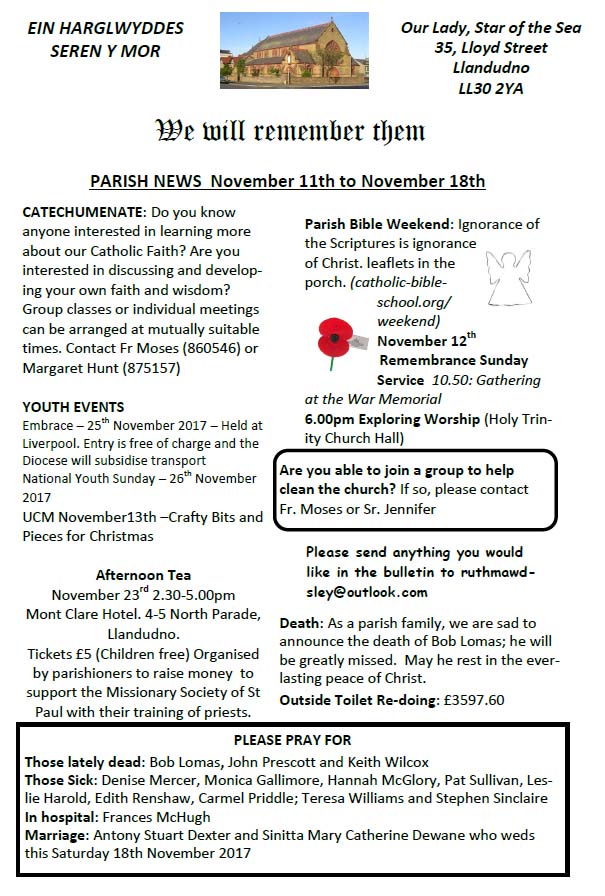

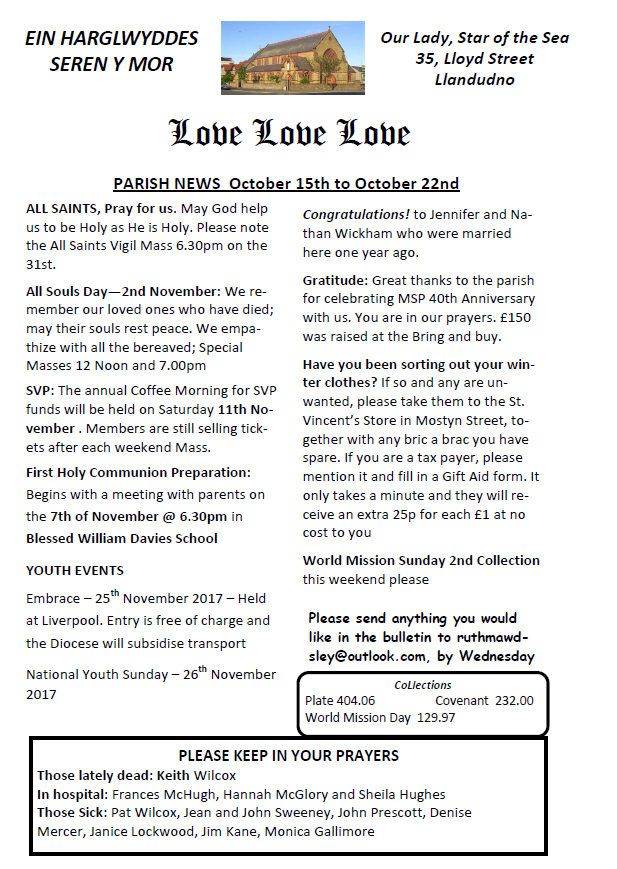
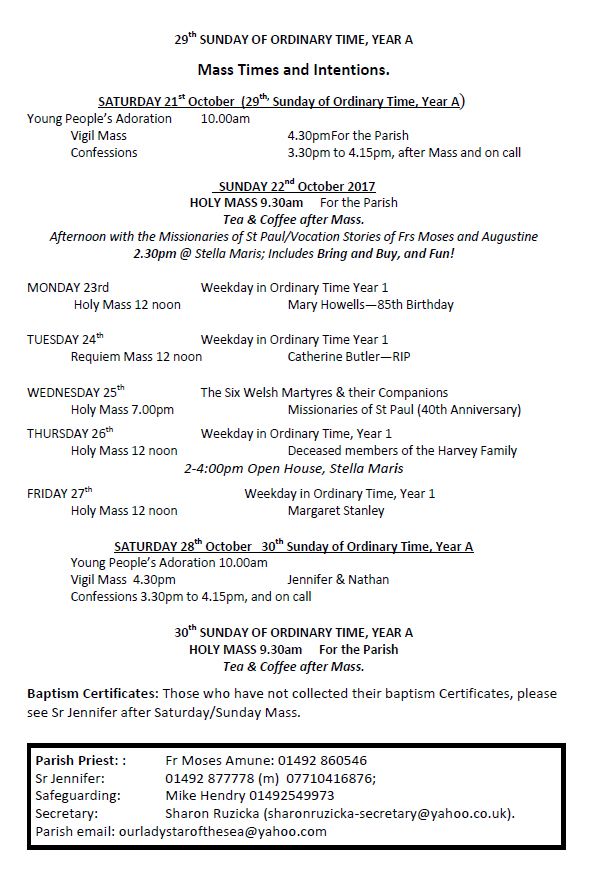
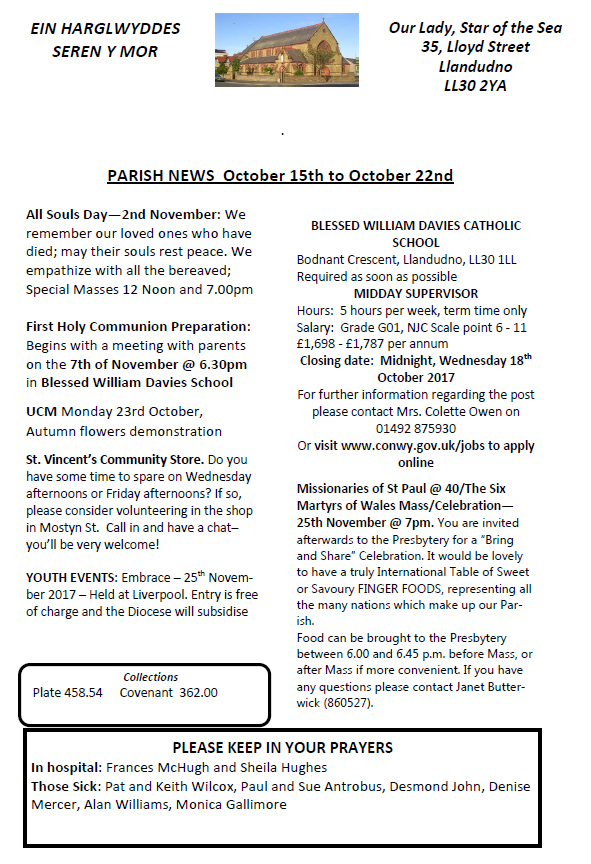
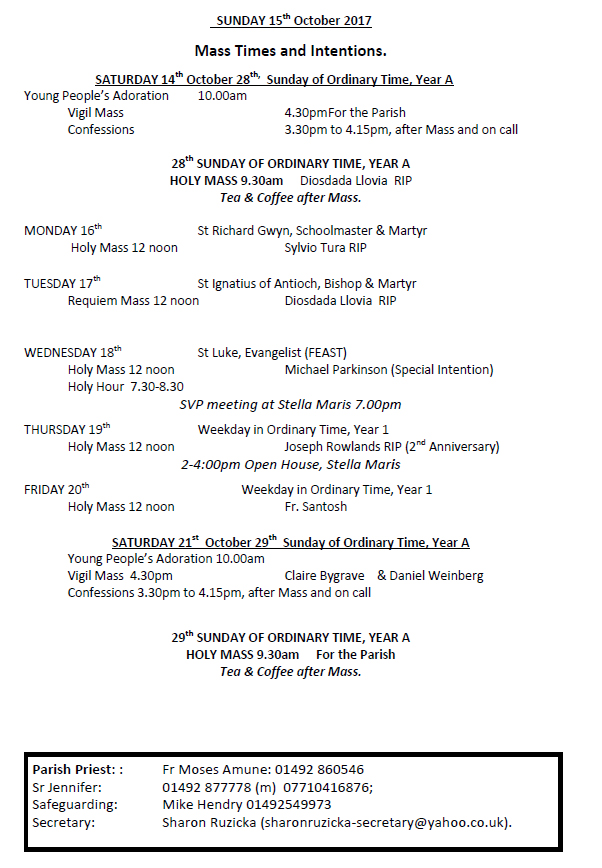
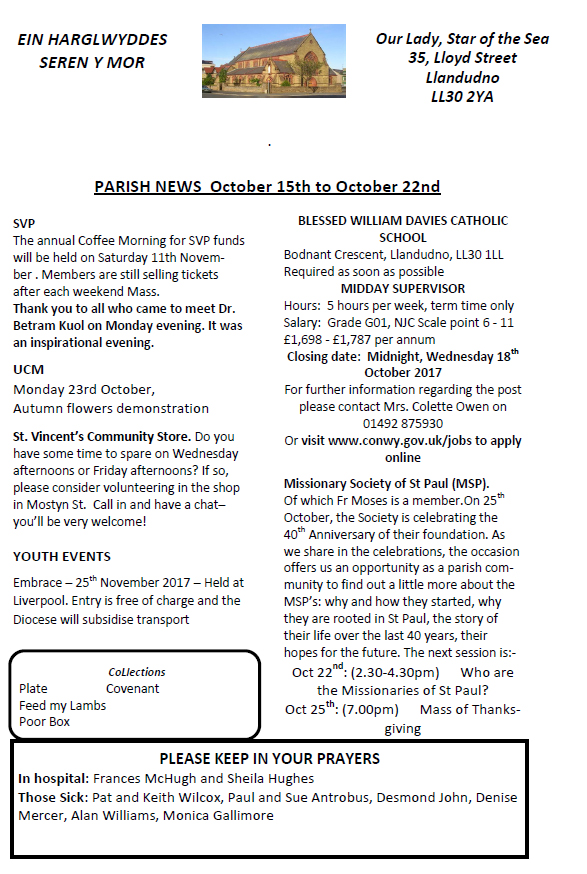
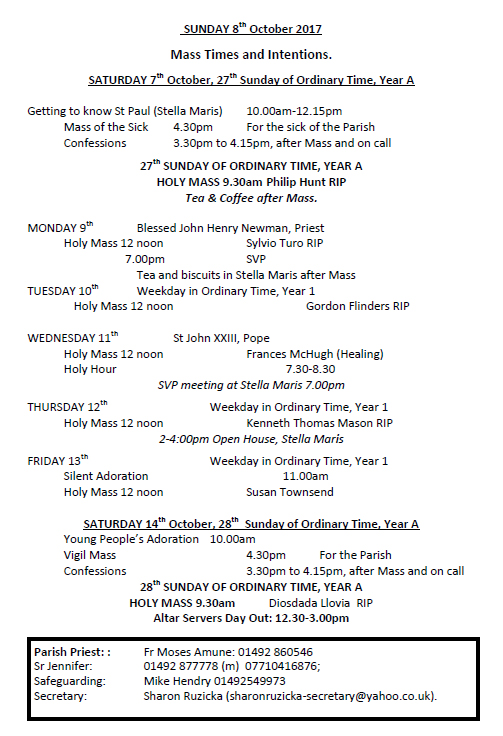
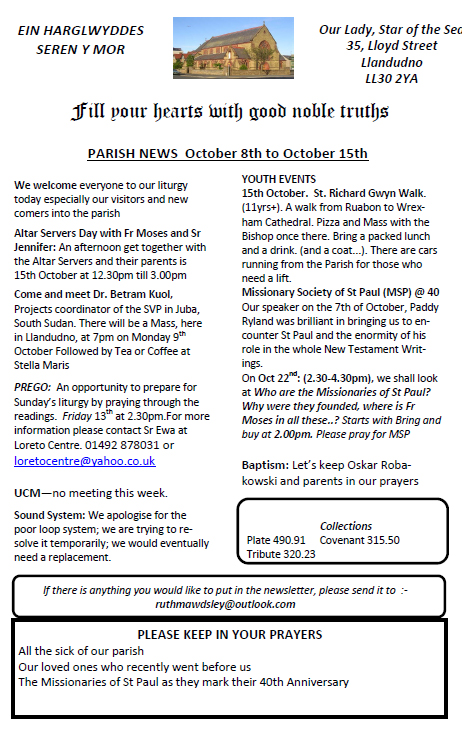
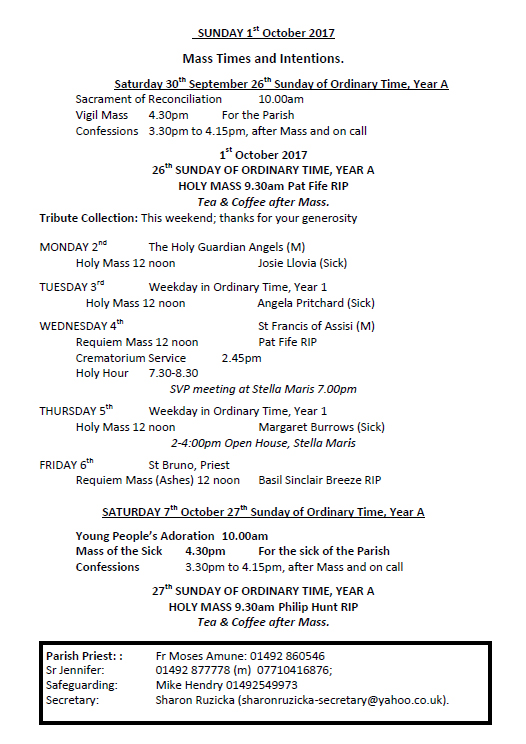
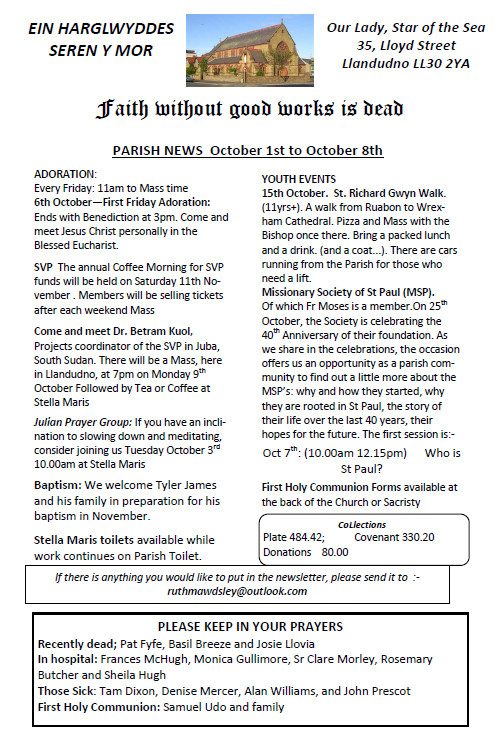
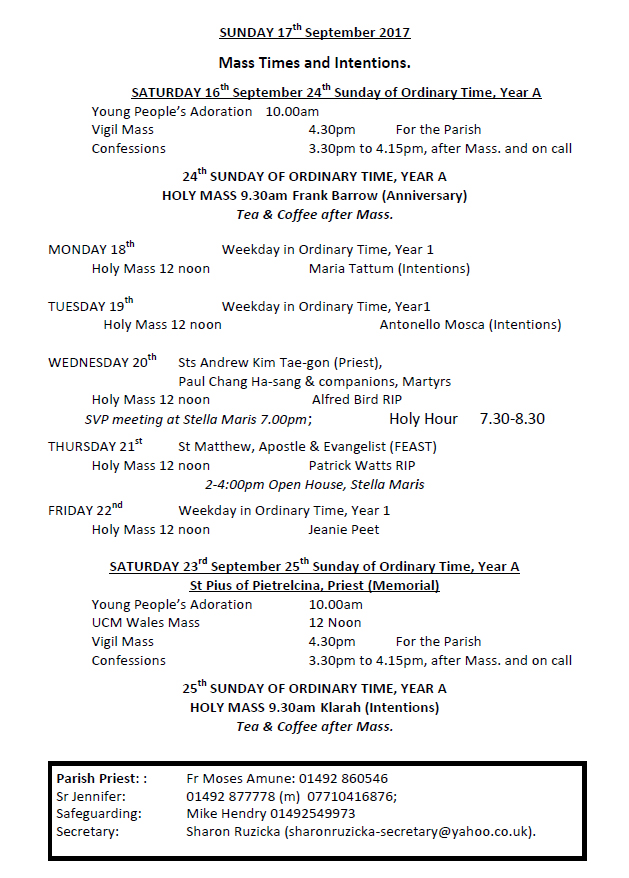
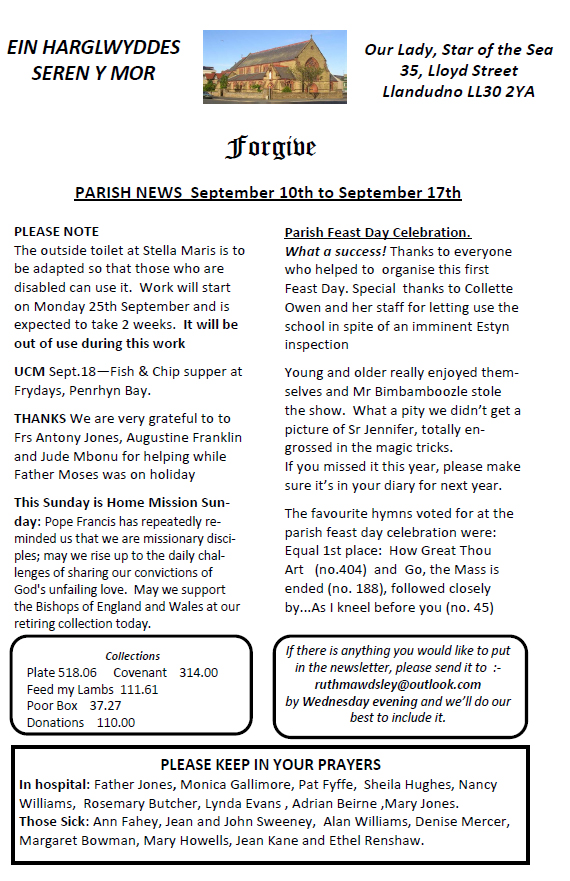
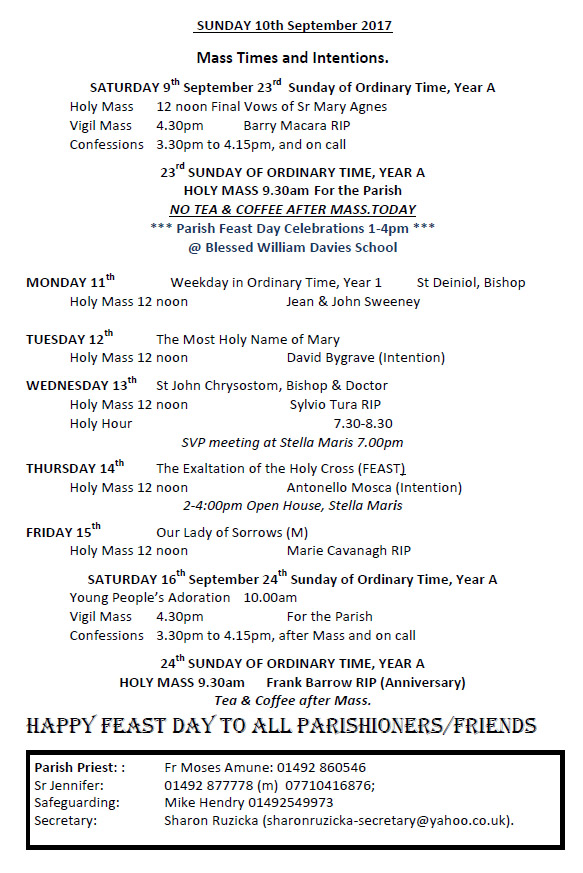
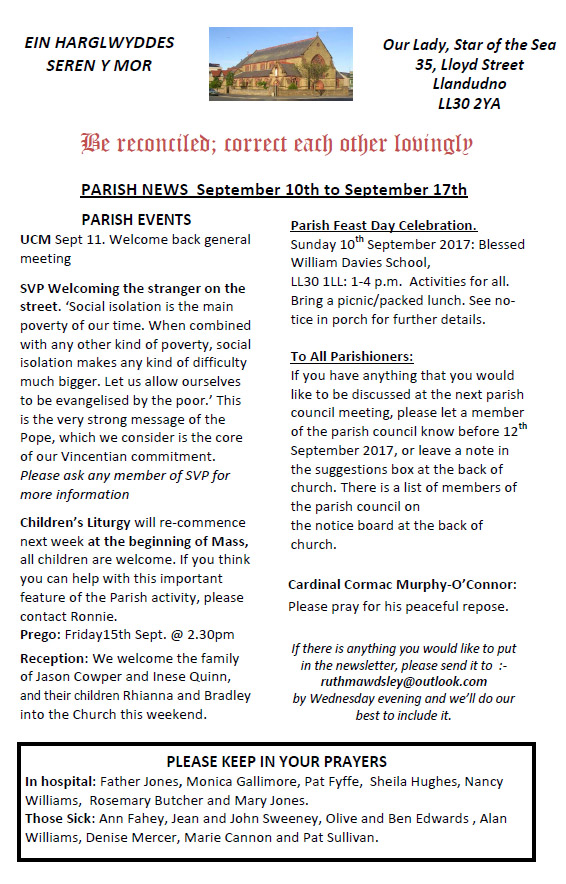
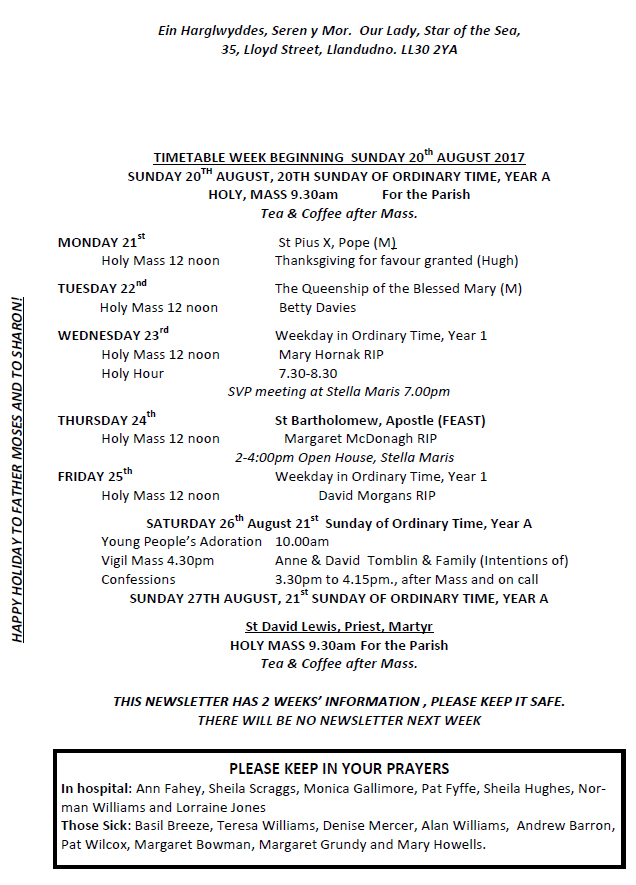
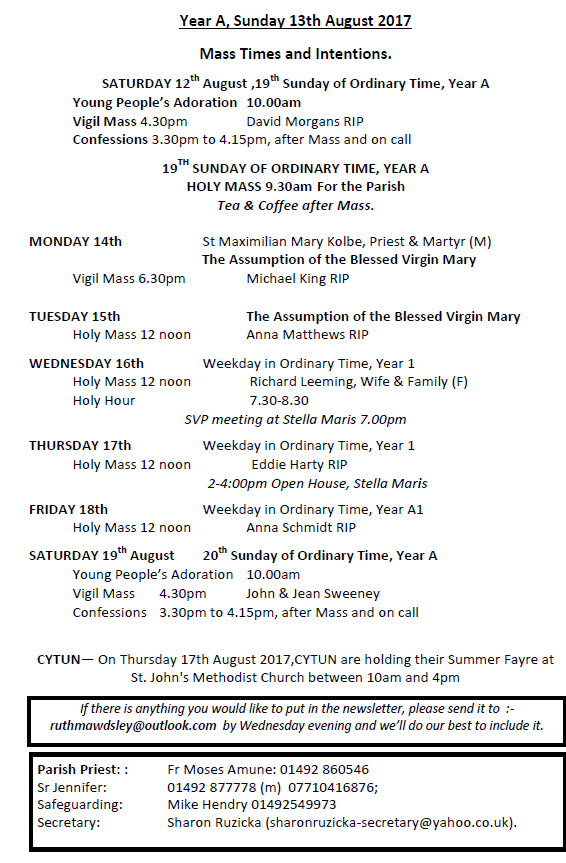
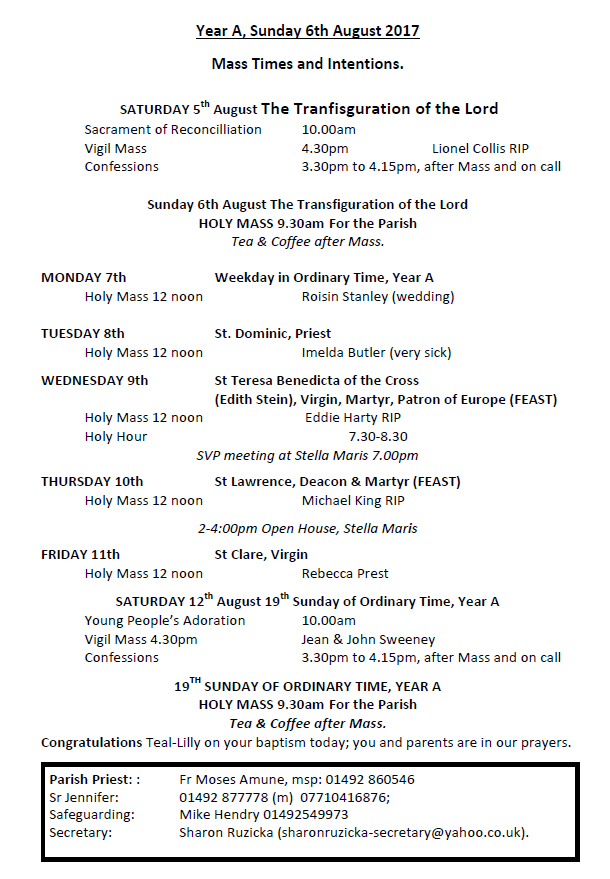
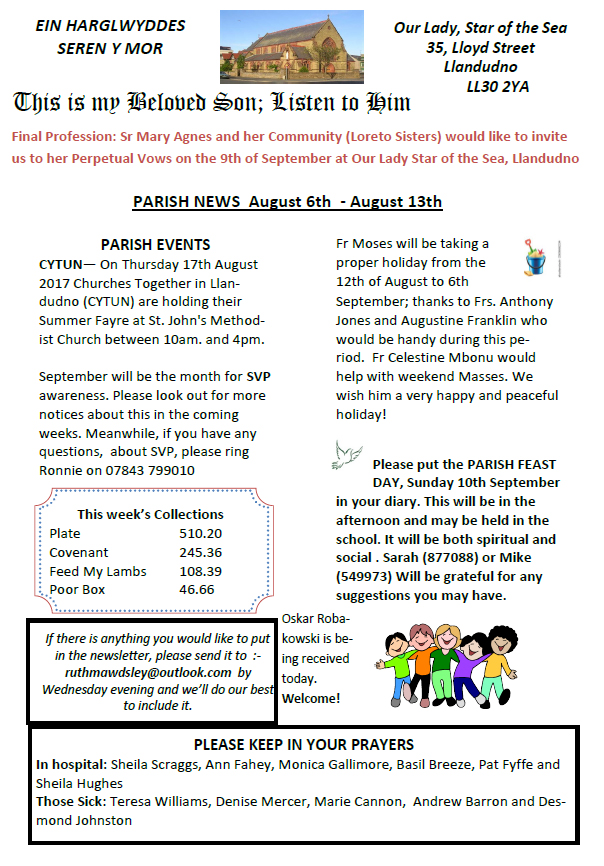
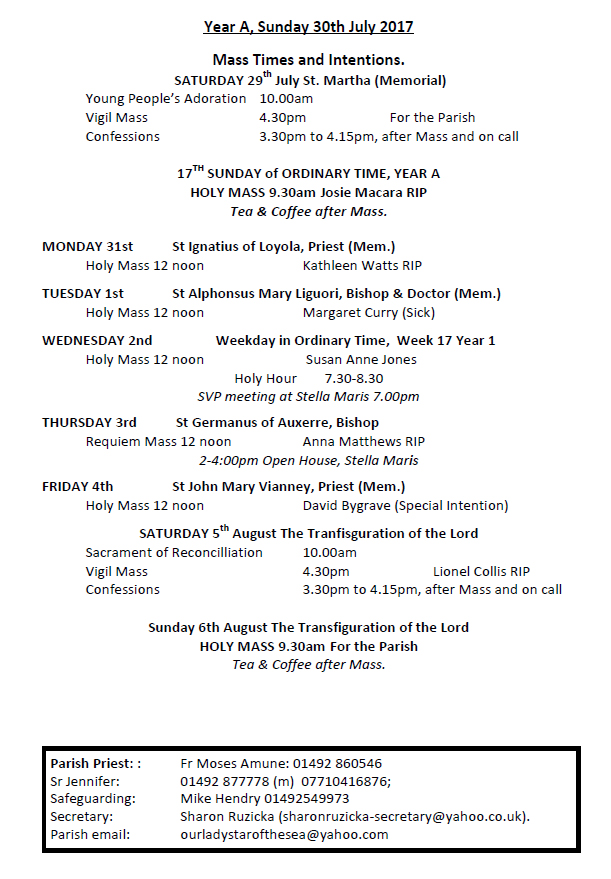
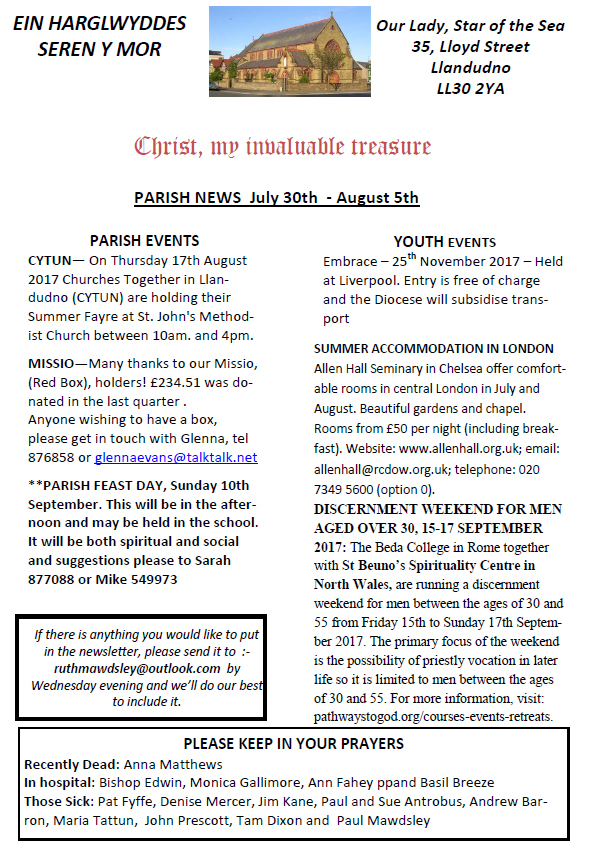

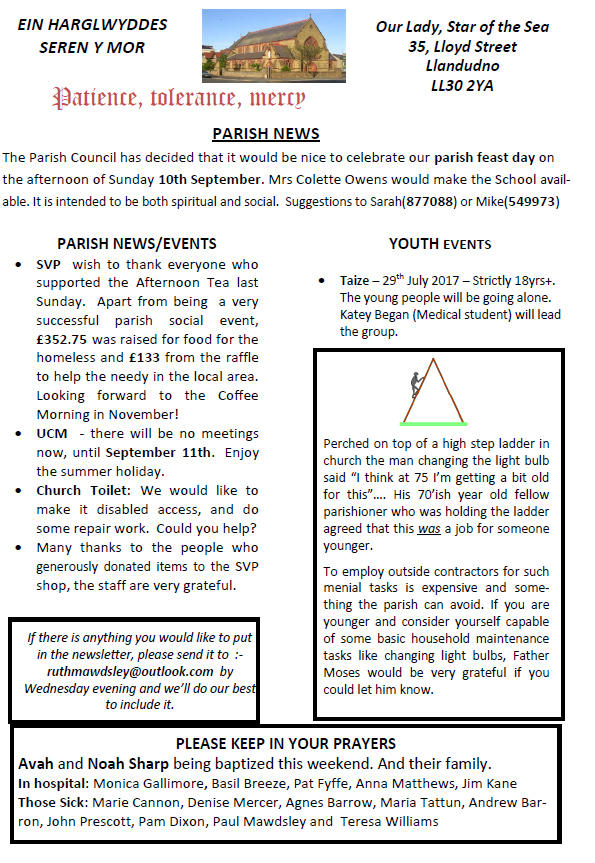
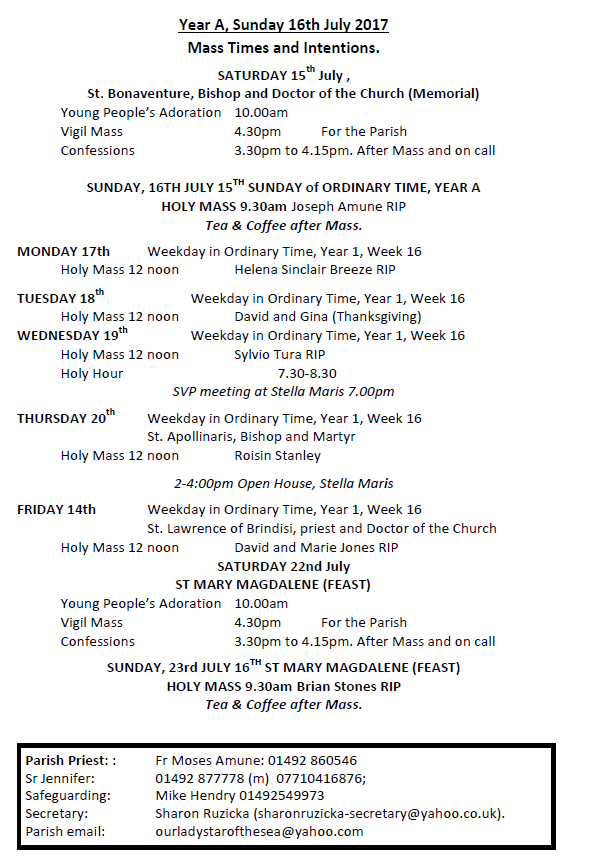
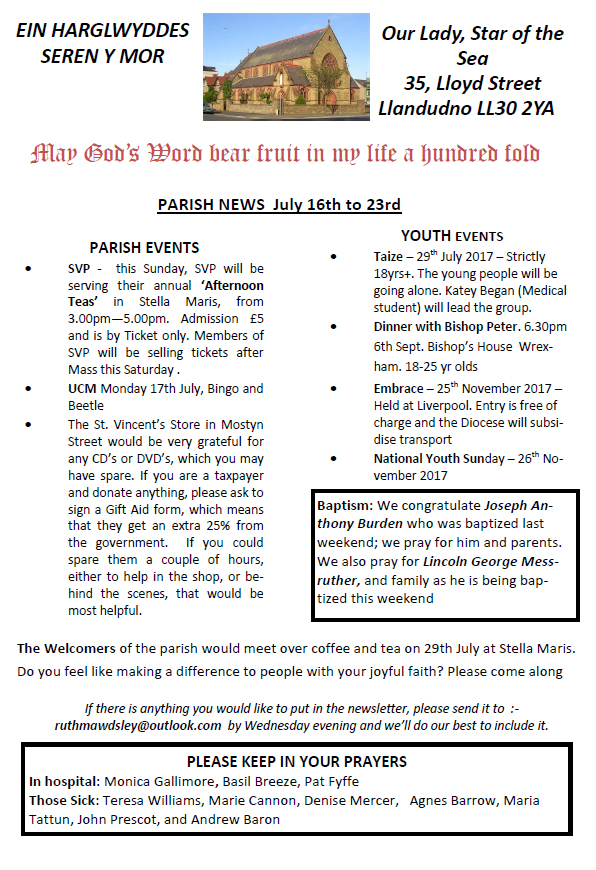
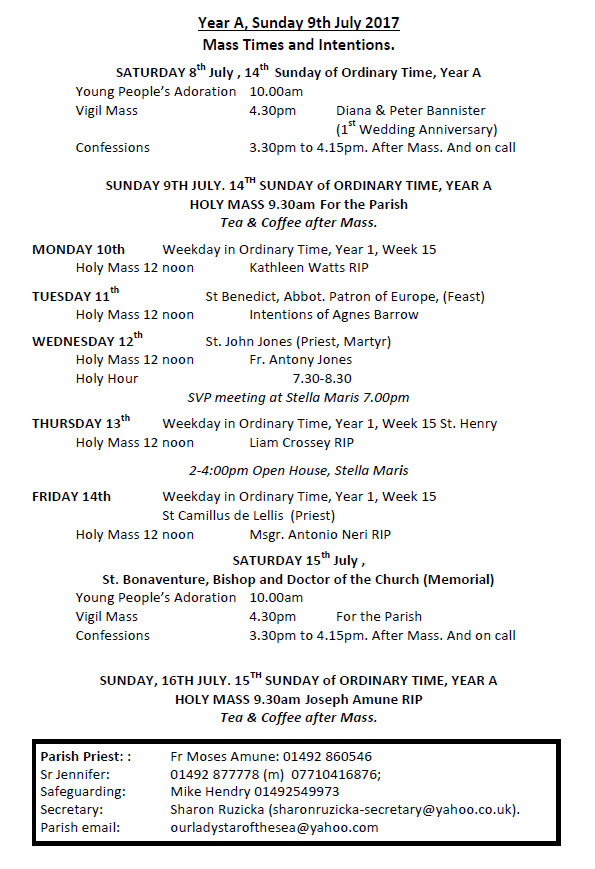
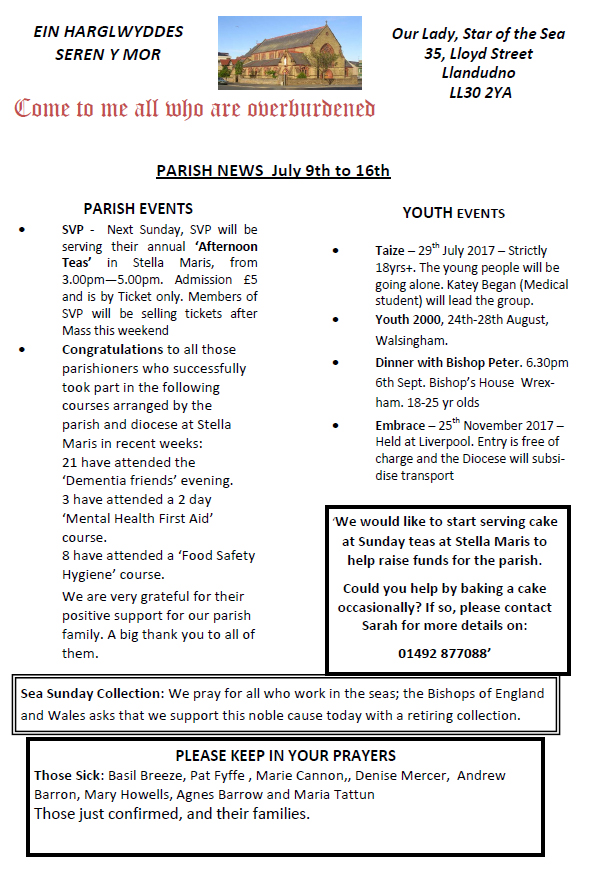
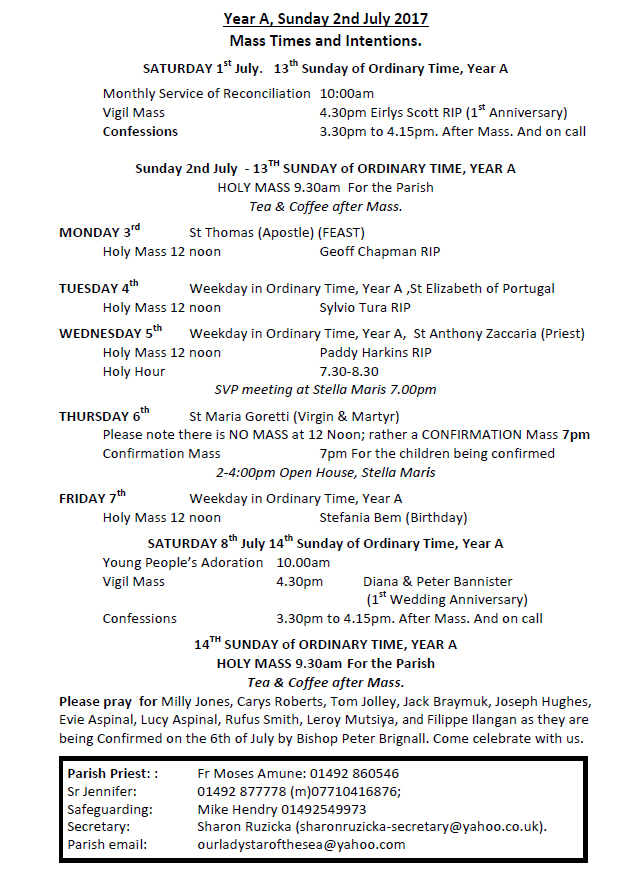
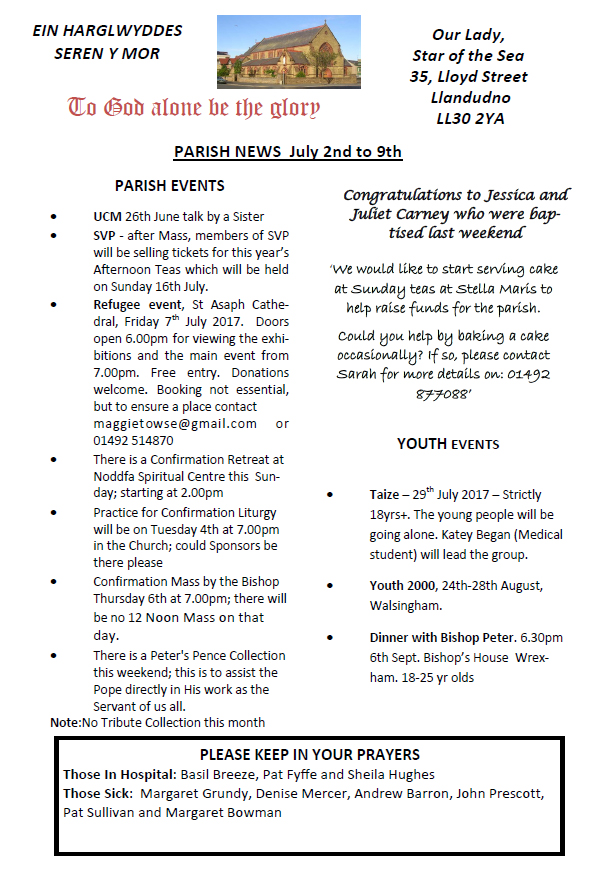

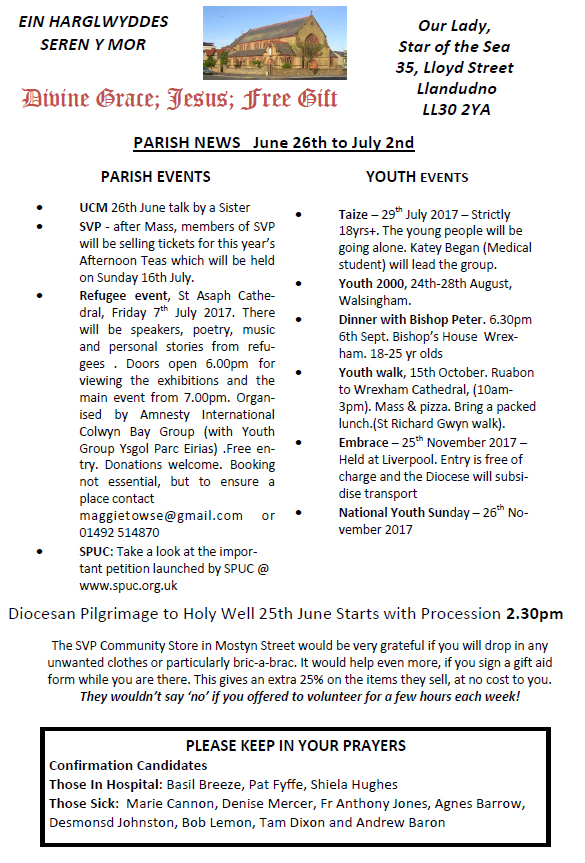
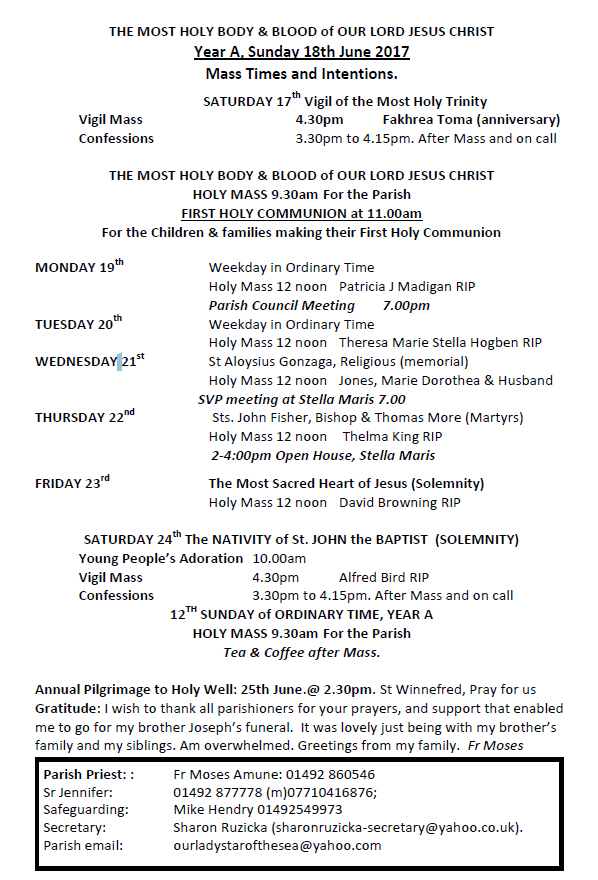
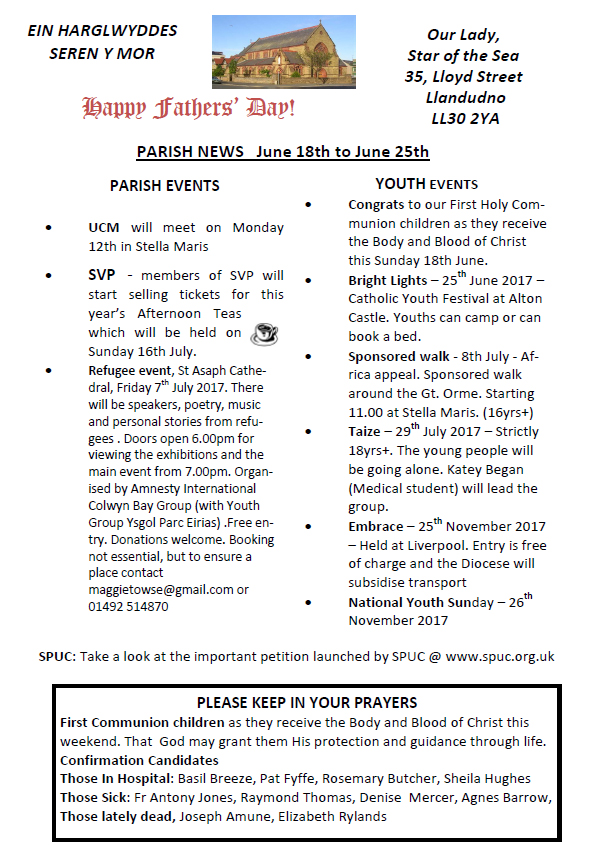
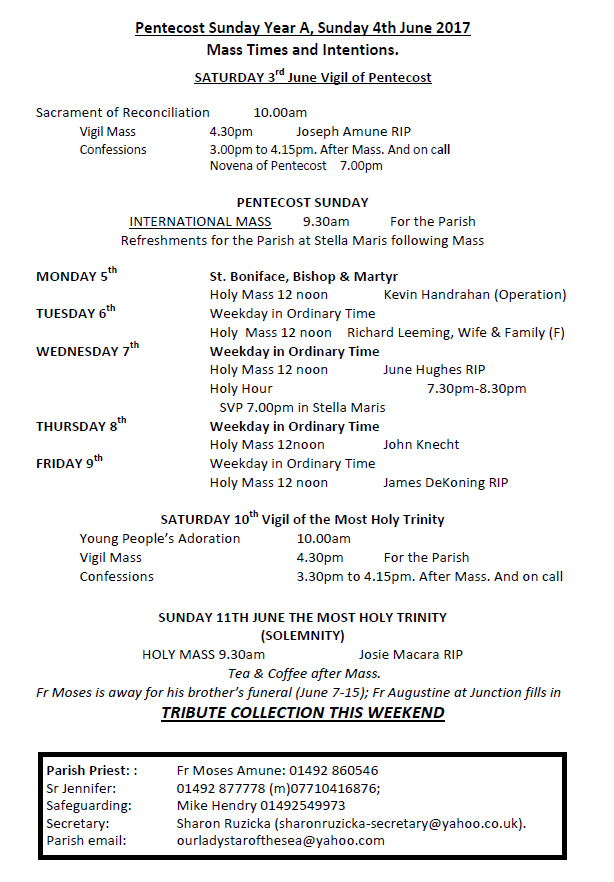
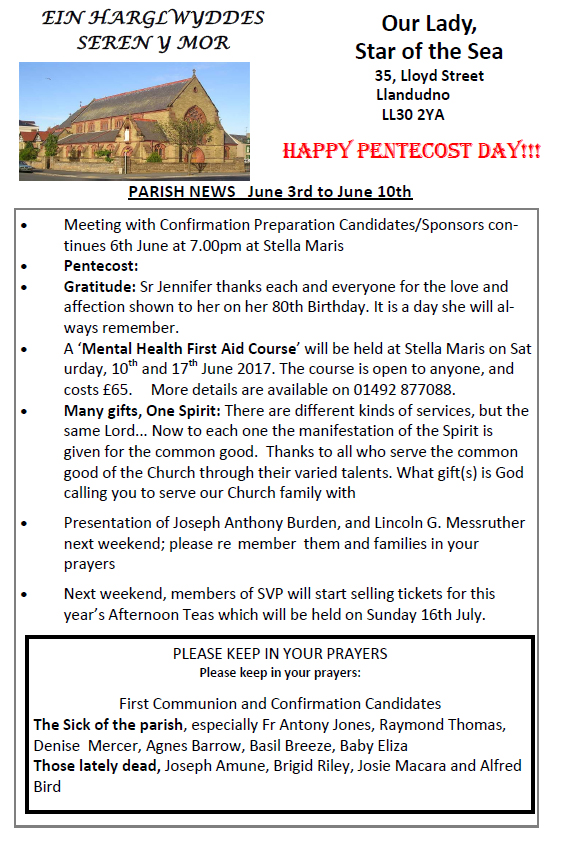
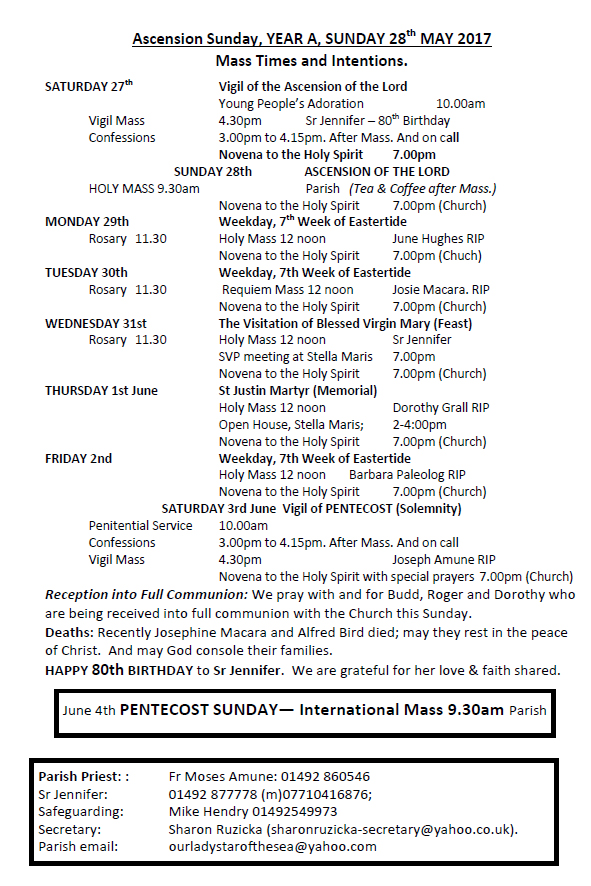
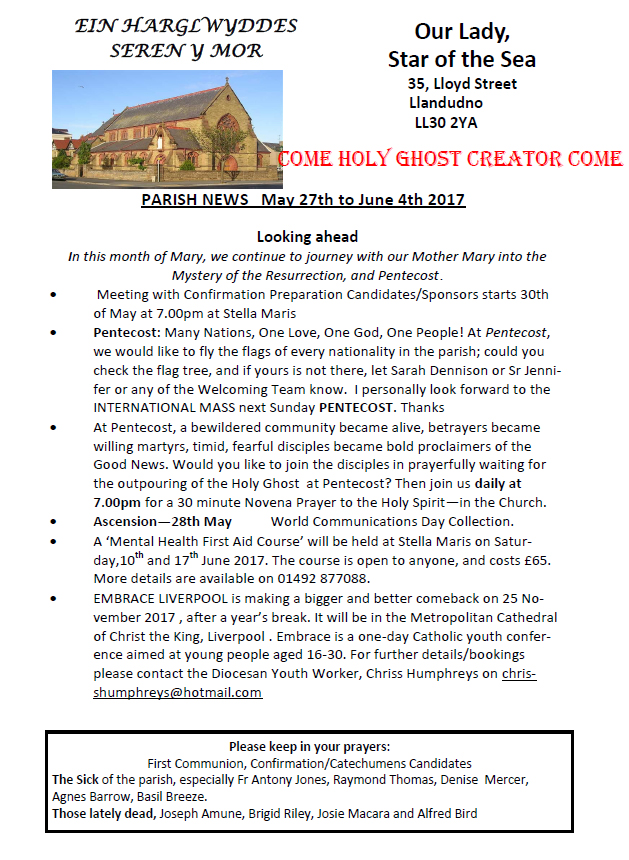
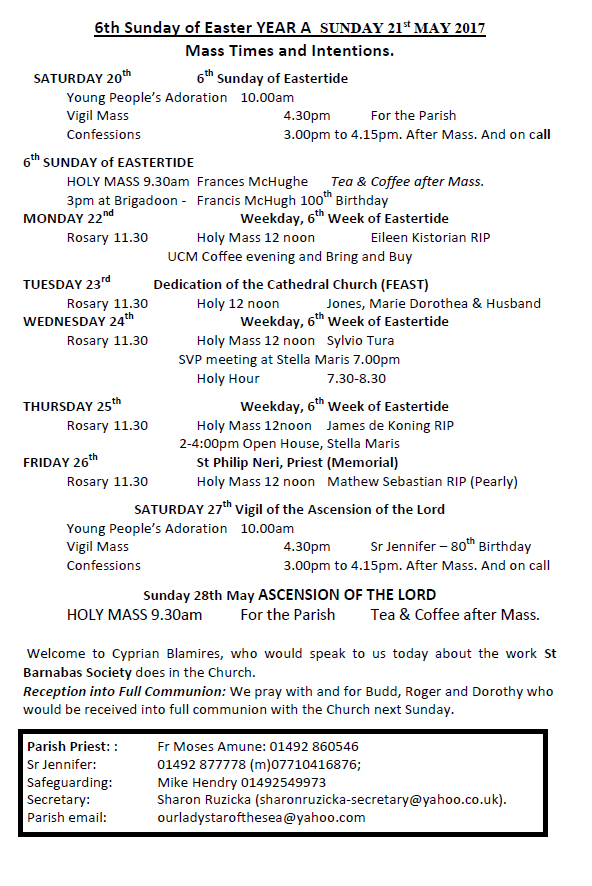
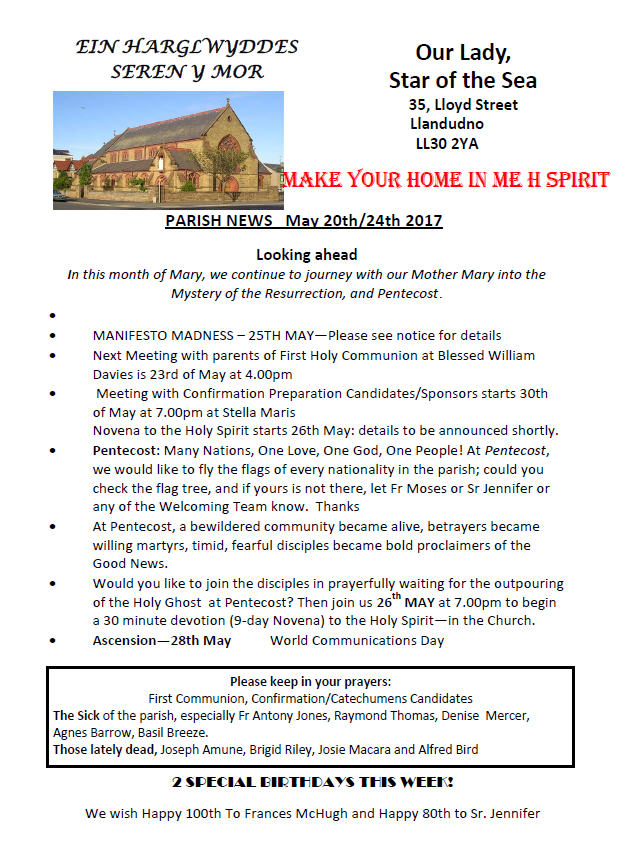
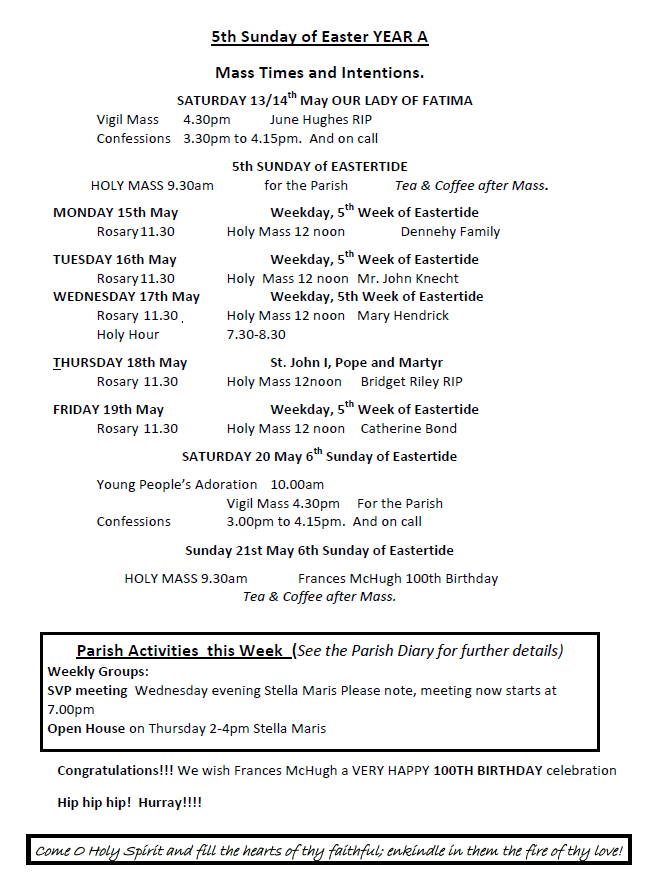
Please click here to complete the Mega Youth Poll ( For people aged between 13-19 years old)
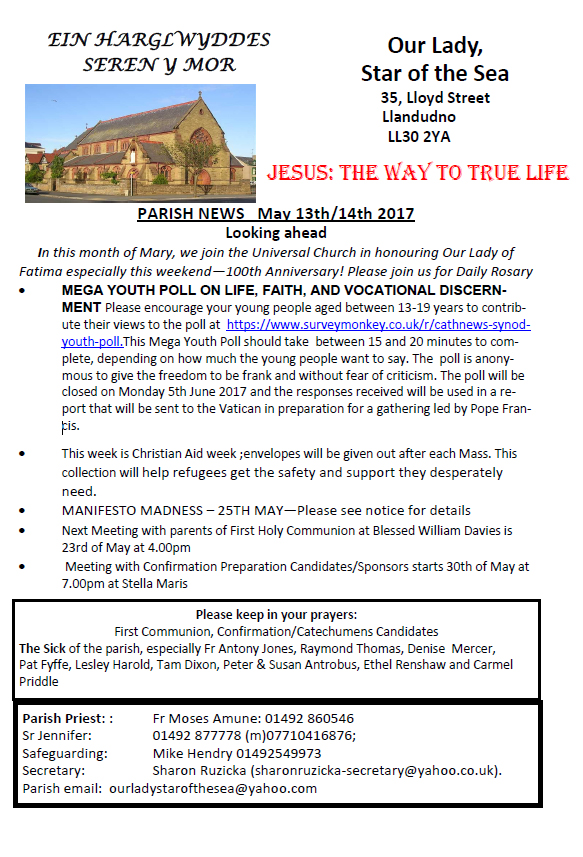
Please click here to complete the Mega Youth Poll ( For people aged between 13-19 years old)
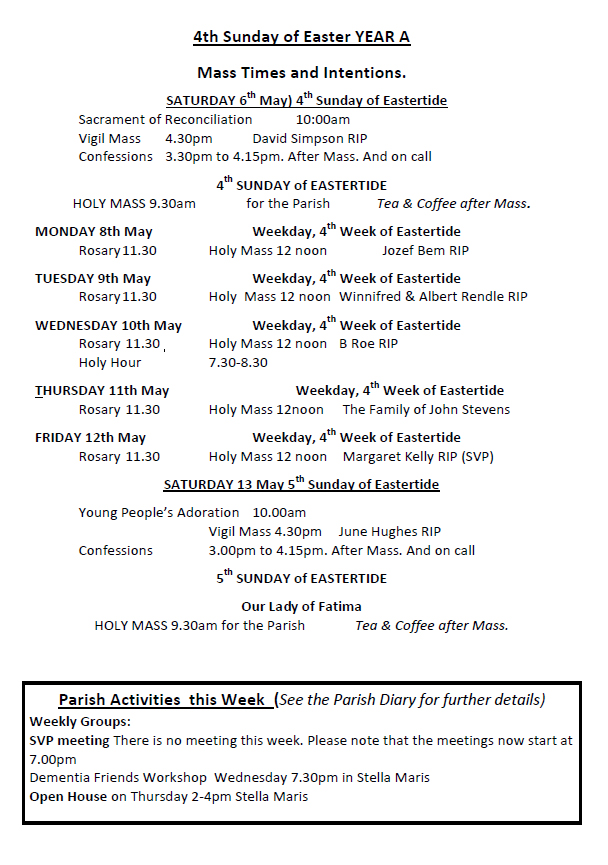
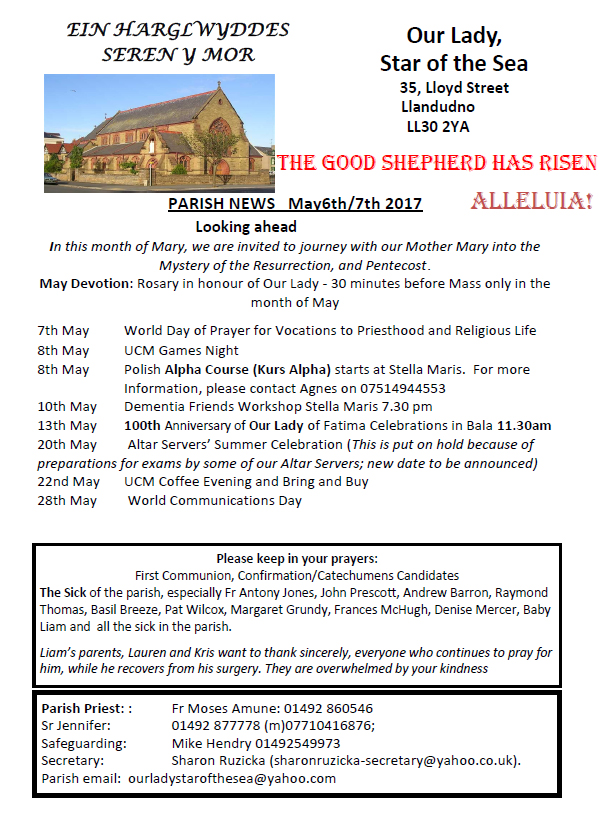
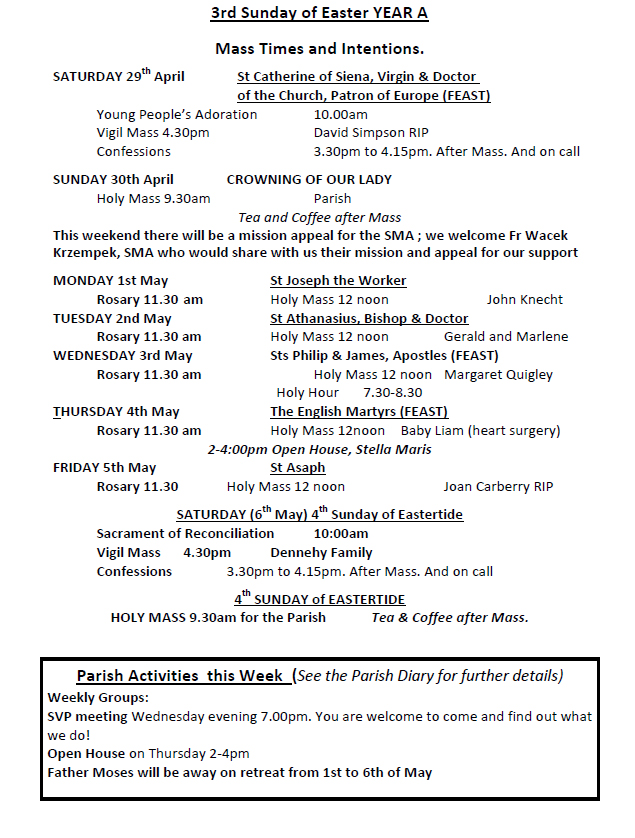
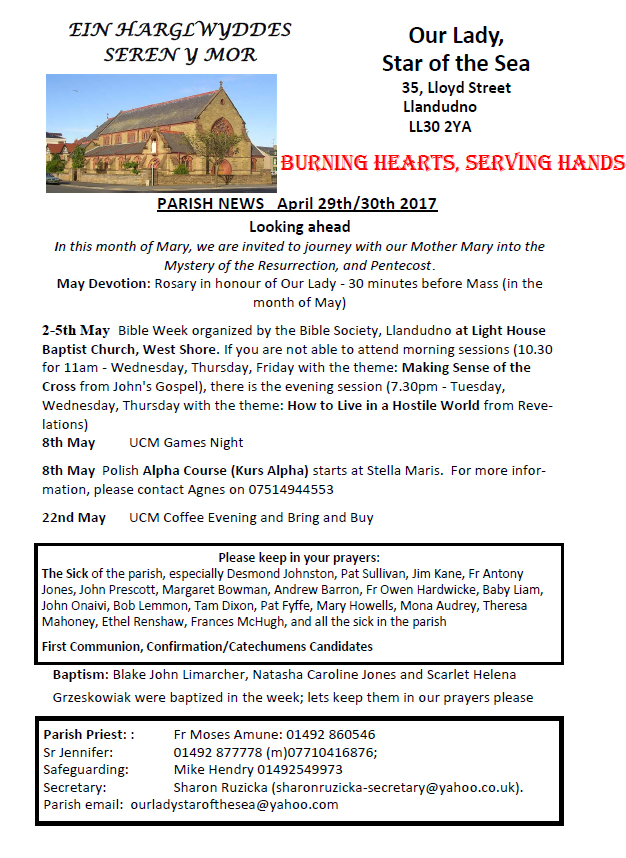
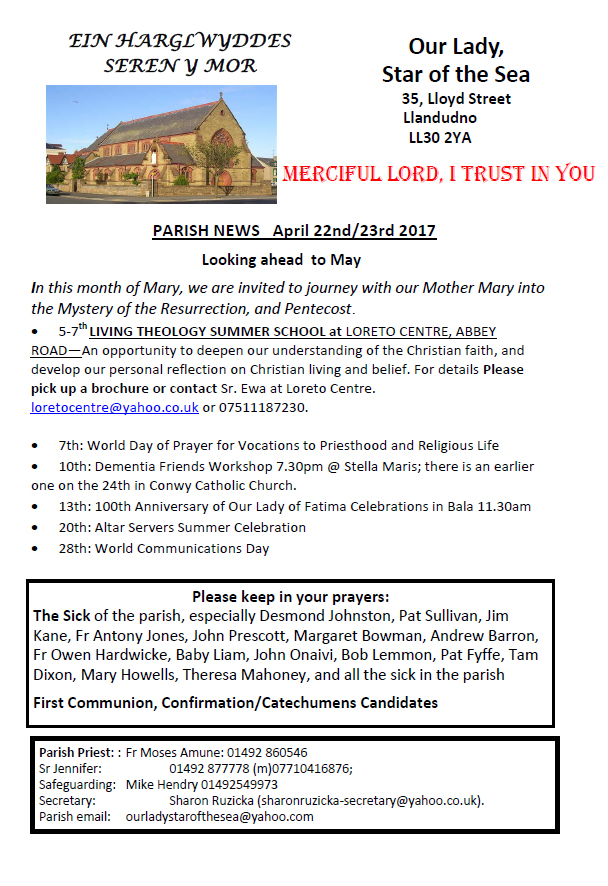
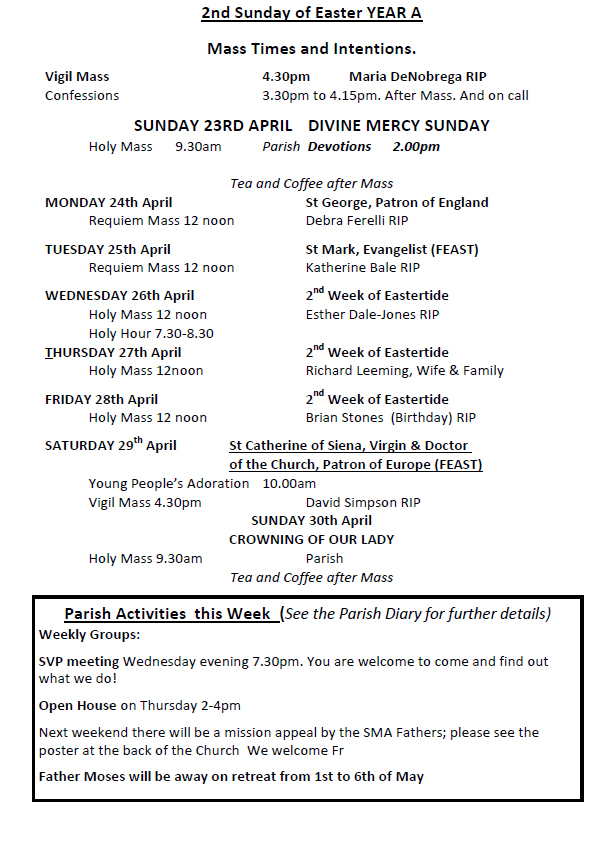
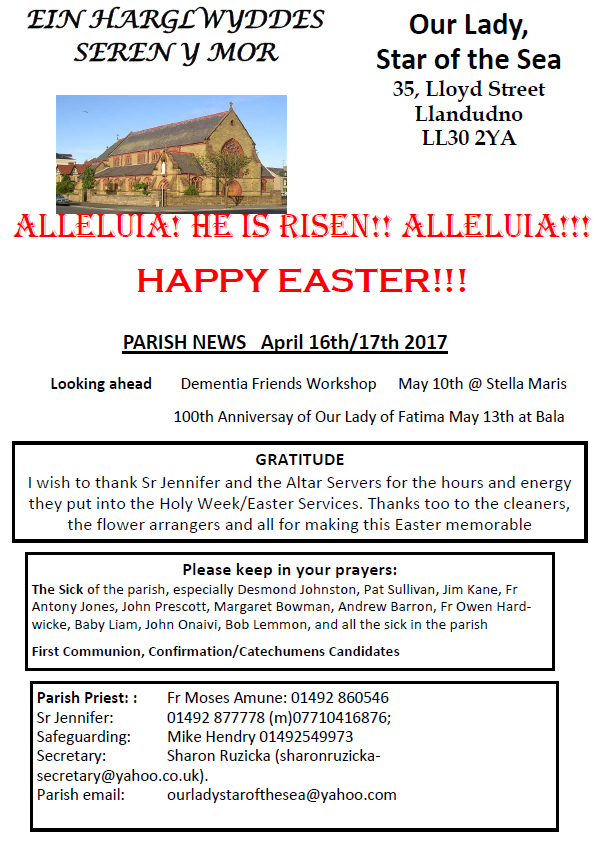
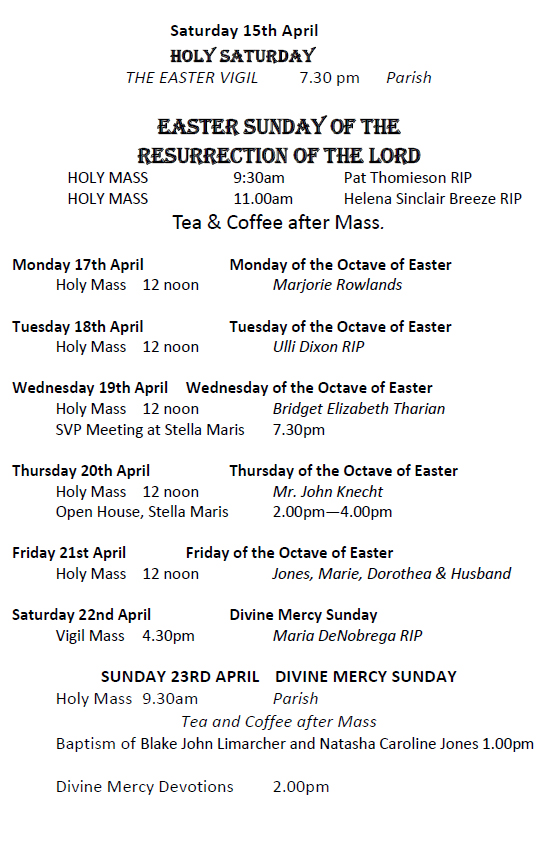
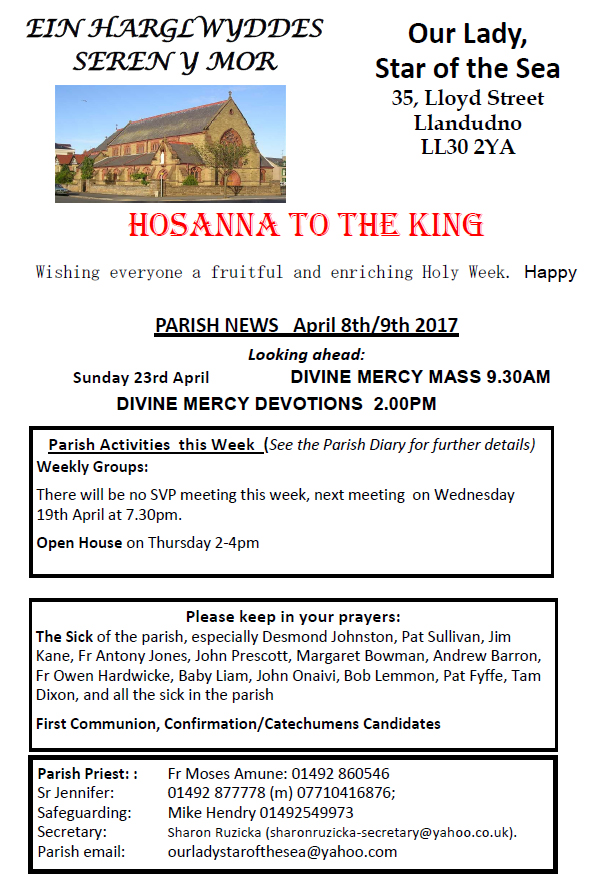
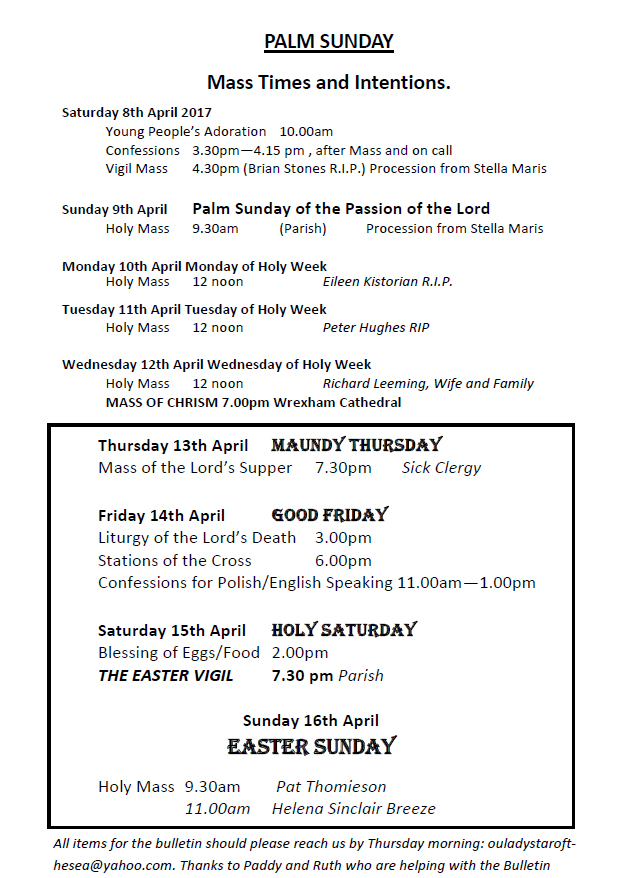
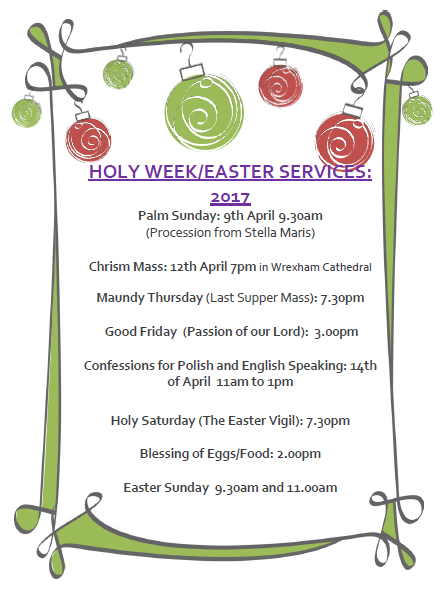
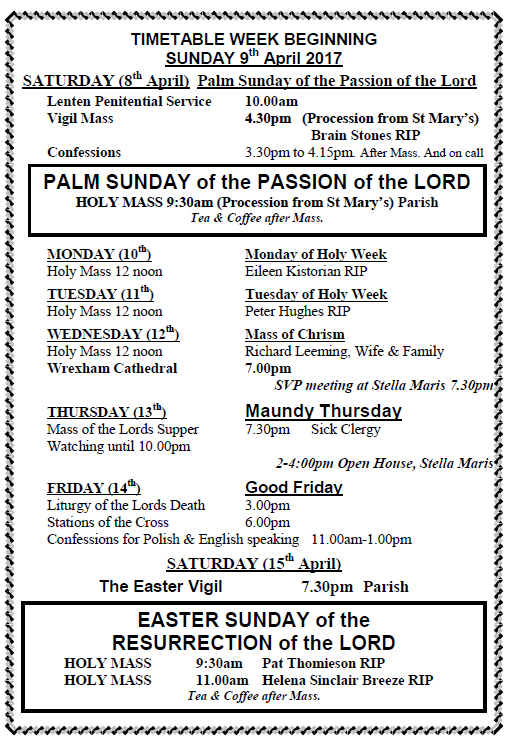
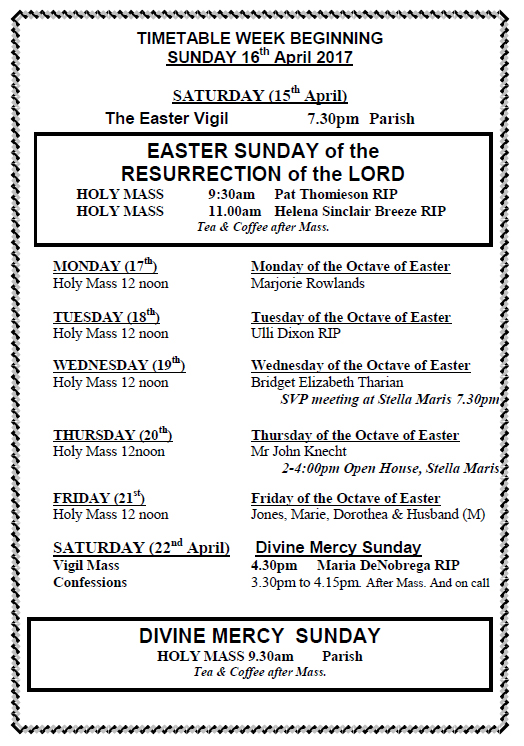
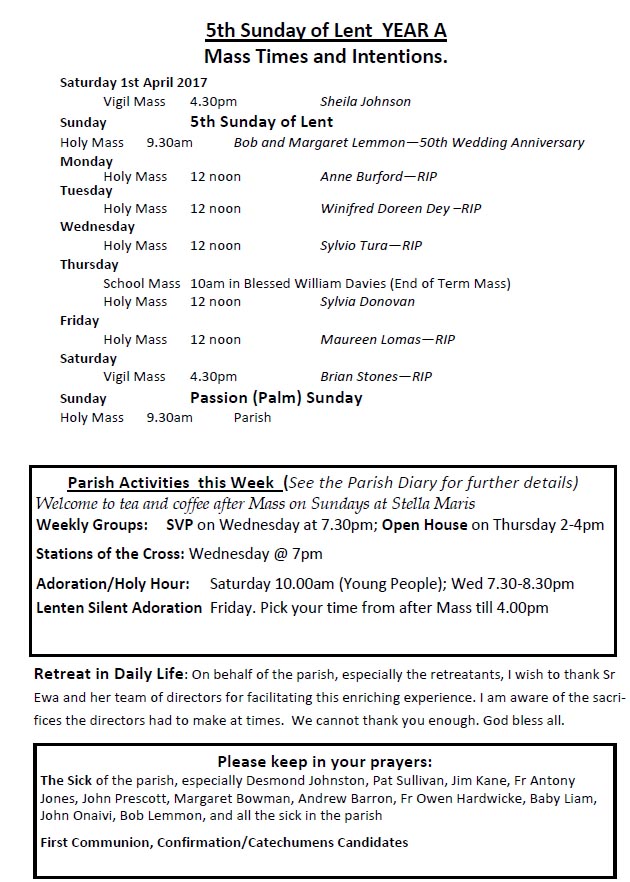
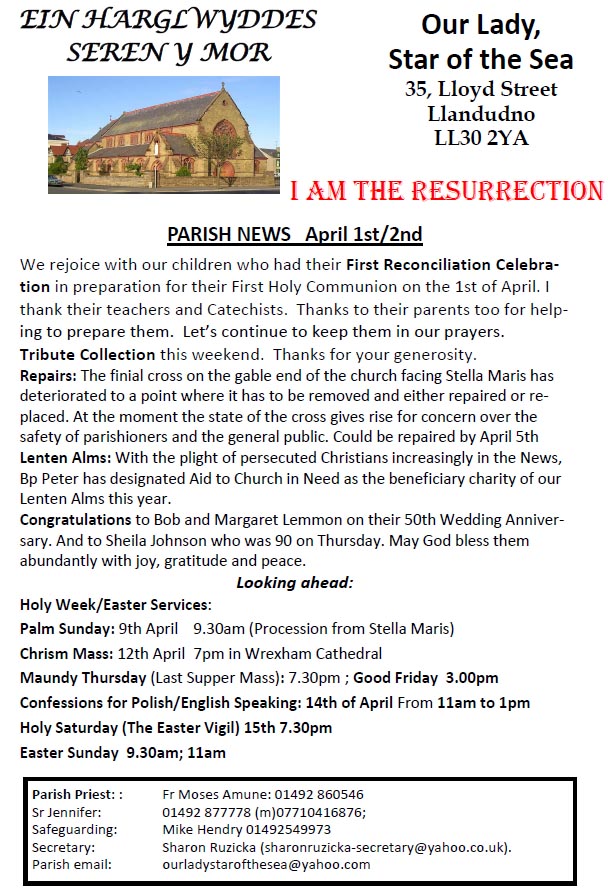
LENT 2017
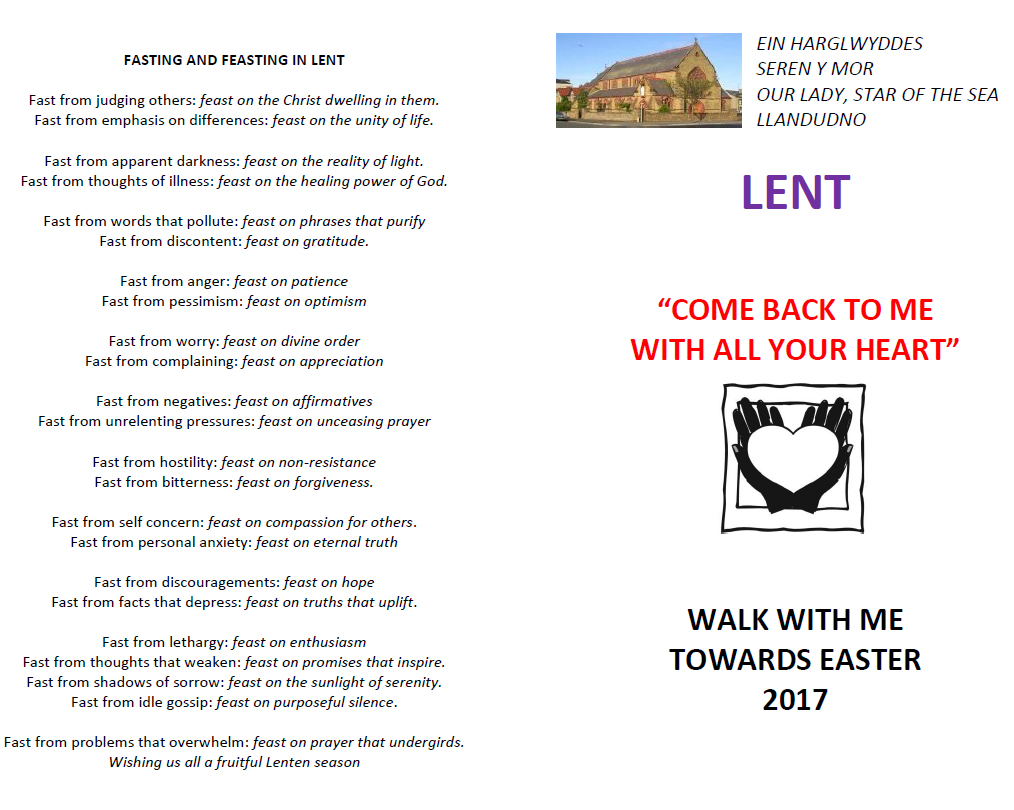
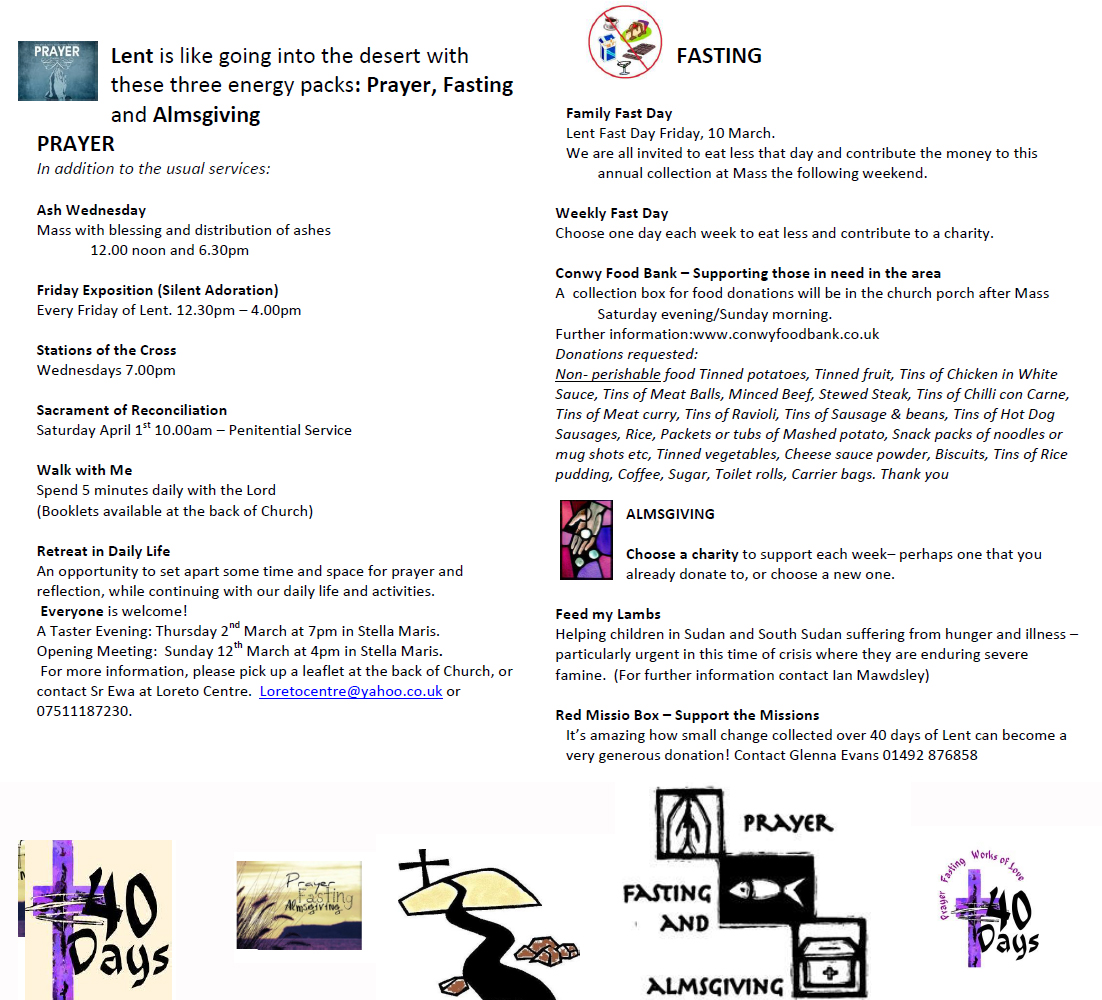
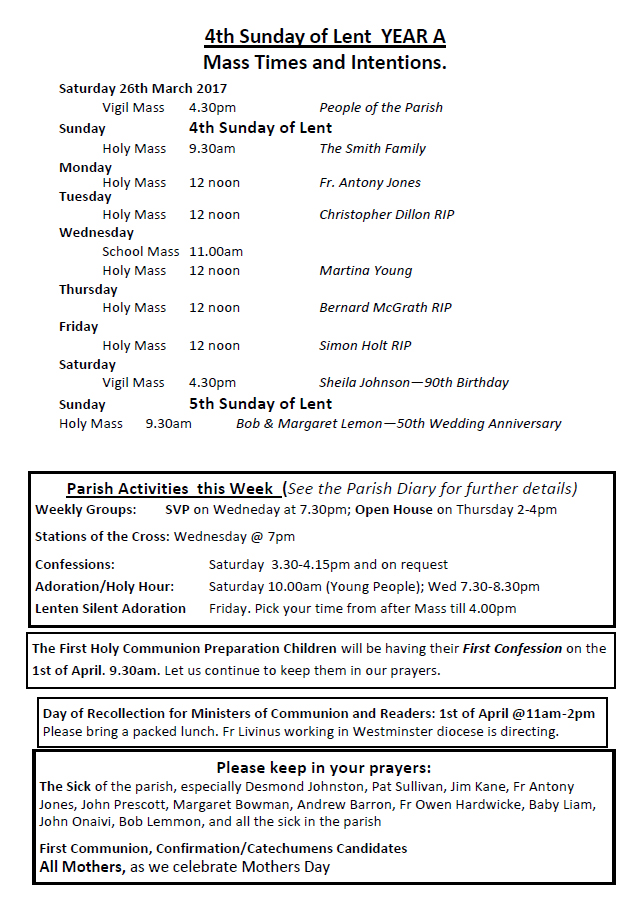
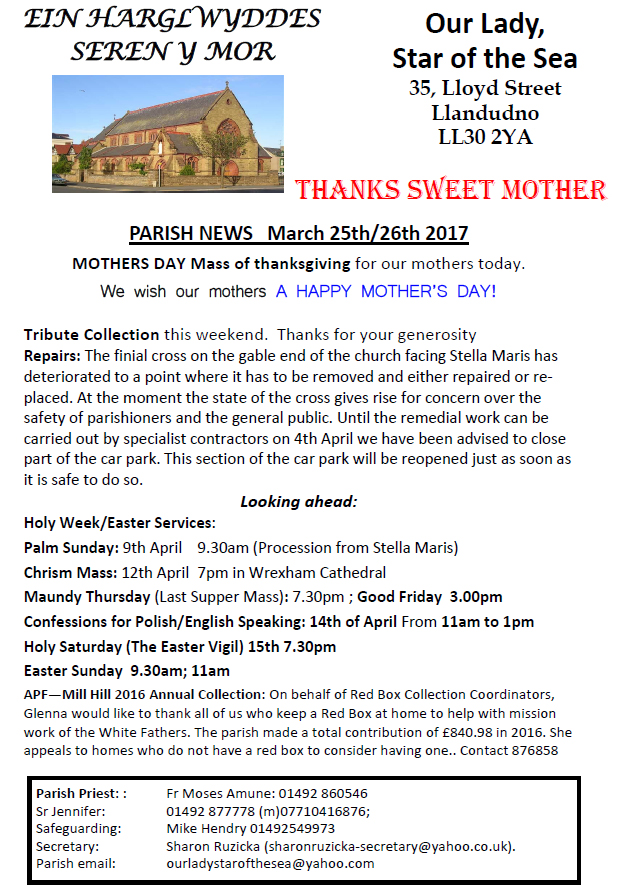
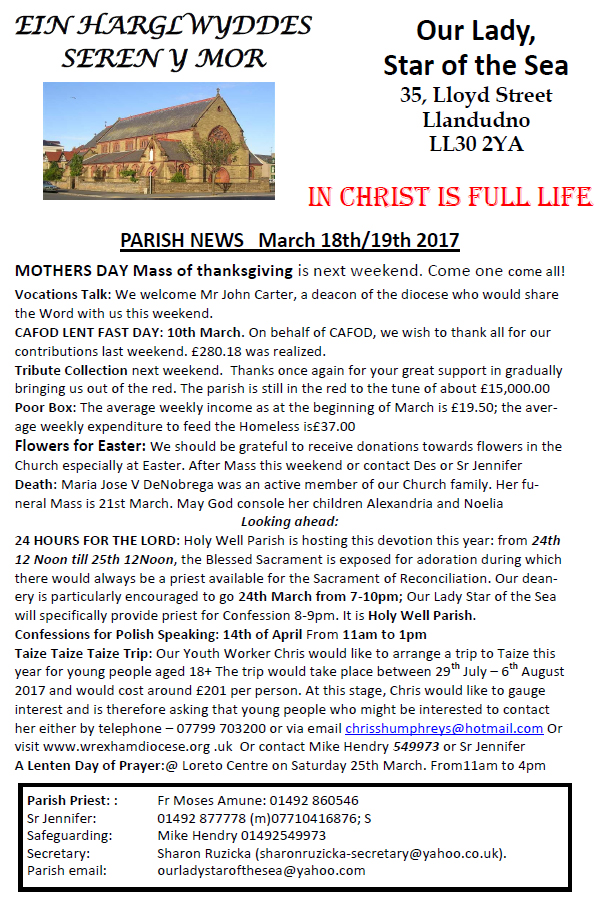
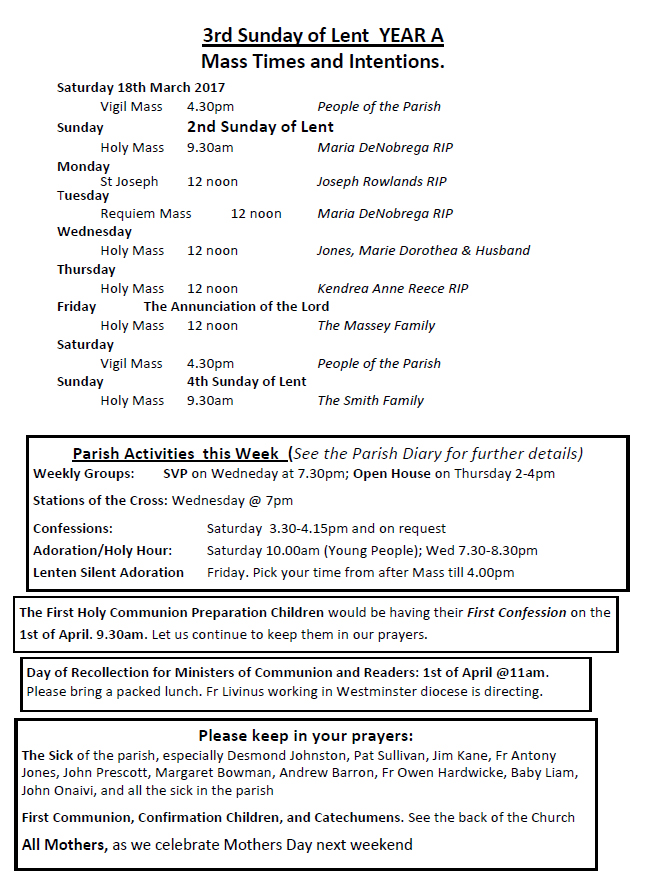
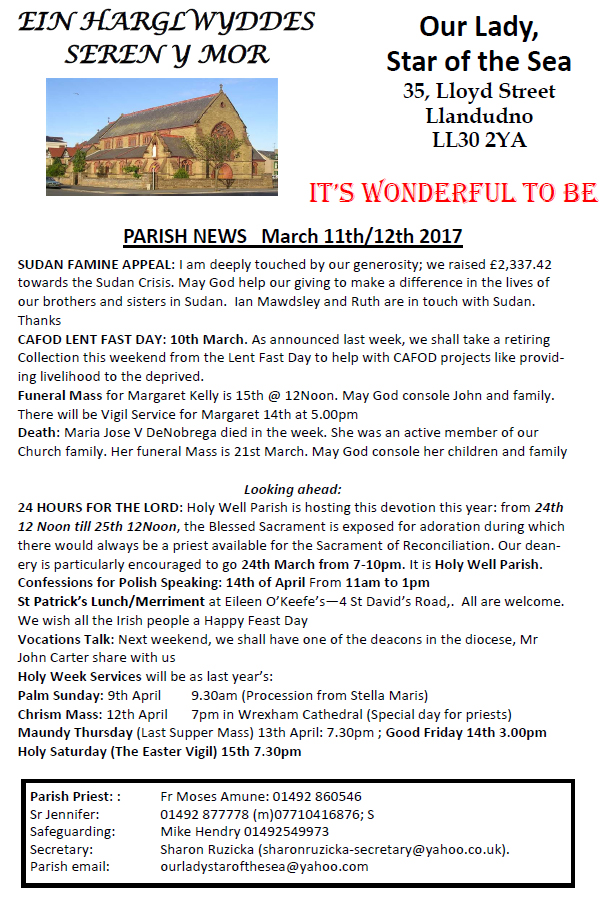
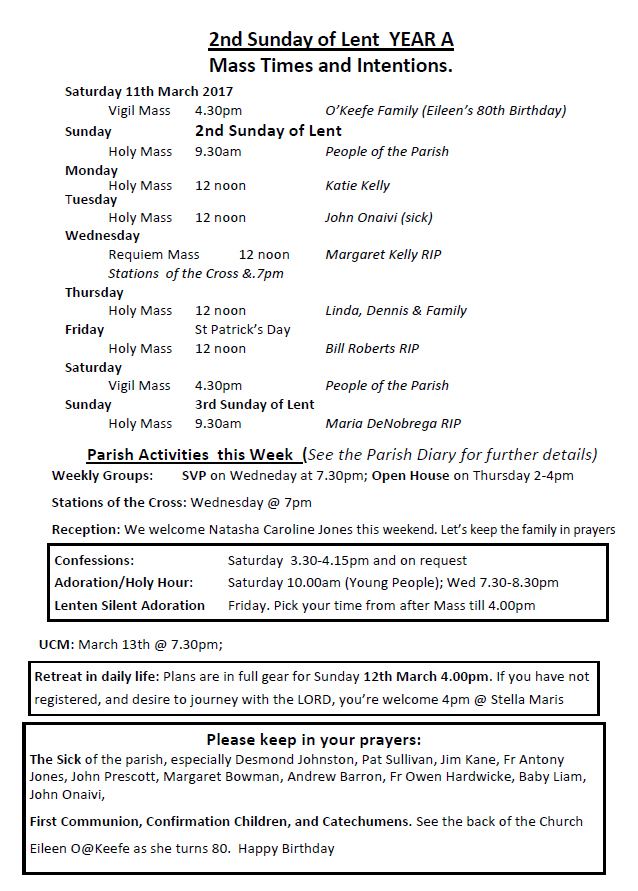
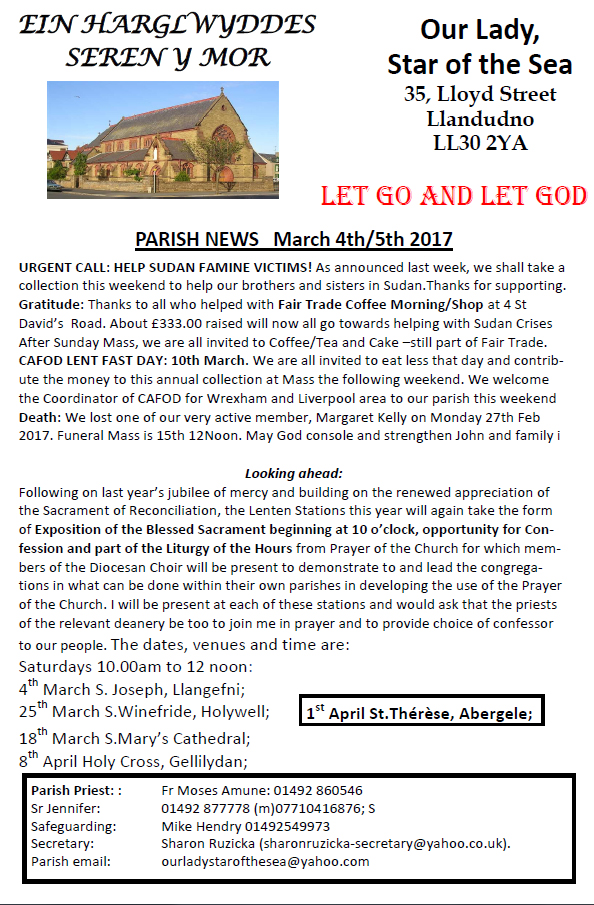
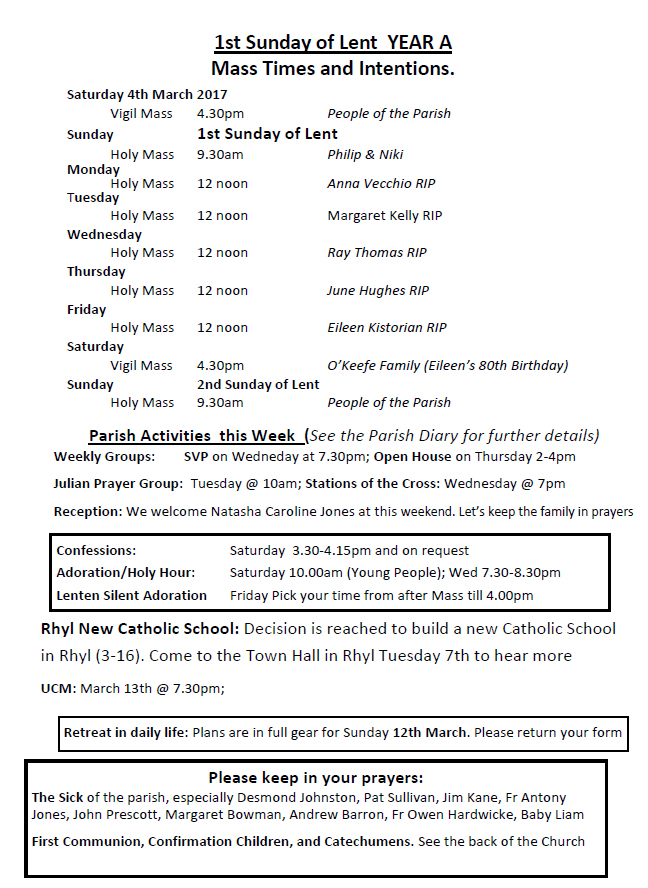
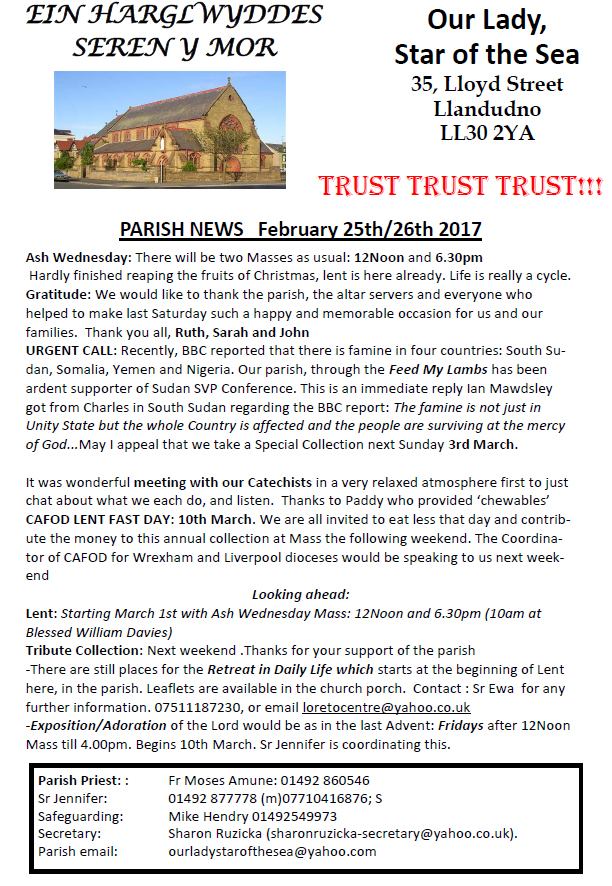
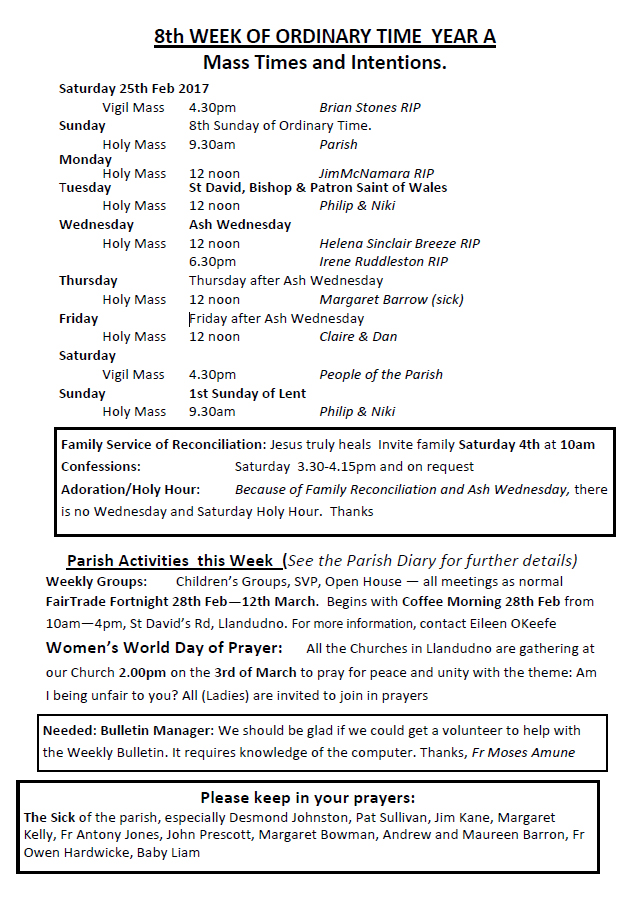
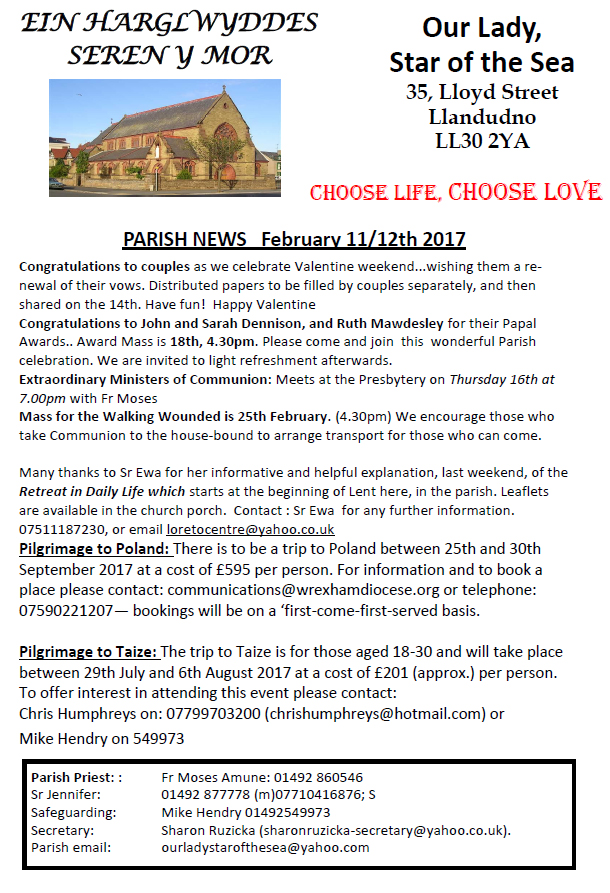
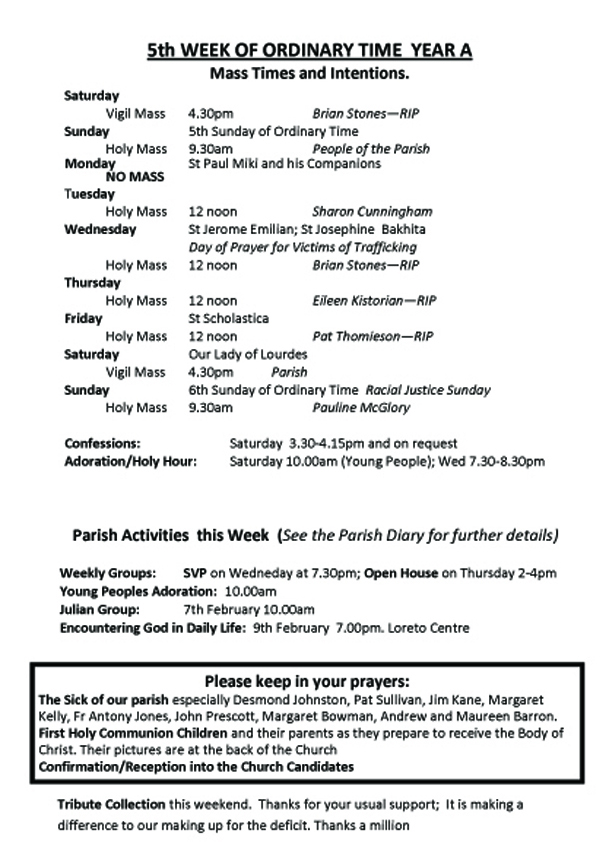
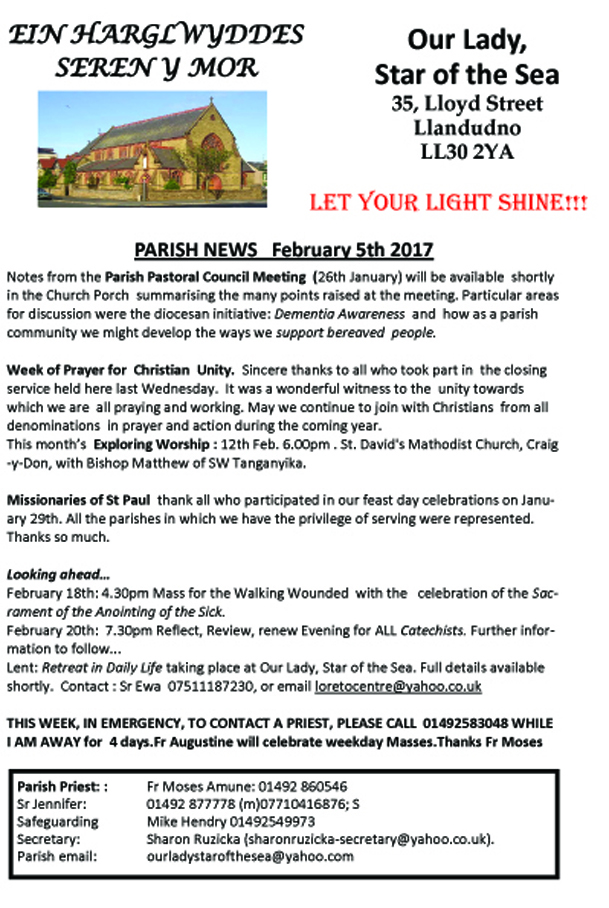
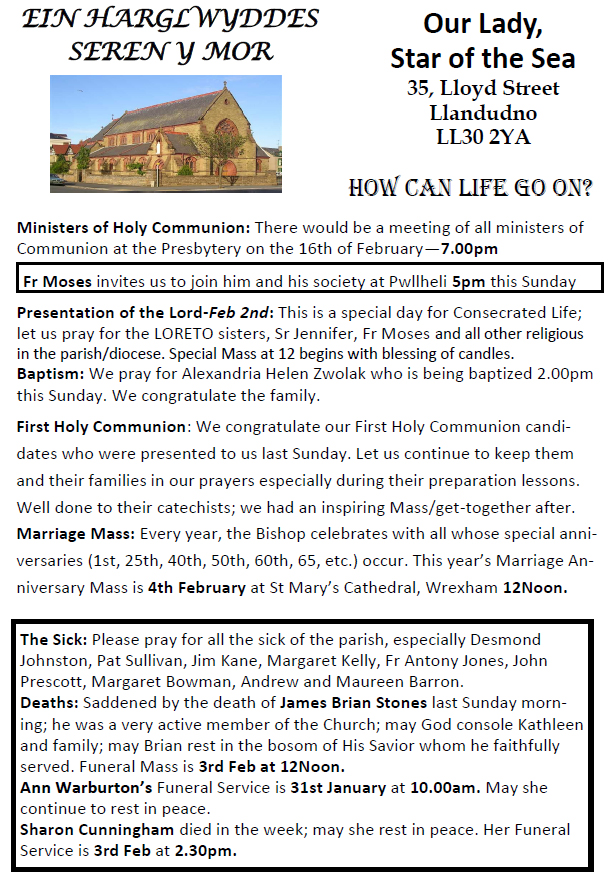
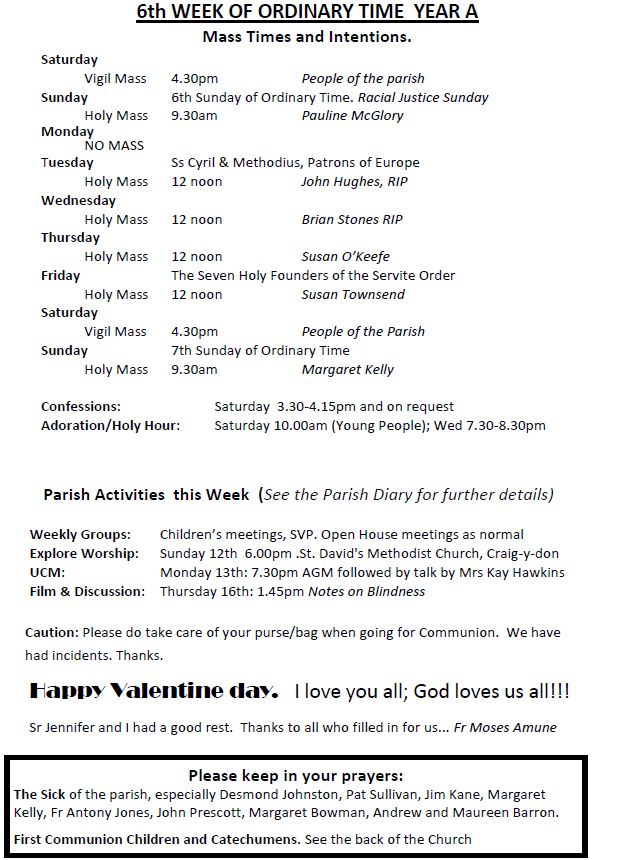
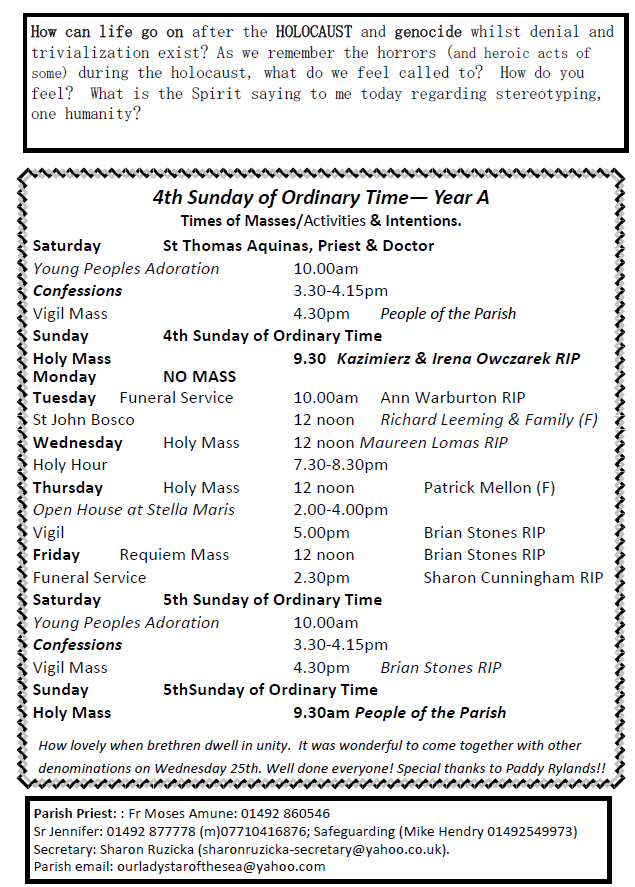
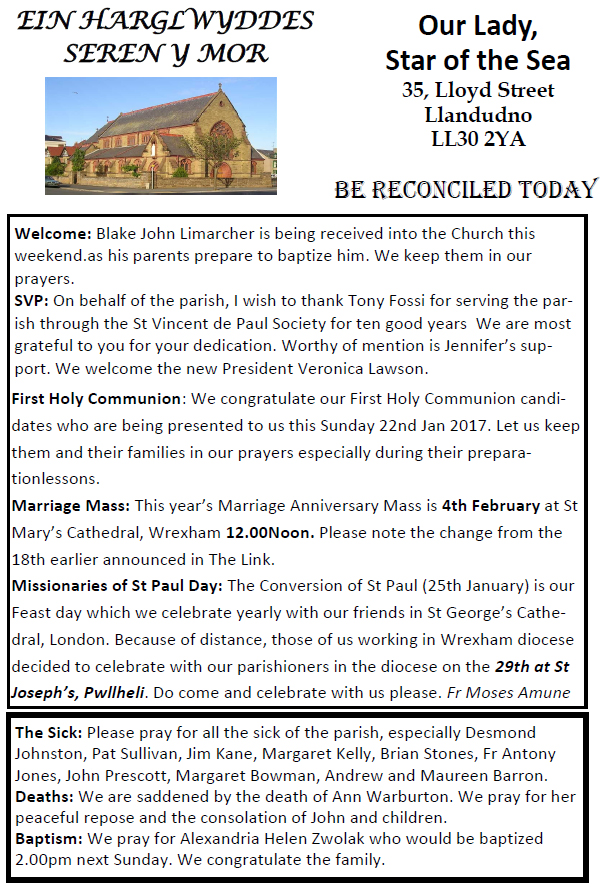
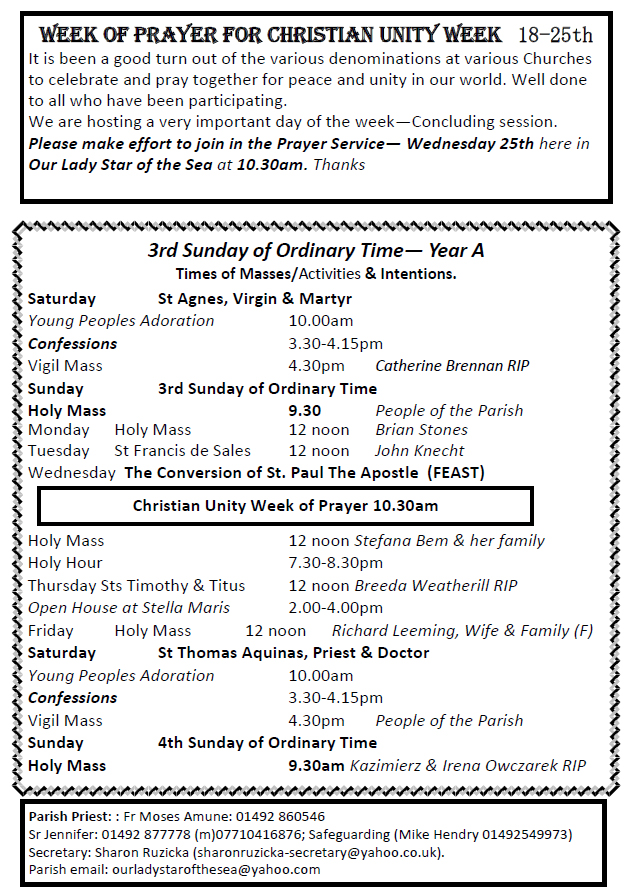
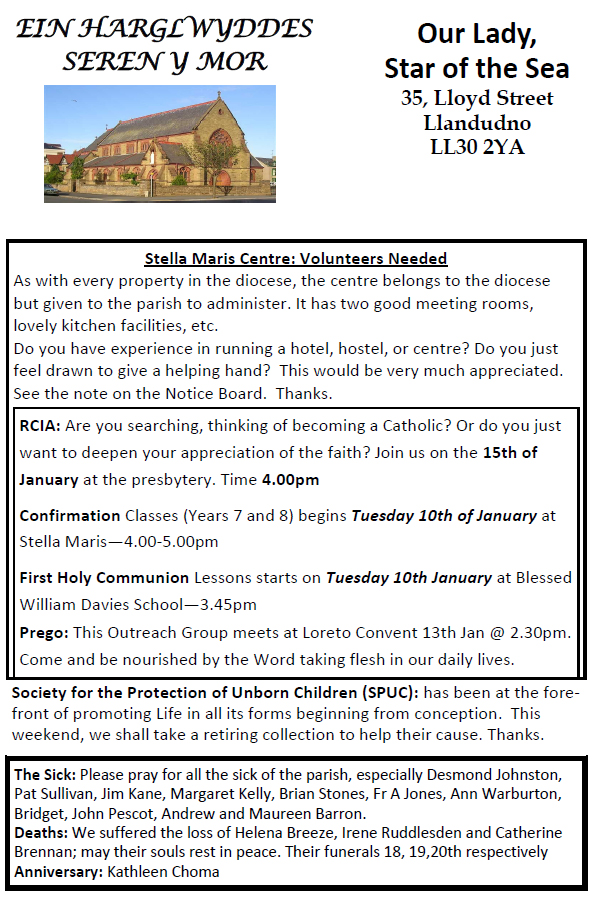
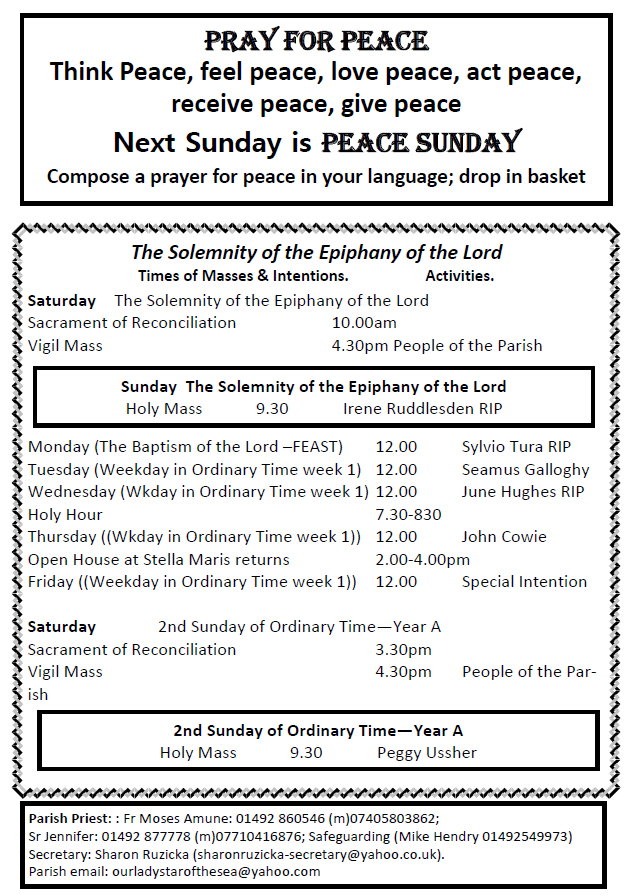
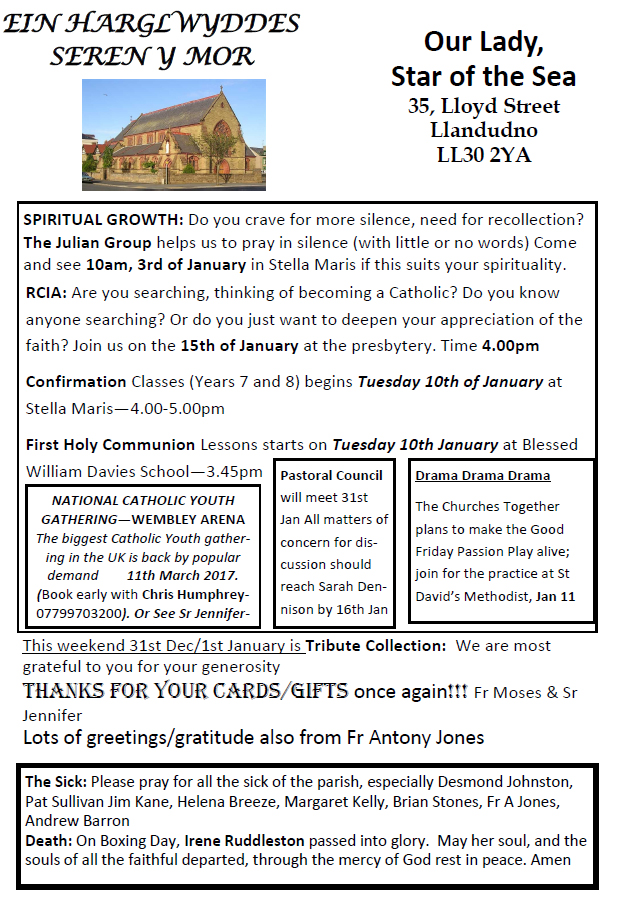
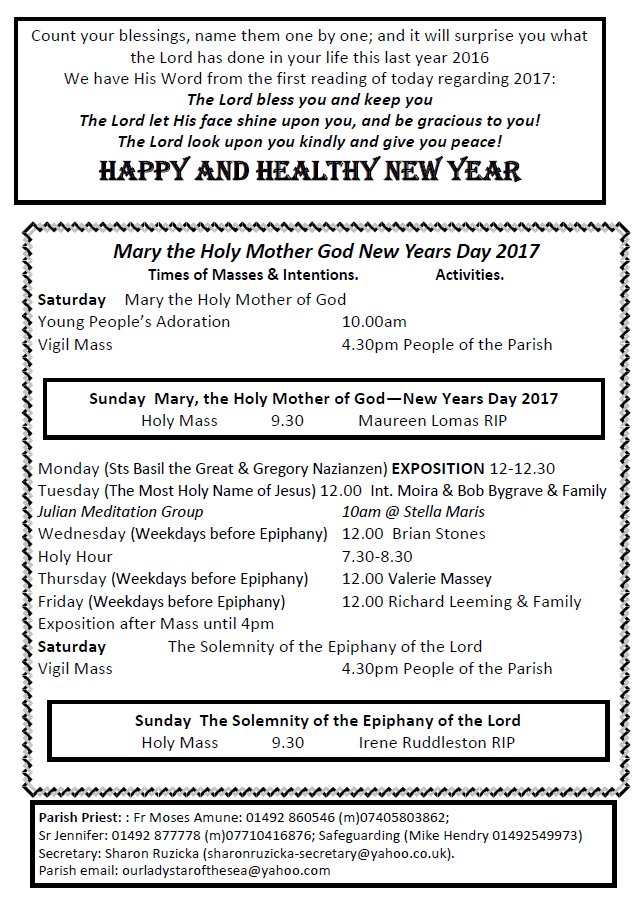
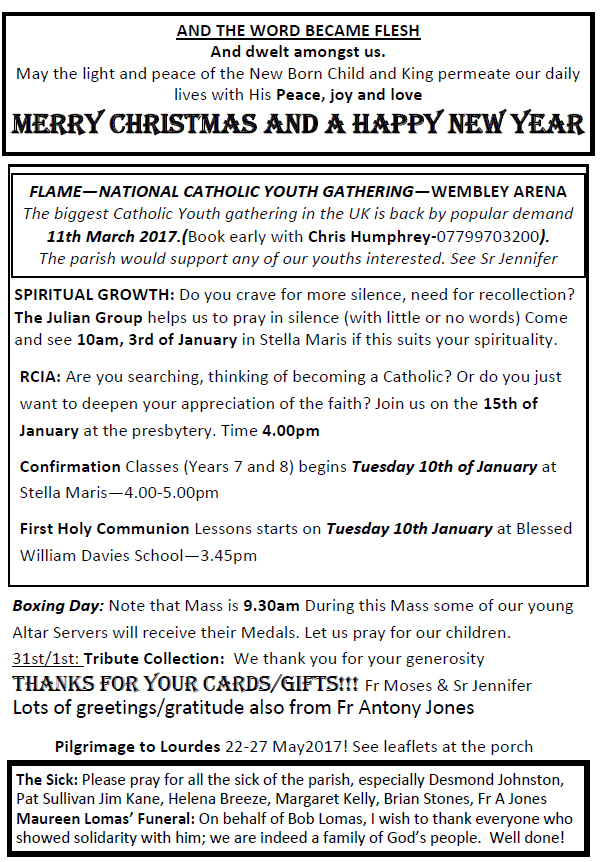
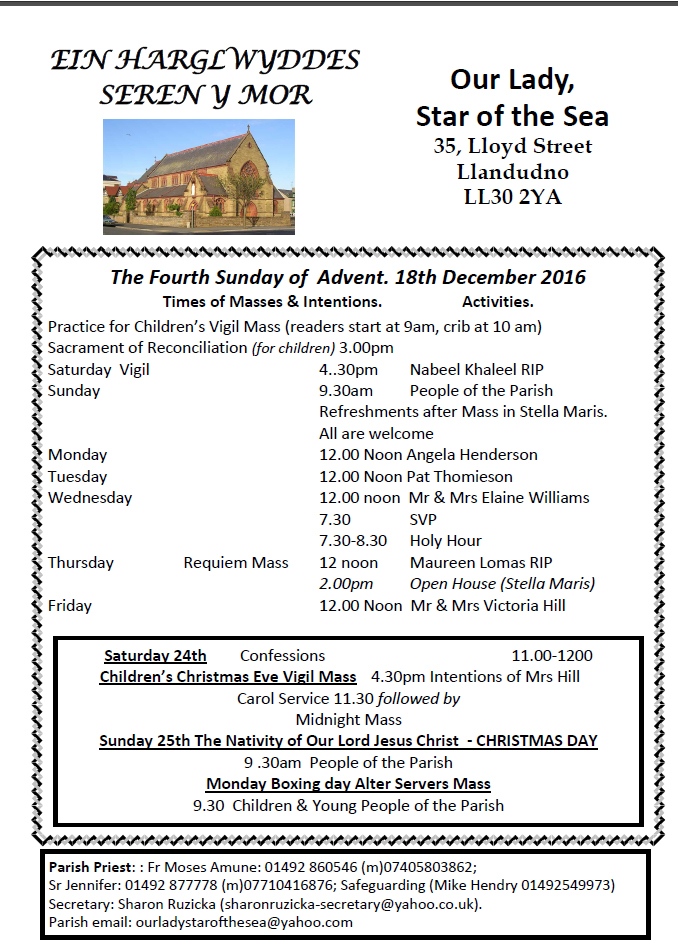
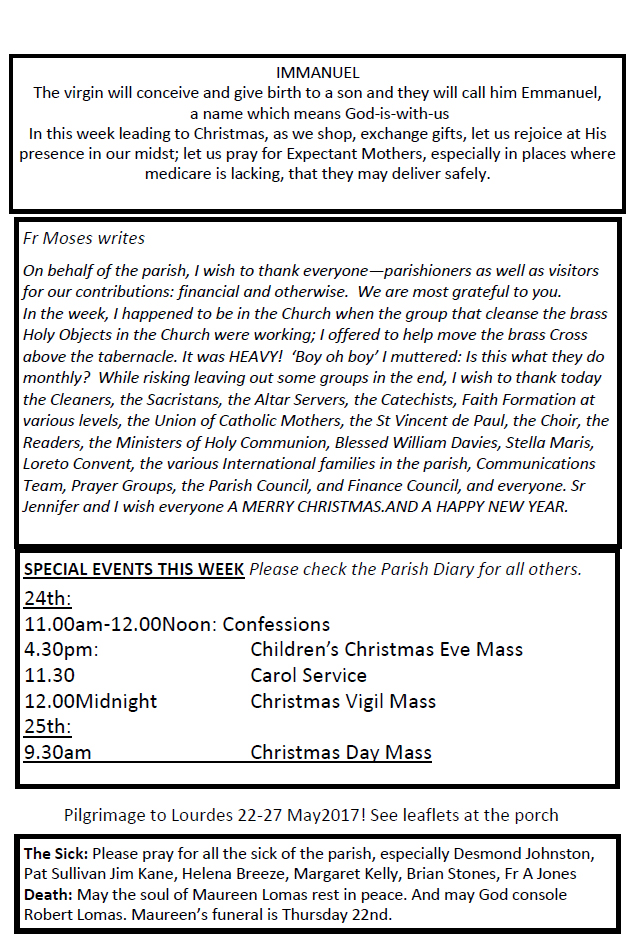

ADVENT 2016
How am I preparing for the coming of Christ THIS Christmas?
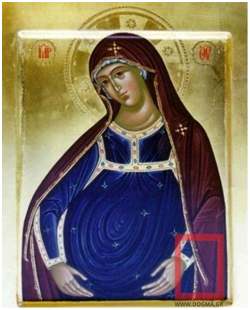
THE ADVENT JOURNEY
Signposts along the Way
Christ has come, Christ continues to come, Christ will come again

WEEK 1: STAY AWAKE
Thinking about how ready I am
to meet God face to face at death,
at the End Times, the coming of the
King of Glory (Second Coming)

WEEK 2: PREPARE A WAY FOR THE LORD
What might I do?
To repent, turning back, to making straight,
To refocus my life on Christ
Come Lord Jesus

WEEK 3: REJOICE
The Lord is near! Listen to the message!
Hear the message!
Notice the signs of hope around you!
Be that sign of joy and hope wherever you are!

WEEK 4: EMMANUEL
God-is-with-us: the prophecy foretold
God dwelling with us – it is almost time
Open the door.
Let him in.
ADVENT INVITATIONS
ADORATION
Every Friday. After 12.00noon Mass ending with
Benediction at 4.00pm.
A word from Fr Moses
CELEBRATING THE SACRAMENT OF RECONCILIATION
A word from Fr Moses
For Adults
Wednesday 14th December. 7.00pm
For Children
Saturday 17th December. 3.00pm
RETREAT DAYS
A Day of Prayer for Advent with Mass.
Let us Prepare a Way for the Lord!
Saturday 3rd December 10.30am – 4.00pm
Loreto Centre, Abbey Rd
Please bring a packed lunch
(Tea and Coffee provided)
ADVANCE NOTICE FOR CHRISTMAS
Christmas Eve
4.30pm. Children’s Mass.
11.30pm. Carols led by
Midnight Mass
Christmas Day
9.30am Mass
St. Stephen’s Day
9.30am Mass with commissioning of our
Altar Servers
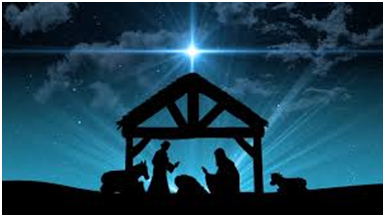
SOLDIER OF CHRIST
On this Remembrance Sunday, we join our brothers and sisters first in acknowledging the supreme sacrifice made by soldiers and civilians who served in one way or the other in the two world wars, and subsequent crises; for them we are most grateful. Because of their yesterday, we live our today. May they continue to enjoy the reward of eternal rest in Christ.
As we reflect on the sleepless nights in the trenches, the horrors witnessed or endured, the pain and scars of bodily injury, the utter commitment to protecting civilians and fighting for peace, let us spend some time in the week praying together for peace, and courage to stand by the Truth in our world, that the sacrifices of our fallen heroes and martyrs of our time may never be in vain.
In their honour and for us, please share this poem shared with me by one Jeremy. It is by Fr Michael Sellers:
Stand up, you children of the light
whom God’s holy power defends.
Be armed for that spiritual fight
which Christ’s Second Coming ends.
Walk in the strength of God
And he will never fail you.
For a sword accept his word
When your enemy assail you…
Know God’s mighty power surrounds you
Always, everywhere.
The powers of hell will not confound you
If you trust that God is there…
The outcome of the US Presidential election scared me; I was worried about the possible sufferings some groups of people might be unnecessarily exposed to. While acknowledging the uniqueness of each person, it is difficult to ignore some demeaning and threatening comments made. All said and done, ‘democracy’ has spoken and it must be respected. As we remember our fallen heroes, let us pray for God’s Spirit to guide Trump, world leaders towards working for peace, unity and compassion.
Good luck, bad luck, who knows? Only God knows.
Parish Affairs
Care for the Poor: The work of St Vincent de Paul in the parish in various ways of visiting the sick, care for the needy, and providing food for the poor/homeless is astounding. I attended their last week’s weekly meeting which is Wednesdays 7.30pm; I came out feeling touched by the depth of connection/presence with the people they visit and minister to. I wished many more would join this association. It is our faith lived out concretely. Very early on Saturdays, they come and put the parcels of food to be handed out together in a very loving and light atmosphere. If you ever feel like doing more for God and humanity, joining this group couldn’t be more ideal. May I use the opportunity to say thank you to all who support this cause by giving in the Poor Box
Bulletin: Beginning of Advent, we shall try a new template for our bulletin; I should be glad to have one or two volunteers to help coordinate its production. It won’t be too involving, I can assure you.
Induction: It is customary to formally present the new parish priest to the parish in a liturgical context. On the 1st of December at 7.00pm, the Bishop, Rt Rev Peter Brignall will present Fr Moses Amune, msp to the parish.
Looking Ahead:
November
20th: National Youth Sunday Mass 11am in Ruabon
25-27: Advent Retreat in Pantasaph by Bp Peter Brignall.
Contact: 01352711053
December:
14th: Advent Retreat/ Service of Reconciliation 7.00-8.30pm. There will be plenty of priests to choose from for individual confession.
17th: Children’s Sacrament of Reconciliation 3.00pm
Christmas Services Schedule will be in next week’s bulletin
May our departed heroes and loved ones rest in peace
They shall forever be remembered.
——————————————————
Previous Week
REMEMBERING LOVED ONES
Remembering our loved ones who have died and praying for them on the 2nd of November was quite moving. I have to admit that here was my first direct experience of having the names, mainly, of loved ones whose funerals had taken place in the Church for the past three years, mentioned solemnly during Mass. And the lighting of the candles by friends/relatives of the dead at the 6.30pm Mass made the remembering very prayerful. Thanks to the Altar Servers who smoothly facilitated the lighting of the candles.
But why pray for the dead at all?
The answer to this question lies in the fundamental nature of God, Who is compassion and love. It is the will of God that all of us His children would be happy with Him in this world and in life eternal. It is never the will of God that any of His be lost. And so, in the teaching of the Church, this Compassionate Father never gives up on us especially if we have not made a fundamental option to reject Him; He continues to reach out to us through the magnanimous satisfaction that His Son Jesus Christ makes available to us through His Life, suffering, death and resurrection. The merits and virtues of the saints add to this overflowing pot of grace.
The Church, which is the Body of Christ, of which you and I are an integral part of, by virtue of her mystical union with Christ, shares in this ocean of God’s Mercy and Compassion. This is what the Church makes available to her members in the form of indulgences. Therefore, in union with God’s intent on saving all souls, we draw from this treasury of graces on behalf of the dead since we are a communion of God’s people not broken even by death.
“An indulgence is a remission before God of the temporal punishment due to sins whose guilt has already been forgiven, which the faithful Christian who is duly disposed gains under certain prescribed conditions through the action of the Church which, as the minister of redemption, dispenses and applies with authority the treasury of the satisfactions of Christ and the saints.”
The Catholic Teaching on Indulgence is based on the understanding that forgiveness of sin is separate from punishment due to sin. When we go for confession for instance, our sins are forgiven but the temporal punishment due to sin already forgiven is dealt with separately in the penance that we are given which is usually in the form of prayers or work of charity to be done, or other pious acts.
There are two kinds of indulgences: partial and plenary. Partial indulgence removes part of the temporal punishment due to the sin; plenary indulgence removes all.
There is no doubt that this subject is not the most exciting of topics; it is hardly talked about these days probably because it had been abused in the past, and the Church continue to grow in her self-understanding especially of the depth of God’s Mercy.
Gratitude: I wish to thank everyone who has been assisting my easing into the parish; I am aware of many people who work silently unnoticed to keep the life of the parish going smoothly. As each day passes, I appreciate more and more the enormous work of putting all the pastoral structure in place especially by Fr Antony Jones. And keeping it going by a good number headed by Sr Jennifer.
Grace, peace and mercy Fr Moses Amune, msp
Please join me in thanking God for LIFE
Archives below:
We are currently updating the website and recommend you revisit soon.
Dear Parishioner,
14 August 2014 Golden Jubilee and Fr Antony’s Retirement
Leaning against the clock on the table of the presbytery hallway and enjoying pride of place is a postcard, one of those blank-on-both-sides postcards you can get from the post office. Its blankness has been dispelled by a drawing of a duck, a rather elegant duck I must say, whose outlines have been filled in with yellow water-colour. From the left hand side, from what appears a bed of daffodils, the duck gazes at the ducklings stepping out of water to meet her. Between duck and ducklings there is a legend, written in a somewhat wobbly hand, which reads: Lame Duck!!! You’re great, you’re first class”. It was created by June Hughes (who is rather poorly at the moment, so please pray for her) and sent to me after a newsletter in which I had described myself as a Lame Duck, following the most recent of my operations.
I have cherished that postcard and always will, not by a long chalk because I thing that I am great or that I am first class but because it expresses graphically to me the tender-heartedness and loving nature of June Hughes whose own life has been characterised by so much tragedy and pain, culminating in the stroke which left her unable to speak but which never for a moment wiped the smile from her face.
And the kindness displayed by June has been replicated tens of thousands of times right across the Parish by your good selves. I marvel at how good you have shown yourselves to be. Feed my Lambs comes instantly to mind, but that, my dear parishioners, is only a reflection of the goodness you show in every direction and which, in particular, you have shown to me personally. How you have prayed for me at the times when I have been ill; how you have put up with my long spells away, in hospital or in convalescence; how you have made allowances for me in these latter months when I became unable to visit the sick of the Parish or the Parish itself; unable to visit the hospital or hospice; unable to provide adequate pastoral care to the School or the Convent. These activities had been the joy of my whole life and my inability to carry them out fully in these recent times has been a real sadness.
Since that infection I had at Christmas which kept me in hospital throughout December and through Christmastide, the lame duck has become wobblier and wobblier, always hoping but never achieving that state of health which would enable me to resume my priestly duties to the full. Carrying on as your Parish Priest in these conditions is not fair to you, you deserve better. I have therefore, with a heavy heart, petitioned the Bishop to let me retire from active service on the day I celebrate my Golden Jubilee, 11 September, and he has accepted my request. Whether Fr Abraham stays here or is appointed to another Parish will depend on himself and the Bishop.
The arrangement I was in the process of establishing whereby the SVP would help with the house-to-house visitation of the Parish will now need to be put on hold. It will all depend on what the new PP wants and I do not wish to tie his hand in any way. What I am sure he will permit is my continuing to provide your weekly instalment of The Mass in Close-Up until it is finished.
You will be wondering who my successor is. Well, I’m wondering too! But as soon as everything is finalised between Bishop Peter and himself, I’m sure I shall be told immediately. Remember to pray for him. It’s not easy moving into a new parish. First of all, there is the parting from the parish you have devoted your life to for the past several years, from people whose joys and sorrows you have deeply shared. And very often, as it was with me, the new priest on his arrival knows not a soul in the Parish nor anything about how the Parish runs. He starts, as it were, all over again, from scratch. But he will inevitably do some things his own way, so be careful not say to him Fr Antony did it this way, Fr Antony did it that way. He is your new pastor; he will come with new ideas, taking this lovely parish yet further upwards and onwards. I will be more than willing to help out in the Parish in any way the new priest may want, provided, of course, my health permits.
I hope it will come as good news to you to know that I shall not be leaving the town, or the Parish for that matter. I shall join you as a fellow parishioner of Our Lady, Star of the Sea, with my residence in Seren y Mor. The top flat has been vacant since Fr John Toole died some months ago and it is there that I shall be living. You will continue, therefore, to be able to see me and I to see you.
I am profoundly grateful to Bishop Peter who has shown me exemplary kindness and who has allowed me to retire into this flat, part of the house which Sr Jennifer donated to the Diocese and which the Diocese has converted into three fine flats for retired priests. Seren y Mor is now fully occupied: Sr Jennifer on the ground floor, Monsignor Fealey on the first and myself on the second (Flat 3).
But I am not gone yet! There is still a month before 11 September, when I will have served you as your priest for eighteen years and eight months. I look forward to that Jubilee celebration with the Bishop and yourselves and ask you to thank God for all the graces and benefits He has given me and to pardon me for my many failings and shortcomings. And if I have offended or hurt anyone in the Parish in any way, I am truly sorry.
God bless, Fr Antony
Dear Parishioner,
31 July 2016
The Murder of Fr Jacques in France
I cannot be the only one who, on hearing the news, immediately linked the events of Tuesday, 27 July 2016, with what happened on 29 December, 1170. On the earlier date, four men armed with knives entered Canterbury Cathedral and, at the altar, murdered its Archbishop, Thomas Becket; last Tuesday, three men, armed with knives, entered the church of Saint-Etienne-du-Rouvray and murdered its priest, the 86 year old Fr Jacques Hamel, as he was celebrating Holy Mass.
Hope Springs Eternal
That connection brings a glimmer of hope into this hopelessly black event. The terrible murder in the Cathedral spawned blessings in every direction and continues to do so. Such was the reaction to the murder that within three years of it taking place, Pope Alexander lll declared Thomas a saint. Conversions of the heart followed in breathless succession. Not only King Henry ll, who had uttered those fateful words Who will rid me of this turbulent priest?, but the knights who had carried out what they thought were the King’s wishes, were all penitent, and literally millions of people subsequently down the centuries have gone on pilgrimage to the shrine at Canterbury in a similar spirit of repentance for their sins. It is inconceivable, as well as unimaginable at the present moment, what the effects of this murder of Fr Jacques will be, but benefits there most certainly will be, both for the Church and for the cause of world peace.
Most of these barbaric acts which we are increasingly witnessing on our television screens are perpetrated by so-called Muslims whose immediate purpose is to make us hate Muslims, so that society will split and our civilization be undone. If they succeed, then we can equally blame ourselves for not having lived up to our Christian ideals. We must not allow them to make us hate Muslims or anyone else; we must retaliate with a different kind of weapon to the weapons they are using.
“For though we live in the world, we do not wage war as the world does. The weapons we fight with are not the weapons of the world. On the contrary, they have divine power to demolish strongholds. We demolish arguments and every pretension that sets itself up against the knowledge of God and we take captive every thought to make it obedient to Christ.” So declares St Paul, 2 Corinthians 10:3-6.
Although our world is no longer overtly Christian, our society, born and bred in the ethos of Christianity, still to an extent clings to the great ideals it was taught. Throughout the whole history of Christianity, different sets of ideals and aspirations have mesmerised and captivated man’s mind, but none of them have been able to stand up to the basic truths and values as expressed by Jesus Christ. In our own time, think of fascism in World War Two or Communism after it; at their height they seemed all-powerful, but they could not stand the test of time. The same will be true of ISIS. It has to fall: Our weapons have divine power to demolish strongholds; we demolish arguments and every pretension that sets itself up against the knowledge of God…That is why it is so important that people are catechized properly in their Christianity.
The Mind of Christ
The responsibility for future peace and harmony starts right here with each one of us, not remotely in the hearts and minds of national leaders. It is our own mind set we must look to and take care of. It must be the earnest intent of each and every one of us to have within us, as St Paul says, the Mind of Christ. And where do we find the Mind of Christ when it comes to responding to events such as the murder of Fr Jacques? I can tell you exactly where: in Christ’s Sermon on the Mount, chapters five to seven of St Matthew’s Gospel. The mind of Christ doesn’t sit easily and comfortably with our own mind; we instinctively prefer the mind of the world. But we have to work on it; it is our Christian duty. Many years ago I resolved to read through the Sermon on the Mount once every month. I haven’t been entirely faithful to that resolve, but I do try to keep it up; and I commend it most earnestly to you.
From the Gospels we certainly find the Mind of Christ, but circumstances change as time passes and sometimes it is not easy to determine what exactly the mind of Christ would be in a given circumstance, for example how to handle ISIS. And this, of course, is one of the reasons why Christ established his Church, to make audible to each successive generation what His mind is.
Just look at what’s going on in Poland this very week as it celebrates World Youth Day. One and a half million young people from 187 countries are centring on Krakow. What will they be doing there? Not just meeting the Holy Father, important though that is, but also, and crucially, being taught the social doctrines of the Church, which are nothing other than the Sermon on the Mount applied to the modern world. There are no less than 801 bishops set to hold catechetical sessions with the young people, leading discussions and encouraging them in the Way of Christ.
There are umpteen programmes these days on television about unearthing and discovering ancient treasures that have been lost by time. One of the greatest treasures of the world, and one that has shared the lot of being lost, is the Social Teaching of the Catholic Church. To describe it as a treasure is to under-rate it; it is more, much more. But the average British Catholic knows more about what Jeremy Corbyn has to say on social matters than what the Church has been teaching for centuries.
Youcat and Docat
For this reason, a new book is being presented to the public at the World Youth Day and distributed to the young people there. It is called DoCat. You may well be familiar with YouCat, the catechism adapted especially to the young people of today. YouCat is brilliant, and I recommend it not only to the youth of our Parish (who already receive at copy at their Confirmation) but to each and every one of us. It expresses the faith of the Church in a clear digestible way. Its sister book, DoCat, is the same, but its content is the social teaching of the Church, something we should all strive to be up to date with. I hope to get a supply of DoCats as soon as they are available. Put the two together, the Sermon on the Mount and DoCat, and you will be well on the way of forming within yourself the Mind of Christ.
Two of our young people, both Altar Servers, Megan Williams and Lynette Mutisya, are presently attending the World Youth Day in Krakow and we look forward to their sharing with us their experiences. Today youngsters are confronted with every kind of false ideology, making fidelity to Christ far more difficult for them than it was for the older generation. Let us be conscious of this and give our young people every encouragement they need.
The Church once strove to do this through youth clubs and the like. But those days have gone. In this parish we focus more on our Altar Servers. We keep them close to Christ by keeping them close to the Mass. We open the Scriptures to them by teaching them how to read the Word of God to God’s people assembled for Mass. We used to take them on outings, like to the zoo or a ski slope, but now we focus on paying for them to go on retreats and World Youth Days which they thoroughly enjoy and where they can deepen their relationship with Christ I look forward in the near future to receiving several of the Altar Servers into the Guild of St Stephen, thus consolidating further the wonderful team that we have and of which we are very proud. Let us remember all these dedicated young people in our prayers for the future of the Church, God’s presence in the world, will depend heavily upon them.
God bless, Fr Antony
Dear Parishioner,
29 June 2011
SAINTS PETER AND PAUL
Today (as I write) is the Solemnity of Saints Peter and Paul. Throughout the Catholic world people like you and me are giving thanks to God for these two men, for who they were in themselves and for what they have done for us. As Catholics, we are built on the rock of Peter’s faith: You are the Christ the Son of the living God. We share the same Faith as he; and on him Christ chose to build his Church. The actual building of that Church, or at least the laying of the foundations of it, fell to Paul, who preached the faith of Christ across the ancient world. That message eventually reached our ears. Peter reminds us of the rock solid faith the Catholic Church has in Christ; Paul, that our believing joins us to a huge family that spans the globe, the Church, and that we must share our Faith with others, as he did.
CATECHUMENATE
The Church today carries on the work of Peter and Paul, each of us doing our bit to keep the Faith intact in our lives and to share it with those who do not enjoy it. The Catechumenate is a part of that ongoing mission of the Church: believing in Christ and sharing Him with others. The Catechumenate will finish next Easter when those who have attended will be sufficiently prepared to be received into our Holy Catholic Church. Be a Peter: do not be afraid to declare you faith in Christ. Be a Paul and spread the Good News. And you can do both of these by bringing someone along to the Catechumenate which begins on Tuesday, 7.30 – 9pm at Stella Maris.
On Thursday, at 7pm, Bishop Peter will be here with us to celebrate the Sacrament of Confirmation. Five young people (Hannah McGlory, Mia Smith, Fyadora Sarok, Summer Best and Joseph Cooney)and two adults (Daniela Miro and Stefano Miro) will be receiving the final gift of the Holy Spirit, making them fully fledged members of the Church. I hope many of you will show your awareness of belonging to the same Family of God by being present and giving these your sisters and brothers your full support and blessing.
You are probably aware that during a long period of convalescence after surgery some years ago, I wrote a book on the Mass, The Mass in Close-Up. It was first published on Kindle where it got swamped by the vast number of religious books there. I feared that it wouldn’t therefore be reaching you, my parishioners, for whom it was written, so I took it off Kindle and published it on our website, where it still remains. But many people don’t like reading books on computers and many others do not have computers anyway, so I have decided to print it out for you. My sole purpose is that you come to understand the Mass better. I have always been convinced as a priest that the average Catholic undervalues the Mass, and this because they do not understand it sufficiently. If the Mass is properly understood, then, I believe, virtually nothing on earth would prevent our attending it on a Sunday, and, indeed, more frequently still.
A CHAPTER WEEK BY WEEK
To encourage you to read it, I will present it to you week by week, chapter by chapter. I am also providing a nice folder which you are free to take (but take once only!) so that you can keep the pages uncrumpled for future reading. This would mean your bringing the empty folder back with you to Mass week by week. I will also make sure that back chapters are available in the sacristy, just in case you ever omit to pick one of them up. There are forty-nine chapters: the exercise will last a year, And if you have any questions, you will be most welcome to contact me, by phone, email or visit, to clarify further your understanding of what is in reality the greatest treasure you possess.
Many people have told me how informative it is and how helpful they have found it. One parish I know uses it as the basis of a weekly study session on the Mass. If this exercise now enables just one of you to appreciate and love the Mass the more, then the whole project will be worthwhile. The Mass is the heart of our Faith; it contains all that we believe; it celebrates, makes present and thanks God for all He has done for us; it is our ultimate act of worship and communion with our Threefold God, the Ultimate Mystery.
INSIGHT
The first session of Insight, the newly formed group under the leadership of Paddy Rylands to reflect on next Sunday’s Mass Scriptures, coincided, unfortunately, with both Wales and England playing their crucial matches in the 2016 Euros. I bet you can guess who won! The score after 90 minutes was Football 447/Insight 3. (Our average Mass attendance is 450). I don’t blame you!
Paddy has stressed that this is something you don’t need to attend every time. But when you do, you will surely come back a winner. You will have hit the back of the net of your mind with forceful ideas and insights, always (unlike England) bang on target. The next session is on Monday (4 July) and will continue every first and third Monday of the month at 7pm at Stella Maris. Try to make it your goal to get to these meetings. Determine to go to Holy Mass with a mind properly prepared to hear and heed the Living Word of God.
LECTIO DIVINA
Very close to what goes on at Insight is a new way of praying called Lectio Divina, which is Latin for Divine Reading. Actually, it is not new at all, but as old as the hills, going right back into the early Church and even further back into Old Testament times; but it has recently become very fashionable, if one can use that word with regard to prayer. Check out Lectio Divina on YouTube, and if you do, I recommend you follow Archbishop Collins of Toronto.
It is as comfortable a way of praying as you will ever come across, like an old pair of slippers or your favourite easy chair. No big effort, no uncomfortable position, no straining of the mind – just a willingness to give over some of your time to God. Sitting comfortably, you take a short piece of Scripture and let it talk to you, for it is, after all, the Living Word of God. You toss it around in your mind, letting it take you where it wills, remembering all the time that you are in communion with God and it is He who is leading you. Read and set off on your journey; read it again and discover more; read it again and find yourself entering into the wonderful Self of God. You open yourself to God and He does not pass you by or leave you empty. This direct daily contact with Christ will give you that peace which He alone can give and relaxation of body as well.
A good idea with regard to Lectio Divina is to use the forthcoming Sunday Mass Scriptures. You have four: the first reading, the Psalm, the second reading, the Gospel. Work through them (one a day; not all four readings at once) or go back time and time again to the Gospel. It will work the kind of wonders you will be amazed at, and when you hear these Scriptures read at Mass they will pierce you to the marrow. And if you want to go the whole hog, as well as practising your daily Lectio Divina, you could attend your fortnightly Insight as well.
AND OTHER THINGS
And finally, there will be a meeting of the Special Ministers of the Eucharist on Thursday 21 July at 7pm in church. It is a long while since we held such a meeting and it is vitally important that ministers attend it. I give you lots of notice, so please make sure you keep that evening free.
And another thing, I am still holding my breath in hopeful expectation that two generous souls will come to door offering their service as either Property Manager or Gardener. I can’t hold my breath much longer. Please let your Parish Priest breathe freely again!
God bless, Fr Antony
Dear Parishioner,
26 June 2016. Post Referendum
Immigrants
I don’t mind admitting to you that I am truly gutted by the results of Thursday’s Referendum. “Cry, the Beloved Country”. But I am a priest not a would-be politician, so to give you my reasons would be out of place. I tried to put before you the mind of the Church on this matter and I hope many of you took some notice of it.
But there is one aspect of the Referendum about which I would like to speak to you as your priest, for I was very conscious about it throughout the campaign and very anxious about it now. What impact did the general attitude towards immigration have on the three million immigrants now living among us? And how did the attitude towards Turkish immigration in particular impact on Turkish people living here and on the people of Turkey as a whole? I can only say that if I were an immigrant in this country and had listened to that debate I would feel unwanted, unwelcome, unappreciated and unloved.
Excuses, Excuses, Excuses
Let me speak as priest to the many immigrants who live in my Parish. Let me try to make some kind of excuse for such rude behaviour on our part. Try to remember that we are an island race; that we have never been invaded for a thousand years; that we are not used to people from other nationalities making our rules for us. I, for example, was nearly eighteen before I ever saw a black person. Try to remember that those who were so vociferous against further immigration are fearful for their own jobs and livelihood, their housing and healthcare, and it is more selfishness that drives them than xenophobia (hatred of foreigners) or racism.
But at the same time, I must admit that, to my mind and to our shame, the debate did reveal some small elements of xenophobia and racism among our fellow citizens, and this is something I deeply deplore as does indeed our Catholic Church.
A thousand welcomes
But you, my dear parishioners who have come to live among us from overseas, are our brothers and sisters in Christ. In the Family of the Church there is no distinction between any of us. Where we were born, what language we speak, what culture has formed us, are all subservient to the over-riding fact that we are all one in Christ, all equally valuable, all equally loved. You are as welcome here among us as we are among ourselves. Remember that the racism of a tiny minority does not belittle you but greatly demeans them.
And a word about Turkey. I hope it was the sheer size of Turkey in comparison to the other countries seeking admission to the EU that prompted the attitude we saw in the debate. Among the countries seeking membership of the EU, Turkey is the largest. People feared for their job opportunities being swamped by a tsunami of Turkish immigrants. But Turkey is as proud a nation as Britain is. It has as glorious a history and as illustrious a record as we ourselves have. And, to my mind, it is one up on us: St Paul, faithful to Christ to the end, courageous beyond words, Apostle par excellence who brought the Catholic Faith out of Jerusalem into the western world, was himself a Turk!
Wide awake
I was awake most of Thursday night watching the results come in, as I was a few days before for very different reasons. My mind was restless that night, touring the heavens and the earth. It eventually rested, though rested is the wrong word to use, in a prison cell in Manchester where another single man was also probably lying awake. The label on the cell door reads “Thomas Mair” whom we all know carried out that brutal assassination of Joe Cox, parliamentarian, wife and mother of two young children. I wondered what he was thinking at that moment, how he was feeling.
Wonderful tributes to a wonderful woman
It was the day when Parliament was recalled to pay its tribute to their murdered colleague, an almost unique occasion when one saw something of the humanity of our elected representatives. Not now the abrasive, self-assured and aggressive attitude we are so familiar with; instead we saw honourable members with a human heart, with tears, if not actually rolling, yet not very far away. Warm and wonderful tribute followed one another for a full hour, warm and wonderful tributes to a warm and wonderful woman.
Through the day florists had been doing a roaring trade as floral tribute piled up on floral tribute in city centre and town square. Money was flooding like a tsunami into the memorial fund, soon to wash well over the million mark. Everything was pointing to the outstanding love and respect in which Joe Cox was held.
Elsewhere
But while all this is going on, Thomas Mair sits in his prison cell, afraid even to venture out, even when allowed to, for fear of retaliation from his fellow inmates. There is rightly no praise for him, no affection, no-one laying flowers at his door or queuing to sing his praises. He sits alone with his conscience, alone with his guilt, alone with his regret. The solitude brings it home to him that he is now a murderer, forever a murderer. By his own hand he has lost everything and gained nothing. There is nothing to look forward to anymore, no day within sight when to enjoy even a little respite, no way of putting things right. He has doomed himself.
Lord, have Mercy
Lying in my bed, I tried to enter into his feelings. I couldn’t; his situation was simply unimaginable, too terrible, too frightening. Instead I prayed for him. The Lord in his great mercy would see him differently from me, would be taking fully into account his mental instability and everything else that went with it, ready to offer forgiveness were he just to turn to Him in sorrow. Then, and only then, could he find hope again in life.
An image of Hell
His condition struck me as an image of Hell. No longer do we think of Hell as a fiery furnace populated by insulated devils, a medieval image which deprived Hell of its credibility and resulted in our no longer taking it seriously. I don’t think I have ever preached on Hell, but it is an established fact of our faith. Hell is, as Dante says, where we abandon hope when we enter there, where we are left to ourselves with our guilt and regret, with no-one to comfort us, no one to spare a thought for us, no-one to love us. Hell is what we choose for ourselves. If we live for ourselves alone, God will give us ourselves alone, and forever. God cannot send us to Hell; we send ourselves. As Pope Francis recently said (speaking against the Death Penalty, 21 June 2016): There is no fitting punishment without hope. Punishment for its own sake, without room for hope, is a form of torture, not of punishment. God cannot send us to Hell, for there is no hope there.
Many graces have flowed from the evil of that brutal assassination, for God always manages in his inscrutable way to bring good out of evil. Maybe it will tone down the aggressive and abrasive nature of House of Commons debates; maybe it has demonstrated to many the fruitfulness of love and the emptiness of hate; certainly it has touched people’s hearts in ways known only to God; and maybe to all of us it will be a reminder of how enormous and devastating and even eternal can be the effects of our own evil behaviour not only on others but on ourselves as well.
So, Let us pray
So, at the end of this momentous week, let us pray for our Country; for its leadership; for its future; for our brothers and sisters who have come to live among us; for those who have been put away, out of sight and out of mind, for crimes committed; and for ourselves that we may love one another as Christ has loved us.
God bless you, Fr Antony
Dear Parishioner
Pentecost Sunday. The Pope’s Dream for Europe
15 May 2016
During the week, I received, and I assume you did too, the Government’s leaflet on the forthcoming referendum. On the television and throughout the media a healthy debate tries to persuade us to jump this way or that on 23 June. The Labour party is in support of Britain remain part of the EU, so are the Lib Dems, the Tories are split and across Parliament there are members from all side who are not toeing the party line. But what everyone agrees on, though, is that 23 June is a day of decision, momentous decision.
The arguments are based on politics, whether we would be safer in or out, more prosperous in our out, etc. etc. But has anyone heard any moral or spiritual reasons being put forward? I haven’t.
The Church is very careful not to interfere in politics. The Bishops of England and Wales, as you know, have had their guarded say on the matter. But last week, on the Feast of the Ascension, Pope Francis was awarded the prestigious Charlemagne Prize of the City of Aachen, given to those who contribute most to the ongoing work of uniting Europe. In his acceptance speech the Holy Father spelt out his dream for the future of the Continent. Of course, he didn’t refer to the forthcoming referendum in Britain, but his speech gives us a clear vision of his ideals and hopes for Europe, a Europe which will be profoundly changed one way or the other by the result of the British Referendum. It seems to me vitally important that Catholics should know the mind of the Church in matters as weighty as this, and who more qualified to express the mind of the Church than the Holy Father himself?
POPE FRANCIS’ DREAM I quote to you now the dream which Pope Francis proclaimed at the end of his speech: With mind and heart, with hope and without vain nostalgia, like a son who rediscovers in Mother Europe his roots of life and faith, I dream of a new European humanism, one that involves “a constant work of humanization” and calls for “memory, courage, and a sound and humane utopian vision”. I dream of a Europe that is young, still capable of being a mother: a mother who has life because she respects life and offers hope for life. I dream of a Europe that cares for children, that offers fraternal help to the poor and those newcomers seeking acceptance because they have lost everything and need shelter. I dream of a Europe that is attentive to and concerned for the infirm and the elderly, lest they be simply set aside as useless. I dream of a Europe where being a migrant is not a crime but a summons to greater commitment on behalf of the dignity of every human being. I dream of a Europe where young people breathe the pure air of honesty, where they love the beauty of a culture and a simple life undefiled by the insatiable needs of consumerism, where getting married and having children is a responsibility and a great joy, not a problem due to the lack of stable employment. I dream of a Europe of families, with truly effective policies concentrated on faces rather than numbers, on birth rates more than rates of consumption. I dream of a Europe that promotes and protects the rights of everyone, without neglecting its duties towards all. I dream of a Europe of which it will not be said that its commitment to human rights was its last utopia.
THE GRACE OF GOD AT WORK IN HISTORY The Holy Father reminded us of the Christian ideals that prompted the “founding fathers” in the early post-war years to set up the European Project in the first place. Notice especially that he ascribes this to the grace of God, in others words saying that the establishment of what is now the European Union was God’s gracious and providential doing. A Europe capable of giving birth to a new humanism based on Creativity, genius and a capacity for rebirth and renewal are part of the soul of Europe. In the last century, Europe bore witness to humanity that a new beginning was indeed possible. After years of tragic conflicts, culminating in the most horrific war ever known, there emerged, BY GOD’S GRACE (capitals mine AJ) something completely new in human history. The ashes of the ruins could not extinguish the ardent hope and the quest of solidarity that inspired the founders of the European project. They laid the foundations for a bastion of peace, an edifice made up of states united not by force but by free commitment to the common good and a definitive end to confrontation. Europe, so long divided, finally found its true self and began to build its house.
A DREAM THAT HAS DIMMED But, the Holy Father sadly recognises that that hopeful dream has dimmed in recent years. This “family of peoples” which has commendably expanded in the meantime, seems of late to feel less at home within the walls of the common home. At times, those walls themselves have been built in a way varying from the insightful plans left by the original builders. Their new and exciting desire to create unity seems to be fading; we, the heirs of their dream, are tempted to yield to our own selfish interests and to consider putting up fences here and there. Nonetheless, I am convinced that resignation and weariness do not belong to the soul of Europe, and that even “our problems can become powerful forces for unity”.
He asks: Why this change? Why this loss of vision? I noted that there is a growing impression that Europe is weary, aging, no longer fertile and vital, that the great ideals that inspired Europe seem to have lost their appeal. There is an impression that Europe is declining, that it has lost its ability to be innovative and creative, and that it is more concerned with preserving and dominating spaces than with generating processes of inclusion and change
What has happened to you, the Europe of humanism, the champion of human rights, democracy and freedom? What has happened to you, Europe, the home of poets, philosophers, artists, musicians, and men and women of letters? What has happened to you, Europe, the mother of peoples and nations, the mother of great men and women who upheld, and even sacrificed their lives for the dignity of their brothers and sisters?
WE MUST REMEMBER OUR PAST He urges us to reawaken those hopes and ideals of Europe’s Founding Fathers. He tells us that we must remember our past : Such a “memory transfusion” can enable us to draw inspiration from the past in order to confront with courage the complex multi-directional framework of our own day and to take up with determination the challenge of “updating” the idea of Europe. A Europe capable of giving birth to a new humanism based on three capacities: the capacity to integrate, the capacity for dialogue and the capacity to generate.
WE MUST INTEGRATE WITH ONE ANOTHER By “the capacity to integrate” the Holy Father means that we should strive more to pull together than to pull apart. The soul of Europe is in fact greater than the present borders of the Union and is called to become a model of new syntheses and of dialogue. The true face of Europe is seen not in confrontation, but in the richness of its various cultures and the beauty of its commitment to openness.
WE MUST TALK TO ONE ANOTHER By the “capacity of dialogue” he means that we should reach out to one another, eager to learn from one another’s cultures and to share ideas, for the common good of all. If there is one word that we should never tire of repeating, it is this: dialogue. We are called to promote a culture of dialogue by every possible means and thus to rebuild the fabric of society. The culture of dialogue entails a true apprenticeship and a discipline that enables us to view others as valid dialogue partners, to respect the foreigner, the immigrant and people from different cultures as worthy of being listened to. Today we urgently need to engage all the members of society in building “a culture which privileges dialogue as a form of encounter” and in creating “a means for building consensus and agreement while seeking the goal of a just, responsive and inclusive society”.
OUR YOUNG PEOPLE’S CRITICAL ROLE By “capacity to generate” the Holy Father continues the metaphor he used when he recently addressed the European Parliament and likened Europe to a grandmother, seemingly no longer able to bear children, no longer fruitful of life. His dream is that Europe should become productive again, like a young married woman. To realize this dream he turns to the young people of the Continent. In this sense, our young people have a critical role. They are not the future of our peoples; they are the present. Even now, with their dreams and their lives they are forging the spirit of Europe. We cannot look to the future without offering them the real possibility to be catalysts of change and transformation. We cannot envision Europe without letting them be participants and protagonists in this dream.
THE ROLE OF THE CHURCH There is another important element in this equation, an element often overlooked even by Europe itself, which owes it so very much: the Church. To the rebirth of a Europe weary, yet still rich in energies and possibilities, the Church can and must play her part. Her task is one with her mission: the proclamation of the Gospel, which today more than ever finds expression in going forth to bind the wounds of humanity with the powerful yet simple presence of Jesus and his mercy that consoles and encourages. God desires to dwell in our midst, but he can only do so through men and women who, like the great evangelizers of this continent, have been touched by him and live for the Gospel…. Only a Church rich in witnesses will be able to bring back to the roots of Europe the pure water of the Gospel.
The Pope’s dream will take a step closer to realisation on 23 June or else be dashed to pieces. Britain, such a huge player on the European and international stage, cannot withdraw from the EU without making waves, probably tumultuous waves. The Church is very careful not to interfere in politics. The Pope won’t tell you how to vote, nor the Bishops of England and Wales, least of all myself. But before we cast our vote on that decisive day, we should be well informed as to the mind of the Church on this matter, and no one is more qualified to give you that than the Holy Father himself. That is why I thought it necessary to bring this important speech to your notice.
God bless you, Fr Antony
Dear Parishioner,
19 June 16
I am recovering rapidly from my recent health-nosedive and hope to be back saying Mass next week, with the help of God.
NOT MORE ABOUT THE REFERENDUM, PLEASE!
I know we have all had a bellyful of the Referendum and would be happy to hear not another word about it, but it is of such enormous significance to the future of our country, our children and our grandchildren that we cannot pretend it is not upon us. We have heard until it is coming out of our ears the economic and security reasons for staying in or opting out of Europe, but we must listen also to the mind of the Church and be open to her point of view as well. For that reason, I shared with you in a recent newsletter the Holy Father’s dream for the future of Europe. Today I reprint the most recent message from the Bishops to the Catholic People of England and Wales. I hope you will ponder it carefully. Here it is:
MESSAGE FRM THE BISHOPS TO THE CATHOLIC PEOLE OF ENGLAND AND WALES
Reflecting on the forthcoming vote, we recognise the historic nature of this referendum and its implications for future generations. The outcome will have consequences for the future not only of the United Kingdom, but for Europe and for the world.
In our view, three things are essential:
• that we pray for the guidance of the Holy Spirit;
• that we all inform ourselves of the arguments on both sides of the debate;
• that we each exercise our vote with a view to the common good of all.
The coming together of European countries in the aftermath of a catastrophic war was designed to bind together former combatants and the contribution of the European project to peace in Western Europe should be recognised. Pope Francis reminds us, in his address to the European Parliament in Strasbourg on 25 November 2014, that the ideals which shaped this European project from the beginning were peace, subsidiarity and solidarity. In the Treaty of Rome, trade was harnessed to peace. The peace achieved in Western Europe shows indeed how “our problems can become powerful forces for unity” (par 5). Our decision in the referendum should thus be taken in the context of how best we can promote justice and peace.
Our focus needs to be above all on the human person. We need to build a Europe “which revolves not around the economy but around the sacredness of the human person, around inalienable values” (par 37). We all have a responsibility to keep the dignity of the human person at the forefront of the debate. We must ask ourselves, in the face of every issue, what will best serve the dignity of all people both within Europe and beyond. This referendum therefore is about much more than economics.
We must not forget the profoundly religious roots of European nations; that Europe has a two thousand year-old Christian culture that has shaped the continent and is a dynamic spiritual, moral and intellectual resource as we address the future. As Pope Francis reminds us, we need continually to ask ourselves: who is my neighbour? In response to grave challenges, we are called to be generous and welcoming to all others, especially the most vulnerable.
Each person will have their own views about the best political framework in which to realise these ideals. We acknowledge the justifiable concerns that many people have in relation to the European Union, its institutions and the implications of increasing integration.
This referendum is an opportunity to reflect on those values we cherish as a nation and as Catholics. High among these values are mutual respect and civility, vital in this national conversation about the very future of our nation within the world.
Before voting, ask yourself the following question:How in the light of the Gospel, can my vote best serve the common good?
As you vote, you may wish to use this prayer: “Lord, grant us wisdom that we may walk with integrity, guarding the path of justice, and knowing the protection of your loving care for all”.
The 2016-2017 Catechumenate will start on Tuesday 5 July. The sessions will be weekly, from 730pm to 9pm prompt, with a quarter of an hour tea break at 8.15pm. In a very relaxed manner, persons with no knowledge of the Faith will be led to an understanding of it and those who already belong to the Church will come to recognise and appreciate more deeply its wonderful treasures. Please spread the message.
INSIGHT
I want to draw your special attention to a valuable service Paddy Rylands is offering the Parish. If we come to Holy Mass without having prepared ourselves at all, we will still benefit enormously. The Holy Spirit will still speak to our hearts as the Word of God is read to us and will still inspire us as we celebrate the great Mysteries of Christ. But if we have done a bit of preparation first, if, for example, we have spent some time pondering the Scriptures which we will listen to at next Sunday’s Mass, then we make the Holy Spirit’s job all the easier. If the divine Word of God has had a bit of time to swirl around our minds before we hear it spoken to us under the influence of the Holy Spirit at Mass, then we are bound to get more out of it and benefit from it more deeply. This is what Paddy is suggesting. Twice a month, on the first and third Mondays at 7pm at Stella Maris, Paddy will lead a reflection on the forthcoming Scriptures, offering a deeper insight into their meaning than perhaps we might otherwise have gathered from a more casual reading. I have italicised the word insight in the last sentence because this is what I suggest we call these sessions. Paddy, who is very well experienced in leading such groups, insists that you don’t have to go to every session, but to go when you can. I am sure that every session you do attend will be a worthwhile and fruitful spiritual experience, and I am very grateful indeed to Paddy for initiating this project within the Parish.
GARDENER
If anyone is looking for a gardener, then I would recommend Jaro Ruzinsky. He presently
looks after the church grounds both front and back and does a fine job. There is only one slight problem: like all workmen earning their bread by the honest sweat of their brow, he charges. That may not be a problem for you, but it is for us; we just can’t afford him. So, as I begged in a recent newsletter for a volunteer to take over the onerous task of property manager with the prospect of just a bottle of whiskey at Christmas, so, with the same generous Christmas offer, I am today appealing for a gardener.
I have told Jaro of our financial plight and suggested that he continue to manage the grounds at the front of the church. But if I could get a willing volunteer, preferably someone who knows the difference between a dandelion and a dahlia, to take care of the patio and the “wilderness” behind the house, we could save some money for the Parish. The “wilderness”, by the way, is a patch of garden given over to nature and is ablaze with wild flowers. Peep over the fence separating the car-park from the house and have a look at it. It gives me more pleasure than the rest of the gardens put together.
Do you remember Don Grady? What a man he was! He looked after the church grounds for years, his only remuneration was the knowledge he was doing something beautiful for God. He sadly developed lung cancer (nothing to do with the garden, I hasten to add), but he continued his labour of love. He lived up by the school and would walk down, stopping every few hundred yards to regain his breath, and so he continued serving the Church almost to the end. May he rest in peach; and I am sure he does.
NEW TIME FOR SATURDAY VIGIL MASS
I intended to have a referendum/ballot of our own this week, but it never materialised. I wanted your choice as to whether the Saturday Vigil Mass should be at 12noon (like the Welsh Mass was) or 4.30pm. But the Bishop would not allow a vigil Mass at 12noon, for very understandable reasons. The Vigil Mass should be celebrated at or after sunset. To claim that 12 noon is sunset is stretching it a bit. It was precisely to create a slot for the Mass to be said in Welsh that Bp Edwin gave his permission.
The reason why we have to change from 530pm is that Colwyn Bay has Mass at the same time. With the shortage of priests, the Bishop is keen that in every deanery each priest should be able to supply for the other, should circumstances so demand. With Colwyn Bay shifting their time to 6pm and us to 430pm, one priest can say both Masses, should the need arise. Our Mass time will change on 31 July.
SAVING SISTER’S SANITY
Sister Jennifer is appealing to readers and special ministers always to let her know in good time if they are going to be away in the near future or will not be unable to fulfil a duty they have been put down for. You can well imagine what a complicated business it is drawing up such rotas, and we must work together to save Sister’s sanity.
God bless you, Fr Antony
Dear Parishioner,
5 June 2016 Justin Martyr
Introduction of a friend
I want to introduce you today to a friend of mine and I don’t want you to be surprised when I tell you that he is one thousand-nine-hundred and sixteen years old. He is not a Brit but a Palestinian, haling from the town of Nablus, which some of you who have been to the Holy Land may well have visited. He is a friend of mine because he likes the kind of things I like, walking (when I could!), travelling, talking to people, philosophy, theology, teaching; and I admire him because he is brave, very brave, a searcher after truth, loyal and faithful to what he believes in. His name is Justin and he has been given the nickname of Martyr: Justin Martyr.
How come?
“How can you possibly have a friend who is 1916 years old?” I hear you say. Because he is as much alive today as I am (indeed a darn sight more alive that I am!) and we belong to the same family, speak the same language, love the same things, believe the same things and support each other as best we can. And what is true of my relationship with Justin is true of my relationship with all the Saints, for Justin Martyr was indeed a saint.
The Communion of Saints
We call it the Communion of Saints and every time we say the Creed at Mass we tell God that we believe in it. We tell God we believe it, but I doubt very much whether we do. It would certainly make a considerable difference to our Christian lives if we did. It means having Christian eyes. It means seeing ourselves as we really are. It means recognising that we belong to a Family, the Family of God, which is not affected by nationality or race, space or time, youth or age: a family that supports and loves one another, reaches across the globe and right down the Christian Centuries to the Founder of that Family, our Lord Jesus Christ. I speak, of course, of the Family of the Church.
I’m sure it has not escaped your notice, especially the notice of those who attend regularly the weekday Masses, that my favourite Eucharistic Prayer is the Roman Canon, Eucharistic Prayer One. That’s the one which names Peter and Paul, James, John, Thomas, James, Philip, Bartholomew, Matthew, Simon and Jude, Linus, Cletus, Clement, Sixtus, Cornelius, Cyprian, Laurence, Chrysogonus, John and Paul, Cosmas and Damian, all listed before the Consecration with an additional roll-call after it, beginning this time with John the Baptist and including several of the ladies, with, of course, Our Blessed Lady herself. Instead of lumping all these saints together, Eucharistic Prayer One, which originates in Rome in the very early days of the Church, names individually many of the local saints and popes, especially those who were martyred in the ongoing persecutions. As I recite those names, I imagine each one of them coming to take their place beside me around the Altar of the Lord: all of them my friends, my brothers, my sisters. And this is not fanciful daydreaming on my part, it is hard fact. As I have often said to you, how can Our Lady and the Saints be looking the other way when the Sacrifice of Christ and his victorious Resurrection are being made really present in our church? Listen carefully to the end of the Preface before the Eucharistic Prayer; every single day it reminds us that we “are joining the Angels and the Saints in their unending hymn of praise, saying: Holy, Holy, Holy…”. Or they are joining us.
A sea-side stroll
And somewhere among this little lot is my friend Justin. His birthday is easy to remember; at least the year of his birth is, for he was born AD 100. Picture him in your mind’s eye, strolling along the sea shore of what is today Syria, wearing, not T shirt and shorts, but his Teacher’s uniform. In his day, teachers and lecturers wore distinctive clothing so that they could be immediately identified for what they were. See him meeting an old man on the beach, a simple man eager to talk to a learned teacher. And it was indeed a learned teacher that the old man met, for Justin had searched for wisdom all his life and had studied all the current philosophies and, where these had involved a religion, had not hesitated to give those religions a try. One of the great conclusions Justin had reached before this encounter on the beach was that there is something of Divine Wisdom to be found in all the philosophies and in all the religions of the world. He saw God as the Divine Sower, scattering the seeds of wisdom far and wide. He didn’t see eye to eye with the Jews who claimed that all wisdom was contained exclusively in their ancient Scriptures, everyone else being in total error.
But the old man went straight to these very Scriptures and began talking about the Jewish Prophets. He said he believed them because their word had proved true; they had foretold the coming of a Messiah who had in fact come, in the Person of Jesus of Nazareth, only a life-time ago and in this very district. As the teacher listens to the simple old man, he begins to realise that this uneducated man is most certainly teaching the learned teacher a thing or two. His simple words make him realise how the lives of the Christians he had hitherto met had something special about them, some special share, without their even being aware of it, in that Divine Wisdom which had been the very subject of all Justin’s lectures. He had noticed too how resolute the Christians were in the profession of their Faith. The old man opens Justin’s eyes to Christ and turns that casual meeting on the beach into the turning point of Justin’s life, a life that would henceforward have Christ as its central theme, Christ the Wisdom of God; a cross roads where the road he now follows leads to Rome and to martyrdom.
Before we follow him to Rome, let us just pause and reflect on how applicable to ourselves was Justin’s teaching. Now a convinced Christian, he still saw traces of the Wisdom of God scattered in every philosophy, religion, and indeed in every man and woman on the face of the earth, a wisdom which is inevitably partial until it find its completion in Christ. It’s easy to be like the Jews who were convinced they had in their scriptures a monopoly of wisdom. Easier still to think that you are right in every argument and that there is not a slither of truth in the other person’s opinion. Justin reminds us that there is something of the Truth in everyone and everything (perhaps a timely warning as we approach the momentous decision of remaining in or opting out of the EU). A true disciple of Justin Teacher sees both sides of every argument.
To Rome and Martyrdom
His lectures were now Christ-centred and his road led to Rome, the Centre of the Empire, where he set up a Christian school at a time when the worldly-wise Catholic was keeping his head down, well below the parapet. Marcus Aurelius was the Emperor, persecution of the Christians was at its height, and the year was 165. Before long Justin was denounced as being a Christian and of spreading the Faith. He was arrested and put on trial. Remarkably we have a word for word, eyewitness account of the proceedings, as the Magistrate Rusticus interrogates the Teacher Justin together with several of his students who had been arrested with him. It makes fascinating and inspiring reading. Justin did not defend himself against the charge of being a Christian, indeed he expressed repeatedly his utter pride in it. Nor did he deny his burning desire to share the Truth with others and convert the pagan, Emperor-worshiping Romans to the True Catholic Faith. No, he would not offer worship to the Emperor. Yes, he was willing to die for his Faith; in fact, he said that that was exactly what he wanted, so as to be with Christ for ever and share his glory. And so said his disciples. With them he was tortured and then beheaded. Justine Teacher becomes Justin Martyr, the name he has been known by ever since. His feast day was last Wednesday. May our teacher, friend and brother, Justin Martyr, pray for us to our Teacher, Friend and Brother, Jesus Saviour.
God bless you,
Fr Antony
Dear Parishioner,
22 May 16
What a wonderful celebration we had last Sunday at the International Mass! It delighted me. It made me feel proud to be British, proud to be European, proud to be a citizen of the World, but most of all proud, in the humblest sort of way, to be a chosen member of God’s world-wide family, the Catholic Church. I could see that everyone else felt the same; proud to be of the nationality they are and proud to be Catholic. The Mass expressed this wonderful and joyful unity among us all, a unity of mind, of heart and of belonging to one another with a bond stronger than blood relations because the blood that unites us is the precious Blood of Christ. It reminded me strongly of the great International Masses at Lourdes (only ours was better!) Again, I thank all those who took part in it.
Proud to be Catholic.
Yes, but proud in the humblest sort of way because we can only be a member in God’s Household if God himself chooses us to be so. His choice and his call are mysterious – we can only be certain of it once the baptismal waters have flowed over our head. He reveals his call also mysteriously, by circumstances, by people, by feelings and by longings in the heart. There are many such people to whom the call comes but who either do not recognise it or who are not helped to recognise it. And this is where you come in, dear Parishioner.
Catechumenate
Sometime next month we will begin again the Catechumenate. There wasn’t one last year because of my illness. I hope I shall not keel over this time! By a year-long series of relaxed sessions we introduce the “Catchumen” into the Church, explaining simply but comprehensively, the Church’s theology, liturgy and prayers. When the person is ready (usually by Easter) they receive Baptism (if they haven’t already been baptised), Confirmation and Holy Communion.
So, dear Parishioner, can you spot, discern, the calling of God in any of your friends or family members? If you can, then, by acting upon it, you will not only be co-operating with God’s desire for his Kingdom to come on earth, but also will be serving Him as he deserves and as you ought to. Please let me know as soon as possible if you or any of your friends would like to join the Catechumenate. And if you are already a Catholic and want to explore your Faith more deeply, then you can come along too and welcome. The sessions are every Tuesday from 7.30pm to 9pm. The Catechumenate is open, of course, to the whole of the Deanery.
Grandparents’ Pilgrimage
Moving from the supernatural plane of the Family of God to the natural plane of your own family, let me keep the promise I made in my Newsletter of two weeks ago and tell you what this Grandparents’ Pilgrimage I mentioned then is all about.
We all know the vital part grandparents play in the process of a child’s growing up. With age comes experience and with experience comes wisdom. Married children do well to keep this in mind as they tackle the job, more difficult today than ever, of rearing their own children. The wise and kindly influence of grandparents on children is profound and enduring. You wouldn’t believe how many grown up people tell me of the influence their grandparents had on them. And it’s always a good influence. Too often, sadly, the parents themselves have detrimental influences on their children, influences which last a life-time, but the sway grandparents have is almost always benign and profitable. For this reason among others, the Church always encourages the generations within a family to stay close to one another.
So, two events are being planned for Grandparents. First, a Pilgrimage to the Benedictine Abbey of Belmont in Herefordshire on Saturday,16 July. This is an all-Wales event. It is hoped that the bishops of the three dioceses of Wales will be there. They will mingle with the crowds who will be coming from all over the Principality and will concelebrate Holy Mass and arrange Exposition of the Blessed Sacrament. There will be games laid on for the children and all sorts of other activities. It is hoped that the grandparents who attend will be accompanied by the children and grandchildren. The Day is being organised by the Marriage and Family Committees of the Dioceses and is meant as a family pilgrimage. It is being planned as a Pilgrimage rather than a day out because of its spiritual dimension and because pilgrimage plays an important part in the idea of a Holy Year. In this Holy Year of Mercy, the Holy Father has granted a plenary indulgence to all who make a pilgrimage during it, under the usual conditions of the pilgrim receiving Confession and Holy Communion recently.
We are laying on a coach (or two? Hope springs eternal) in conjunction with Llandudno Junction. I cannot tell you how much it will cost until I know the numbers, but whatever the cost, the Parish will go halves. Please sign up on the notice in the porch by 7 June or send me an email. When I have numbers, then I can tell you how much it will cost and then you will have the option of pulling out. But please do not say at that point that you will be going and then not turn up on the day: this usually happens but is quite unfair as it results in everyone else having to make up the lost fare.
Grandparents’ Picnic
The other event to celebrate Grandparents’ Week is nearer to home. On Sunday, 24 July, the 9.30am Mass will be specially geared to this theme. We hope to get the grandchildren specially involved in it. After Mass a Picnic is planned , a Grandparents’ Picnic. Again, this is meant for the whole family, with the Grandparents as the very reason for the celebration and the focal point of it. The Picnic will be held on the lawns at West Shore, near the children’s play area.
And even if it rains, it won’t be called off! No, I don’t envisage us all sitting on the grass with a gale 6 blowing in from the sea! If it rains, we will all go home and have our picnic there as a family, united in spirit with all the other families in the Parish who are doing the same. For both occasions, Hereford and West Shore, you will need to bring your own picnic.
And keeping to the family theme of this newsletter, may I ask you to keep a careful eye out for persons in your neighbourhood who, for whatever reason, are not able to get to Sunday Mass, with a view to offering them a lift. We can’t organise this more closely as a Parish because of the restriction put upon us by insurance and by regulations regarding the safeguarding of children and vulnerable adults. But I tell you, there are many such people in our Parish Family whose lives would be greatly enhanced should they be taken regularly to Sunday Mass. Please be as generous in this as you are in everything else.
God bless, Fr Antony
Dear Parishioner,
24 APRIL 2016
SAFE AT LAST. You may have seen her yourself. If you did, then maybe her face has been as deeply etched on your mind’s eye as it has been on mine It was a few weeks ago, just after the EU had decided on its questionable policy of returning to their homeland every further migrant landing in Europe while accepting in one-for-one exchange some other refugee now encamped in Turkey. The boat carrying her had just pulled in on the Lesbos beach. It was dark. The moment she stepped ashore she was interviewed by a tv camera crew. So radiant was her face that it almost shone in the darkness. A broad smile filled her face beneath that white head-band Muslim women often wear under their black veil. She’d made it. She and her family were safe at last in Christian Europe, safe at last from the terrors and perils at home, safe at last from the terrors and perils at sea. I can’t remember seeing a face so full of joy and bearing so broad a smile. She didn’t know the decision the EU had reached while she had been on her death-defying journey. She didn’t realise that the people she had longed to see would soon be sending her back to where she came from, with all her hopes dashed and all her resources spent.
Once her feet were on terra firma, the interviewer lost no time in putting her into the picture and breaking the latest news to her. Maybe she didn’t understand what she was hearing; maybe she just couldn’t believe what she was hearing. Or maybe she did understand. Either way the smile did not depart from her face.
A couple of nights later the same face appeared on the television screen again. I recognised her immediately. This time she was standing with innumerable others behind an enclosure fence grasping the wire fence with her hands and peering through it. The self-same smile was still on her face. But her face was now smothered with tears.
NO ANONYMOUS STATISTIC HERE. Here was no “refugee”, no anonymous statistic. Here was a real human being, just like you and me, with all her capacity for love, for suffering, for hope, for fear, for disappointment, a person determined to smile at life, whatever it might throw at her. It was that smile which lifted her for me out of that torrent of refugee statistics, of numbers quoted, of anonymous crowds constantly filling our television screens.
To mark the Jubilee Year of Mercy we are going to reflect in the Newsletters on the traditional corporal and spiritual works of mercy which we are all called on to practise. What they all have in common is the need to recognise and respond to that unique character which is in every man, woman and child on the face of the earth, each of infinite worth in the eyes of God and therefore in our eyes too, each demanding our care and loving attention. That smiling woman, cooped up in her detention centre, is as important to God as you or me, the Queen or the Pope. Unless and until we acquire this truly Christian mindset, we will never be able to perform the works of mercy as God would have us do.
FEEDING THE HUNGRY AND GIVING DRINK TO THE THIRSTY. The first two works of mercy traditionally listed are to feed the hungry and to give drink to the thirsty. These are harder to carry out today than at any previous time in history. Harder, because in this country, thanks to the welfare state, we do not usually come across people who are wasting away with hunger or dying of thirst, though there are many living below the poverty line. But it is also easier, because modern communications have brought the starving of Africa or the homeless of India or the refugees from Syria right into our very living rooms. In days gone by we would have known nothing about them. In some ways it is even easier for us today to help these, by means of reputable charities, than the needy people of our own country.
FEED MY LAMBS. Feed my Lambs is the principal way by which we, as a Parish Family, carry out the first two corporal works of mercy. I am constantly encouraged and astonished at your consistent kindness in this regard. Every week we contribute at the very least £100 to the starving children of the Sudan, and often much more than this. While I was away, Eileen Barnet threw a house party in aid of these children. I heard it was a most successful and enjoyable event which raised over £300. We thank Eileen and all who took part in it and hope it is the first of many.
If these children whom you support were queuing around your front door, you would see the benefit of your generosity as well as the rewarding look of gratitude in their hungry eyes. But as you do not have this stimulus, the greater your reward will be. But you are not be doing it just for the heavenly reward. You are feeding the hungry and giving drink to the thirsty because each and every one of them, like our smiling Muslim friend, is a real human being with a life to lead in all its richness and complexity. You are doing it because they are our equals in the sight of God; our brothers and sisters in the sight of God. Because giving to the poor out of our excess is not charity but justice – we owe it to them. As Blessed Pope Paul VI used to say: the second suit in your wardrobe belongs to the poor man. You give because you know that holding on to resources when others are in dire need is an injustice to our common humanity let alone to our Christianity. In caring for the poor we are caring for Christ, as He so powerfully points out to us in the great parable related in Chapter 25 of St Matthew’s Gospel. Furthermore, whether we carry out these works of mercy or not will depend the outcome of our final judgement, as that same parable makes clear.
AMORIS LAETITIA – THE JOY OF LOVE. Now, to a different subject. I would like to draw your attention once again, and the attention especially of our young parents, to the Pope’s recent document on love and family life, The Joy of Love, which is available on our website. It will richly reward anyone who reads it. The Parish Website is up and running again; please take advantage of it.
INTERNATIONAL MASS. And finally, Sunday, 15 May, is the great feast of Pentecost and the occasion for our annual International Mass. This is the occasion when we give thanks to God for the great enrichment of our Parish by the settling among us of so many people from overseas. If you are one such person, please make sure your national flag is flying on our flag-tree. If it is not, please alert me immediately so that I can get one in time for the celebration. The Mass will follow the now familiar pattern and we will be looking out for volunteers to carry their national flag in the entrance procession and/or to read scripture passages or prayers in their own language. If you have national costume, please wear it for that Mass. And, again as usual, we will be needing volunteers to bake the national traditional sweets for refreshments afterwards. As always, I am looking forward to it. I hope you are too.
God bless, Fr Antony
God bless, Fr Antony
Dear Parishioner,
25 October 2015 The Parish Website
God bless, Fr Antony
400
God bless, Fr Antony
Dear Parishioner,
25 October 2015 The Parish Website
God bless, Fr Antony
18 October. Poland, Putin and the rest of it
[dropcap]F[/dropcap]ive years a priest and I set out on what to me was something of an adventure. It seems crazy today to use the word adventure for a trip to Poland! But it was a very different Poland then; it was a very different Eastern Europe then. Communism had a further eighteen years of life left in it and was showing no sign that its days were numbered. It was 1971.
Entering Communist Europe, we had to change trains. To describe this second train as an Express, which the first from the coast most certainly was, would have made the poor train a laughing-stock among its fellow locomotives. And things got worse. The third train which carried us through Poland spent most of its time standing still in remote forests and open country, managing now and again to summon up enough steam (literally) to get going again and sometimes even to reach its top speed of about 20 mph.
The desperate condition of the railways introduced me to Communist Poland. This state of decay and neglect was replicated, as far as I could tell, in every other state run-body in the country. That slow journey acclimatised me to the Poland I was about to discover for myself. Poland under Communism.
[dropcap]B[/dropcap]ut it turned out to be one of the most wonderful holidays of my life. I was introduced to a whole bunch of graduates from Krakow University who delighted in taking me all over the place. One of them was a girl in her early twenties, of above average intelligence and, of course, a Catholic. She has remained a life-long friend. When the conversation turned to politics, she surprised me by defending the Communist System with great gusto. While admitting the poor material state of things generally, she pointed proudly to the quality and character of the people whom she saw as the real achievement of the Communist System, (though it was not the Communist System that achieved this, but the grinding struggle the people were waging against Communism to keep those customs alive which they valued most).
Ewa, of course, had been through the Communist school and university system. She had absorbed everything. She could see little of real benefit that the West had to offer. For various topical reasons she has been in my thoughts a lot this week.
[dropcap]V[/dropcap]arious incidents this week prompted me to ask myself the question: Could I myself, could we all, have been conditioned in our way of thinking by the culture of the West, as Ewa had been to a much greater extent, by the culture of Communism? We live and have been brought up in a western-orientated and very materialistic society. So, let’s try and find out with a question or two: Do we instinctively feel that Europe and America are always in the right? Do we feel instinctively, for example, that Putin is now in the Middle East for long-term and sinister reasons? Or do we pause sometimes to think for ourselves, to attempt to see the world as other people see it, to see ourselves as other people see us?
Archbishop Jean-Clement Jeanbart, the Melkite Greek Catholic Archbishop of Aleppo, Syria, addressed the House of Lords this week The Telegraph on Wednesday reported his earlier comments. I quote:
The Archbishop of Aleppo has welcomed Russia’s intervention in Syria’s civil war, saying the West should follow Vladimir Putin in backing President Bashar al-Assad rather than rebel groups dominated by extremists.
The Archbishop said Mr Putin’s involvement had brought hope to many of Syria’s Christian minority who thought it might force the warring sides to the negotiating table. He urged Britain and the US to reassess Assad, who, he claimed, was not the “devil” they made him out to be.
Archbishop Jeanbart said: “I have been asking fellow bishops, priests and lay people about what they think of the Russian involvement, and they say they find some hope in it because they are desperate for the end of this war. As long as Europe and the US have been involved, we have seen no results, but with the Russian intervention maybe things will change. Perhaps it will help destroy ISEL and push the opposition to find a solution”
The article went on: Meanwhile, Mr Putin issued a strong defence of his country’s bombing raids in Syria, accusing the West of stonewalling requests for help in targeting terrorists and failing to grasp the basic facts on the ground. ‘We asked them to give us the information on the targets that they believe to be 100 percent terrorists and they refused to do that. We then asked them to tell us which targets are not terrorists and there was no answer. So what are we supposed to do?’”
I am making no political points in this letter (though, I admit, it might seem like it) but just pointing out that we Catholics should try to see things from a universal (catholic) perspective and beware of being led into partisanship. The Archbishop of Aleppo is right in the middle of it all. He knows firsthand what is going on. He tells us that he has discussed this with his fellow bishops, with his priests, and the priests with their people, and the general feeling is something quite different from the position the western media are pushing down our throats. Surely this must give us pause for thought. If the whole Christian community in Syria takes a diametrically opposite view to ourselves, then surely we must at least admit the possibility of there being two sides to every story (which, of course, there always is). If Christianity is anything, it is a Balance, a balance between heaven and earth, a balance between the various peoples who live on the earth, a system of balanced and fair minds. Only Christ can bring us that balance. This is why early Christian artists and poets frequently likened the Cross to the kind of old fashioned weighing scales we used to see in the grocer’s.
[dropcap]T[/dropcap]he Archbishop of Aleppo and all his people are our brothers and sisters. We will never fully christianize ourselves until we come to an habitual awareness of this and to a total conviction of its truth. These people, members of our Family, are being persecuted to death because they believe in Christ our mutual Lord. We should be immensely proud of them and care immensely for them.
Today is World Mission Sunday. Our Diocese is being kept going by a batch of priests from India, Africa and Poland. They call themselves the missionary priests. And they are. Britain has indeed become a mission field over the past few decades, a trend each and every one of us has a duty to reverse. But the mission field of Britain and the missionary priests here are very different from mission fields elsewhere and from the bishops and priests who work there. Here there is a real spiritual struggle; but there, there is a desperate spiritual struggle, while, at the same time in places like Syria and Iraq, there is the struggle for life itself, people living in semi-demolished villages and towns with inadequate resources and under the constant threat of indescribable brutality and martyrdom. Let us spend some time today, Mission Sunday, reflecting on the plight of these our brothers and sisters and offering our heartfelt prayers for them.
[dropcap]E[/dropcap]wa was obviously misguided in her general politics, but what she said about the quality of the people has been verified before our very eyes. Recently we have seen a great influx of people who were born and bred in what was formerly the USSR, people from Poland, Slovakia and the like, whose societies have had to struggle for all they held dear. Blessed are those who hunger and thirst for what is right...We admire the quality of the faith we see in many of these people now living among us, we esteem their strength of character. And, in time, it will be the same in the Middle East. People say gloomily that Christianity will be wiped out in the very place where Christianity was born. It won’t be. The faith of these people is being forged in a different smelting oven from Communism, and maybe in an even harsher one, but these Christians will come out of it with such strengthened faith in their Lord and such love for his Church that miracles will start happening where bombs are now falling. The desert will flower, as Isaiah promised.
God bless, Fr Antony
11 October 2015. The Divine Mercy
Dear Parishioner,
11 October 2015. The Divine Mercy
Hesed. Know what this Hebrew word means? No, neither do I; neither, actually, does anyone else! It is a word that describes God, but it includes so many meanings that it is hard for one word to convey them all. And, anyway, we must always keep in mind that the greatness and infinity of God makes anything we say about Him very inadequate indeed, like saying an atomic explosion is a bit warm or that Jeremy Corbyn is a bit off centre.
Hesed is normally translated as mercy. As it is a word we read time and time again in the Scriptures and hear time and time again in the Mass, and as we approach the start of the Holy Year of Mercy, it seems to me it would be timely to take a look at this word and see, as far as we can, what it is saying to us. I have a vague recollection of dealing with this once before in a Newsletter, but I don’t fancy trawling through them all to find out. But even if I have, you can’t have too much of a good thing, now can you?
If I have written to you about Mercy, I would probably have begun by saying something like this: A masked burglar breaks into your sitting room while you are watching the tele with your family. Your money or your life! His sharp knife tends to make you take him somewhat seriously. But you can’t hand over your money; your livelihood and that of your children depend on it. Have mercy, please, you find yourself saying spontaneously. Don’t, for heaven’s sake, do what you are threatening.
Is this our frame of mind, is this what we mean when we say repeatedly in Mass, Lord have mercy? Do we visualise Our Lord as some kind of threat, someone to be terrified of if we do not comply with his every demand?
No. A thousand times No. When mercy translates hesed, as it does in the Mass, it means almost the opposite. Hesed tries to express in one word the loving-kindness of God. Loving-kindness that is utterly faithful towards us, unchanging. Loving-kindness that is unconditional towards us, no ifs or buts (this is why I have often said to you that there is absolutely nothing we can do which will stop God loving us). No matter what! It is a loving-kindness that reaches out to meet us, enfolds us completely, accepting us just as we are.
This is something of what is meant by God’s Mercy. Because God is the infinite God, he is not just merciful, He IS Mercy. His every thought, word or deed is Mercy Itself in action. His creation is an act of mercy. When you see the feathers on the breast of a robin and wonder at their intricacy of colour and texture, you are experiencing in action the Mercy of God. When you see yourself in a mirror, you are looking on the Mercy of God.
And where was that divine and unconditional tenderness and kindness most strikingly revealed? There, where the Heart of Christ was opened by a lance. When St Jerome translated the Bible from its original languages into Latin, he chose the word Misericordia to express Mercy, Hesed. Without getting too technical, this Latin word is made up of two words: Miseria meaning distress, and Cor meaning heart. Mercy is not a cerebral thing, not something issuing from an intellectual brain; no, it comes from the heart, straight from the heart. It means the distress of heart, felt at the sad plight of others. It originates in the living Heart of God. On the Cross the broken Heart of Christ was torn open, not so much by the soldier’s lance, but by the pain and distress his Heart was feeling over the sinful and isolated plight mankind was in. Here was Mercy’s finest deed. Here Divine Mercy was fully revealed. Seek mercy and you will find yourself in the arms of Christ.
This notion of loving-kindness in action, never swayed, never changing, originating in God and revealed in Christ, is what lies behind Pope Francis’ decision to declare this coming year a Year of Mercy. He wants us to understand and appreciate more and more the depth of meaning in the words Lord, have mercy; to relax in the warmth of that divine love which they express; to feel the divine protection they imply; to delight in the blood that was shed to make all this a reality and to look beyond the mercy we enjoy at every moment of life to that mercy that lies in store for us into eternity. He wants us to live our lives in the awareness of this all encompassing Mercy of God which is never changing towards us, no matter what. He wants us to thank God for it (for what would life be without it?) and to pray that as God has and always will have mercy on us, so we, in our turn, may show loving kindness, mercy, to one another.
To launch us into the Year of Mercy, Bishop Peter has announced that there will be a special Mass at the Cathedral in the evening of the Feast of the Immaculate Conception, 8 December, at 7pm, when the Year if Mercy opens. I hope the Parish will rise to the occasion. I give you plenty of notice. Let me know if you would like me to hire a coach for the occasion.
An ancient tradition in our Catholic Church sees, at the beginning of Jubilee Years, the opening of what has come to be known as the Holy Door. St Peter’s and the other major basilicas at Rome all have their Holy Doors, through which the faithful are invited to walk, as a sign of their setting out on a year-long pilgrimage. A pilgrimage to where? To the deepest recesses of their heart. God’s mercy is everywhere evident. Only in the human heart can it be absent, and that is not God’s doing, but ours. The Year of Mercy is meant to be a kind of pilgrimage, a journey to that spiritual destination where, in imitation of Christ, our own hearts too will be filled with mercy; to that blessed state whereby the Lord will be able to say of each one of us personally, blessed are you for you have truly received mercy and have truly shown mercy. At the Cathedral Mass on 8 December, Bishop Peter will open the diocesan Holy Door, an open invitation for us to go bravely forward.
But mercy is already a characteristic of your hearts. It is evident in so many ways! It is evident in the fact that you have already contributed over £100,000 to the starving children of Sudan and South Sudan! We need to give thanks to God for his grace which has made your generosity possible. We need to say Thanks to one another and congratulate one another on this tremendous achievement. So I have arranged a little celebration at Stella Maris on Wednesday, 4 November, at 7pm. As well as having a good evening in one another’s company, we will be able to catch up on how things are going in the two Sudans. As far as I know, it is still true to say that these countries are presently experiencing the worst famine on the planet, not to mention the seemingly endless fighting among the various factions there . And, as always, it is the women and children who are bearing the brunt of things. We will be able to update ourselves on how our donations to Feed My Lambs are helping. I am looking forward to it already!
God bless you, Fr Antony
Dear Parishioner,
4 October 2015 Walking in the Footsteps of Christ
The Parish knows that I have been poorly for the past many months, but on Wednesday they thought I had lost the plot as well. There was at least one audible cry of surprise while an expression of bewilderment mixed with pity sat on the faces of all the congregation when I announced that the opening hymn of the Mass would be number 186. Good King Wenceslaus!
The Parish Priest had not been indulging in magic mushrooms nor had he been drinking nor had his long illness brought on some kind of psychiatric disorder. No, Wednesday was simply and sanely the feast of Saint Wenceslas, King of Bohemia.
Singing that carol around the streets of Holywell as a kid in the 1950s, hoping for a few pennies to buy Christmas presents with (not realizing then how out of tune I most surely was!), nor the thousands of times I have sung it since, have ever brought home to me, as it did on Wednesday, the profound spiritual depths of that carol.
Actually, Wenceslaus was not a king in his lifetime; he only became one several years after his death (something of a first, I should think!) when the royal title was posthumously conferred on him by the Holy Roman Emperor Otto l. But this very act of the Emperor highlighted the esteem and reverence in which this young Bohemian Duke was held by his contemporaries. He was born in 907 in Prague, then the principal town in Bohemia, now the capital of the Czech Republic. He succeeded to the dukedom at the age of 18 and was acknowledged as a most charitable and caring young man, devoting much time and energy providing for the poor and homeless in his dukedom. He founded a small chapel within the walls of Prague Castle where he himslf was eventually buried. The chapel remains to this day but has been so developed over the centuries that the little church is now the Cathedral of Prague, seat of the country’s Catholic Archbishop and the only cathedral, to my knowledge, built within the walls of a castle.
He was murdered on 28 September 935 at the age of 28 by his brother, with a prayer for his murderer on his lips as he died. He was recognised as a saint immediately, and devotion to him spread rapidly throughout the Church in Bohemia and, strangely enough, throughout England. The famous carol we sing was written by an Englishman in the mid nineteenth century, though it is a translation of a very ancient Bohemian poem. Why the English found this saint so attractive, I do not know.
But take a look at the carol. It describes “King” Wenceslaus as so concerned about the well-being of one of his dukedom’s families that, despite deep snow and bitter cold, he sets out with his page boy to take this marooned family flesh and wine and pine logs. The journey is long and arduous, the deep snow making the going very difficult. Eventually the poor page boy has had enough and says to Wenceslaus: Sire the night is darker now and the wind blows stronger, fails my heart, I know not how. I can go no longer! But Wenceslaus tells him to walk behind him, stepping carefully in the footprints he himself had just made in the snow: Mark my footsteps good, my page, tread thou in them boldly. The carol/poem relates that heat was in the very sod which the Saint had printed, and as a result the boy was warmed and energized and enabled to complete with Wenceslaus his errand of mercy.
Walking carefully yet boldly in the footsteps of the king. Isn’t that a perfect description of what Christian discipleship is, though the prints of our King were not left in snow but in blood. Our Catholic Faith, to which Duke Wenceslaus was converted by Saints Cyril and Methodius, has always preached the same message: keep closely to the footsteps of Christ and your whole life will we warmed, no matter how harsh the environment of your life may be, and you will be energized to carry on even when every fibre of your being is crying out to give up. St Wenceslaus pray for us!
Now do you think St Wenceslaus would approve of this: A Grandma’ Tea Party with Grandpas as Honoured Guests? I am sure he would. The Church is very keen that the older generation recognise just how much they are valued within the Family of the Parish. Grandparents, with their store of wisdom gleaned from the ups and downs of many years, are, or should be, recognised for who they are and where they stand in the extended family which they themselves have given rise to. In God’s Family they certainly are thus recognised and greatly valued. In this day and age, especially, when young parents are harassed by the requirements of their jobs and the demands on their time, these parents are tending to turn to and rely on grandparents more, much in a way that was the norm many years ago. A silver lining indeed, a good that has come out of the mayhem of modern living.
So, to say a sincere Thank You to these members of our Parish we have arranged this Grandma’s Tea Party. It will be held at Stella Maris from 4pm to 6pm on Sunday 18 October. I hope it will be well attended and that grandfathers recognise that they will indeed be the Honoured Guests.
On the same basic theme, may I remind you that the Holy Father is meeting in Rome with representative Bishops from around the world to continue the discussion on the Family. It was initiated, you will remember, this time last year. The Synod will continue debating throughout the month of October. I remind you of this principally to invite your prayers, for the family is the building block not only of secular society but of the Church as well. Recognition of the importance of family and reverence for the sanctity of the family are not as much in evidence today as in yester years. And the consequences are everywhere obvious.
And last but not least, the Parish Council. Because of my illness, it is over a year since we last assembled. So a meeting is being arranged for 10 November at 7pm. If you have anything you would like raised at the Council, please contact one of the Councillors before 3 November. An up-to-date list of the members of the Parish Council can be found on the Parish Council Page. Or, of course, you could speak to me.
God bless you, Fr Antony
Dear Parishioner,
27 September 2015. Preparation for Confirmation
I hope you are not getting fed up with my going on about the Parish’s efforts to pass on the knowledge of the Faith to the young people of the parish. If you are getting fed up, I can understand it, for this is my third Newsletter in a row on the subject. First we dealt with provision for the little ones in the Sunday’s Children’s Liturgy; last week I explained our scheme for preparing the children for their first Confession and first Holy Communion. Today, I want to deal with Confirmation. If you are getting bored, then I ask you, as persuasively as lies within my power, not to give up reading this letter, even if you have no immediate relatives involved. As I emphasised in the last two letters, it is most important that we all know what the Parish is doing in this vital area of Parish life and that we are all determined to be involved as much as possible, even if this means just showing an interest in the young people.
In this Parish we have a unique two tier form of preparation for Confirmation which I am very proud of (though it is not I who do the vast bulk of the work!). I am proud that members of the parish are Christian enough and generous enough to give up so much of their time and energy to the catechising of the young people in the Faith.
The option I hope all parents will take is to ensure that their children who are in Year 7 or 8 (or anyone older who has not yet been confirmed) attend the weekly instruction at Stella Maris on a Tuesday evening at 4pm. A rule of thumb: if it is Tuesday and the schools are open, there is a Lesson at Stella Maris (beginning after this coming half term, Tuesday, 3 November).
The lessons will last the best part of an hour. The first few minutes will be spent in prayer and introduction led by Fr Abraham or myself. The Catechists hope that the latter ten minutes or so will be spent sharing ideas with the parents. We feel strongly that this regular contact between the Priests, Parents and Catechists is very important and we ask the parents to try to make this happen. The young people are old enough, of course, to find their own way home, so there will be no imperative for the parents to be around at the end of the Lesson. But, if you are picking up your child by car, don’t just wait in the car for your child to come to you; go into Stella Maris yourself at about 4.45pm and see how things are going. If you don’t usually pick up your child, then maybe sometimes you could make the special effort to be there at 4.45pm. The Catechists involved are: Mrs Margaret Hunt, Mrs Fleur Williams, and Mrs Ronnie Lawson.
Ronnie is new to the team and this year she will be an active observer. We are delighted that she has offered us her services. Each catechist takes one year group, either Year 7 or Year 8, and stays with the same group for the two years. Once the prayers have been said, the young people separate into different rooms, each with their own catechist and their own set.
These sessions in the past have often been hampered by the children turning up late. This involves starting and restarting the lesson, a waste of the precious time that is allotted to us. John Bright finishes at 3.10pm; this gives these pupils fifty minutes to get across town to Stella Maris; they have no excuse for being late. Children attending other schools should also be able to get there on time, though allowances would, of course, be made. And it would show respect for the Catechists if anyone not able to attend a specific session should phone the Catechist concerned.
It has been my practice in recent years to give the young people to be confirmed a copy of YOUCAT (Youth Catechism). This is a brilliant Catechism of the Catholic Church specially written for teenagers. All that a Catholic needs to know about their Faith is there, and it becomes a great resource book for life. The Catechists are able to refer the young people to the relevant pages of the Catechism dealing with the material they have just discussed in class, giving them the opportunity of confirming their understanding of the subject by reading it up for themselves. A very gentle form of homework! I shall present the candidates with these YOUCATS at the 930am Mass on the Sunday (8 November) following their first Confirmation lesson. It will give me the happy opportunity of introducing each one of these young people to you, their Parish Family.
This preparation for Confirmation is really a preparation for life. It gives the young people, at an age when they can adequately understand, a further grounding in the Catholic Faith, an opportunity for them to update their childish ideas about the Faith into an intelligent understanding of it. I do not exaggerate when I say that it is a golden opportunity for them. I just hope and pray that the parents realise this.
I said earlier that our Parish preparation for Confirmation is two-tier. The second period of preparation is for those who want to be confirmed but who either can’t or won’t attend the full two year course. It is a four session preparation, given by myself, in the four weeks leading to the celebration of the Sacrament. Precise details will be available nearer the time.
Sorry, but I still haven’t finished! There is one more aspect of our preparation of the children and young people for their adult life as Catholic Christians which I have not yet mentioned. I refer to the Young People’s Adoration on a Saturday morning at 10am. The children gather at 10am, the little ones sitting on the sanctuary before the altar, the older ones occupying the front pews. The Blessed Sacrament is exposed and the Rosary is said, each mystery being explained in advance, each decade introduced by the relevant piece of Scripture read by one of the little ones, and each decade also led by one or other of the young people. It lasts half an hour.
But is it worth the effort? To my mind, the benefits are enormous:
First: it instils into the psyche and mind of the child a life-long reverence and appreciation of the massive treasure the Church holds within herself: the living Presence of Christ in the Blessed Eucharist.
Second: it instructs the young people in the varied and important events that took place during our Lord’s life on earth.
Third: it gives the young person a respect and reverence for Our Lady. It teaches them their prayers and how to say and love the Rosary.
Fourth: it gives the little ones their first opportunity of reading aloud in public and reciting prayer.
Whenever I mention this Young People’s Adoration I always tell you how much I enjoy it myself, though recently ill health has prevented my attendance. I find it strangely moving, especially when the whole congregation is led by the piping voice of a little five year old child. And not only I, but other adults love it too, but I only wish the children were as regular at attending this service as these grown-ups are! So, you don’t have to be a youngster to be there. Of course, the attendance of the children depends entirely on the parents whom, once again, I encourage to take this service very seriously. And if they get into the habit of regular attendance, they will be there on the first Saturday of the month, when we have our Service of Reconciliation. This will get youngsters into the good and greatly beneficial habit of regular confession.
So, there we are folks. You are now completely in the picture of how the Parish instructs her young people in the Faith. If you want to refresh your memory of the details regarding the Children’s Liturgy on a Sunday m0rning or the Parish’s Preparation of the children for First Confession and First Holy Communion, go to the Earlier Newsletter Page.
Next week we will be able to talk about something else.
God bless, Fr Antony
Dear Parishioner,
20 September. Preparation for First Holy Communion
I was happy to explain to you in last week’s Newsletter the new arrangements for the Children’s Liturgy during the 9.30am Sunday Mass, happy also to have the opportunity of explaining to you how seriously the Church takes the formation of her children in these their earliest years. I encourage the parents of the Parish, therefore, to make every effort to get their children to this Children’s Liturgy on a Sunday morning. It is the children’s opportunity of meeting with the living Word of God geared down to their own level of understanding. Together with the ongoing teaching and example of the parents, the Children’s Liturgy will lay the foundation stones of these children’s future Catholic Christianity. Parents are, of course, welcome to stay with the children, especially for the first few weeks when things are still new to them.
We now must move on to consider the next stage in our Parish’s vital task of teaching the children and young people the wonders and the treasures of the Faith which, by God’s grace, they have inherited and which gives them such a fantastic start to life. This next stage is their preparation to make their First Confession and to receive their first Holy Communion.
Again I plead with you not to give up reading this Newsletter simply because you have no children or grandchildren in this category. What I am talking about involves each and every one of us. If we are to become what we want to become, a truly Christian Family, then we must take as active an interest in the material and spiritual development of the Parish’s children as we do our own. I ask you to pray for them and for their families and to give them your personal encouragement and support. Your own example of receiving Our Blessed Lord regularly and reverently is itself an inspiration to them. And if this is true of our example, how massive is the influence of the parents, when their children see them receiving the Sacraments regularly and devoutly. You will never convince a child of the importance of doing something if you never do it yourself.
The child’s first reception of Our Lord in Holy Communion is a time of real grace for the whole family. I pray that by the time Corpus Christi comes around in June, all these children and their parents will be attending Mass regularly. This coming year, as the children are being prepared, is a year of real and special grace for these families who should wisely take full advantage of it. If only they would use the time between now and Corpus Christi to get back into the habit of attending Mass regularly as a family and reintroducing prayer into their homes, our whole Parish would be massively enriched.
It is not only a year of grace for these families in particular, it is also a year of grace for our Parish Family itself. If all of us could take a prayerful interest in these children and follow their progress, Corpus Christi would become a genuine parish celebration, a day of joy for us all, as we invite these young people to take their place for the first time with us around the Table of the Lord.
I am delighted beyond words to tell you that Mrs Elaine Dingsdale has agreed to run this First Holy Communion Course. As most of you know, Elaine was the Head Teacher of our Catholic School for many years, loved equally by children, parents, staff, governors and clergy. This means that many of the parents of these First Communion children will know Elaine very well. I hope this will encourage them to take a very active role in this endeavour and to support and assist Elaine in whatever way they can. The Monday lessons will be officially of an hour’s duration, but the last quarter of this time Elaine hopes to spend chatting to the parents and developing ideas.
The lessons will begin on Monday, 28 September at 4pm at Stella Maris. I hope that all the Catholic children of the parish who are starting Year 3, no matter which school they attend, will be present. A rule of thumb: Whenever there is school on a Monday there is also a lesson at Stella Maris. Older children who, for whatever reason, have not yet made their First Holy Communion are welcome, and indeed strongly encouraged, to join the course. While parents are welcome to sit through each and any of the lessons and to contribute what they can, Elaine asks that all parents attend the session on 2 November, as well as that on 28 September.
On Sunday 4 October, the Sunday following Elaine’s first meeting with the parents and children, those making their First Holy Communion will be presented to the Parish Family during the 930am Mass.
Until they make their First Holy Communion, these children should attend the Children’s Liturgy; once they have received the Sacrament, they will be eligible to join our team of Altar Servers and Readers. (There is no obligation to read, for those who prefer not to). Throughout the year, our Altar Servers are given the opportunity of attending retreats, (the cost of which is heavily subsidised by the Parish) ensuring the ongoing Christian formation of these young people.
Now I want to remind you of something which could help you tremendously to become the kind of involved and zealous Parishioner such as I have described above. Throughout this Autumn, Sister Ewa IBVM will be running an evening course entitled Deepening Faith and Prayer. It would be absolutely marvellous if many of you attend it, but particularly so if the parents of the children preparing for Holy Communion did. The meetings will be fortnightly at 730pm at the Convent. They will consist of an initial input followed by prayerful reflection and discussion in a relaxed and easy going manner. Each evening will have a different theme and tomorrow’s is: My Own Faith History. Yes, tomorrow, Monday 21 September, 730pm. There are six sessions in the proposed course and the suggested donation is £5 for each; refreshments will, of course, be included. If the £5 is going to put you off going, then you have my permission to go free. No one will know who pays and who doesn’t. I would love lots of you to attend.
Finally, I feel that I am at last getting better. I thank you from the bottom of my heart for all the prayers you have said for me over these past months—nay, over the past years! Please don’t take a break!
God bless, Fr Antony
Dear Parishioner,
10 September 2015. The Children’s Liturgy
It is wonderful to be more or less back in circulation again. I must admit that there were many times when I thought the day would never come. But it has, thanks to all the prayers that you have been busily and kindly saying for me over these past months. And thank you, in your various ways, for soldiering on, keeping the Parish ticking over, without any help from me. I am particularly grateful to Fr Abraham and Sr Jennifer.
But now is the time to get our teeth into things. It’s the beginning of the school year, so our minds turn to the Parish’s efforts to pass on to the rising generation the wonderful Faith of Jesus Christ which each one of us has inherited. There are several areas where parishioners generously engage in teaching the Faith:
1, Preparing the Parents for the baptism and Christian upbringing of their children;
2, The sharing of the riches of the Sunday Mass with the little ones, over whose heads the scripture readings, the homily, the creed and the bidding prayers would otherwise blithely sail;
3, The preparation of the children for the vitally important Sacraments of Reconciliation and the Eucharist;
4, the preparation of the young people to receive and appreciate the Sacrament of Confirmation, getting them ready to face the world as Catholic Christians eager to take Christ to others;
and 5, the Catechumenate, where we teach adults the Faith and prepare them for reception into the Church.
PLEASE don’t give up reading this newsletter because you feel the subject does not affect you directly. It does, whether you have children and grandchildren or not. We are all in this together, and it is important that we all know what is going on and available in the Parish.
Today, I want to reflect with you on what we call The Children’s Liturgy. If you are a 9.30am Mass attendee, you will surely have noticed the children going out into the Sacristy with their Catechist some ten minutes after the Mass has started. Why do they go out and what do they get up to there in the Sacristy? If you have ever stopped to ask yourself that question, you may well have come up with a reason why: – to get the noisy beggars out of the church for a bit so that the rest of us can listen to the Scriptures and Homily undisturbed and in comfort, to give over worked Mums a bit of peace.
Well, if you came up with that answer to the question you would be completely wrong.
The Mass is our very greatest treasure in life and it belongs to all of us, to the children as much as to the grown-ups. When Christ promised to be where two or three gather in his Name, he didn’t specify “adults”. The children were especially dear to Him and they have a right to share in the Mass to their fullest capacity. When Rome produced its Directory for Masses with Children it says this: In Masses with adults, it is necessary to take great care that the children present do not feel neglected because of their inability to participate or to understand what happens and what is proclaimed during the celebration.
The first part of the Mass, which we call the Liturgy of the Word, is a dialogue with God. He speaks to us through the readings and we respond in the Psalm and acclamations. Its high point comes with the reading of the Holy Gospel, where the main message of every Sunday Mass is contained. That message is reflected upon by the priest in his homily. In the Creed we express our belief in what God has said to us and respond to our loving God through the Bidding Prayers.
Now it’s pretty obvious that all this goes straight over the heads of the toddlers and even the older children. The Church, therefore, considers it necessary to present the same Scriptures to the children in a way that they can understand them or make some sense of them at least. They have to be brought into this Dialogue with God just as much as the rest of us need to be. They need the message of Jesus broken like bread into pieces small enough for them to take in and digest. They too need to respond to the Word in faith and offer prayer to their heavenly Father. To make this possible, the Church recommends to every Parish the practice of The Children’s Liturgy.
On Tuesday last, I met with Paddy Rylands, our general animator in matters catechetical, together with the three Catechists who will be doing the work, and to whom we are most grateful: Fleur Williams, Margaret Clarke and Ronnie Lawson. Together, following closely Paddy’s advice, we decided upon the pattern of our future Children’s Liturgy.
We saw immediately the need to give the Children’s Liturgy more time. So, as from next Sunday, it will start at the very beginning of Mass. Parents, don’t be late! Each week the children will follow exactly the same readings which we ourselves will be listening to in church, but adapted to their needs. Like us, they will listen to God’s Word, for us explained by the priest, for them by the Catechist. Then, just as we ourselves turn to God in faith and offer Him our petitions in the Prayers of the Faithful (Bidding Prayers), so will the children in their own way.
The Catechists will need to do plenty of preparation for all this, but, and I insisted on this, the most important part of the time spent in preparation should be passed in silent prayer, pondering over the words of the Gospel. They will be doing Christ’s work and they must let Christ say to them in the depths of their hearts what he wants them to convey to the children.
The Sundays of the month will be divided out among the Catechists. The first and third Sunday will see Ronnie Lawson in action; the second, Fleur Williams; and the fourth, Margaret Clarke. If there is a fifth Sunday in the month, the children will stay with their parents, which will also be an important experience for them, as they see the people they love most in life listening carefully to God’s Word, just as they have been taught to themselves.
From the point of view of keeping the children safe, all the Catechists have had their police-checks, as everyone, who has dealings with children, is now obliged by law to have. And, again in line with the Safeguarding Guide Lines, there will be another adult present at all times.
Now for something different but yet connected. There is a depth to our Faith that demands we explore it. To help us do this, we have invited Fr Winstanley SDB to the Parish for Saturday, 3 October. He is a very learned man and a wonderful speaker with the special charisma of being able to get complicated ideas over simply and easily. He is going to attempt to answer the question Jesus Himself asked of his Apostles: Who do YOU say that I am. The session will begin at 10am with teas and coffee at Stella Maris and conclude at 2.30pm. (If more than forty turn up – notice the eternal optimist!- then we will move over to the church). There will be a lunchtime break and you are invited to take your own packed meal; teas and coffee will be laid on. It is free and a great opportunity. I guarantee that if you don’t attend, you will be kicking yourself when your friends tell you how fantastic it was!
God bless, Fr Antony
Dear Parishioner,
The Election. Stop! You’ve only read one word! Don’t screw up your newsletter like that! I know you’ve had a bellyful of electioneering by now and the last thing you want is more of the same in the Newsletter, but that’s no reason to screw it up like that! Go on, fish it out of the bin, smooth it down and read it!
OK. Precisely because it is a Church Newsletter, let’s take a look at Election from a Church point of view, for the word is as important to Christianity as it is to democracy. You know that it comes from the Latin word meaning to choose. Our ability to choose, and therefore to love, is our highest faculty, the faculty that makes us more human than does any other. And, like everything else, this ability in us comes directly from God, for we have learned through Revelation how God Himself chooses and loves.
The cornerstone of the Old Testament is God’s choice of the Jews from all the peoples of the earth to be his own special possession. For you are a people holy to the Lord your God. The Lord your God has chosen you out of all the peoples on the face of the earth to be his people, his treasured possession.(Deuteronomy 7:6) As their history unfolds, we find God choosing the key figures who would shape that history. He chose Abraham; he chose Joseph; he chose Moses; he chose David; he chose the prophets individually: The word of the Lord came to me, saying, Before I formed you in the womb I knew you, before you were born I set you apart; I appointed you as a prophet to the nations.” (Jeremiah 1:4, 5) Then He chose Mary…
Those whom God had chosen became known as God’s Elect. The Scriptures are full of this term. And chief among those whom God has chosen is Jesus Christ, “The Chosen One of God”. Matthew explains who Jesus is by quoting the ancient prophesies: “Here is my servant whom I have chosen, the one I love, in whom I delight; I will put my Spirit on him, and he will proclaim justice to the nations. (Mt 12:18). St John the Baptist, sums up his own message and indeed his whole life by saying: “I have seen and I testify that this is the Chosen One of God”. (John 1:34)
The Chosen One of God, Jesus Christ our Lord, then proceeds to choose his disciples. He stayed up all night in prayer before electing his Twelve Apostles. You did not choose me, he said to them later, but I chose you and appointed you so that you might go and bear fruit, fruit that will last…. you do not belong to the world, for I have chosen you out of the world. (John 15:16, 19)
When the Church was born and began to spread across the ancient world, the Christians were supremely conscious that they were God’s Chosen, God’s Elect. They had to be. How, otherwise, could they be so intimately associated with Christ in the work of the Church? As God’s Elect, they were prepared to die for the privilege. Listen to Peter: Peter, an apostle of Jesus Christ, to God’s Elect, exiles scattered throughout the provinces…make every effort to confirm your calling and election….For you are a chosen people, a royal priesthood, a holy nation, God’s special possession, that you may declare the praises of him who called you out of darkness into his wonderful light.(1 Peter 1:1 /2 Peter 1:10 /1 Peter 2:9)
Maybe here we should pause for a moment and reflect on this wonderful thought: that each one of us has been personally chosen and called by God, called by name. Being mindful of this could be your life-changer.
But now, let us look at the huge effort our politicians are making to get themselves elected. What will they not do? What will they not promise? What time will they not spare? What distances will they not cover? What inconveniences to themselves and their families will they not endure? They promise you financial security, lower taxes, better housing, improved healthcare and childcare, more efficient schools, greater security…and the rest of it. They want you to vote for them, they want you to choose and elect them.
Now isn’t it strange how God’s ways always turn our ways upside down? It was not we who chose God; no, it was He who chose us. He didn’t choose us because we had made great promises to him, or because our ways of doing things were better than anyone else’s ways. He chose us simply because He chose us. We are his Elect simply because He has elected us. No effort on our part; no pre-required assets; no merits of our own. His choice of us is pure grace.
And what does this divine choice do for us, what does it give us? Not necessarily financial security for there is a kind of security which far exceeds that. He has made it quite clear that man does not live on bread alone. His taxation system is unintelligible to the politician; you gain increase and credit to the extent that you give things away. He doesn’t promise us better housing, for he has told us that here man has no lasting city. He tells us that we ourselves will become the very Temple where He Himself lives and reigns, such will be our home for ever. The healthcare He provides is such that it doesn’t just add an extra few years of pain to an already pain filled existence but adds eternity to our short span of life. Even here below He heals us in ways that medicine cannot touch. He doesn’t just change our outward condition, which is the aim of the politician; he transforms us from within, making us a chosen people, a royal priesthood, a holy nation, God’s special possession.
So if God’s Election is so much better than Thursday’s, why should we Christians be bothered with all this politicking that has been going on? Why can’t we just leave it to those whose vision does not extend beyond the horizons of this world? Shouldn’t we, to whom the Mysteries of the Kingdom have been revealed, simply sit back and let them get on with it? Does it really matter whether we Christians are involved or not?
It most certainly does, and for two reasons. As those who know that the world and all that is in it ultimately issues from God and as those who have been let into the secrets of God’s plan for the world, we know that there are dimensions to this world which atheists like Ed Miliband, for example, could never remotely know. How can you possibly have a full and rounded view of the world if you rule out the very existence of the One who made it, the One who died that it might prosper? These facts about God are not peripheral; they are real facts, even more real than those of what we call the real world, for they are the truth of God Himself who is the very foundation of everything that is. They have to be taken into account if right political decisions are ever to be made.
And, as God’s Elect, we should be even more zealous about the progress of our world than the most passionate, “pumped-up” politician could ever be. We believe that God has put the world into our hands, to care for it, to develop it, to co-operate with God in bringing it to its ultimate fulfilment. We are God’s fellow workers, as St Paul puts it. Showing no interest in the progress of our society would reveal that we have no appreciation of what it means to be God’s Elect.
And another thing. In God’s back-to-front election, where He has chosen us not we Him, where we have done nothing to merit the benefits showered upon us, we can at least put our whole heart and soul into showing Him our gratitude and appreciation. What He asks of us now, as his Elect, is that we strive to further his Kingdom, the Church, to which He has called us. The Kingdom of God, the Church, is God’s Manifesto, God’s vision of how socety should be and at the same time the very instrument that will bring that change about. Never be fooled into thinking that politics and religion don’t mix; without Christ in that mix, politics is inevitably short-sighted and short-term, flawed in its very essence.
He promises us that he will send his angels to gather his elect from the four winds, from the ends of the earth to the ends of the heavens. (Mark 13:27) And, unlike most politicians, He certainly keeps his promises.
God bless, Fr Antony
Dear Parishioner,
19 April 2015. The Christian Manifesto
Manifesto, Manifesto, Manifesto. Doesn’t the very sound of the word put you right off your cornflakes? Monday it was the Labour Party, Tuesday the Conservatives and the Greens, Wednesday (today, as I write) it is the turn of the Liberal Democrats and Ukip. All are crowing over their own (alleged) achievements; all promising the rosiest of futures, all busy stabbing one another in the back, while the great British Public lets it all swirl over their heads, generally continuing to believe what they always have believed. Such promises are always made; such depictions of future doom are always forecasted, but the outcome rarely corresponds to the predictions. While no one can deny that progress has been made over mankind’s history, all must recognise that it has been very slow progress, almost as if mankind is bogged down, somehow. Why is that?
Are the politics of today, I wonder, all that different from the politics which held sway in Our Lord’s time? International tensions then were as fierce as they are today. The Romans had overrun the Holy Land in much the same way as Putin has occupied the Crimea and eastern Ukraine. The violence we see perpetrated today by Isis was commonplace in First Century Palestine.
Alongside international politics in Our Lord’s time, with the Zealots hell-bent on getting rid of the Romans, the internal politics were every bit as vigorous as they are in Britain today, maybe even more so. The unique situation prevailing in Israel meant that all her laws and regulations were based on religion. That meant that all the political parties were religious parties: the Pharisees, the Sadducees, the Essenes, the Zealots and the rest of them. Even the Zealots who were preoccupied with liberation from Rome were fired by religious motives: they despised Rome because it was pagan. The fanaticism we see in religious political parties today was alive and kicking then as now.
And all these parties had, yes, their manifestos. Maybe they were not printed on glossy pamphlets, nor published on specific days with the kind of razzmatazz which today we have come to expect, but they all did have their own manifestos. And so did that politico-religious party which came to be known as Christianity.
Christ’s Manifesto is known to the world as The Gospel. It is political through and through. It is religious through and through. In this respect, it was just like all the other manifestos which were circulating in First Century Palestine. But it was profoundly different as well.
The Gospel is thoroughly political. While giving to Caesar what belongs to Caesar, it pledges a respect for others, no matter who they are, indeed it demands a love for the foreigner, be they Roman or Greek, black or white. It proclaims a welcome to anyone who is willing to sign up to its utterly new Manifesto. It rejects violence and war; teaches justice and fair play; insists on sharing not hoarding; regards human sexuality as sacred; fosters wholesome family life and family values. It sees itself not as the aggressor but the servant; not the avenger but the cheek-turning righter of wrongs; it promotes peace by refusing to take sides and draws converts to herself by loving, not by conquering.
And while the Christian Manifesto is political through and through, it is also religious through and through. It recognises first and foremost the utter supremacy of God. It recognises the world as issuing from his creative hand and therefore holy and demanding of man’s reverence and respect. It recognises Man as God’s supreme material masterpiece; as created in the very likeness of God, and whose human life is so sacred that God Himself is prepared to die for it. The promise of this Manifesto is not a materially better life, not jam for tea at some unspecified time in the future, but a promise that takes effect right now, a way to become truly human and a way to mystical communion with God through the Church. And it guarantees our utter fulfilment hereafter. Some Manifesto!
I said that for the most part these manifestos with which we have been bombarded throughout this past week swirled innocuously over most of our heads. We have heard such promises before and we know that life has a habit of going its own sweet way undeterred. And, you know, I think something of the same happen with Christ’s Manifesto. Let me explain.
After the depraved practices of the pagans and the eye for eye, tooth for tooth attitude of the Jews, Christ’s Manifesto was to the ancient world like a nuclear explosion. No wonder we find recorded in the Acts of the Apostles that the Christians lived in community, sharing all their possessions and loving and caring for one another as Christ had shown them how. But it didn’t last. Why was that? Is Christ’s Manifesto pie in the sky, no better than the empty promises we have been listening to all this week.
It didn’t last because almost immediately after this Manifesto had been promulgated, the Jews turned on the Christians and banished them from the Synagogue. It didn’t last because within decades, Titus’s armies had smashed Jerusalem, destroyed the Temple and turned everything upside down. It didn’t last because before you could say Jack Robinson (in Latin, of course!) the mighty Roman Empire had turned its spite onto Christianity and persecuted it savagely. And, in one form or another, it has been so ever since.
That is not to say that Christ’s Manifesto has not yielded it fruits, not kept its promises. In many ways it has; but in many ways it has not been able to. Look at our present society, for example, and see the results of Christ’s Manifesto written all over it. There is more evidence of Christ’s Manifesto in British Society than in the manifestos of all the Conservatives, Labour, Lib Dems, etc, put together. Look at the schools, colleges and universities, all historically stemming from the Church’s concern for people’s human development; look at the National Health Service in all its complex ministry of care, resulting historically from the Church’s concern for the sick; look at the legal system that keeps our nation just and stable, steeped as it is in Christian values. Where have these and other institutions originated but from the Christian Gospel. It is a fact of history no one can deny. It is only since David Steel introduced the Abortion Laws in the 1960s that our legislature has started (and continues) enacting laws contrary to the Christian tradition.
But over and above this, the Manifesto of Christ has been realised deep in the hearts of billions of Christians of every nationality and condition, billions of people who in their heart of hearts have found those Manifesto promises kept. But while the Christian Manifesto has kept its promises and continues to do so, both within the secrecy of the individual’s heart and in the wide open forum of public life, it has been hindered from achieving its full potential by the very state of this world.
There is a passage in the eighth chapter of St Paul’s letter to the Romans which I have never been able really to fathom. He is talking about the way creation seems to be thwarted. He says in verse 20: Creation was unable to attain its purpose because of Him who kept it so in a state of hope. Even if this Newsletter has been for you tedious beyond words, it has at least done this for me: it has helped me to make some sense of what Paul is saying here. It seems to me now that God saw that if things went swimmingly all the time for all of us, we would make very little progress in our spiritual life, which is our main reason for existence. He knows that in a more frustrating world order we would need to keep our hopes high, our minds and hearts alert and fixed on Him. Look into your own heart and see this scenario at first hand; see how it is the efforts you make that sharpen your soul, make you more like Christ, whose own human soul was sharpened by the opposition, intrigue, betrayal and physical suffering He encountered.
Manifesto means the making of something clear to somebody else. Be yourself, therefore, Christ’s living manifesto today. Fight the good fight. Finish the race. And the prize will be, not a seat in Parliament or jam for tea, but a place at the right hand of Christ. And for ever. And that’s a promise.
God bless, Fr Antony
Dear Parishioner,
The Election. Stop! You’ve only read one word! Don’t screw up your newsletter like that! I know you’ve had a bellyful of electioneering by now and the last thing you want is more of the same in the Newsletter, but that’s no reason to screw it up like that! Go on, fish it out of the bin, smooth it down and read it!
OK. Precisely because it is a Church Newsletter, let’s take a look at Election from a Church point of view, for the word is as important to Christianity as it is to democracy. You know that it comes from the Latin word meaning to choose. Our ability to choose, and therefore to love, is our highest faculty, the faculty that makes us more human than does any other. And, like everything else, this ability in us comes directly from God, for we have learned through Revelation how God Himself chooses and loves.
The cornerstone of the Old Testament is God’s choice of the Jews from all the peoples of the earth to be his own special possession. For you are a people holy to the Lord your God. The Lord your God has chosen you out of all the peoples on the face of the earth to be his people, his treasured possession.(Deuteronomy 7:6) As their history unfolds, we find God choosing the key figures who would shape that history. He chose Abraham; he chose Joseph; he chose Moses; he chose David; he chose the prophets individually: The word of the Lord came to me, saying, Before I formed you in the womb I knew you, before you were born I set you apart; I appointed you as a prophet to the nations.” (Jeremiah 1:4, 5) Then He chose Mary…
Those whom God had chosen became known as God’s Elect. The Scriptures are full of this term. And chief among those whom God has chosen is Jesus Christ, “The Chosen One of God”. Matthew explains who Jesus is by quoting the ancient prophesies: “Here is my servant whom I have chosen, the one I love, in whom I delight; I will put my Spirit on him, and he will proclaim justice to the nations. (Mt 12:18). St John the Baptist, sums up his own message and indeed his whole life by saying: “I have seen and I testify that this is the Chosen One of God”. (John 1:34)
The Chosen One of God, Jesus Christ our Lord, then proceeds to choose his disciples. He stayed up all night in prayer before electing his Twelve Apostles. You did not choose me, he said to them later, but I chose you and appointed you so that you might go and bear fruit, fruit that will last…. you do not belong to the world, for I have chosen you out of the world. (John 15:16, 19)
When the Church was born and began to spread across the ancient world, the Christians were supremely conscious that they were God’s Chosen, God’s Elect. They had to be. How, otherwise, could they be so intimately associated with Christ in the work of the Church? As God’s Elect, they were prepared to die for the privilege. Listen to Peter: Peter, an apostle of Jesus Christ, to God’s Elect, exiles scattered throughout the provinces…make every effort to confirm your calling and election….For you are a chosen people, a royal priesthood, a holy nation, God’s special possession, that you may declare the praises of him who called you out of darkness into his wonderful light.(1 Peter 1:1 /2 Peter 1:10 /1 Peter 2:9)
Maybe here we should pause for a moment and reflect on this wonderful thought: that each one of us has been personally chosen and called by God, called by name. Being mindful of this could be your life-changer.
But now, let us look at the huge effort our politicians are making to get themselves elected. What will they not do? What will they not promise? What time will they not spare? What distances will they not cover? What inconveniences to themselves and their families will they not endure? They promise you financial security, lower taxes, better housing, improved healthcare and childcare, more efficient schools, greater security…and the rest of it. They want you to vote for them, they want you to choose and elect them.
Now isn’t it strange how God’s ways always turn our ways upside down? It was not we who chose God; no, it was He who chose us. He didn’t choose us because we had made great promises to him, or because our ways of doing things were better than anyone else’s ways. He chose us simply because He chose us. We are his Elect simply because He has elected us. No effort on our part; no pre-required assets; no merits of our own. His choice of us is pure grace.
And what does this divine choice do for us, what does it give us? Not necessarily financial security for there is a kind of security which far exceeds that. He has made it quite clear that man does not live on bread alone. His taxation system is unintelligible to the politician; you gain increase and credit to the extent that you give things away. He doesn’t promise us better housing, for he has told us that here man has no lasting city. He tells us that we ourselves will become the very Temple where He Himself lives and reigns, such will be our home for ever. The healthcare He provides is such that it doesn’t just add an extra few years of pain to an already pain filled existence but adds eternity to our short span of life. Even here below He heals us in ways that medicine cannot touch. He doesn’t just change our outward condition, which is the aim of the politician; he transforms us from within, making us a chosen people, a royal priesthood, a holy nation, God’s special possession.
So if God’s Election is so much better than Thursday’s, why should we Christians be bothered with all this politicking that has been going on? Why can’t we just leave it to those whose vision does not extend beyond the horizons of this world? Shouldn’t we, to whom the Mysteries of the Kingdom have been revealed, simply sit back and let them get on with it? Does it really matter whether we Christians are involved or not?
It most certainly does, and for two reasons. As those who know that the world and all that is in it ultimately issues from God and as those who have been let into the secrets of God’s plan for the world, we know that there are dimensions to this world which atheists like Ed Miliband, for example, could never remotely know. How can you possibly have a full and rounded view of the world if you rule out the very existence of the One who made it, the One who died that it might prosper? These facts about God are not peripheral; they are real facts, even more real than those of what we call the real world, for they are the truth of God Himself who is the very foundation of everything that is. They have to be taken into account if right political decisions are ever to be made.
And, as God’s Elect, we should be even more zealous about the progress of our world than the most passionate, “pumped-up” politician could ever be. We believe that God has put the world into our hands, to care for it, to develop it, to co-operate with God in bringing it to its ultimate fulfilment. We are God’s fellow workers, as St Paul puts it. Showing no interest in the progress of our society would reveal that we have no appreciation of what it means to be God’s Elect.
And another thing. In God’s back-to-front election, where He has chosen us not we Him, where we have done nothing to merit the benefits showered upon us, we can at least put our whole heart and soul into showing Him our gratitude and appreciation. What He asks of us now, as his Elect, is that we strive to further his Kingdom, the Church, to which He has called us. The Kingdom of God, the Church, is God’s Manifesto, God’s vision of how socety should be and at the same time the very instrument that will bring that change about. Never be fooled into thinking that politics and religion don’t mix; without Christ in that mix, politics is inevitably short-sighted and short-term, flawed in its very essence.
He promises us that he will send his angels to gather his elect from the four winds, from the ends of the earth to the ends of the heavens. (Mark 13:27) And, unlike most politicians, He certainly keeps his promises.
God bless, Fr Antony
Dear Parishioner,
19 April 2015. The Christian Manifesto
Manifesto, Manifesto, Manifesto. Doesn’t the very sound of the word put you right off your cornflakes? Monday it was the Labour Party, Tuesday the Conservatives and the Greens, Wednesday (today, as I write) it is the turn of the Liberal Democrats and Ukip. All are crowing over their own (alleged) achievements; all promising the rosiest of futures, all busy stabbing one another in the back, while the great British Public lets it all swirl over their heads, generally continuing to believe what they always have believed. Such promises are always made; such depictions of future doom are always forecasted, but the outcome rarely corresponds to the predictions. While no one can deny that progress has been made over mankind’s history, all must recognise that it has been very slow progress, almost as if mankind is bogged down, somehow. Why is that?
Are the politics of today, I wonder, all that different from the politics which held sway in Our Lord’s time? International tensions then were as fierce as they are today. The Romans had overrun the Holy Land in much the same way as Putin has occupied the Crimea and eastern Ukraine. The violence we see perpetrated today by Isis was commonplace in First Century Palestine.
Alongside international politics in Our Lord’s time, with the Zealots hell-bent on getting rid of the Romans, the internal politics were every bit as vigorous as they are in Britain today, maybe even more so. The unique situation prevailing in Israel meant that all her laws and regulations were based on religion. That meant that all the political parties were religious parties: the Pharisees, the Sadducees, the Essenes, the Zealots and the rest of them. Even the Zealots who were preoccupied with liberation from Rome were fired by religious motives: they despised Rome because it was pagan. The fanaticism we see in religious political parties today was alive and kicking then as now.
And all these parties had, yes, their manifestos. Maybe they were not printed on glossy pamphlets, nor published on specific days with the kind of razzmatazz which today we have come to expect, but they all did have their own manifestos. And so did that politico-religious party which came to be known as Christianity.
Christ’s Manifesto is known to the world as The Gospel. It is political through and through. It is religious through and through. In this respect, it was just like all the other manifestos which were circulating in First Century Palestine. But it was profoundly different as well.
The Gospel is thoroughly political. While giving to Caesar what belongs to Caesar, it pledges a respect for others, no matter who they are, indeed it demands a love for the foreigner, be they Roman or Greek, black or white. It proclaims a welcome to anyone who is willing to sign up to its utterly new Manifesto. It rejects violence and war; teaches justice and fair play; insists on sharing not hoarding; regards human sexuality as sacred; fosters wholesome family life and family values. It sees itself not as the aggressor but the servant; not the avenger but the cheek-turning righter of wrongs; it promotes peace by refusing to take sides and draws converts to herself by loving, not by conquering.
And while the Christian Manifesto is political through and through, it is also religious through and through. It recognises first and foremost the utter supremacy of God. It recognises the world as issuing from his creative hand and therefore holy and demanding of man’s reverence and respect. It recognises Man as God’s supreme material masterpiece; as created in the very likeness of God, and whose human life is so sacred that God Himself is prepared to die for it. The promise of this Manifesto is not a materially better life, not jam for tea at some unspecified time in the future, but a promise that takes effect right now, a way to become truly human and a way to mystical communion with God through the Church. And it guarantees our utter fulfilment hereafter. Some Manifesto!
I said that for the most part these manifestos with which we have been bombarded throughout this past week swirled innocuously over most of our heads. We have heard such promises before and we know that life has a habit of going its own sweet way undeterred. And, you know, I think something of the same happen with Christ’s Manifesto. Let me explain.
After the depraved practices of the pagans and the eye for eye, tooth for tooth attitude of the Jews, Christ’s Manifesto was to the ancient world like a nuclear explosion. No wonder we find recorded in the Acts of the Apostles that the Christians lived in community, sharing all their possessions and loving and caring for one another as Christ had shown them how. But it didn’t last. Why was that? Is Christ’s Manifesto pie in the sky, no better than the empty promises we have been listening to all this week.
It didn’t last because almost immediately after this Manifesto had been promulgated, the Jews turned on the Christians and banished them from the Synagogue. It didn’t last because within decades, Titus’s armies had smashed Jerusalem, destroyed the Temple and turned everything upside down. It didn’t last because before you could say Jack Robinson (in Latin, of course!) the mighty Roman Empire had turned its spite onto Christianity and persecuted it savagely. And, in one form or another, it has been so ever since.
That is not to say that Christ’s Manifesto has not yielded it fruits, not kept its promises. In many ways it has; but in many ways it has not been able to. Look at our present society, for example, and see the results of Christ’s Manifesto written all over it. There is more evidence of Christ’s Manifesto in British Society than in the manifestos of all the Conservatives, Labour, Lib Dems, etc, put together. Look at the schools, colleges and universities, all historically stemming from the Church’s concern for people’s human development; look at the National Health Service in all its complex ministry of care, resulting historically from the Church’s concern for the sick; look at the legal system that keeps our nation just and stable, steeped as it is in Christian values. Where have these and other institutions originated but from the Christian Gospel. It is a fact of history no one can deny. It is only since David Steel introduced the Abortion Laws in the 1960s that our legislature has started (and continues) enacting laws contrary to the Christian tradition.
But over and above this, the Manifesto of Christ has been realised deep in the hearts of billions of Christians of every nationality and condition, billions of people who in their heart of hearts have found those Manifesto promises kept. But while the Christian Manifesto has kept its promises and continues to do so, both within the secrecy of the individual’s heart and in the wide open forum of public life, it has been hindered from achieving its full potential by the very state of this world.
There is a passage in the eighth chapter of St Paul’s letter to the Romans which I have never been able really to fathom. He is talking about the way creation seems to be thwarted. He says in verse 20: Creation was unable to attain its purpose because of Him who kept it so in a state of hope. Even if this Newsletter has been for you tedious beyond words, it has at least done this for me: it has helped me to make some sense of what Paul is saying here. It seems to me now that God saw that if things went swimmingly all the time for all of us, we would make very little progress in our spiritual life, which is our main reason for existence. He knows that in a more frustrating world order we would need to keep our hopes high, our minds and hearts alert and fixed on Him. Look into your own heart and see this scenario at first hand; see how it is the efforts you make that sharpen your soul, make you more like Christ, whose own human soul was sharpened by the opposition, intrigue, betrayal and physical suffering He encountered.
Manifesto means the making of something clear to somebody else. Be yourself, therefore, Christ’s living manifesto today. Fight the good fight. Finish the race. And the prize will be, not a seat in Parliament or jam for tea, but a place at the right hand of Christ. And for ever. And that’s a promise.
God bless, Fr Antony
Dear Parishioner,
26 April 2015 The Catechumenate and You
The Catechumenate? Why should I be interested in the Catechumenate? And, anyway, it takes two to tango. What?
Let me return to that film I preached about last week, called The Killing of the Christians, on BBC2. It is still on the iPlayer and I recommend that you watch it. Featured in the film is a Syrian priest. He is sitting at table with his elderly parents in whose eyes tears are gently forming and beginning to roll down their wrinkled cheeks. They are talking about the way the Muslim Jihadists had treated their priest son, how they had beaten him up, broken his teeth and landed him in hospital. With tears in his own eyes out of compassion for his parents’ pain, he turns to them and says simply “but I’m here”, referring, of course, to the thousands of Christians who had encountered the same Islamist terrorists and who are no longer there. Later, the same film focuses again on the Priest, showing him now preparing supper for a crowd of hungry people massing at his door. Are they his Christian flock, like him misused and abused by the Jihadists, with their properties lying in ruins? Surely, they must be. No. Most of them are Muslims, of the same faith and culture as those who had done him so much personal harm and who earlier had desecrate his church!
Now doesn’t that take us right back to where it all began? Father, forgive them, for they know not what they do. That‘s Christianity. That is where Christianity leaves all the other faiths on earth standing. This is where it shows its utter superiority and its divine origin. The kind of love for others that Christ showed, a love that no ill treatment of person or property, no ridicule or mocking, not even crucifixion could destroy. That is God’s Manifesto for the world. Just imagine how life would be if Christianity were not only believed but also lived!
Just saying the Creed doesn’t make you a Catholic. The true Catholic is one who believes and who puts into practice what he believes. And this doesn’t mean just going to Sunday Mass. It means believing in God’s Manifesto and living God’s Manifesto. There were centuries when Europe was almost 100% Catholic, but those centuries were full of war. Many Catholics then, many Catholics now; many Catholic nations then, many Catholic nations now, are Catholic only in name. For it takes two to tango.
It takes faith and it takes living out that faith. Either without the other is quite dead. There’s a grain, but only a grain of truth in the saying Once a Catholic always a Catholic. On the whole that saying is nonsense. Lapsed Catholics, because they have divorced their belief from their way of life, find that what knowledge of the Faith they do retain becomes corrupted and distorted. They think they know what the Catholic Faith is, but what they know is just a caricature of the real thing. And because they think they know, they don’t want to know. They are closed in on their false opinions. That is why it is easier to bring a Communist or an atheist to Christ than it is to bring a lapsed Catholic back to the Faith. Some of the Church’s severest critics are lapsed Catholics, as we see today in many young Irish journalists and broadcasters. What is true in that saying Once a Catholic… is that the effects of Baptism remain for ever. It is not just one of God’s creatures who is here turning away from Him; it is one of God’s children turning away from their Father.
Catholicism is about the transformation of the whole person; what they believe, what they do, and what they are. That’s why the Catechumenate takes at least a year and is concerned not only with the dogmas of the Faith but also with the Commandments of God and the Way set out for us by Christ. This transformation, which is a slow process and takes far longer than the Catechumenate itself, indeed a lifetime, is not the work of the person who leads the Catechumenate, not the effect of the wonderful community which is built up within it, though these of course have their place, but is the workings of the Holy Spirit, the Spirit who is at once the Spirit of Truth and the Spirit of Love. What the Catechumenate offers is Catholicism live. Catholicism in its fullness. Those who were received this year into the Church on Holy Saturday and earlier, and all who were part of last year’s Catechumenate, are witnesses to this.
The Catechumenate? Why should I be interested in the Catechumenate? Two reasons. It would give you an opportunity of deepening your own experience of Catholicism. And it would enable you to fulfil the calling you received from God to be a witness to his Son, Jesus Christ. You could do nothing greater in life than to bring back to Christ someone for whom He died, that he may show them his hands and his side, the pledges of his love and his forgiveness.
The Catechumenate will begin on 26 May, the Tuesday after Pentecost. Thereafter, every Tuesday evening from 7.30 to 9pm. Very relaxed and laid back. Refreshments, courtesy of Sr Jennifer, half way through each session. If you are not from Llandudno, you are equally welcome to come along. The Mission Team will be at Stella Maris on the Tuesday beforehand to give people a chance to meet some of those who have been through the Catechumenate themselves.
So, the big question remains: Who are YOU going to bring along? Yourself? Your non-practising relative or friend? A neighbour? If you do, it won’t actually be you who are bringing them, but Christ who would be leading them to Himself through you.
And, mentioning Pentecost Sunday, we are reminded of our annual International Mass For me, this is one of the highlights of the year. We celebrate the lives, languages and cultures of all who have come to live here from abroad and become members of our Parish Family. If you are such a person, make sure that your flag is in the flag tree; if it is not, make sure I know, so that we can get one in time. If you haven’t yet carried in your flag, or if you haven’t yet prayed for your native land in the Bidding Prayers, then again let me or Sr Jennifer know, and we will get you involved. Catholicism is Community.
God bless, Fr Antony
12 April 2015
A Faith to be proud of and a Course to be part of.
A friend of mine who had been in college with me and whom I had not seen for several years sent me an email announcing that he would be in the Llandudno area in the near future and would like to meet up with me again. Delighted, I emailed him back immediately. Now, for those of you who are unfamiliar with smart phones and tablets and computers generally, let me explain that these gadgets have already got too big for their boots, even though they are still in their infancy. The mind boggles at what they might get up to in the future! Anyway, thinking that they know better than you do (which they don’t) and that they can spell better than you can (which they can) these gadgets have taken to forecasting the very word you are in the process of writing. Often, by the time you have typed the w of writing, for example, the whole word is already anticipated and there in the text before you. But they don’t always get it right! So, in replying to my friend’s news I wrote: I look forward to meeting you in the summer. But when I read my message through be fore I sent it, the sentence read: I look forward to marrying you in the summer. Good job I read it through before I sent it! Even in this day and age when anything goes, I am sure my friend would have been somewhat surprised!
I was so sorry not to have been well enough to take my usual part in the Holy Week and Easter Services. I was particularly sorry not to have been able to receive into the Church the three Catechumens whom I had spent the whole year preparing. Maybe they were a bit disappointed too. But, the wonderful thing about the Catholic Church is that all her actions are sacramental: this means that it is not the priest but Christ who is doing the work. It doesn’t matter who celebrates the Sacraments, the effects are always the same. So let us thank the Lord Jesus, therefore, for personally bringing into his Church Abbeyleigh Timmins, Mark Collins and Paul Davies. They took new names, as is the ancient tradition of the Church, at their Baptism and Confirmation. This signifies the change that has taken place deep within them on receiving these Sacraments. If you are of an older vintage, you will remember from your Penny Catechism that these two Sacraments of Baptism and Confirmation confer a spiritual character. That means that they do something to us on the inside, a real alteration that makes us pass from one state of being to another, a trait which is indelible and which will stay with us for ever, even into eternity. Human nature is lifted up into the Divine Nature. We are changed, and for ever. This is why St Paul calls his converts a new creation. This is why St Augustine says that the New Man sings a New Song. This is why Baptism and Confirmation cannot be repeated.
The change is expressed outwardly by the completely new name. I remember one convert of mine who, ever after, only used the name he took at his reception into the Church, a constant reminder to him of God’s special choice of him. He went to the Lord quite early in life: half the congregation at his Requiem knew him by his old name, half by his new one. The older half thought they had gone to the wrong funeral!
Now let me stop rambling and give you some serious news. But before I do, I must say a word of thanks to you for your wonderful response to the Easter Celebrations. The attendance was magnificent; Fr Abraham’s sermons were inspiring; the Exultet was melodious (for a change); the flowers were masterfully arranged; the gleaming radiance of their handiwork gave the brass cleaners migraine; the Altar servers operated like clockwork, bang on time for both practices and services and performing with their usual precision; and the choirs and organists lifted up our hearts. (You get the general idea: the PP is pleased!) And, on behalf of Fr Abraham, Sr Jennifer and myself, thank you for your many kind Easter cards, gifts and greetings.
Now at last, this promised news, news that will only affect some of you, but those whom it does affect, it will do so profoundly. It is also an invitation. To a Summer School.
The Jesuit run team, known as Living Theology 2015, hold courses up and down the UK. From Friday evening till Sunday evening, 5-7 June, their course will be at the Loreto Centre. And, looking at the programme and the people who are delivering the talks, I cannot recommend it highly enough. Let’s take full advantage of it being on our doorstep
Friday evening will kick off at 7pm with an introduction to the weekend. It will be followed by Fr Michael Barnes, SJ, the well-known Jesuit, giving the first conference. Its theme: Speaking out of Silence: Reflections on Mystical Spirituality.
Saturday and Sunday will begin at 9.15pm, with the Vigil Sunday Mass being provided at 5pm on Saturday. On both days there will be three talks, at 10am, 11.30am and 2pm. Lunch and snacks will be laid on at appropriate times.
You can choose the kind of course you want.
On Saturday you can select one of the following topics which will consist of three talks:
A Day with St Paul, given by Fr Peter Edmunds, SJ
Or Moral Imagination and Poetry, given by Anna Abram of Heythrop College, London
Or Images of God, given by Fr Gerry Hughes SJ
On Sunday you can select one of the following topics which again will consist of three talks:
A Day with St John, given by Fr Peter Edmunds, SJ
Or Spirituality and Ethics, given by Anna Abram
Or The Church and the Modern World, given by Fr Gerry Hughes SJ
The cost of the whole course is £60, if you can afford it. To attend only Saturday or Sunday, £30. But the Parish will gladly subsidise you up to 50%. Our own Sr Ewa Bem IBVM (whose delightful mother, Stefania, is a newly settled member of our Parish Family) will take your bookings. If you can’t attend everything but want to attend something, just chat to Sr Ewa. She will gladly answer any further questions you may have. You need to decide on which courses you will be attending before you book, indicating your second choice should your first be already full. (Which means: don’t dilly-dally. I’d hate you to miss it. Book today!) Sr Ewa’s address: Sr Ewa Bem IBVM, Loreto Centre, Abbey Road, Llandudno LL30 2EL. Tel 01492 878031 Please make cheques payable to: Loreto Centre.
And finally, remember that the 2015-16 Catechumenate will be starting on 26 May, the Tuesday after Pentecost. This year’s set has proved yet again how pleasant and agreeable an experience it is. For the sake of the Good Lord, please make a positive effort to lead yet more people to his Church. Explain that there is no pressure to stay the course; they may opt out at any time. Our Mission Team, consisting of people who have been through the Catechumenate themselves, will be in Stella Maris on Tuesday, 19 May at 730pm, to share their own experiences. And to save any pressure from my being there on the Mission Team’s night, I will not be there. They will have ample time to talk to me, God willing, in the course of the year-long Catechumenate.
God bless, Fr Antony
Dear Parishioner
5 April 2015. Easter and the Indian Bishop
Easter, the Church’s highest Festival. Fr Abraham, Sr Jennifer and I wish you all a wonderful experience of the joy of the Resurrection.
I want to tell you today about something which, at first sight, has nothing to do with Easter; but on reflection has everything to do with it. The recent visit of an Indian Bishop to the Parish.
Last Saturday a special Mass s was held here at Our Lady’s. I can’t tell you too much about it because I couldn’t understand a word of it and didn’t have time to stay for much of it. After all, Saturday morning is a busy time, with all the necessary preparation for the weekend Masses etc. And, anyway, the Mass in question did go on a bit, for four and a half hours to be precise! Well, maybe that’s a bit of an exaggeration. I couldn’t really tell when the Mass actually started, for it was preceded by all sorts of rites and ceremonies, and I was no longer present when it actually finished; but I can tell you that, with the service having started at 9.30am, something was still going on at full swing in church at 2pm!
The Indians gather in church well before the start of the Service. They are excited. There is a sense of expectation in the air. Men in their Sunday best are standing outside eagerly scanning St Mary’s road for the first sighting of the Bishop’s car. Inside, an Indian priest sets up and decorates the altar according to their rites and a massive brass oil lamp stands mysteriously half way down the central aisle. The women, all dressed in beautiful multi-coloured saris, mix prayer with excited chatter while they pass the time. The children, and there were lots of them, are extremely well behaved, apart from one boy. With all due respects to Liverpool, I think he was from there, probably living a stone’s throw from Aintree. He is behaving as if the church was itself Aintree and himself one of the competitors in the Grand National. With the church as the steeplechase course, the benches as fences and the spaces between them as ditches, he leaps his way resolutely from the front of the church to the back, regarding praying Indians as additional course obstacles! – Until the Parish Priest, kindly of course, dislodges him from his imaginary saddle and hastily unhorses him.
Then the chauffer driven car is spotted. The Bishop arrives, already vested in cassock and mitre, a youngish man, whose name I cannot properly remember, and if I could, would probably not be able to spell. I welcome him warmly to the parish. He seems very pleased to be here. But what happens next is what impresses me most.
At word that the Bishop had arrived, the women-folk and the children form a guard of honour facing one another in two long lines right down the middle aisle of the church. As the visitor steps over the threshold (not the side door, of course, but the main entrance) he is garlanded twice by a girl and a boy (possibly the steeplechaser, though I am not sure!) Each child approaches the Bishop reverently and puts around his neck, in typical Indian fashion, a festoon of flowers. Then, presented with a lighted candle, he is led and escorted into the church through the lines of applauding women and children. Reaching the brass oil lamp he is assisted in the lighting of it and from there he proceeds to the sanctuary to begin the rites that precede the Mass.
What a welcome! I had never seen anything like it in my life. It compared so starkly with the typical arrival of a British bishop at a British parish. Here, if you don’t know who the local bishop is, you could well mistake him for a parishioner or a visitor, as he arrives just like anybody else. No distinguishing dress, no welcoming party, no particular ceremonial. And, these days, very often no people either! Or, at least, only those who have to be there, whose children are being confirmed or whatever. Once, the presence of the Bishop brought the parishioners out in numbers; now his presence seems to make, at best, no difference.
But what is this saying? What is it telling us? It was not always so. I still remember the pomp that accompanied Bishop Petit’s Visitations to Holywell when I was a young altar server there.
But, hang on a minute. I am not saying that we should do as the Indians do; that’s not our culture. Nor that we should go back to the way things used to be here; times have changed. No. It is something deeper than these outward ceremonials. What I am saying is that we should recognise the spiritual dignity of the bishop, as the Indians do and as we used to do; should recognise the key position he holds in God’s scheme of things; and show again the kind of respect this dignity and this office deserve. And the obvious way to do this is to pray for him regularly and to show up whenever he comes to the Parish. Spare the Parish Priest’s blushes next time the Bishop comes and turn an almost empty church into an overflowing one!
But why? Why is it a fundamental characteristic of a true Catholic to show respect for the Bishop? Because on him and on the bishops before him depends everything we hold dear in our beloved Catholic Faith.
Today we celebrate Easter. How do we even know about Easter? Because the unbroken line of Catholic Bishops has passed the Faith down the generations. Without them the only ones today who would know anything at all about that first Easter Day would be stuffy academics who had come across some reference to it in ancient manuscripts.
Today we celebrate Easter by celebrating the Mass. How has the Mass come into our possession with its enormous spiritual power of making really present for us the Crucified and Risen Lord? Through the unbroken line of bishops, that’s how! Christ gave that spiritual power to the Apostles who, in that unbroken line called Apostolic Succession, have faithfully passed on that very power to this very day.
Today, in communion with the Church throughout the world, we celebrate Easter. But where has this Church come from to which we belong and how does it, in every country and culture, continue to preach the same Faith and enjoy world-wide fellowship? Because Christ founded his Church on Peter and the Apostles and, because of that unbroken line of Bishops, (today with the Pope as Peter’s successor and the bishops as the Apostles’ successors), the Church is still here for us today, still making present in the world the selfsame Church Christ Himself founded.
So, it is not important whether the bishop is festooned with flowers and the women and children form a guard of honour, or whether he arrives among us indistinguishable from a parishioner or visitor. What does matter is that we recognise that the Bishop, by Christ’s design, makes the Church a reality for us all; and realising this, give him the respect his office deserves. I thank God, therefore, for the visit of our Indian Bishop who, by the manner of his coming, has brought to our attention this important aspect of our Catholicism
And something else impressed me on that Saturday morning. Or rather, not something but someone. I refer to Varum Isaac. You will remember him as one of our Altar Servers who ministered at the altar faithfully until he was eighteen; and a younger version of him is still to be seen holding aloft the Easter Candle on the opening page of our website. Singlehandedly Varum took complete charge of this whole event. He personally invited all the Indians he knew from here to as far afield as Aintree. He arranged over-night accommodation for the Bishop and his assistant priest. He organised everything for the Mass in the church as well as the reception afterwards in the Trinity Avenue Centre. He even offered me later a generous tip for being co-operative, a tip I decidedly declined, telling him that my reward was to see how conscientious a Christian he has become.
I have not the slightest doubt but that the years Varum spent serving at the Lord’s altar have had their effect. I see the same in all our Altar Servers. We have the biggest and best (although I say so myself) team of Altar Servers in Wales and I see all of them developing into the kind of young men and women who will proudly take their Catholic Faith with them into the future and make their Christian mark on our society. I think we can, as a Parish, be truly proud of them.
So today we celebrate Easter, thanks to the God-given role of the Bishops down the centuries. Easter, Christ’s triumphant victory which he shares with us. With the strength the Resurrection gives, we can surmount any obstacle, fence, barrier or brick wall that may confront us; and we can leap over every ditch or snare that lies hidden on our path, with no power on earth able to unhorse us, provided we remain faithful to Jesus. So, have a lovely Easter.
God bless, Fr Antony
Dear Parishioner,
29 March 2015.
Holy Week. Catechist Training
Today, Palm Sunday, we enter upon the most important week of the year. In your heart of heart you may not think so; but it most certainly is. It is the week when we celebrate what we believe It is the week we celebrate our Faith, when we proclaim by our worship that we know for certain that Christ died for us, rose from the dead for us, and gave us (to keep these momentous events ever alive) his sacred Body and Blood in the Eucharist.
You see the rise of militant Islam, you learn of your fellow Christians being exiled and even martyred for their Faith, you live in a country which is enormously prosperous when it comes to material wealth and poverty stricken when it comes to spiritual values — well, then, show God, show your neighbour, show yourself that you do believe in God’s love, that you do believe in the salvation brought by Jesus Christ and that you live by the power of the indwelling Spirit given you at Baptism. Make it plain to everyone, to Almighty God above all, that you really believe in the possibility of a better world here and hereafter and that you know the way to it. Put your Faith into action. Make every effort to celebrate it, rejoice in it and profess it before these others by striving to attend the great ceremonies of this week. This week especially, put Christ first, in the way that He put you first when he set out on the Way of the Cross.
I know I keep banging on about the tremendous treasure we have in our Catholic Faith, but if I don’t bang on about it, who will? It is a kind of wealth utterly unknown to society at large. It is a wealth which must be appreciated and then faithfully bequeathed to the rising generation, with no inheritance tax attached to it or any such thing — just pure gift. Parents first and foremost shoulder this privileged but exacting responsibility. If they show by their lives that they don’t really believe in Christ, that they treat Him as Someone who is irrelevant to their lives, then the pope, the bishop, the priest, the catechist, the Catholic school teacher can all tell the children otherwise till they are blue in the face and it will make not a blind bit of difference.
Our team of parish catechist exists to help the parents instruct their children in the Faith. It is an honourable task, but often a difficult one. I am grateful, as I have often said, indeed most grateful to the ten active Catechists of our parish who so generously give of their own quality time for the cause of Christ.
To help them in their task we gathered them together recently for a cheese and wine party, over which they had the opportunity of expressing to Paddy Rylands, a fellow parishioner much experienced in the art of Catechetics, their need and aspirations as parish catechists. It was an extremely successful occasion. All the catechists were there, minus one who was sick and plus one who wanted to join the team.
The outcome of their discussions was to fix a series of four evenings which they will call Catechist Conversations. The two hour sessions will begin with a prayerful reflection on a gospel passage, thereby putting Jesus at the heart of their deliberations. Then, each evening they will explore, under the guidance of Paddy, one particular aspect of the work of teaching and passing on the Faith. Finally they will discuss their own experiences here in the parish, in the various categories of catechesis—preparation of the parents for their children’s baptism, preparation of the children for first Confession and first Holy Communion, preparation of the young people for the Sacrament of Confirmation, and how to accompany adults in the Catechumenate as they journey to the Catholic Faith.
There can be no doubt but these sessions will prove hugely beneficial. And they are open to anyone in the parish who would like to join in this most important dimension of parish life, passing on the Faith.
In a different category from the types of Catechesis I have just listed above is the Sunday Children’s Liturgy. This is more a reflection on the Gospel of the day, with the Catechist challenged to make it meaningful and memorable to little minds. Because it employs a different technique it demands a different approach. So, we have arranged a special session dedicated to Children’s Liturgy on 20 June at Stella Maris from 10am to 12noon. The Catechists who will by then have attended most of the other sessions are encouraged to attend this one as well. Again, new volunteer catechists will be most welcome.
And finally in this regard, and again resulting from that cheese and wine party, I am delighted to announce to the Parish that on 3 October, from 10am to 2.30pm, the well known scholar Fr Michael Winstanley SDB will be conducting a Day of Recollection for the Catechists, entitled Who do You say that I am? Again it will be open to all parishioners, and will fulfil the Special Minsters’ obligation to make an annual day of recollection, an obligation laid on them by the Bishop and accepted by them when they renew their promises at the Mass of the Lord’s Supper on Maundy Thursday.
Of course, before any new Catechist begins teaching they will need a DBS (CRB) certificate of clearance for Child Safeguarding and will need to be sanctioned and commissioned by me.
In all this, I am most grateful to Paddy Rylands and feel sure that the service our Parish offers in the field of Catechesis will go from strength to strength.
Visiting the Surgery on Wednesday afternoon, I was delighted to meet there two husbands of sick and housebound parishioners. While sending them my love via their spouses, I was left feeling sad that I hadn’t seen them for some time, as I am not so able to get around the sick as often as I used to. But happily, and thanks to Sr Jennifer and the Special Ministers, all the sick and housebound parishioners still receive Holy Communion regularly. I am expecting sometime soon to be admitted, for a very short stay and a relatively minor op, to the Maelor Hospital in Wrexham. Being the eternal optimist that I am, I am looking forward to being a new man thereafter. But a prayer or two form your good selves on my behalf would most certainly not go amiss!
God bless, Fr Antony
Dear Parishioner,
22 March 2015. King Richard lll was a Catholic.
King Richard III, the last of the Plantagenets, was a Catholic. Killed at the Battle of Bosworth Field, 1485; hastily buried in Grey Friars’ Convent in central Leicester; discovered there in 2013 under what is now a city car park; and this week to be buried in Leicester Cathedral with all the pomp and ceremony of the Anglican Church. Which raises the question: Why is he not being given a Catholic funeral? He knew nothing of the Church of England; it didn’t even exist in his time. He was no saint by a long chalk, and there are many unanswered questions about his life, but he was a Catholic – everybody was then. Despite all his possible misdemeanours, he was a loyal member of the Catholic Church, a loyal servant of the Pope of Rome, and generous with his endowments to the Church. As his Coronation was presumably in the context of the Catholic Mass, so should his burial be. Instead he will be brought into the Cathedral for the Anglican Rite of Compline. At least Cardinal Vincent Nichols will be there.
.
Leicester Cathedral, like all the ancient Cathedrals of our country, was built by Catholics for Catholic worship, before being appropriated by the Church of England after the Reformation. Leicester Cathedral, one of the more ancient Cathedrals of the land, dates right back to Saxon times. It became a cathedral only in 1927, being St Martin’s Catholic Parish Church in Richard’s time. At least he is being buried in a church which was Catholic once.
It is said of the Welsh Martyr St Richard Gwyn that when he was taken into Wrexham Parish Church, then recently taken over by the Reformers, and forced to listen to a sermon by the Anglican Vicar, he so rattled his chains that the congregation couldn’t hear a word the preacher was saying. In these ecumenical days when friendships have been forged between Christians of all denominations, I am sure King Richard will not be so unecumenical as to copy his namesake Richard Gwyn and rattle his bones noisily during this Vicar’s sermon!
The Anglicans are absolute experts in the conducting of beautiful ceremonies. No one can match them. The Funeral Rites will be performed with all pomp and ceremony and accompanied by the kind of music Catholics could only dream of. But whatever the service turns out to be, and I have searched in vain on the internet to find out, it will not be the Catholic Requiem Mass, to which, like you and me, Richard III has every right.
The Right Reverend Tim Stevens, Anglican Bishop of Leicester said, as reported in the Telegraph, “I am delighted that the Archbishop of Canterbury and the Cardinal Archbishop of Westminster will be in Leicester for our celebrations surrounding the reinterment of Richard III….The presence of the Cardinal marks the historical continuity between the Catholic Faith in this country and the Church of England.”
With the greatest possible respect to the Right Reverend Tim Stevens, Anglican Bishop of Leicester, this statement is not backed up by the facts! He speaks of historical continuity. He is implying that the Catholic Church in these lands naturally and under the guidance of the peaceful Spirit of God transformed itself spontaneously into the Church of England!
But has the Bishop forgotten the political wrangling that led to the formation of the Church of England? Has he forgotten that the New Religion rejected the Pope on whom Christ built his Church and without whom the Church cannot exist as Christ intended it to? Has he forgotten that the Reformers changed the essential sacrificial meaning of the Mass and abolished several of the Sacraments instituted by Christ? Has he forgotten, or does he choose to ignore the ancient teaching of Apostolic Succession which predates the Reformation and stretches back to the very beginning of Christianity, teaching that in order for an ordination to be valid, a bishop, when he ordains another bishop, must have the same mind and intention as the Catholic Church?
Has he forgotten the greatest act of vandalism Europe has ever witnessed (outside of World War II) when the New Religion demolished all the monasteries of the land and seized their property?
Has he forgotten all the blood of the martyrs that was shed for the Ancient Faith? And has he forgotten those three hundred years, the so-called Penal Times when, from 1538 right up to 1829, Catholics were deprived of many of their rights and rightful properties and were severely discriminated against and ruinously fined for the simple reason that they were Catholics? Does he not recall those penal times when it was a capital offence to be a Catholic priest and those who were caught trying to minister the Sacraments to the adherents of the Old Faith were hung by the neck, cut down before they were dead, drawn through the streets behind a horse and finally butchered while they were still alive? – Is this what the Right Reverend Tim Stevens means by “the historical continuity of the Catholic Church in this country and the Church of England”? Does history not speak rather of rupture and persecution and imposed change?
It would be good if we could just ignore all this, as Bishop Tim seems to be doing, and pretend that it didn’t happen; but the desperately sad truth is that it did. History shows that at the Reformation, the Church of England broke free of the ancient Catholic Church. She took with her much that rightly belongs to the Catholic Church and, for this reason and to this extent, claims our reverence and respect, as does, of course, every single member of that Church. But the Reformation did in fact reject and modify many of the Ancient Faith’s key elements. As time passed other matters of Faith and Morals were distorted and diluted. Today the Church of England continues careering down the same road with accelerating pace and gay abandon while the distance between her and the Catholic Church steadily widens.
To claim that the Catholic Church has developed into the Anglican Church is utterly without foundation. The Catholic Church has remained what she always has been, while the Church of England has separated herself from the vast bulk of Christianity (Catholicism and Orthodoxy) and gone her own lonely way. It is desperately sad. True ecumenism is to speak the truth in love.
But notice this. There is a parallel between the way the Reformers treated the Mass and, sadly, the way many younger Catholics treat it today. Like the Reformers of old, many Catholics these days do not appreciate what a treasure they have in their possession. They drift away. They lose touch with the Church. The real meaning and relevance of the Mass becomes lost to them as it was to the Reformers. Its value becomes as buried to them as Richard III was to the people of Leicester when they parked their cars on top of him and made their way to Asda.
When the aged parents of such faithless Catholics die, the children are often quite content to have them sent on their way without Mass, as is about to happen to King Richard. Or they opt for a service at the Crematorium. I can think of parishioners for whom the Mass meant everything, some of them even daily Mass attendees, and their lapsed children sent them packing to the Crem. Here, all too often, poems replace Scriptures, joking eulogies stand proxy for sermons, and profane and blaring music, substituting for hymns, inappropriately accompany these deceased pious Catholics on their final journey. I have warned the older generation before and I warn them again, that no matter how much they love their children and their children love them, no matter how sure they are that their children will do for them what they want after death, they should take no chances and make it plain in their will that they want a full Requiem Mass according to the Rites of the Catholic Church. There are enough Catholics turning in their graves already without adding any more!
And on that cheery note, I will sign off.
God bless, Fr Antony
Dear Parishioner,
15 March 2015 The Catechumenate
It is a lucky coincidence that Tuesday is the Feast of St Patrick. It is always a joy to celebrate this Saint whose influence for good has spread from Ireland to the ends of the earth. But while it gives us a legitimate excuse for a party in Lent, we don’t really need an excuse, for we have plenty of other reasons for celebrating!
Last Tuesday we concluded our year-long Catechumenate. And if you have forgotten what the Catechumenate is, let me remind you. It is the process of preparation for reception into full communion with the Catholic Church. With me doing most of the talking, but with plenty of opportunity for discussion; and with no-one ever being questioned or put on the spot, except in the most non-pressurising and playful way, we have happily met together every Tuesday evening from last Pentecost to last Tuesday.
The cause for rejoicing, the reason for the party, is not that it is over but that it was so enjoyable. The Catechumens seemed to have enjoyed it, and so did I. I always do. I love teaching the Faith. It is wonderful to open people’s eyes to what the Catholic Church really is, to explain what her Mass and Sacraments really are, and to point to the breadth and depth of her moral teachings. Even those Cradle-Catholics, who come thinking they know the Faith they have practised for years, find their eyes being opened wide in totally unexpected ways.
But it is not just an intellectual thing, not just lessons on the teachings of the Church. It is an introduction into Community. The Church’s Rite of Christian Initiation of Adults (RCIA, which we call by its ancient name of Catechumenate) strongly emphasises this. Session number one is always the hardest for me because I do not know the people. But within weeks the group bonds; and by the end, it is family. Which is what it is all about: the Family of God, the Church.
It was not only an enjoyable Catechumenate this year but a very productive one. I received into the Church last Easter Paul Garroch whose health seemed a bit dodgy at the time and I didn’t want to make him wait unnecessarily. I received him in advance, letting him follow the Catechumenate subsequently. I needn’t have worried: the Catechumenate seems to have done him the world of good. He appears in far better form now than he did then and has proved a wonderful member of the team. His good wife, Margaret, has accompanied him throughout the year, bringing to the meetings a liveliness and spirit it might otherwise have lacked!
Also received early was young Jake Dumbrell. You may remember, I confirmed him during the 9.30am Sunday Mass some months ago. Jake, originally from the South of England, was working here temporarily when he joined the Catechumenate. With his work contract expiring before the Catechumenate was finished, I gave him a crash course on what he would otherwise have missed and he went home rejoicing to be a Catholic and promising to return at Easter to witness the rest of his group being received. We look forward to seeing him again.
The youngest member of our group (though they are all fairly young) is Abbeyleigh Timmins. What a bright young thing she is! If she is an example of the education they get at John Bright’s, then she is a living and shining commercial for the school. She “caught the Faith” from Sr Columba when she worked part-time at the Convent. They say, and with a lot of truth in it, that the Faith is caught not taught. Abbey, who has been accompanied throughout by her mother, Lynne, and her maternal grandfather, Eamon, is very conscious of the prayerful support she gets from her beloved Sr Columba now in heaven. Both “cradle-Catholics”, Eamon and Lynne are perfect examples of how eyes can be opened and how the Faith, which first appeared dreary and irrelevant, can become dynamic and exciting when it is properly explained. It has been a delight to have with us these three generations together. Anne Jones was another cradle Catholic whom we were delighted to have with us.
Mark Collins is already well known by sight to those who attend our weekday Masses and to those who, like him, have joined our newly formed choir. He has worked in the past as Sacristan in Anglican cathedrals and is now kindly and enthusiastically using his expertise to the benefit of our Parish. We welcome him heartily to our team of Sacristans and to the choir. He has recently lost the aunt who brought him up and who was as a mother to him. But this sadness is being offset by the joy he is experiencing as the date of his Confirmation and reception into the Church approaches.
Then there is Paul Davies. Another young man. Another wiz-kid. He spans several countries in his work, which he tried to explain to me but with little success. He does something with computer programming which left me uncomprehending but very much impressed! We look forward to his American fiancé coming to live here in the Parish once their marriage has taken place. Paul, visiting her a few weeks ago and planning on a flight back just in time to get to the Rite of Election at the Cathedral on the first Sunday of Lent, was grounded by snow and unfortunately missed it. I was sorry; I had visions of the Bishop announcing to the congregation: So-and-So has come from Flint, So-and-So from Llandudno, and Paul Davies hot foot from the USA!
One other person attended most of the Catechumenate but at the end, for personal reasons, decided not to go forward. It was good to have her with us. There is never any pressure on people to stay the course; they can leave whenever they want. The Church firmly believes that it is God who is working through them and whatever they feel in their heart of hearts is what they must do. This particular lady would be most welcome to rejoin the Catechumenate at some later date, should she so choose.
The annual Rite of Election which I mentioned and which the Bishop celebrates at the Cathedral on the First Sunday of Lent is an opportunity for him to meet all those throughout the Diocese who are about to be received into the Church. I was not able to go myself, but am grateful to Fr Abraham and Sr Jennifer for accompanying our Catechumens. It was, apparently, a very enjoyable occasion, as it always is.
These Catechumens will all be received at the Easter Vigil on Holy Saturday night at 730pm. They will be accompanied by their sponsors who have been with them throughout the course as their personal ongoing supporters. I am grateful indeed to these Sponsors whose work is so vital to the success of the Catechumenate: to Stephen Watson who is sponsoring Paul Collins, to Margaret Hunt who is sponsoring Paul Garroch, to Elaine Dingsdale who is sponsoring Paul Davies, to Lynne and Eamon who are sponsoring Abbey, and to Sr Jennifer who is sponsoring us all and who provided Asda’s best cakes and biscuits for our refreshment!
But mentioning Elaine Dingsdale, our former head at Blessed William Davies, let me tell you how busy she has been this year as one of our team of Catechists. Not only has she been through the Catechumenate with Paul Davies but on other evenings of the week she has been busy preparing two other young men for Confirmation. Darius is Lithuanian who has recently come to live among us; and Matthew who has also lately moved into our Parish, with his wife Rachel and baby Marie Haf. These two young men will join the Catechumens at the Easter Vigil to receive their Confirmation. We thank Elaine for all the good work she has done.
So, on Tuesday, after we have practised the Easter Vigil service in church, we will all repair to Stella Maris for a well deserved party – on St Patrick’s Day.
These newly received and confirmed Catholics will continue to meet up with me during Eastertide, not for further instruction but for prayer. This is an ancient practice of the Church whereby those recently received into the Church, the neophytes as they were called, would assemble together after their reception and spend several weeks reflecting on the great stories that begin the Gospel of St John – the story of the woman at the well, of the blind man receiving his sight, of the raising of Lazarus – all of these being types of those who find Christ in their lives. The ancient name for this period was the mystogogia, and with us it continues until Pentecost.
The 2015 – 2016 Catechumenate will start, as usual, on the Tuesday after Pentecost, 26 May. Invite your friends. Come along yourself and deepen your understanding of what your Faith is all about. If you would like an independent assessment of the Catechumenate, our Mission Team, all of whom have been through the Course, will be in Stella Maris on Tuesday 21 April at 730pm, to talk to you about it over a glass of wine and to answer any questions.
I have just enough room left on this Newsletter to mention again our newly introduced practice of saying the Our Father at Mass, each in our own language. It hasn’t been working too well in practice, though the idea is very sound, expressing our cultural diversity in the Family of God yet at the same time demonstrating our unity of Faith as we say the same prayer to the God and Father of us all. Let’s see if it will work better in future like this: at all the Masses, the priest will say the opening words Our Father. I will say them in Welsh, Fr Abraham in Malayalam. Then we will all take up the prayer in our own language beginning who art in heaven…. On Saturdays, Sundays and major feast days, someone will do a speak-over from the mike, giving in turn each particular language and culture a chance to show itself.
God bless, Fr Antony
Dear Parishioner,
8 March 2015. Night Vigils
Since earliest times, the stricter orders of monks and nuns have been getting up in the little hours of the night and going into church to say their prayers. They called it their Night Vigils. I suppose they do it as a sort of penance, for we all like our warm bed at that time of the night, nuns and monks being no different from the rest of us in that respect. But I suspect there is something more to it than just a spot of self-discipline. That suspicion of mine comes from the simple fact that I, like these good nuns and monks, do my share of night vigils too. But unlike them, I don’t do it deliberately, don’t get out of my warm bed and make my way to my cold church. Nor do I set my alarm or wake myself up by design.
On those days when I do wake up at two o’clock and know for certain that sleep has stolen the duvet and jumped out of the window, instead of just lying there blankly, I say my prayers. And what I have discovered (a lifetime ago now) is that those early hours of the morning are more conducive to prayer than any other time of the day. Everything has slowed down. The busy world is hushed. Your heart-beat is at a snail’s pace. Your metabolism is just dawdling along (unless you had welsh rarebit for supper). Your mind as well as your body is relaxed, for the preceding sleep has already done its job. The phone doesn’t go, nor the door; peace reigns supreme. The perfect time for prayer, for getting in touch with God. If you are ever going to hear the Lord speaking to you, you (like the boy Samuel in the Bible) are most likely to hear him in those little hours of the morning. “Speak, Lord, your servant is listening”. The ancient monks knew what they were doing.
So next time you wake up at two, don’t reach instinctively for the remote and start listening to a busy and troublous news bulletin on the World Service. Don’t destroy that wonderful silence at the touch of a button. Instead, say your prayers. Now that’s advice for life.
But, you may well have guessed that I am leading up to something else. And you are right! Last year the Holy Father invited the world to dedicate Twenty-Four Hours for the Lord. St Peter’s remained open; the Blessed Sacrament was exposed; Pope Francis was in the confessional; the people were in prayer. And they loved it. It was a smash hit. The Holy Father suggested that it should go viral. And it has done. Parishes and dioceses across the world have since been holding their own Twenty-Four Hours for the Lord. In this Diocese, we are celebrating it next Friday at the Holy Family Church, Llandudno Junction, beginning at 12 noon and ending with the Bishop’s Lenten Station at midday on Saturday.
The idea is to drop into that church and spend some time before the Blessed Sacrament. The Sacrament of Reconciliation will be available throughout the day and night. A perfect Lenten exercise.
And, indeed, twenty-four hours do include those little hours of the morning, which I was speaking about. Each Deanery is taking it in turns to guarantee that the Blessed Sacrament is never left unattended, and to ensure this, each deanery will be manning the church for four hours. Our four hours, yes you have guessed it, is from midnight to 4am. So now is your perfect opportunity to experience Night Vigils, not in the watered down version which I engage in, but just as the monks and nuns have been doing for centuries.
Colwyn Bay Parish will hold their vigil from 12 midnight to 1.20am; we, from 1.20am to 2.40am; and the Junction from 2.40am to 4am – each of the three major parishes of our Deanery watching for one hour twenty minutes, making up the prescribed four hours allotted to us. Will you do your bit for the Lord? If you would like to, sign up on the list in the porch leaving your telephone number as well. At the end of the week we will try to arrange car transport. I don’t advise anyone to be walking around the streets at that time of the night.
The Bishop’s new-fashioned Lenten Station will form the last two of the twenty-four hours, from 10am to 12noon on Saturday. The Blessed Sacrament will be exposed; the Sacrament of Reconciliation will be available; and the Bishop will be present and will lead the prayers. There will be many, perhaps the vast majority of us, who will not be able to do the Night Vigil, but there will be an equal majority who, with a little Lenten effort, could well get over to the Junction for a period of time during those two hours of Saturday morning. I hope you will respond well to both times.
Last Saturday no children turned up to the Young Peoples’ Adoration. No, not one. It was, of course, just one of those days, for there are several children who are really faithful to this exercise. I thank their parents as much as I do them. But it saddens me that so few do attend. I would like to see the church bursting at the seams with children, and there are sufficient Catholic children in Llandudno to make that possible. But in this respect, I seem to be making no headway. I have spoken about it to you time and time again, but to little or no avail. I can’t help comparing the hours Muslim children devote to learning their Muslim Faith to the refusal of ours to give up any time at all for their Catholic Faith. Everything else comes first, always, be it football, dancing, karate…. Yet now is the time when the Faith should be instilled into them. They will not be children for ever. If they haven’t got the Faith by the time they are in secondary school, the chances are that they never will. And what a loss! Can anyoe lose anything more precious than their Catholic Faith. If only we realised its real value! On Saturday we had our First Confessions; I didn’t even recognise the majority of the children!
The Saturday morning adoration will instil into the developing mind of the child the truth of the Real Presence of Christ in the Eucharist, the art of prayer, an understanding of the central mysteries of Our Lord’s life and a devotion to our Blessed Lady. Parents, please. Please!
You will have heard by now of the death of Stan Cannon. He battled with cancer for as long as I have known him, and he put up a good and cheerful fight. The Parish is much the poorer for his passing. His Catholic Faith shaped the whole of his life making him an exemplary Christian man. We are grateful to him for his labours in the Sacristy and his membership of the SVP, but far more so for his utter fidelity to Christ and for the living example he was to all of us of what Christianity really means. His scouse accent, his unique sense of humour and his smiling face will be missed not only by ourselves but by so many of our visitors who have been persistently asking after him. Our deepest condolences go to Marie and the family he loved so much.
God bless you, Fr Antony
Dear Parishioner,
22 February. The People of the Cross
They contemptuously called them the people of the cross. I refer of course to the twenty-one Egyptian Coptic Christians brutally beheaded last week in Libya. I have placed, on your behalf, a bouquet of flowers outside the Coptic Church with the message: With the sympathy and prayers of your Catholic brothers and sisters in Llandudno on the sad occasion of the brutal massacre in Libya of your fellow Coptic Christians. May they rest in peace. So, please keep that promise and remember them in your prayers.
They called them, with deepest contempt, the people of the cross. I call them, with highest honour, the People of the Cross. We do not need to change the words, only to give capital letters to the words people and cross, for the Jihadists have got it absolutely right (for once). These Egyptian Christians were indeed the People of the Cross, and so must we be.
It was with similar contempt that the word Christian first came into existence. It was a term of abuse used by the pagans in the early decades of Christianity, and it meant that rabble of lunatic dissidents who follow and believe in that crucified man who called himself the Christ. The disciples seized on the word and carried it henceforward as a badge of honour. And so it is, or should be, to this very day. Christian, said St Leo the Great, recognise your dignity.
The People of the Cross. We got just a glimpse of them, those poverty-stricken Egyptian Christians, who had left family and homeland to work in Libya for the support of their loved-ones. We saw them paraded on a foreign beach in orange jumpsuits accompanied each one of them by his own personal executioner. The same television coverage showed their distraught wives and families at home against a background of abject poverty. The People of the Cross at home and abroad.
We are all People of the Cross, and the beginning of Lent is an opportune time to remind ourselves of it. I wear a crucifix around my neck and wish every one of you did too. There is no richer decoration. Be it of base alloy or gold , the cross outmatches any other adornment of whatever kind or value. The costliest pearls or top-grade gem diamonds are outshone by it entirely. Wearing this Sign around our necks, we let the Cross go before us wherever we turn, as it constantly reminds both ourselves and those who see us that our basic identity is our belonging to the People of the Cross.
It is not just a badge of honour, it is our status symbol too. It is not the car that stands outside our home nor our house itself; not our achievements or the attainments of our children; not our IQ or education or job or income or prospects or health. Our ultimate status symbol is the Cross, a symbol speaking to us of the love of God, of the truth of God, of the providence of God, of our secured eternal future, of the realities that time cannot destroy or deprive us of. We are the People of the Cross.
Nothing else remotely compares in significance or value. No wonder St Paul said. May I never boast except in the cross of our Lord Jesus Christ, through which the world has been crucified to me, and I to the world. (Galatians 6:14) He recognises that every single set-back, his or ours, whether in our life’s work or our relationships or our health or strength, all of them work together to configure us more and more to the likeness of the Crucified Christ. Paul’s attitude is the archetypical attitude of those who are truly People of the Cross.
On Ash Wednesday we willingly and proudly wear a cross of ashes on our foreheads. A sign of our frailty, a sign of Christ’s frailty; a sign of our mortality, a sign of Christ’s death and descent into the grave. But the Cross of Ashes is superimposed on the Cross of Chrism which was solemnly marked on our forehead at the time of our Baptism. Chrism is the sign of royal splendour, of sacred anointing; of the royal priesthood of Christ, a sign of the height to which we have been raised by the grace of Christ. We are equally the People of the Resurrection. The Cross of Chrism and the Cross of Ashes together say it all.
These latest Christian Martyrs have another lesson for us. Theirs has been the unique privilege of dying for Christ, of giving up their lives for Him; for us, the mini martyrdom of putting Christ first in our daily lives is the best we can do. To put Christ first when we really want to do something else is indeed a minor martyrdom, a dying to our self-will and a rising to the will of God. If we cannot put Christ first in the little things of life, how, in changed circumstances, could we ever expect to choose Christ over life itself? For us martyr means someone whose death has witnessed to the truth of Christ. In our mini martyrdom it must be our life, the choices we make, that witnesses to the truth of Christ and to the fact that He is more valuable to us than anything or anyone, even than life itself.
Those twenty-one decent, poor, hard working men form the rearguard of a procession of martyrs which reaches in an unbroken march right back to that first Good Friday afternoon. They were put to death precisely because they were Christians. If they had abandoned Christ, maybe they would have been spared. But they died and in dying showed that they put Christ absolutely first, that they were indeed the People of the Cross. May their prayers help us this Lent to grasp more firmly the great mystery and power of the Cross of our Lord Jesus Christ. Let us ask ourselves to what extent is Christ first in our lives? Let us check to see whether and to what extent we and our children are putting Christ in the back seat while other activities take precedence. Let us try to discover honestly this Lent to what degree we are really and truly the People of the Cross?
As from today (Sunday) the World Service will resume at 4pm (we can restore it to 3pm in future if you prefer). You will remember that we introduced this when we decided to discontinue the period of adoration before the Blessed Sacrament on Fridays. You will remember too that its name reflects the fact that it focuses our prayers on a particular world problem.
Also resuming this week, for the duration of Lent, are the Stations of the Cross on Wednesdays at 7pm. This time suits the SVP who meet after it. The Wednesday Holy Hour will get underway as soon as the Stations are finished.
And finally, if your child or grandchild is looking for something to do for Lent, then I heartily suggest you bring them to the Young People’s Adoration on Saturday mornings. Could they possibly do anything better? Being here on a Saturday morning would probably mean their giving up some cherished activity. But isn’t that what it is all about, teaching them to put Christ first, teaching them from their earliest years to boast and be proud of their belonging to the People of the Cross?
God bless, Fr Antony
Dear Parishioner,
15 February 2015 Unity in Diversity
We welcome Fr Abraham back from holiday in his native India. He looks well, tells me that he feels well, and no doubt is full of Vitamin C from all that Indian sunshine he has so obviously been wallowing in. It is good to have him back.
We also welcome most heartily Sr Kate, the new Sister Superior at the Convent. She has come to a community of lovely and saintly Sisters who will more than appreciate the work she will do for them. It will be no easy ride, though, for many of the Sisters are elderly and many of them are sick. But let Sister Kate know that we will be praying for her and for all the Sisters under her charge, for we appreciate hugely the prayers on our behalf that take wing from that Convent every day of the year.
Last week I explained the reasons for discontinuing the Welsh Vigil Mass on Saturdays (reasons with which Bishop Peter is in full agreement). In that same Newsletter, I observed that our Parish is no longer bi-lingual but multi-lingual now. No longer does it speak just Welsh and English, but all the languages our newly arrived parishioners have brought with them from the four corners of the earth.
A person’s native language has a profound effect on their psychological makeup. It was the tool we first used to address our parents and reach out to them in love, our first word being Mama, or something very similar. Language affects every stage of our human development, enabling us to learn, to communicate, to relate to others, to relate to God, and to pray. It affects even the way we think, for we think in our mother tongue. Our native language is not, therefore, an incidental and insignificant human appendage, like having cross eyes, an aquiline nose or freckles! Language goes to the very core of our being and has a huge influence on making us exactly the person we are. We cannot leave our native language behind at the church door as we can our scooter or the baby’s pram.
For this reason, the divers languages of our brothers and sisters in the parish are of real significance and should find their rightful place when we gather to worship our God whose redeeming Son is his very Word. But how do we give every language a place in our Sunday Mass? I have come up with an idea, which we will try out during Lent and, if you don’t like it, we will surely find some other way forward.
I propose that as from next Sunday, the First Sunday of Lent, we will all say the Our Father in our own mother tongue. You might think that this, instead of emphasising the unity of us all in Christ, would rather highlight our differences. In one sense it will; but think of it this way. While one person is addressing the Father of us all in Polish and another in French and another in English, the languages are utterly different but the meaning is exactly the same. We will all be saying the same thing at the same time but in different languages. Now here we have unity (of meaning) in diversity (of language). Unity in diversity. Isn’t that a very apt definition of the Catholic Church? Across the world we are all united in a common faith, all give our allegiance to the same Successor of St Peter, all worship through the same Mass and Sacraments, all strive to follow the same Christian rule of life, but at the same time we are all uniquely different by reason of language, culture, race and upbringing. I think this little exercise in Mass could be a way of expressing this wonderful truth of our Catholicism better than any lengthy theological explanation.
But my idea doesn’t stop there! I suggest that at each Sunday Mass, not only should each of us say the Lord’s Prayer in our own native language, but that one particular language should be highlighted. Thus, while all of us are saying the Our Father in our own native tongue, one of us will be saying it through the lectern microphone. In this way, each Sunday Mass will emphasise one individual language above the others and give it the prominence it deserves. And if the languages take it in turn (rely on Sr Jennifer to get volunteers and create a rota!) then at all our main Sunday and Feast Day Masses our unity in diversity, our Catholicity, which is always there at Mass anyway, will be even more evident.
Now, I would like to invite the Catechists of our Parish, and anyone who would be prepared to become a Catechist, to a Cheese and Wine Party at Stella Maris on Wednesday 18 March at 7pm. This gathering will have a twofold purpose. First, to say Thank You to the team of Catechists we have and who do such sterling work, usually well behind the scenes. We have three Catechists who prepare the parents for the Baptism of their children; three Catechists who lead the Children’s Sunday Morning Liturgy; we have one Catechist who gets the children ready for First Holy Communion; two who prepare the children for Confirmation; one Catechist for the instruction of the youngsters at St David’s College; and one floating Catechist who instructs anyone I ask her to. A great team indeed, of which I am justly proud and to whom I am deeply grateful.
Anyone who would like to join this team would be very welcome, and now is the most opportune time of all to do so. The Cheese and Wine Party will be attended by Paddy Rylands, a parishioner with years of experience behind her of teaching Catechetics and who has already published four books on the subject. We are very lucky to have her living in our community and even luckier that she is willing to pass on her wide experience to the rest of us. And this is the other reason for the Cheese and Wine Party.
Paddy would like to discover from the Catechists themselves how she could help them. The Party will give her the opportunity to listen and them the opportunity to ask. I wondered whether she would be prepared to give us a course on the subject should the Catechists so desire, and she kindly declared herself more than willing. This is why now is the most opportune time to opt into the team, if getting stuck into the vital work of passing on the Faith is, as it should be, important to you.
Wednesday is, of course, Ash Wednesday. There will be the usual two Masses: one at twelve noon and the other at 6.30pm, both with the distribution of ashes. Next Saturday, to set Lent off on the right foot, we will hold our Monthly Service of Reconciliation at 10am. And on the same day, at 630pm we will be celebrating our Mass for the Walking Wounded, giving us all an opportunity to receive the Sacrament of the Sick, should we feel in any way in need of it.
God bless you, Fr Antony
Dear Parishioner/Friend,
8 February. A Mixed Bag of Goodies
A mixed bag of goodies for your today! So persevere in reading, for there is bound to be something interesting somewhere!
First, the good news that we have an organist for the Saturday 530pm Vigil Mass. His name is John Liddel-Few, the same who came to us at extremely short notice on Christmas Eve to play for the Children’s Mass when I discovered that Irek was working. (Irek had told me but I had forgotten.) And it is because of this Christmas Eve Mass that we now rejoice in John joining Irek as one of our two permanent organists. After that Christmas Eve Mass, John was having a look around the church, for it was his first ever visit. Approaching the Lady Chapel he saw Mark Fenlon, who was very ill and weak at the time and whose Requiem was held last Friday, fall. Rushing to his aid, John picked him up and restored him to his feet. It was this incident that came to Trish’s mind (Mark’s wife) when we needed an organist for the funeral. At her request, I phoned John and he willingly agreed to play for the Requiem.
Later the same week, John came for a practice. He came at 2pm and left after 4pm, having spent only a few minutes at the organ. The rest of the time we were talking, and from that conversation came this good news for the Parish that John will play regularly for the Saturday evening Masses, will be our usual organist for future weddings and funerals, and, last but not least, will try to get a choir going again after all these years without one.
Please come forward, for the glory of God and for the sake of the Parish, if you can sing and let us get a choir going at last, now that we have the chance. John will be looking forward to meeting you after the Saturday Evening Vigil Masses. The faithful remnant of our former choir will continue to lead the singing at the morning Mass as they have done so steadfastly for so long. I am sure we can thank Mark’s prayers for this notable and welcome development in our Parish life!
Now, a reminder of the Marriage Mass at the Cathedral next Saturday at 12 noon (not Sunday, as last week’s Newsletter mistakenly said). This is the third time I have reminded you of this, which shows how eager I am that many of you attend. You will certainly find it joyfully uplifting. Consult last week’s Newsletter if you don’t know what I am talking about.
My second reminder to you is of our Mass for the Walking Wounded (Mass for the Sick with Anointing) which is a week on Saturday, 21 February, at 530pm. I encourage the SVP and anyone who may know a housebound parishioner to try to get them to this Mass, which is always a real spiritual boost. And as we all need a boost now and again, I am sure you will get an uplift yourself if you bring such a person to this special Mass!
Lent will be upon us in just over a week’s time, Ash Wednesday being a week on Wednesday, 18 February. The Bishop wants to continue the same Lenten Stations Services as before. You will remember from last year when the Station Service for our deanery was held here at Our Lady’s, that it consists of Exposition of the Blessed Sacrament from 10am to 12 noon, closing with the recitation of the Church’s Midday Prayer and Benediction, with Confessions available throughout. This year it will be held on Saturday, 14 March, at the Junction.
Every year, as again you know, the Diocese conducts a Pilgrimage to Lourdes. The dates are now fixed for every coming year, no matter how the days of the week fall, from 28 May to 1 June. The Bishop will lead it and full details are on the notice-board. It would be good if some of our parishioners could go along.
Now for some very important news. The Welsh Mass is discontinuing. This means that in future there will be no Vigil Mass fulfilling the Sunday Obligation at 12 noon on Saturdays. It will leave us with just two Sunday Masses, the 530pm Vigil Mass and the 930am Morning Mass.
I am sorry to make this announcement, for personally I greatly enjoy celebrating Mass in this most ancient of languages and am sad to see it go. It was introduced to serve not just the Welsh speakers of the Parish but the Welsh speaking community in this part of Wales. Bishop Edwin and I felt that it was important that the Church provide worship in Welsh for those who speak the native language. But, sadly, only a handful of Welsh speakers attended (indeed, less than a handful, for you could count them on the fingers of one hand), and these almost exclusively came from our own Parish. It had been hoped and expected that Welsh speakers from Conwy, Llanrwst, Penmaenmawr, Llanfairfechan and the Conwy Valley would be eager to attend, but they weren’t and they didn’t, despite being repeatedly reminded.
So we found ourselves in a peculiar and counter-productive situation – a congregation (well exceeding a hundred in the summer months) of whom about 96% were English speaking but who were worshipping in a language not their own. Twelve noon on a Saturday, with the shopping able to be done before and maybe a meal out after, was very attractive. But it had a major downside. While the 96% of the congregation could follow the English sermon and the Scriptures (for we had English translations available), they were in fact genuinely missing out.
It is not right to read the Scriptures from a hand missal while they are being read at Mass, unless you are hard of hearing (like me) or the reader is reading badly (which, of course, never occurs at OLSS!). We are supposed to be listening attentively. St Paul tells us that faith comes from hearing. Following a translation is not the ideal. And as well as not being able to listen and immediately understand God’s word as it was being proclaimed in the Mass (when Christ speaks directly to his holy People) those 96% of the congregation were missing out on the sublime beauty of the Eucharistic Prayers and those important prayers that lead up to Holy Communion.
And it is not just a question of enjoying the beauty of the prayers. There is an ancient saying in Catholicism: Lex orandi lex credendi (what we pray is what we believe). These prayers express and reinforce our faith in the Father, his Son and Holy Spirit, in the Church and the great Sacraments she administers. They at once express our Faith and deepen our Faith. Reading these prayers out of a book is not good enough. If the Church had considered this satisfactory, she would have saved herself all the hassle and expense of changing from Latin to the Vernacular and instead would simply have encouraged us to buy ourselves a bi-lingual missal.
This situation has caused me considerable pastoral anxiety and is the principal reason for my taking the reluctant decision to discontinue the Welsh Mass. Of course, and it should go without saying, that as we live in Wales, a country which rejoices in its very own and very beautiful (though, admittedly, very difficult) language, it would be an insult to the country not to include some Welsh in the Sunday Masses. This has not been done before because, of course, one of the three Masses was itself in the language. But it must be done in the future; exactly how needs yet to be worked out.
And as our Parish Family now speaks many languages, I would be delighted if we could find a way of including all of these, one at a time and in their turn, at every Sunday Mass. Just a token inclusion to remind us weekly of the great mystery of Pentecost when the Spirit spoke in all the languages of mankind and to this very day continues to gather into one loving family, through the ministry of the Church, people of every nationality, culture and language.
God bless you, Fr Antony
25 January 2015
Learning Lessons from the Unity Service
It was only after the Unity Service, last Wednesday, when I was standing in the porch saying Goodbye to the many people who had attended it, that I thought of lots more things I should have said in my sermon!
The leaflet which we followed during the week posed, for Wednesday’s reflections, a penetrating question. It wanted us to consider what we esteemed most holy in our own tradition and what we considered most holy in the other Christian denominations. The answer to it was my sermon, and it posed no problem, for it sprung to mind immediately. What do I consider most holy in Catholicism? The Mass, of course; the holy Mass.
I told them something I have, perhaps many times, told you, that I find it a minor miracle that the Mass never gets stale despite the constant repetition of its prayers. I have been a priest for forty-eight years and almost every day I, like every other priest, have celebrated Mass, and on Sundays, usually two or three times. Despite the bulk of the prayers and actions being the same, day after day, our holy Mass just refuses to get stale. And you who come regularly to daily or Sunday Mass must find it so as well, otherwise you wouldn’t come. The Mass is, as the old BBC hymnbook used to call itself, New Every Morning.
Now that surely breaks all the rules of human behaviour! It’s cold and you take to porrige. You think: This is great. Why did I ever stop eating it? I’ll have it always for my breakfast in future. But before the packet is finished, you’re back on your bacon and eggs. I, for one, can’t watch a film twice, though I know some can, nor read a book for a second time; nor yesterday’s paper. Boredom sets in immediately. But the Mass….it breaks all the rules.
Why? Because the repeated words are only the outward packaging which carries within it something altogether unique and always exhilaratingly new. By his very nature, God is always New. In Mass He is uniquely present. It is precisely this divine presence which, for those who are aware of it, robs the Mass of any sense of boredom, and makes it new every time. The mystery it celebrates, the mystery of the Lord’s Crucifixion and Resurrection, is the ongoing miracle of the Mass, for it makes these events present. Who could be bored at the Crucifixion? Even the soldiers and the Pharisees weren’t. Who could find routine the rising of Christ from the dead?
I told the Unity Service congregation that this was what I found principally holy in Catholicism, the Mass. As speedily as I reached an answer to the question about Catholicism so did I immediately recognise the answer to the same question about the other denominations. What did I find holy there? In a word, their love of Scripture. I told the congregation that generally non-catholic Christians can run rings round us Catholics when it comes to knowledge and love of the Bible. I explained why. For centuries, with the Mass in Latin, people didn’t understand the readings at Mass and not until the 1950’s, with the advent of the Ronald Knox translation of the Scriptures, did Catholics have a vernacular Bible they could trust. Since the reform of the Liturgy following the Second Vatican Council, the Church has increased the Scripture we listen to at Mass by over 33%, but it will take a few more generations before we are as familiar with the Scriptures as our separated brothers and sisters are. And, maybe, we could take yet another leaf out of their book and start reading the Sacred Scriptures at home!
That, in essence was my sermon; but, as I said, it was only at the end of the service that I thought of other things I should have included. As I stood in the porch saying goodbye to the people and directing them to the refreshments kindly laid on by the Friends of Stella Maris, circumstances reminded me of all I should have said. The service over, the final hymn sung, yet the congregation didn’t move. They sat or knelt still for at least two or three minutes. It was so reverent, so respectful. I compared it to the usual stampede which signifies the end of our Holy Masses. I should have praised their reverence. Something else we could well learn from our separated brethren!
And, to tell the truth, the Catholic situation is actually worse. It is not just the rush to get out, but the fact that so many people will not even wait for the Mass to finish before they exit. Some people come and go by taxi and if the Mass is running late then, of course, they have to leave. But the majority of those who actually make a habit of leaving before the Mass is finished have no such reason.
I will be honest with you, it upsets me deeply. I stand at the altar or at my chair on the sanctuary and watch people streaming out immediately the distribution of Holy Communion is finished. This is paying no compliment to God, nor to the Mass, nor to the priest nor to our fellow worshippers.
No compliment to God. Let’s put it this way: Imagine Peter, half way through the Last Supper getting up and saying to the Lord, Excuse me, Sir, but I’ve had enough of this, I prefer my wife’s cooking! Or James: Excuse me, Sir, but I’m staying at the Imperial. Their supper starts before yours finishes, so I’m off. On the whole I think I prefer their micro-waved grub to your spiritual Stuff. And, anyway, I have already paid for it – yours is free! Just Imagine!
No compliment to the Mass. The Mass is the most sacred activity in the entire Universe, the most important thing any human being can ever do,a story-line that has eternal relevance. But, Excuse me, but I most go, Coronation Street is starting.
No compliment to the priest. How does he feel when he sees half the guests leaving before the party is over. And yes, the Mass is a party, the greatest party ever thrown, the Supper of the Lamb, to which you have been personally invited. Never ever forget this: to attend Mass is your personal response to a personal invitation from the Lord. Without that personal invitation you would never attend, would not be able to. Imagine being personally invited to your best friend’s party, a party which means everything to him, and you walking out half way through, without so much as a by your leave. What on earth would your friend think of you, or your priest, or your Friend and Brother?
No Compliment to the Church. The Mass is the communal celebration of God’s love, when we gather together as a community, as a family, to be with the Lord and to be with one another precisely as his family: to be with the Lord who has called us out of darkness into his own wonderful light, who has adopted us as his children and brought us into his own family circle which is the Church. Is it not an affront to the community, to your fellow Catholics, as well as to the Lord, to walk out on them?
So, let us all seriously reconsider our attitude to the Mass, to the Holy Mass, God’s greatest gift to us.
And, of course, the other thing we can learn from our non catholic friends is how to sing! Heavens above! The Unity Service congregation, a congregation of about a third of what we muster on a Sunday morning, produced decibels at least four times the volume of ours. Why can’t we sing like that? I think we could, if we tried. Last Saturday, for example, at the organless evening Mass, I asked the congregation to take their hymn books with them as they came out to receive Holy Communion and to sing the once popular Pete Seeger hymn, Come my Brothers . As far as I saw, no one took their hymnbook apart from Terry Davies, and almost no one apart from him sang. Terry did a solo, and a very good one too! And, generally, many Catholics do not even bother to open their hymn books, let alone sing the hymn! Why, O why? To tell you the truth, I’ve no idea! Hymns are prayers. St Augustine tells us that to sing a hymn is to pray twice!
So much for our very successful Unity Service last Wednesday. And if it has been the occasion for teaching us some timely lessons, then thanks be to God for it.
God bless, Fr Antony
Dear Parishioner/Friend,
18 January 2015
I noticed last week-end that less than half the Newsletters were taken. I do my best to keep you informed. It could be, and indeed would often be, that if you do not pick up your weekly newsletter, you may miss out on something that really matters to you. For this reason I always leave a supply of last week’s newsletters on the table in the porch. Please try to get into the habit of picking one of these up if you were away or forgot to take one the week before.
Often we reflect in the Newsletter, as you know, not only on the goings-on in the Parish, but also on affairs outside the parish that affect all of us, like the shootings in Paris last week. It is good for us to think together about these things, trying to see them as Christians, through the eyes of Christ, as it were. I would like to remind you, too, that in addition to what you can gather from the Newsletter, you can get fuller reports, especially on the financial situation of the Parish, on the website. Just Google Llandudno Catholic Church and you will find it immediately.
Which reminds me. As I have an icon on my computer’s desktop which gives me immediate access to our parish website, I don’t usually reach it via Google. But last week, for some reason, I did. I noticed, for the first time, that just below the entry for our website was another entitled: Llandudno Roman Catholic Church Reviews. I went to it immediately. And what I found was a pleasant and encouraging surprise.
The reviews had been sent in by holiday-makers who had visited the church or attended Holy Mass here. All of them, bar two, gave us a five-star (top) rating; and the reasons they gave were principally the friendliness of the parishioners and their priests, the good experience they had had in their attending the services, and the cleanliness and beauty of the church itself. This fired my curiosity to see what this website had to say about the other churches in the town. I discovered that most of these were praised for the Welsh Male Voice Choir concerts that are held in them during the summer. I was pleased that we were getting our five-star rating for the right reasons! We ranked fourteenth out of forty attractions in Llandudno! Pretty good for a church, considering we were being held in contention with places like the theatre, the pier and the various pubs and restaurants of the town!
One of the two reviewers who gave us only four stars out of five wrote about the 530pm Saturday Mass. Friendly, but unfortunately there was no choir and the congregation sang as badly as I do myself. And one of those who awarded us five stars out of five said: Very nice priest, but he did seem to go on a lot longer than any other church we visit. (!) So, there we are. Congratulations on your welcoming friendliness which is obviously noticed, and which I didn’t need a Tripadvisor website to tell me about! But following that criticism of our singing, is there anyone out there who could at least manage to accompany the hymn singing? Currently we have no organist for either of the two Saturday Masses. Let someone volunteer, and let that kindly critic of our singing swallow his false teeth and his hymn-book as he witnesses our musical prowess the next time he visits us!
Are you, by any chance, celebrating your 1st, 25th, 30th, 40th, 50th, 60th or any subsequent marriage anniversary this year? Then, if you are, make sure you attend the Mass at the Cathedral at 12 noon on 14 February, if you possibly can. I am told it was an absolutely wonderful occasion last year and will most certainly be so again this year. People from all over the Diocese gather with the Bishop to celebrate their various wedding anniversaries, celebrating God’s great gift to them of Sacramental Marriage and affirming and rejoicing in his continuing presence in their lives. If you would like to go, and I encourage you heartily to do so, please contact Sarah Dennison (who is our parish Family Life rep and whose contact details are on the front page of this Newsletter) telling her your intention to go and which anniversary you will be celebrating. And if you are married and not celebrating any special anniversary this year, you can still go along and welcome, and, no doubt, will profit greatly from the experience
Mass of the Walking Wounded. As you know we celebrate this Mass twice in the year: on the Saturdays nearest to the Feast of Our Lady of Lourdes and the Feast of the Assumption. This year, it will have to be postponed a week because of the clash of dates with the Marriage Mass at the Cathedral. So, make a note of Saturday, 21 February at 530pm, by which time Fr Abraham will be back. I have told you many times how beneficial I myself have found the Sacrament of the Sick; it gives me a real and positive lift every time I receive it; so I recommend it to you not only for theological reasons but from my own personal experience. We call it the Mass of the Walking Wounded because I want to stress that you don’t need to be at death’s door before you receive the Sacrament of the Sick; and, in addition, you can be sick in many other ways apart from purely physical illness. It is wise to take full advantage of all the good gifts the Lord offers us.
God bless you, Fr Antony
Dear Parishioner,
11 January 2015. The Follow-Up to Christmas
Today, for us, the last day of Christmas. To the world outside, Christmas is already a distant memory (our outdoor Christmas Tree is the only one in town still illuminated!). Today, for us, the feast of the Baptism of the Lord.
There will be many of us coming to church today in our new coat or new shoes with our latest electronic gadget in our handbag or pocket. Also, maybe, with an extra half inch of waistline! Yes, we do carry some of our Christmas with us into the New Year! But it was all worth it!
Do we carry anything else into the New Year, anything specifically connected with what all these jollities and festivities have been really about, anything of greater substance than the chocolates and bath salts and the rest of it? In other words, has Christmas done us any good in the long term, in real terms? Are we in any way better off for out Christian festival? Yes, I think we are.
When the shepherds had left the stable at Bethlehem, amazed at what they had heard and seen, the Gospel tells us that Mary treasured up all these things and pondered them in her heart. The shepherds had gone, the Wise Men had gone, and Mary was left with Joseph and the Baby to face a brutal and hostile world. But treasuring all these things that had happened to her and pondering them in her heart, she went out in peace to face whatever this brutal world would throw at her.
The terrible and tragic events that have occurred in France during this past week leave us in no doubt whatsoever that the world of 2015 into which we are now entering is, in many respects, just as brutal as the world where Herod the king slew, out of fear and jealousy, the little children in the neighbourhood of Bethlehem.
A Muslim restaurateur from High Wickham, was asked on a Radio 4 interview, what were his feelings about what had happened in Paris. Shockingly, he refused to condemn unconditionally the massacre that had taken place in France because he was so outraged by the cartoons lampooning the Prophet Muhammad. He stated that he loved the Prophet even more than his wife and his children.
The Muslims do not claim divinity for their Prophet. In strictly biological terms they recognise that he was a man, just as human as you or me. In strictly biological terms, Christ was also just as human as you or me. But the revelation that has come to us in Christ is that God loved the world so much that He gave his Only Begotten Son. That this fully human-being born of Mary was not only a fully human-being like us but was also really and truly God; that God became incarnate in Jesus; came into our world precisely for our sake. For our sake He lived a life of humble service. For our sake, he revealed to us the mysteries of God. For our sake He gave his life on the Cross, suffering mental and physical torture as well as death. Christianity make the astonishing claim that God, in Christ, loved us so much that He, God, actually experienced human death for us. And not just for our sake; He did all this for my sake, for your sake. Christ was doing what he did for me, for you, almost as if no one else existed. Loving us to the bitter end, He gave us his all.
What astonishing mystery is here, my dear friends and parishioners, what glorious news, what an oasis of peace, what a strengthening of our resolve, what hope there is here for our eternal future! Is it not right, therefore, that we should love Him with all our heart and soul and mind and strength? Is it not logical, therefore, that we should walk in his ways, ways of justice and peace and kindness and love? And are we not put to shame when we hear a non-Christian declare that he loves the human founder of his religion more than wife or family? When did you or I ever express publicly, ever express privately, ever express at all that we love the Lord Jesus, our God and our Brother, more than life itself?
Mary went out into the world pondering all these things in her heart and holding close to that heart her precious Son. Though she did not know it at the time, there was much more to come, much further evidence of the depth of God’s love yet to be revealed in the life and death of her Son. So must we, too, go away from Christmas carrying with us, not just our Christmas presents and our extra inches, but also those convictions that our pondering of the Christmas story has revived in us. Convinced, like Mary, that as the year progresses, God will continue to reveal his love for us. We face our world, no matter how brutal it may be, carrying next to our heart our Tremendous Lover, Jesus Christ, closer to us even than we are to ourselves. Let us strive to be worthy of his love; let us strive to love Him more than life itself, more than wife or family or anything else that life affords us.
In the early Seventeen Century, Sir Francis Bacon, wrote in one of his essays: Mahomet made the people believe that he would call a hill to him, and from the top of it offer up his prayers, for the observers of his law. The people assembled; Mahomet called the hill to come to him, again and again; and when the hill stood still, he was never a whit abashed, but said, “If the hill will not come to Mahomet, Mahomet will go to the hill”.
Now, this famous saying, I am going to apply to you and to me. I cannot any longer get out amongst you, visiting your homes, as I used to do. I know I look well but as Bishop Edwin’s mother use to say and which he frequently quoted, “it is not my face that is ill!” So, if I cannot come to you, you can still come to me. If the hill will not come to Mahomet, Mahomet will go to the hill. I want you to know that I am here for you. This is the whole purpose of my being here. Please come to see me whenever you wish, just giving me a phone call in advance, never saying to yourself, “he is not up to the mark, I must not disturb or tire him”. I’m far from being that ill!.
And finally, the new cark park combination number will change next Sunday evening. So, please, permit holders, call into the sacristy next Saturday/Sunday to learn the new number. This proves you are practising Catholics. By your weekly collection you are paying for the car park, so you are entitled to use it (the resurfacing of which recently cost us £30,000 and left the parish in the red to the tune of £7,000). For this reason, do not pass the number on to anyone at all, not to those outside the parish, not to the non-practising (i.e. non-contributing Catholics), not even to your fellow practising parishioners. Let everyone who holds a permit (or wants to create one) come to the sacristy next weekend. And, for the scheme to work, please make the effort to lock the gate after your coming in or going out.
God bless you, Fr Antony.
Dear Parishioner,
Be proud, be very proud, of your Catholic Faith
I received by post the letter I now quote to you. It was written on a page torn from a notebook, and it enclosed a cheque for £15. It delighted me, and I now share it with you.
Dear Fr Antony, We were at your beautiful church last weekend and read your newsletter about the passageway needing to be finished. I enclose a very small amount; I wish I could put a few more 000’s on the end of it. We shook hands with you at the Saturday lunch Mass (after I had spoken about being 72 and still feeling the same about Advent – AJ). We said you were exactly the same age as ourselves. Well done Father for working still, so that we could still go to Mass. God bless and prayers. Mary.
I do not share this letter with you because of the praise she gives me. That is not my concern. I am very happy still to be working in the Lord’s Vineyard, even though this particular labourer can do far less work now than he used to do. I share this letter with you because in a very short and simple letter Mary conveys much of what the Holy Father was saying at Strasburg before the European Parliament, a speech I said we would reflect on throughout Advent.
The Holy Father was at pains to remind us of the huge input Christianity, and specifically Catholicism, has had on the peoples of Europe, forming us into the kind of people we are, the kind of nations we belong to. Mary’s gift of £15, with the sincere and earnest wish that she could give much more, reveals her appreciation of what the Church has done for her. Like your good selves, with the Tribute Collection, she is not just concerned about the church where she worships back home, but the Church with a capital C. Her gift shows her concern for the Church at large, recognising it for what it is, the dream of God slowly realising itself in the world, the coming of his Kingdom.
She shows her concern for the priesthood. Her letter, the fact she took the time and made the effort to write and send it, reveals much that is surely on Mary’s prayer list. If I were a betting man, and I don’t deny having had the odd flutter in my life, I would put a pound to a penny that Mary prays for the clergy and for vocations to the priesthood virtually every day. If we really appreciate the huge debt we owe to the Church, then we should do the same, recognising that without an adequate supply of priests, the work of the Church would be massively hindered.
She reveals most powerfully and most movingly her love for and appreciation of the Mass. “Well done for working still so that we could still go to Mass”. The Holy Father speaks of the influence Catholicism has had on the very thought patterns of European civilisation, It was at the Mass, when books and even literacy itself were rarities, that these countless generations heard the message of Jesus Christ preached to them. Week after week they heard the Gospel, that message which outstrips any other theology or philosophy the world has ever dreamed up for itself. A message of who God really is, of how we can really relate to Him, of how we can live together in peace, justice and harmony, modelling ourselves and our society on Jesus Christ Himself and the way He lived.
It was precisely for the Mass that the churches and great cathedrals of Europe and Britain were built. Every successive generation learned from its predecessor the skills and science of architecture. We could build massive structures like castles which have plenty of strength but little finesse, but it was from building the churches to house the Mass that the peoples of Europe learned how to build beautifully. Look for example how churchy the Houses of Parliament appear. They were built in the gothic style of architecture which developed slowly through the latter Middle Ages in the building of our village churches and magnificent cathedrals. See not only the churches but many of the great buildings of Europe and recognise that the Catholic Mass was, as it were, their original foundation stone.
And can a child who has done no mathematics at all just turn his hand in his twenties to quantum physics and excel in it? Where did Picasso, Caravaggio, Raphael, Rembrandt, Turner and the rest of the great artists get their skills from? It was certainly not simply innate talent, though, of course, it was that as well. They, all of them, inherited the fruits of a learning process which had been going on uninterruptedly for centuries. And where was this process going one, and why was it going on? In the Catholic Church where her buildings were made as beautiful as human talent could made them. And why? To house the Mass, of course. The process began with rough frescos on the church walls and developed into the splendid masterpieces of the Renaissance and from then on into the secular world. So, again, even in art, the Mass is, as it were, the canvas on which it is painted, the marble from which it was formed.
So too, it was the Mass that, in the final analysis, has delivered to us the great classical music that is also a characteristic of Europe. The plainsong of the early Middle Ages, composed to accompany the Mass, developed as the centuries progressed, slowly broadening out into polyphony, the combination of a number of separate but harmonizing melodies, with choirs of many voices. There was a time when going to Mass in the great cathedrals was, from a musical point of view, a very similar experience to going to an opera house today. The Catholic Church developed the art of music and handed it over almost fully fledged to the modern world. So even our great classical music has the Catholic Mass as its bottom note, its base stave – the works of Beethoven, Bach, Mozart and the rest of them.
And where did all the learning come from that so characterises Europe? For centuries upon centuries it was the Catholic Church which carried forward the torch of learning, through the dark ages, into the Middle Ages and even into modern times. It was the monasteries, which Henry Vlll and his hatchet man Thomas Cromwell destroyed (in the biggest act of vandalism Europe has ever seen outside of World War ll), that provided education to the nation until their dissolution in the 1530’s. It was the Catholic Church which founded many of our famous universities. What other religion would give them such names as Corpus Christi or Magdalen or St John’s, or the Université Catholique de Louvain etc etc? The great learning which today characterises Europe had its beginnings entirely within the context of the Catholic Church.
And what about the NHS and its like? When the Welshman, Aneurin Bevan opened the Park Hospital in Manchester on 5 July 1948, the NHS was born. It was a Labour Party scheme: hospitals, doctors, nurses, pharmacists, opticians and dentists to be brought together under one umbrella organization, providing services free for all at the point of delivery. All credit to Labour. Well, actually, not all credit to Labour. What is realised in the NHS is Christianity in action. It wasn’t the Labour party that instilled these caring attitudes into the nation, it was the Church over many centuries. The Gospel of Jesus Christ, the message of loving one’s neighbour as He has loved us, was hammered into the nation from every pulpit across the land from the time Christianity came to these shores. The ideas and ideals were part of our national consciousness as a result of the incessant teaching and preaching of the Church. Until the State took over, it was the Church which provided the care of the sick with her hospitals and hostels. For well over a thousand years of our history, virtually all health care was in the hands of the Church. In a more secular age, Labour simply put into practice what the Catholic Church had drummed into the nation’s head as the Christian response to suffering: free, caring and without discrimination.
I could go on, but space and your patience cannot allow it!
St Paul said: “Let the one who boasts boast in the Lord.” (1 Corinthians 1:31). Be proud, be very proud, of your Catholic Faith! And what she has achieved in terms of our civilisation is as nothing in comparison with what she achieves in the depths of our souls by means of her preaching and Sacraments.
God bless, Fr Antony
